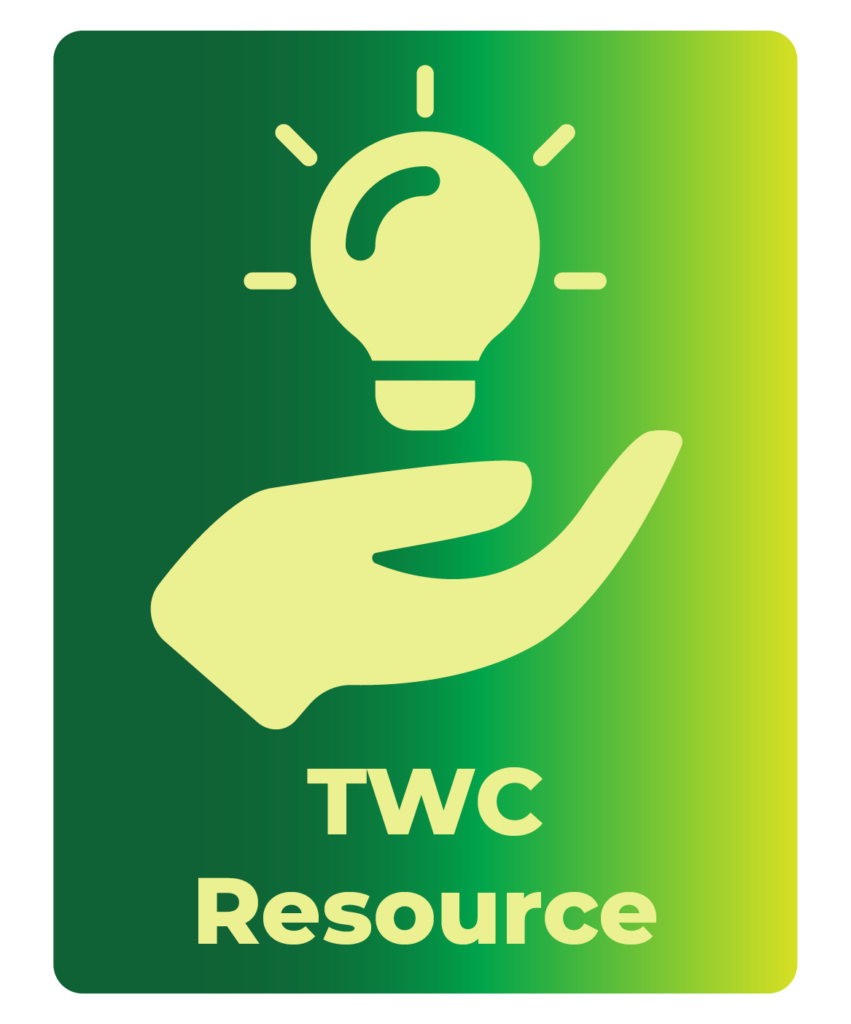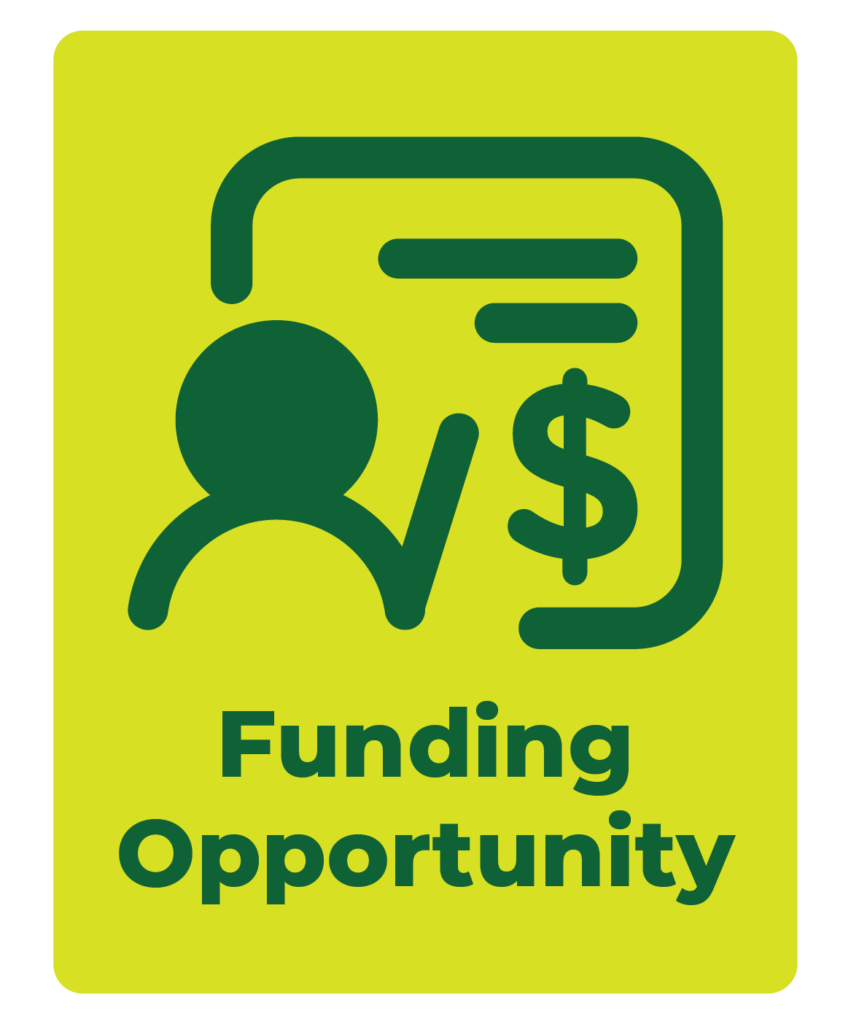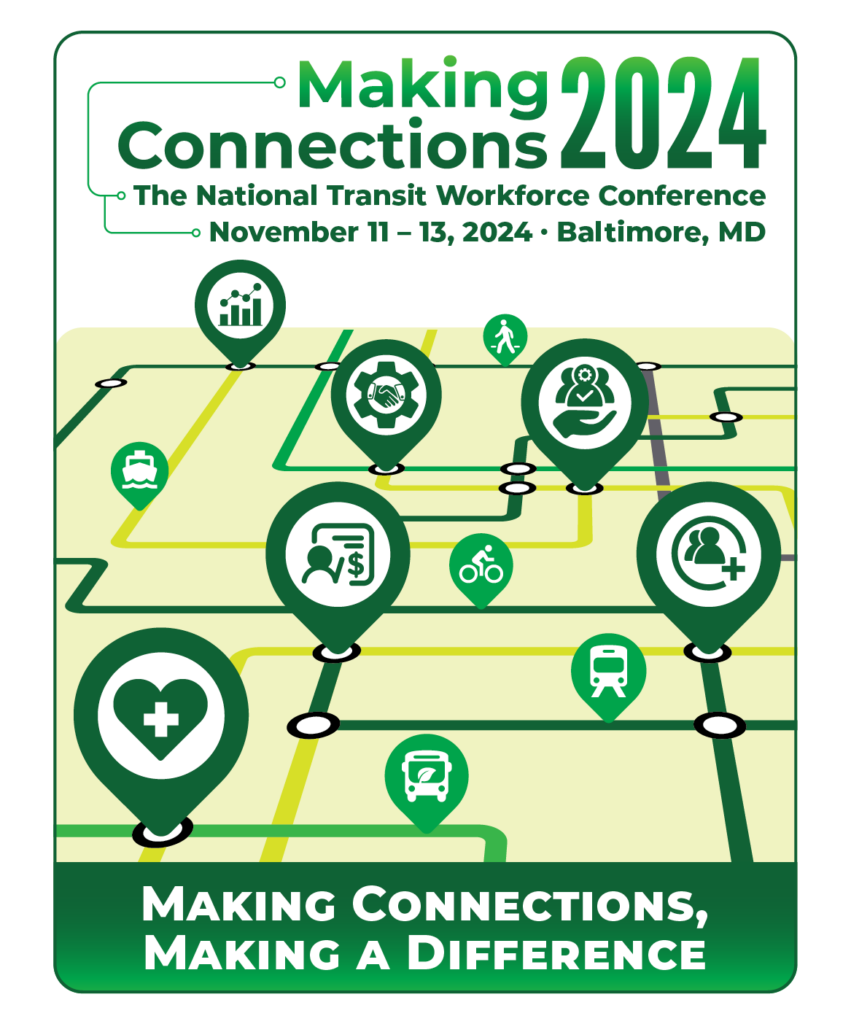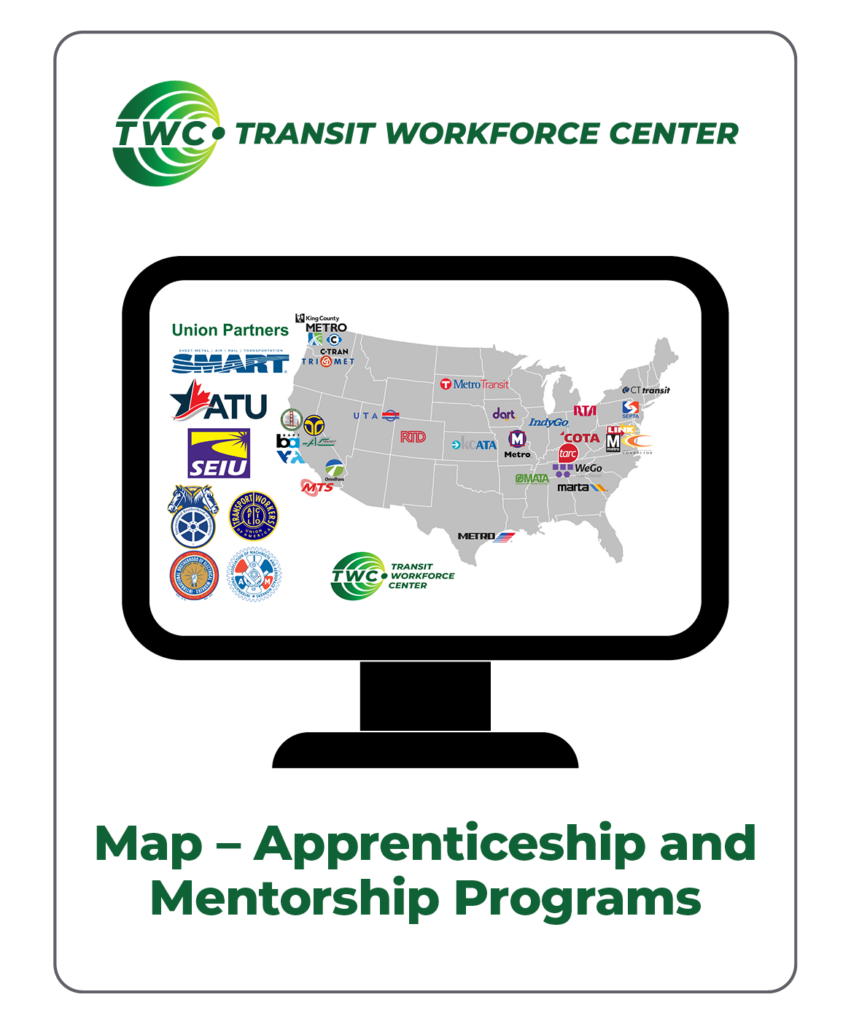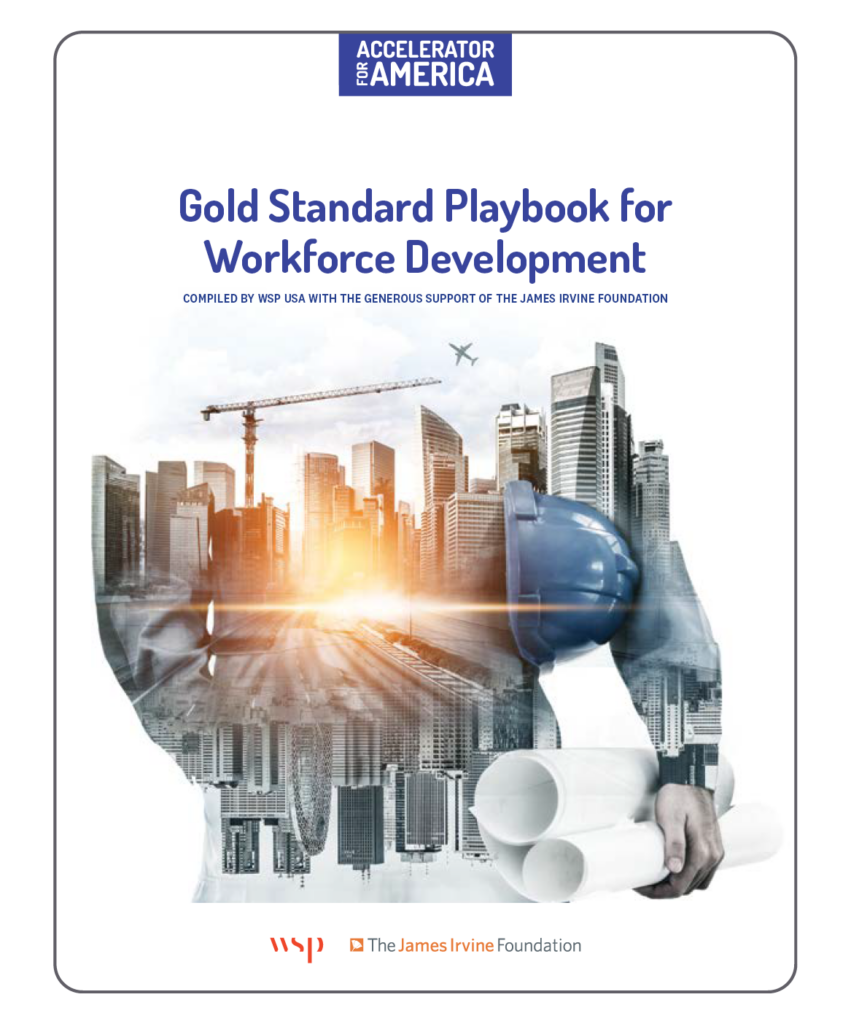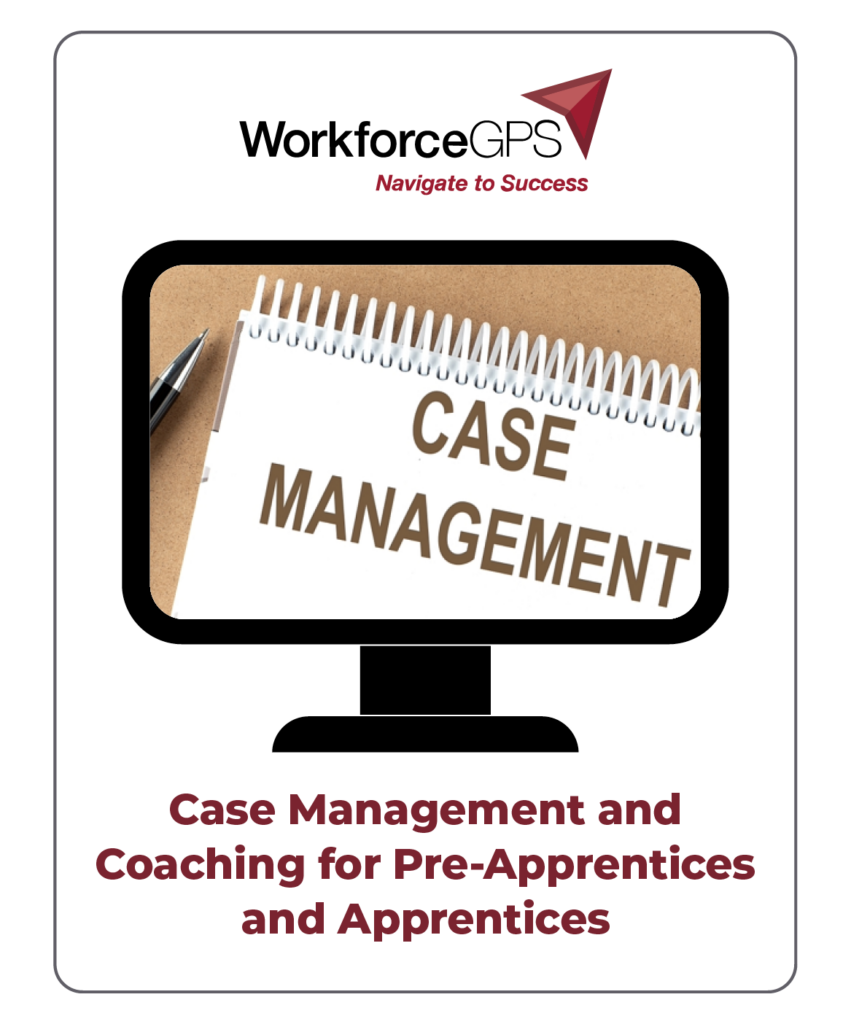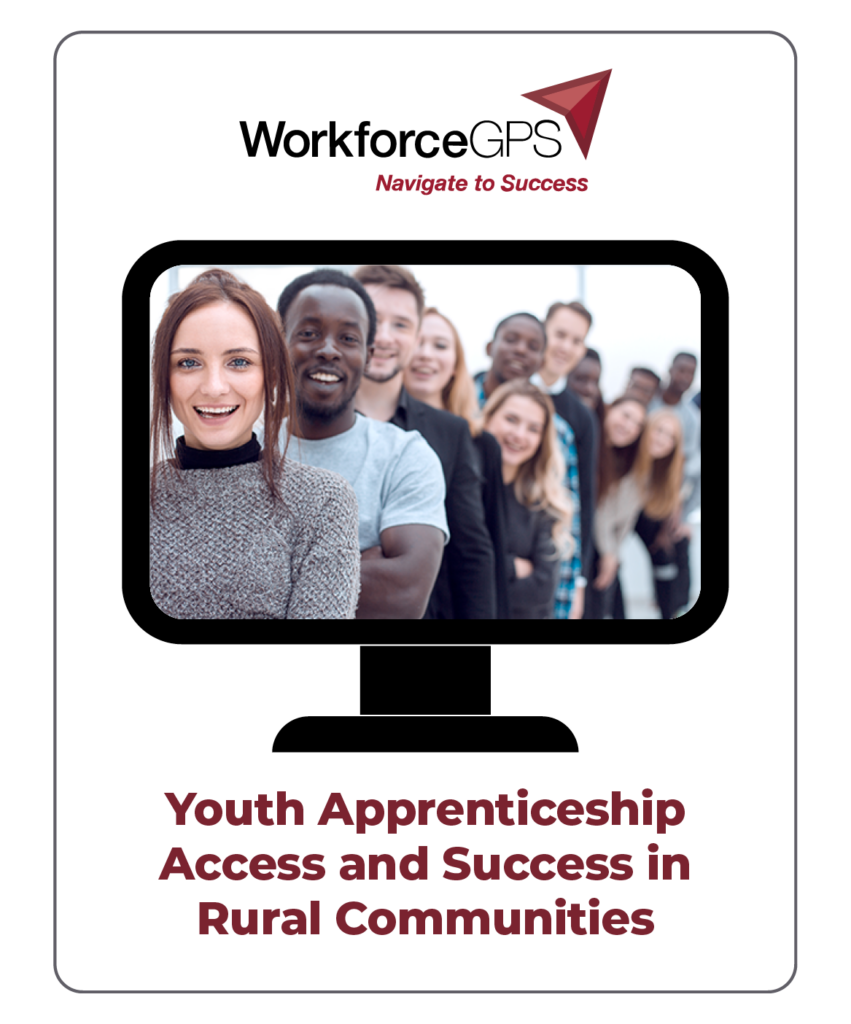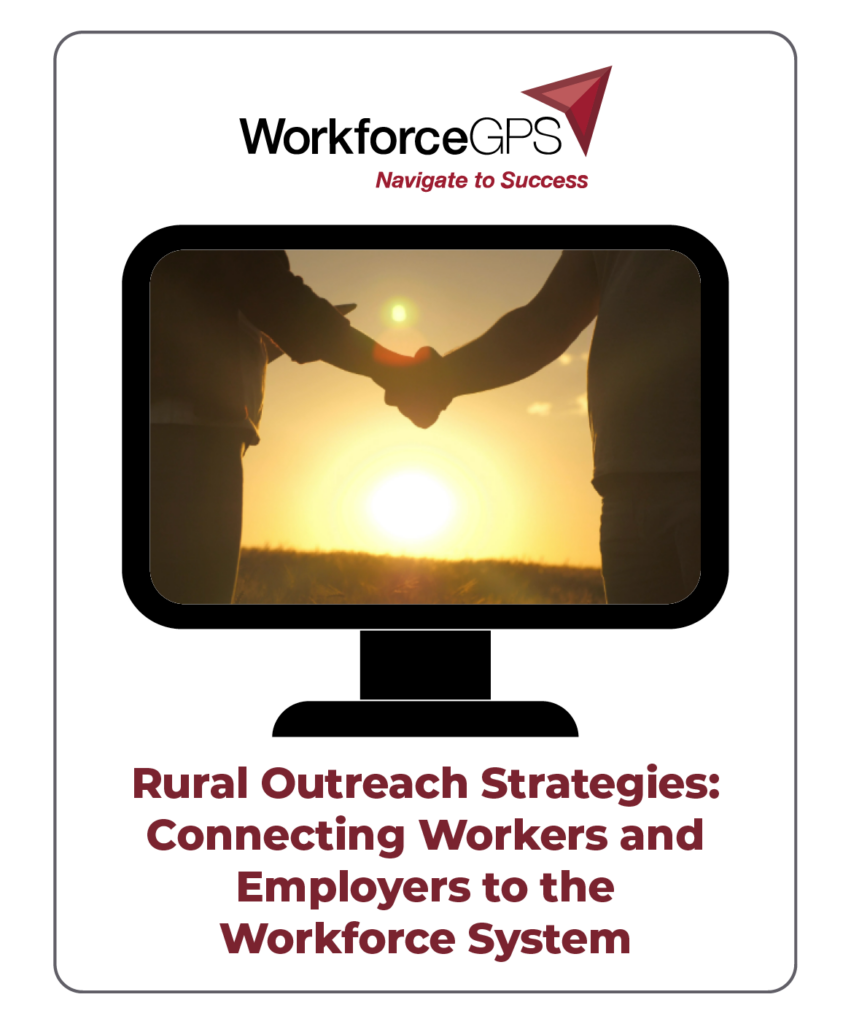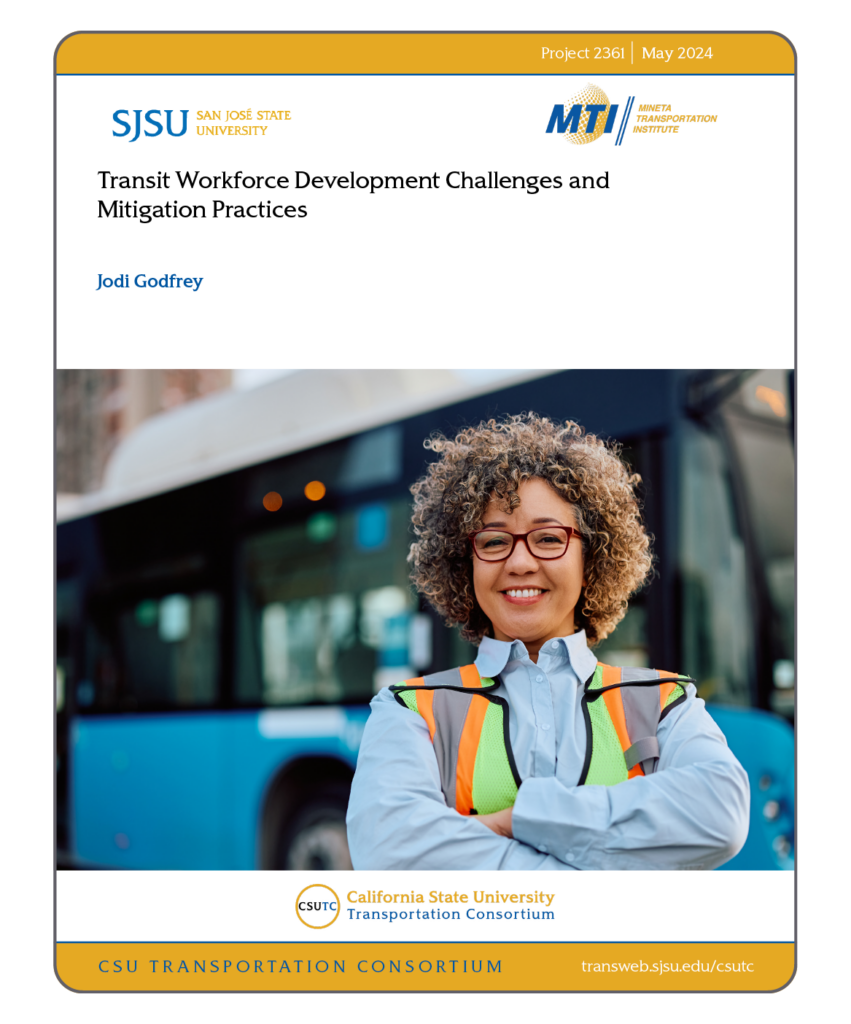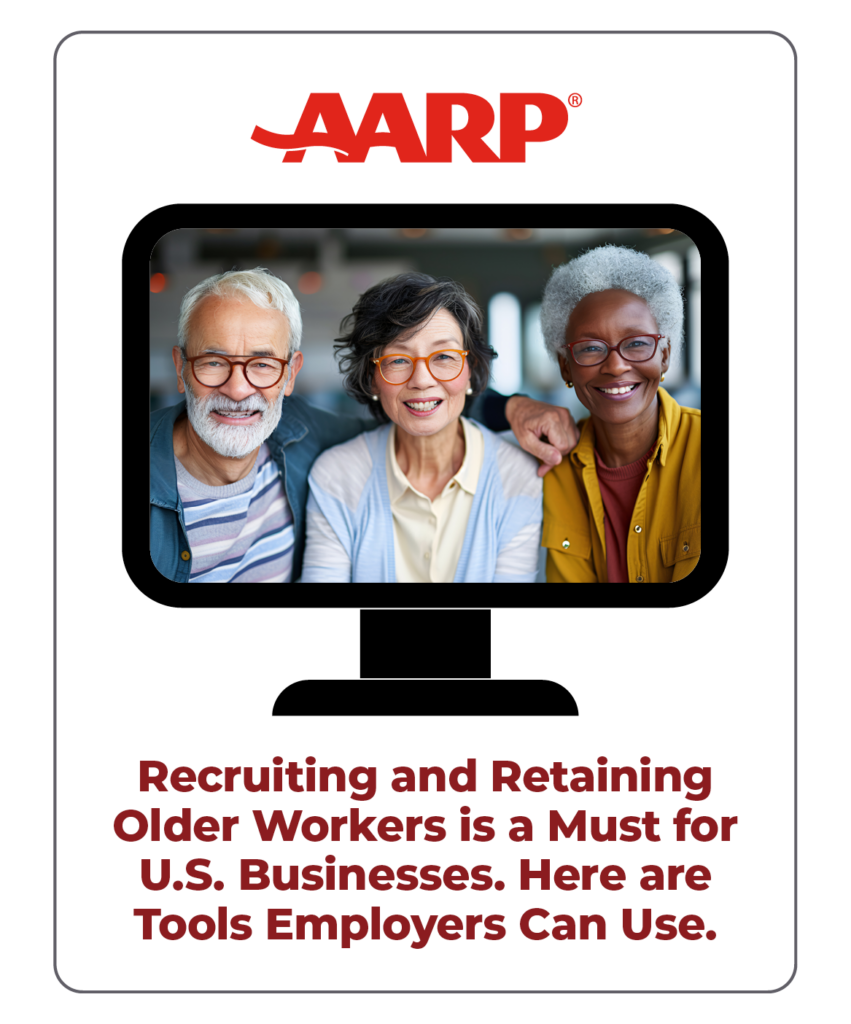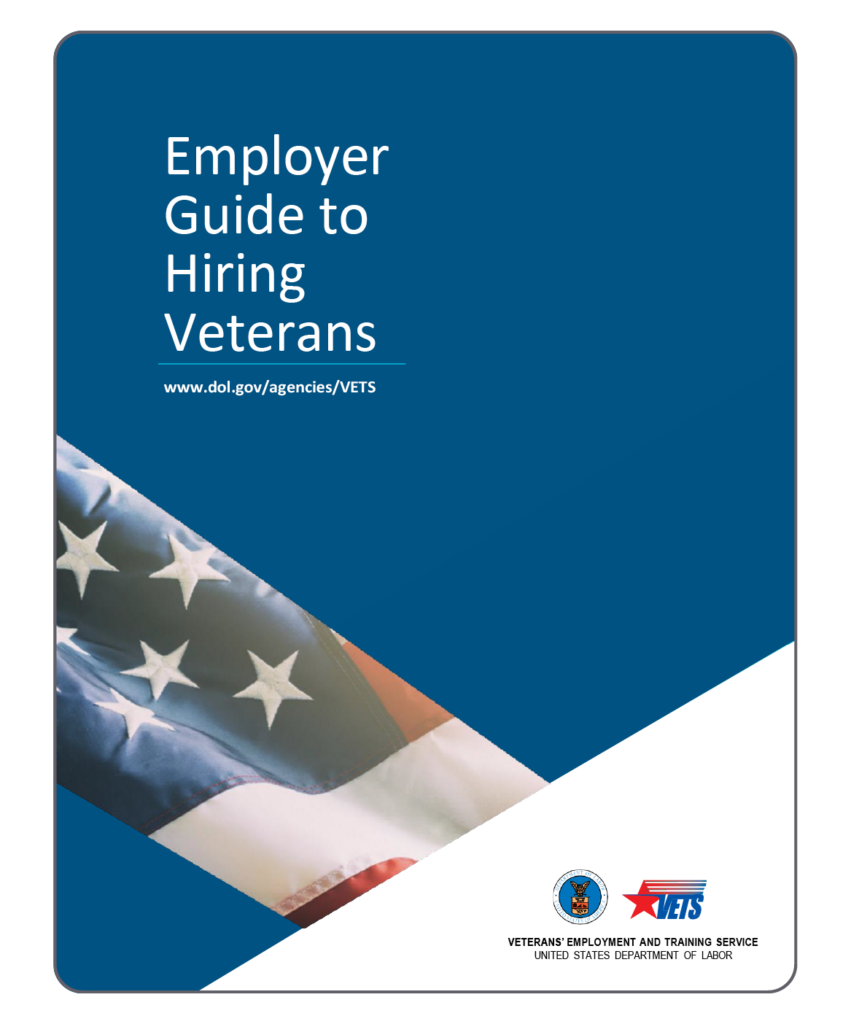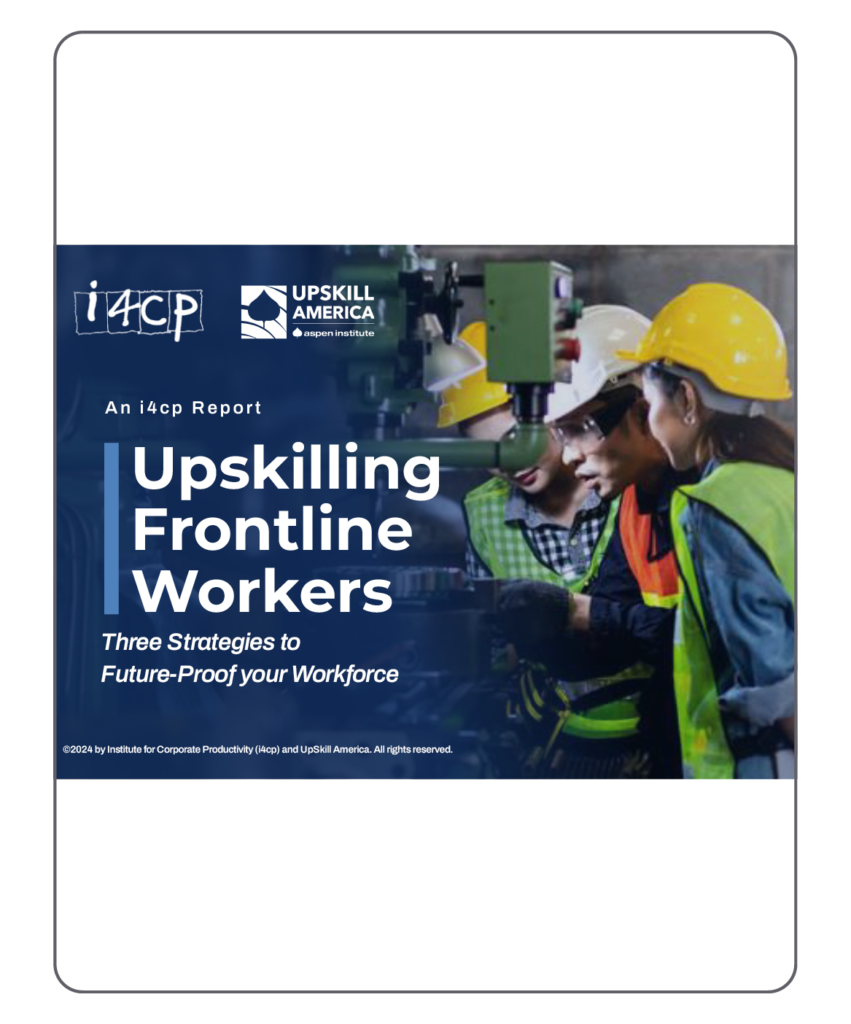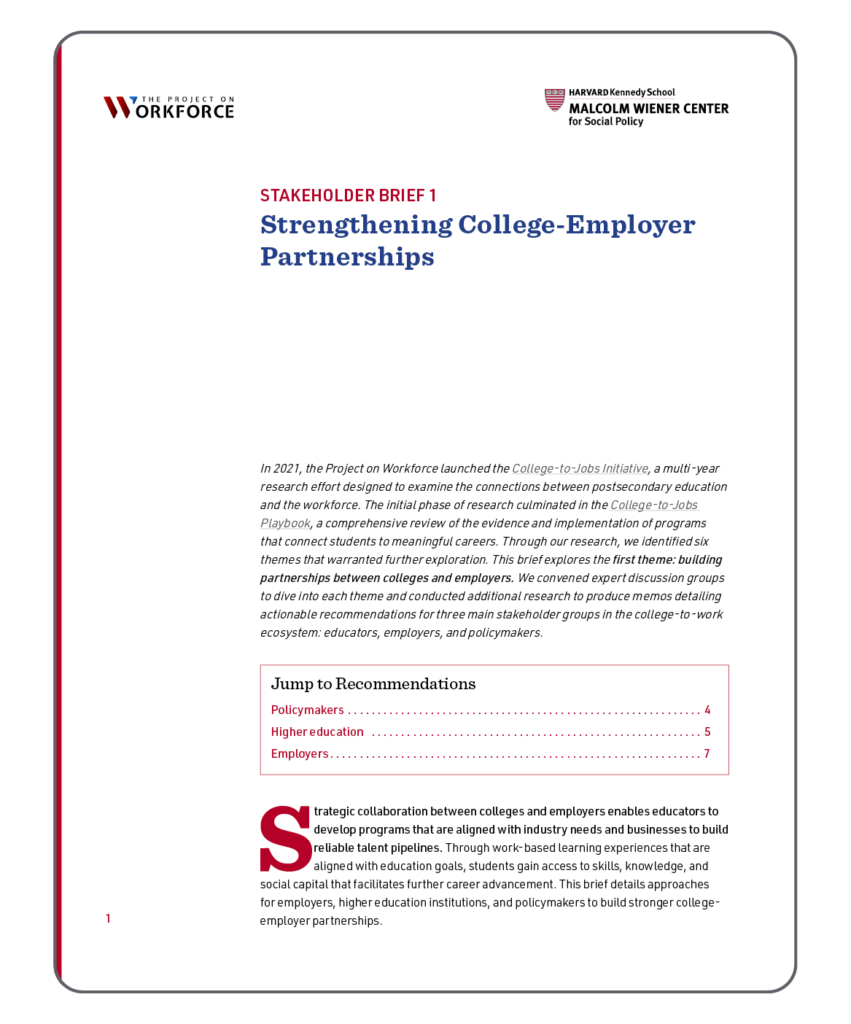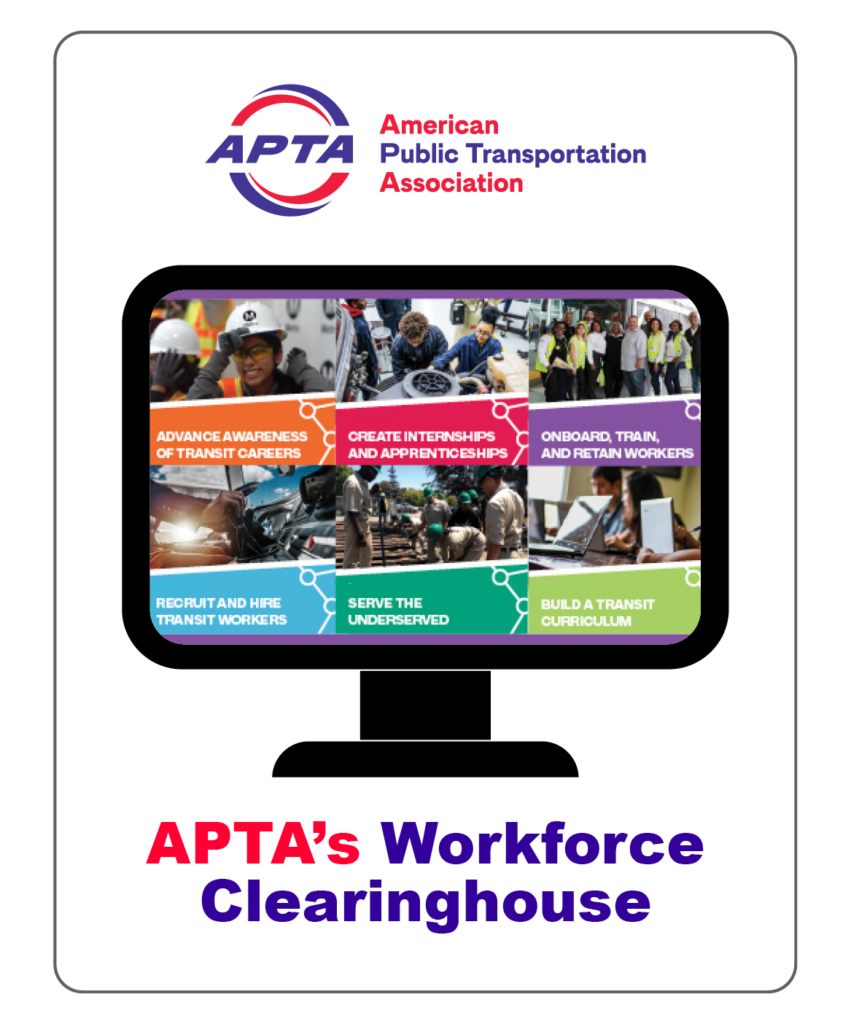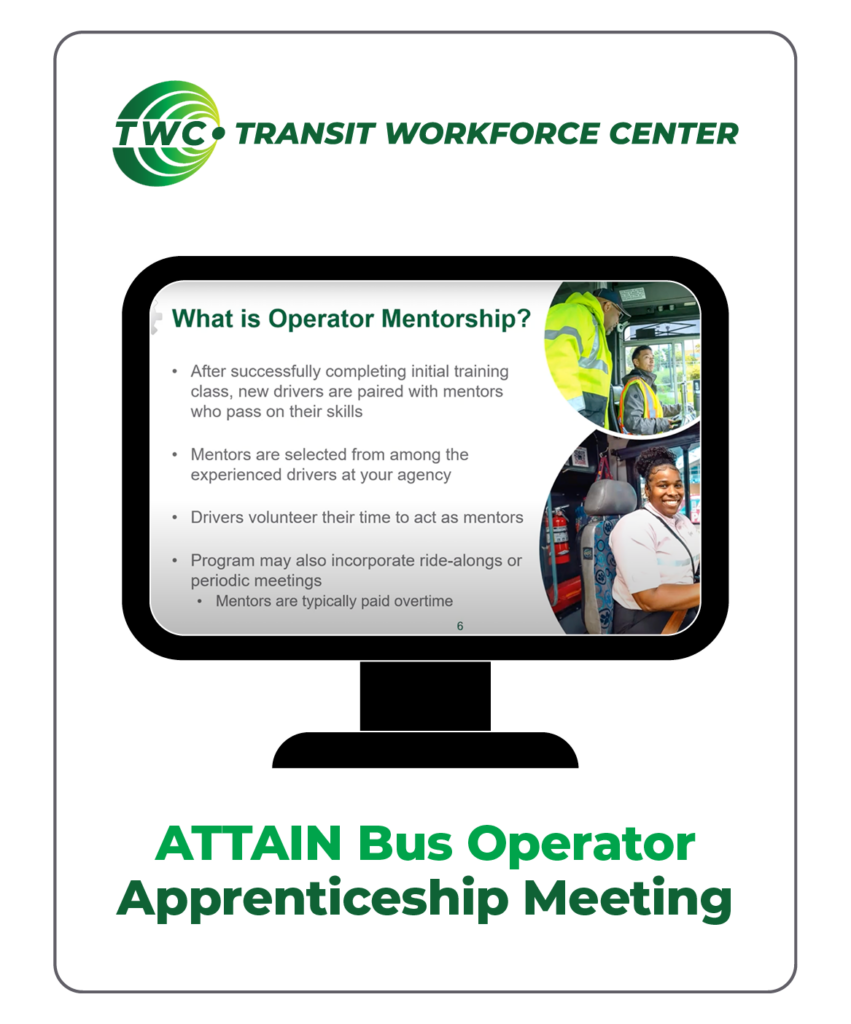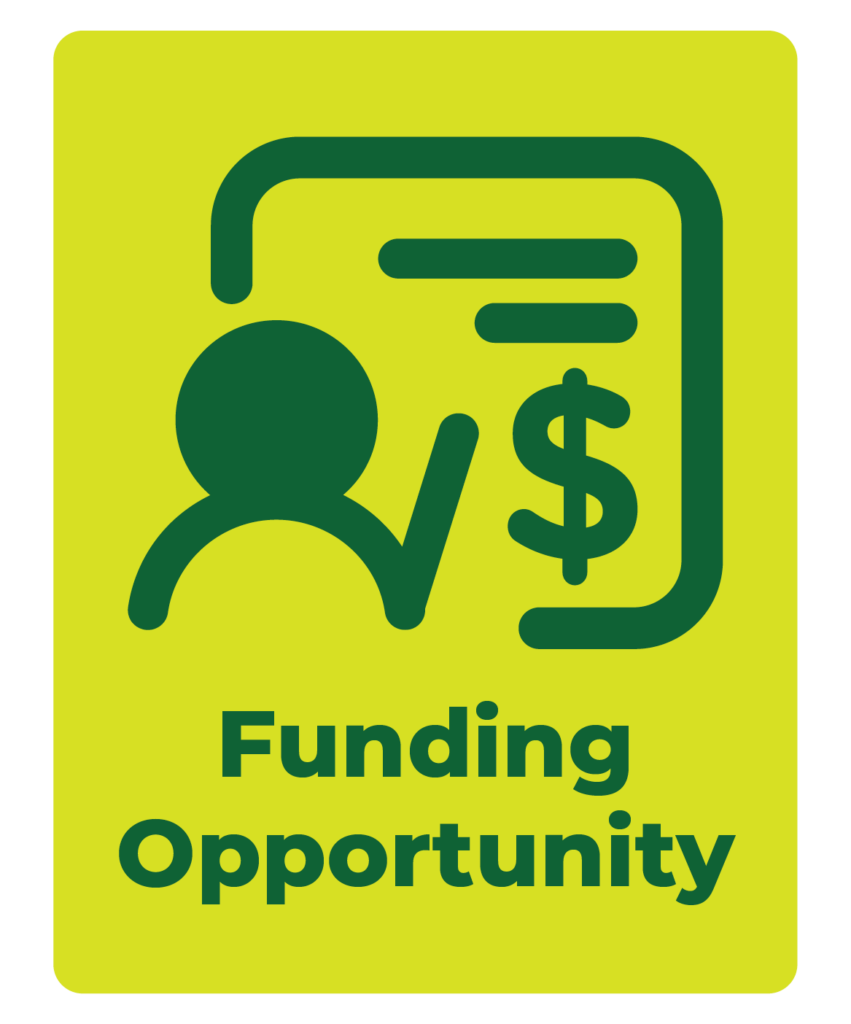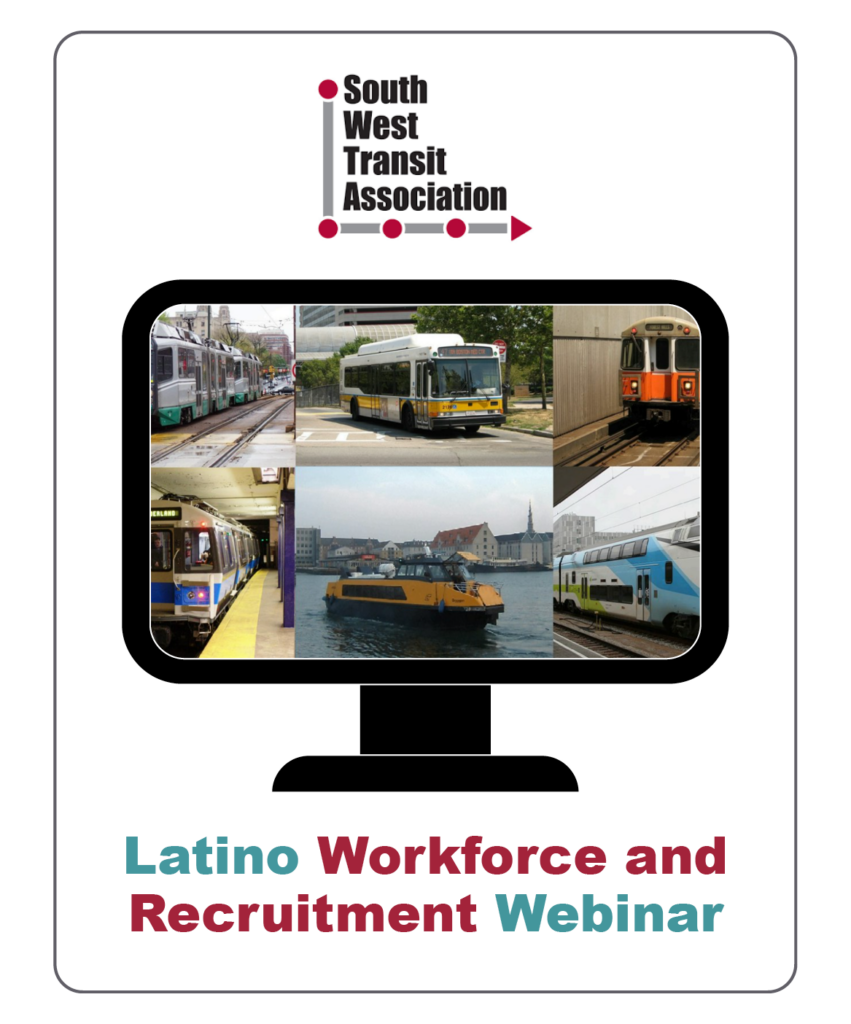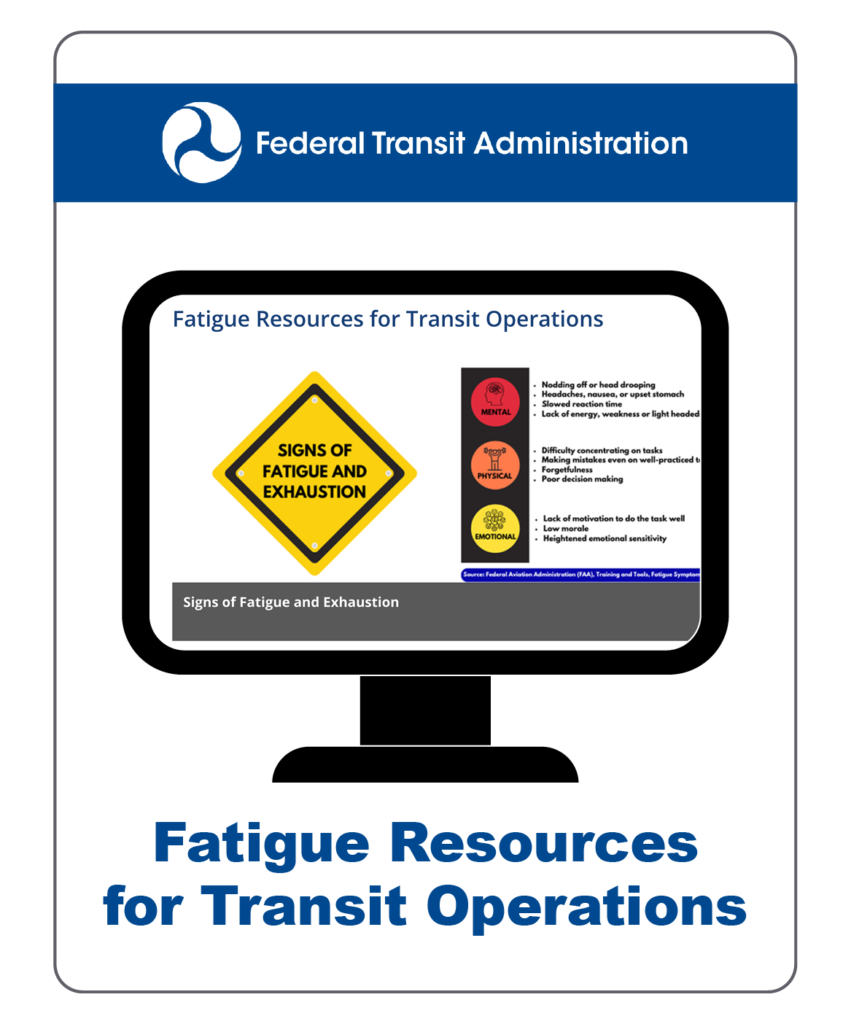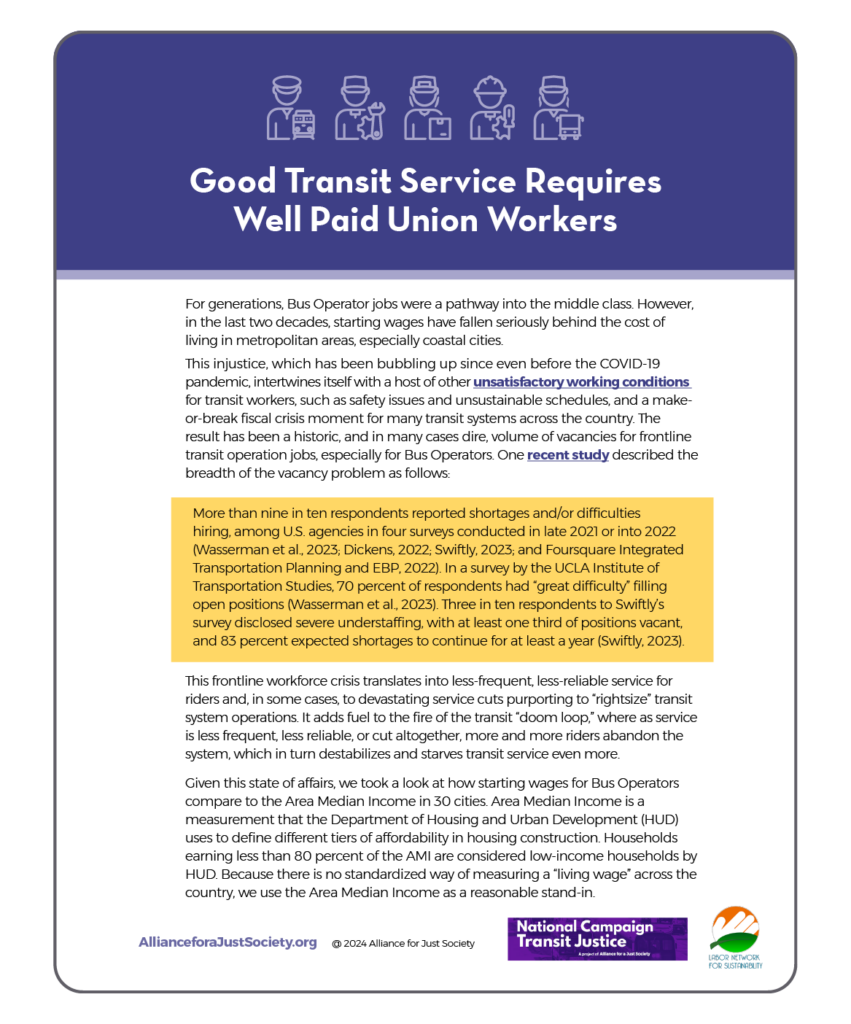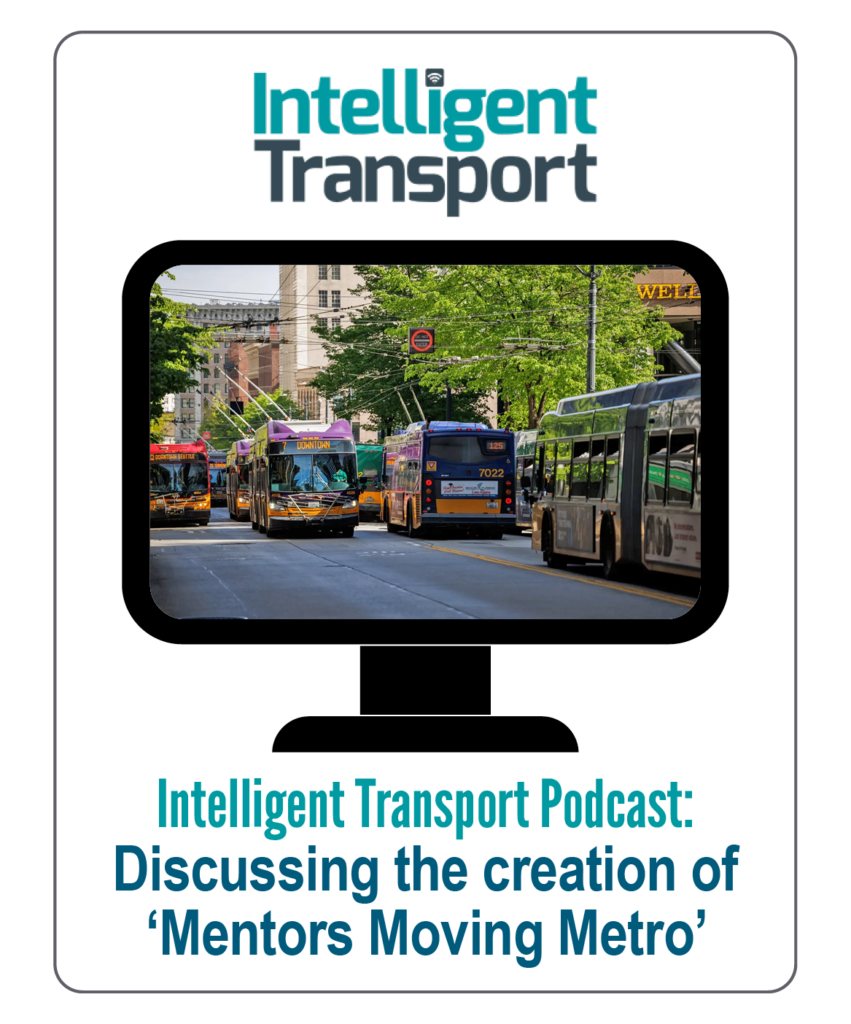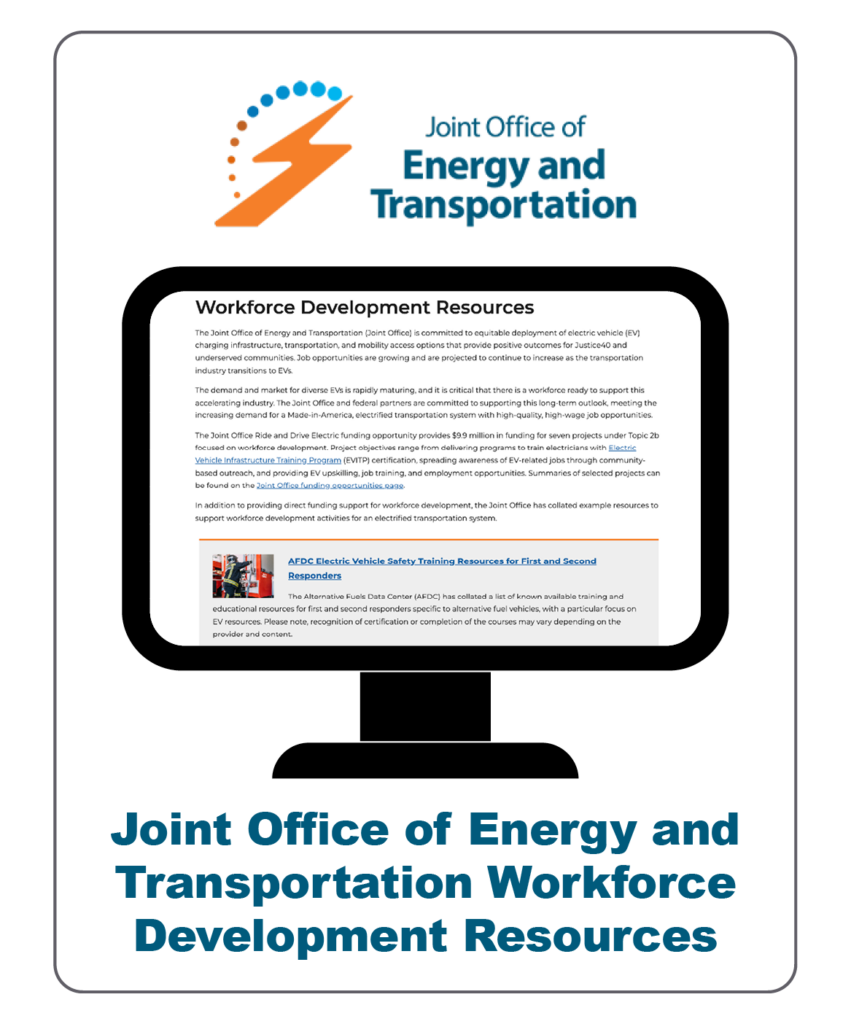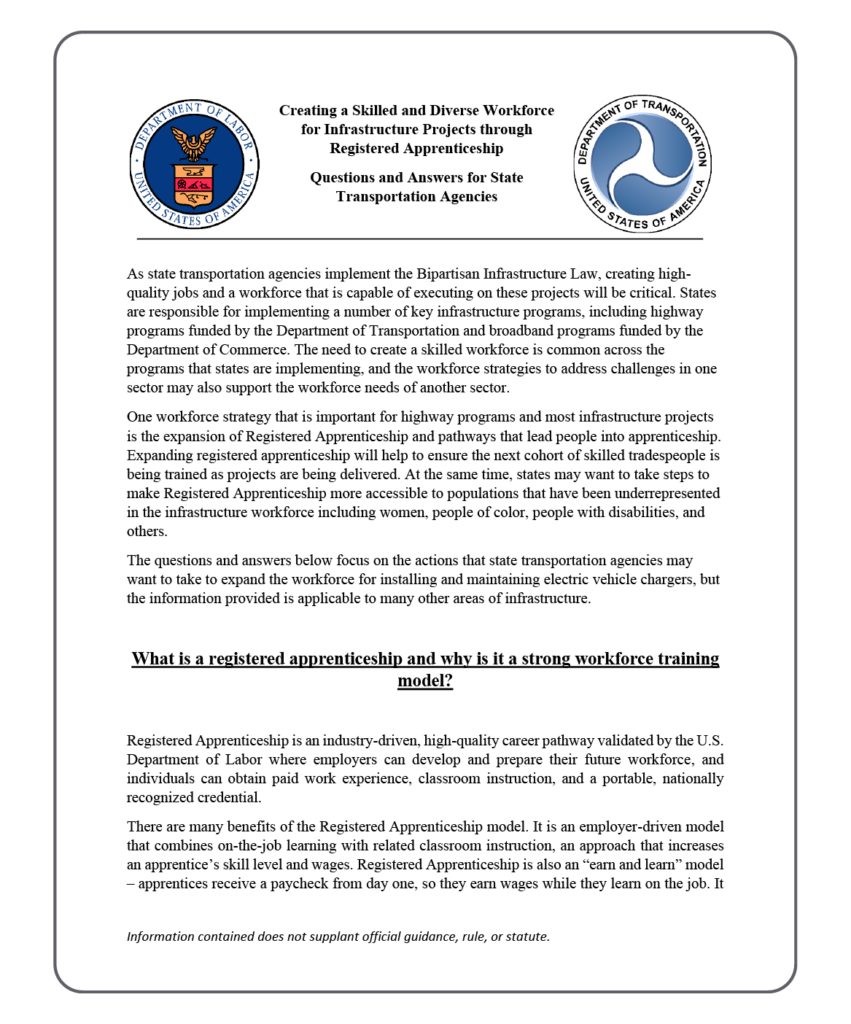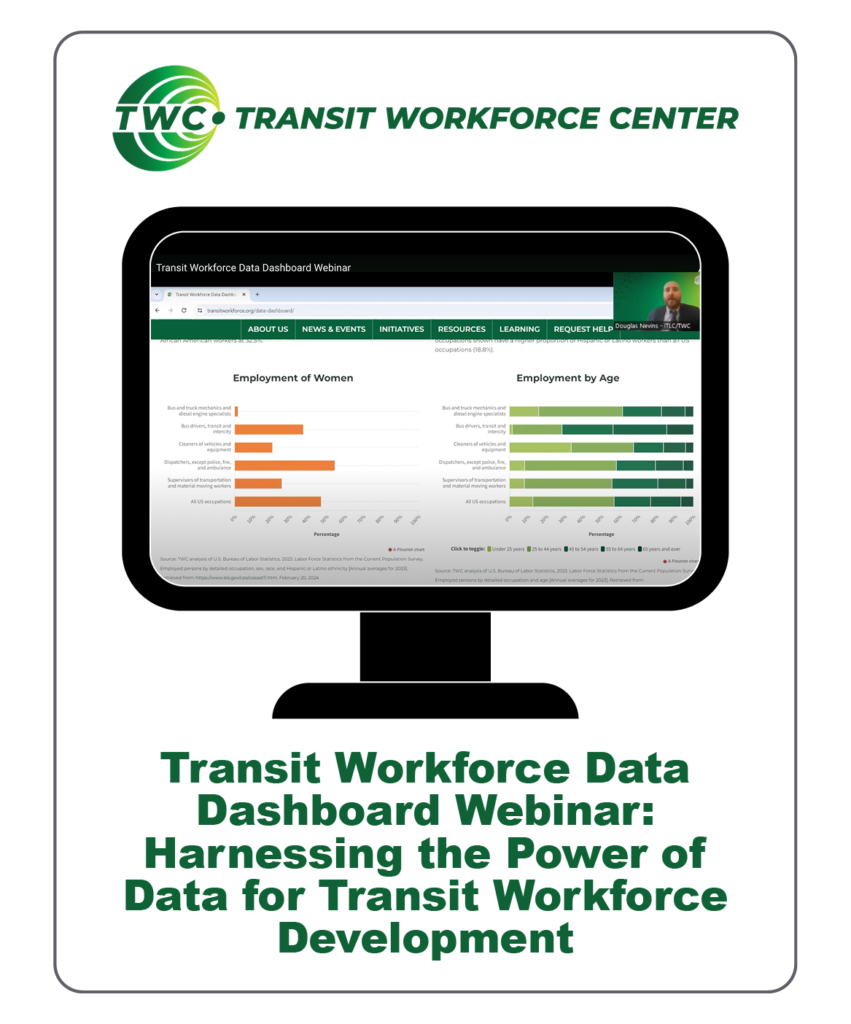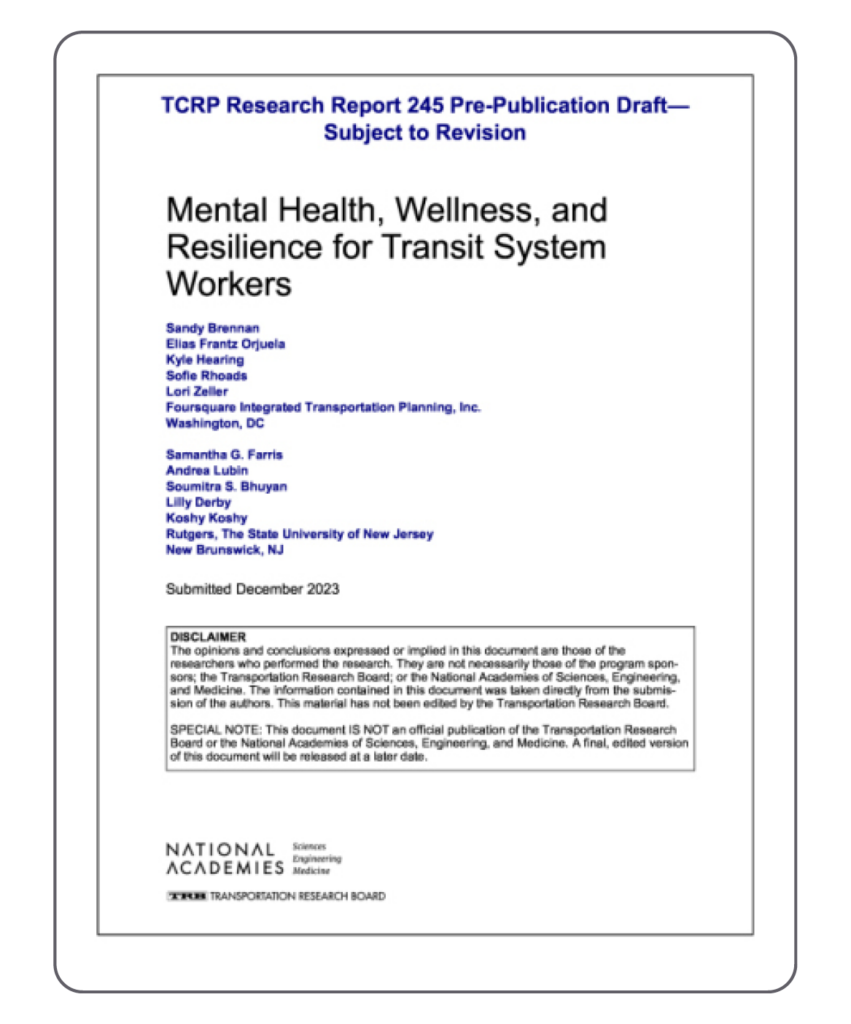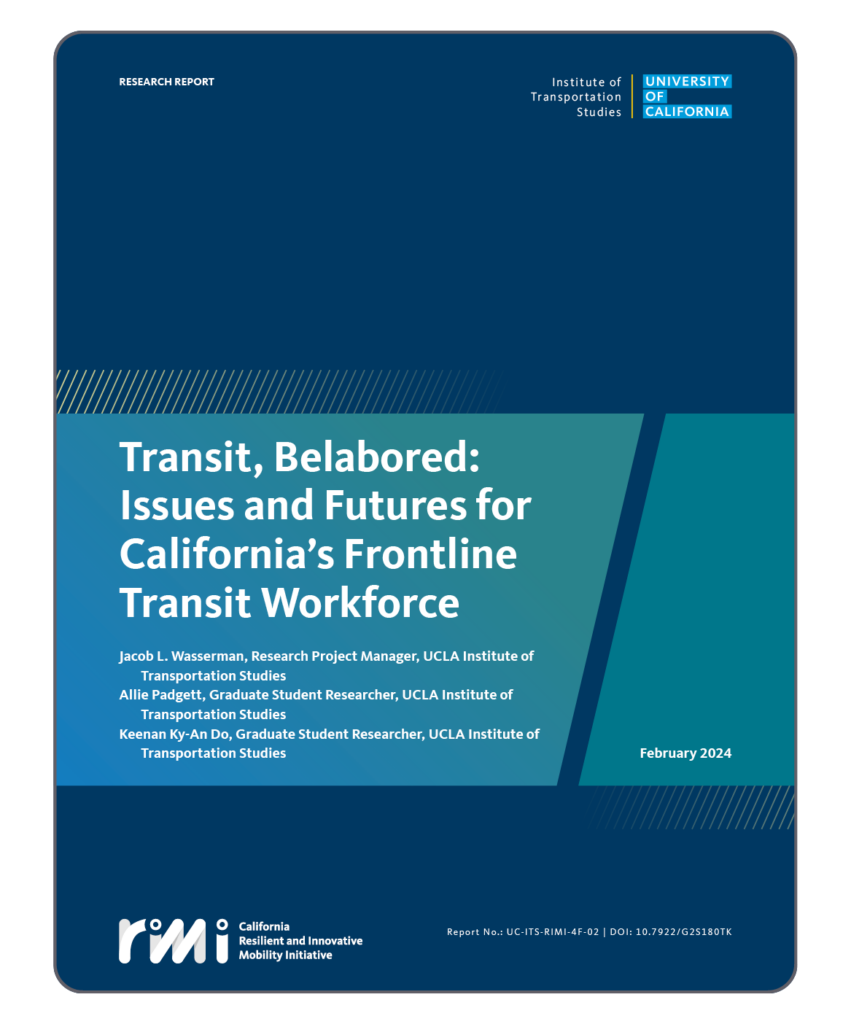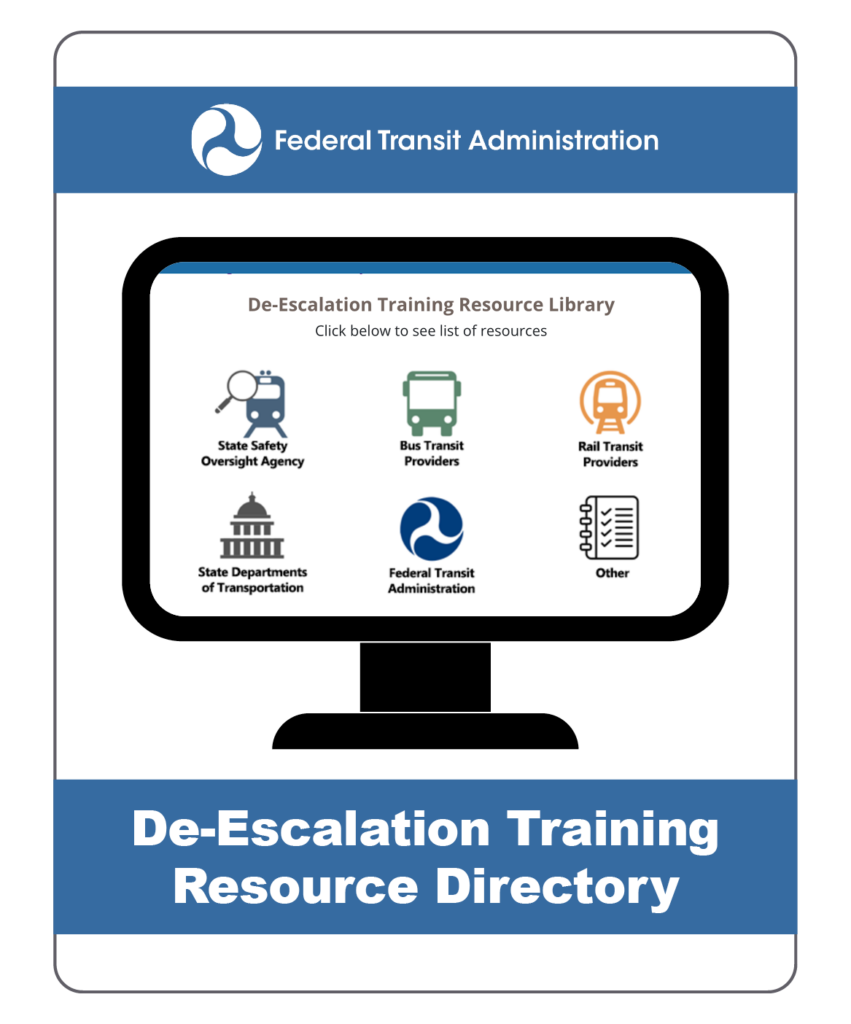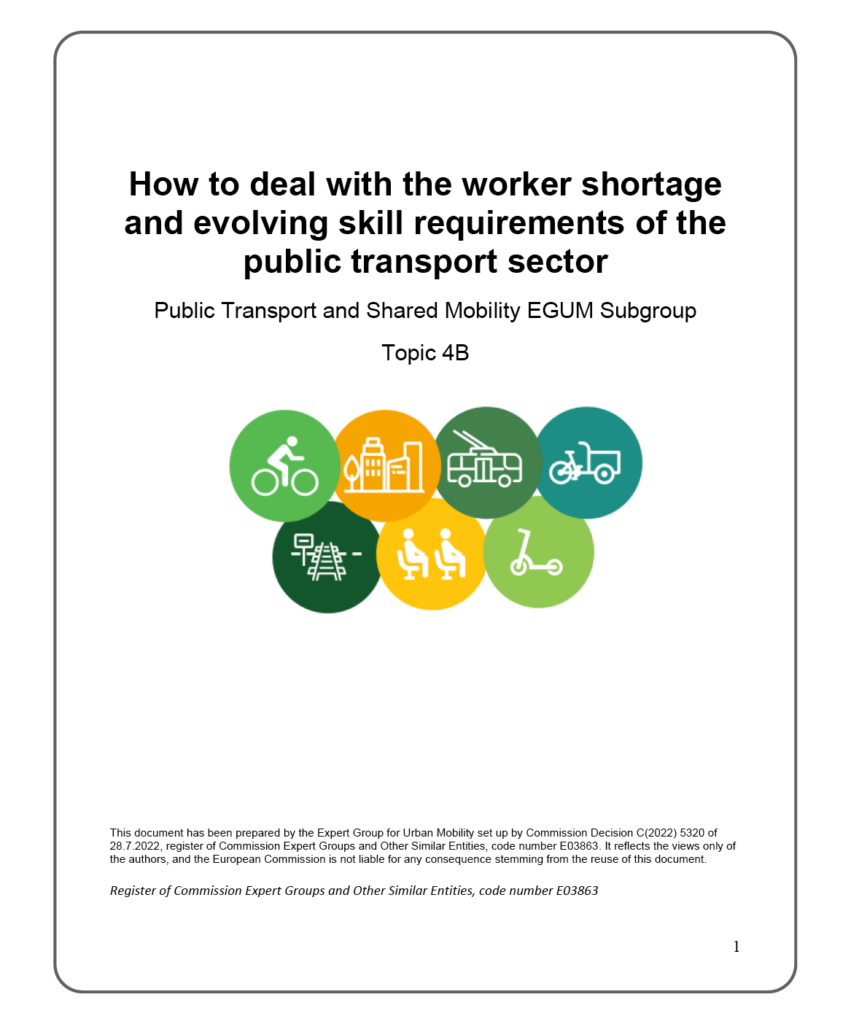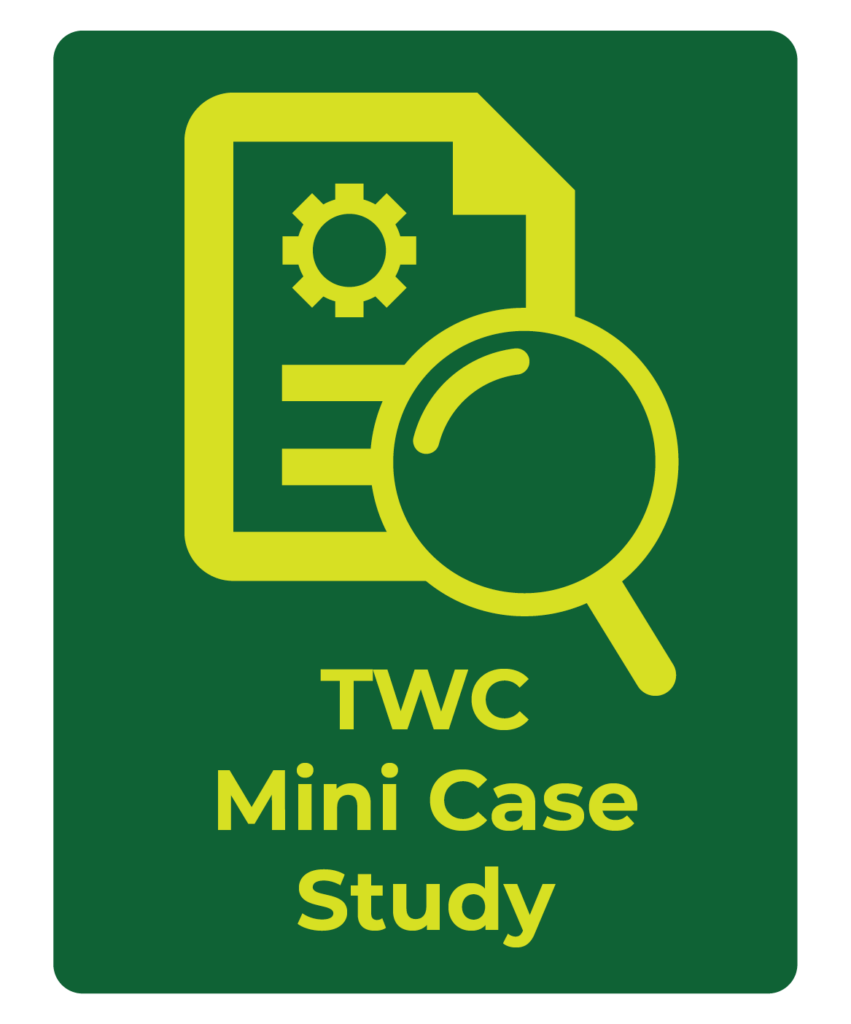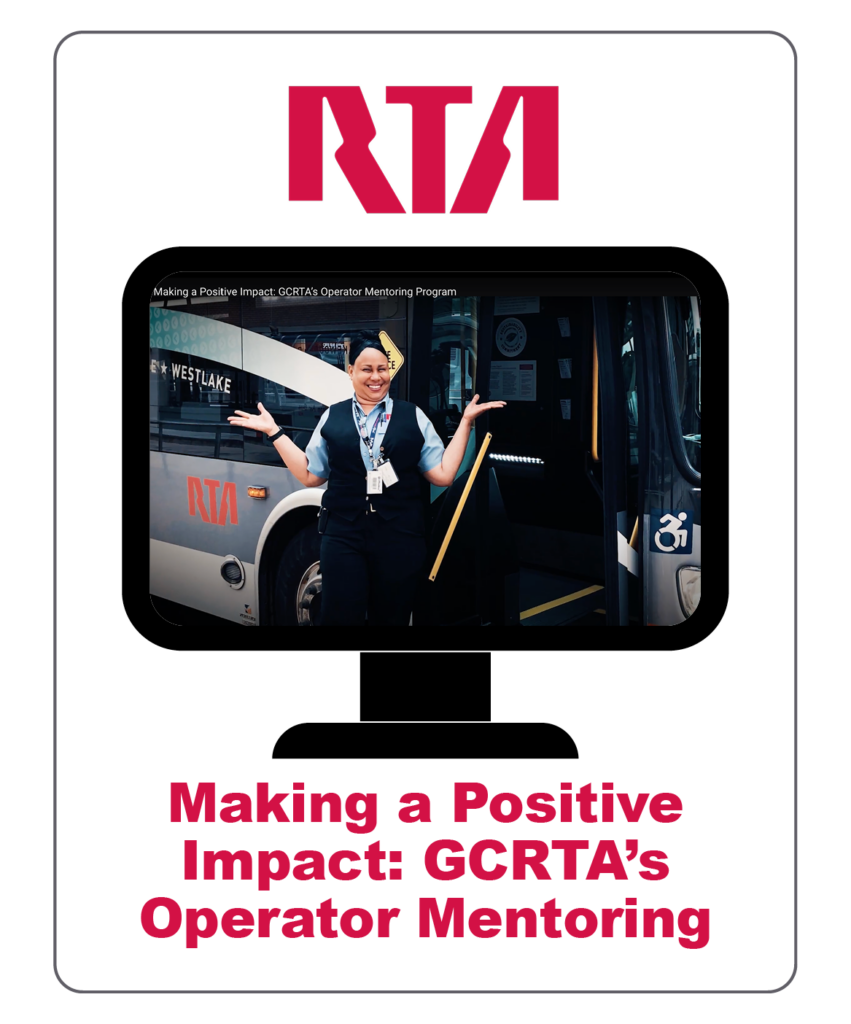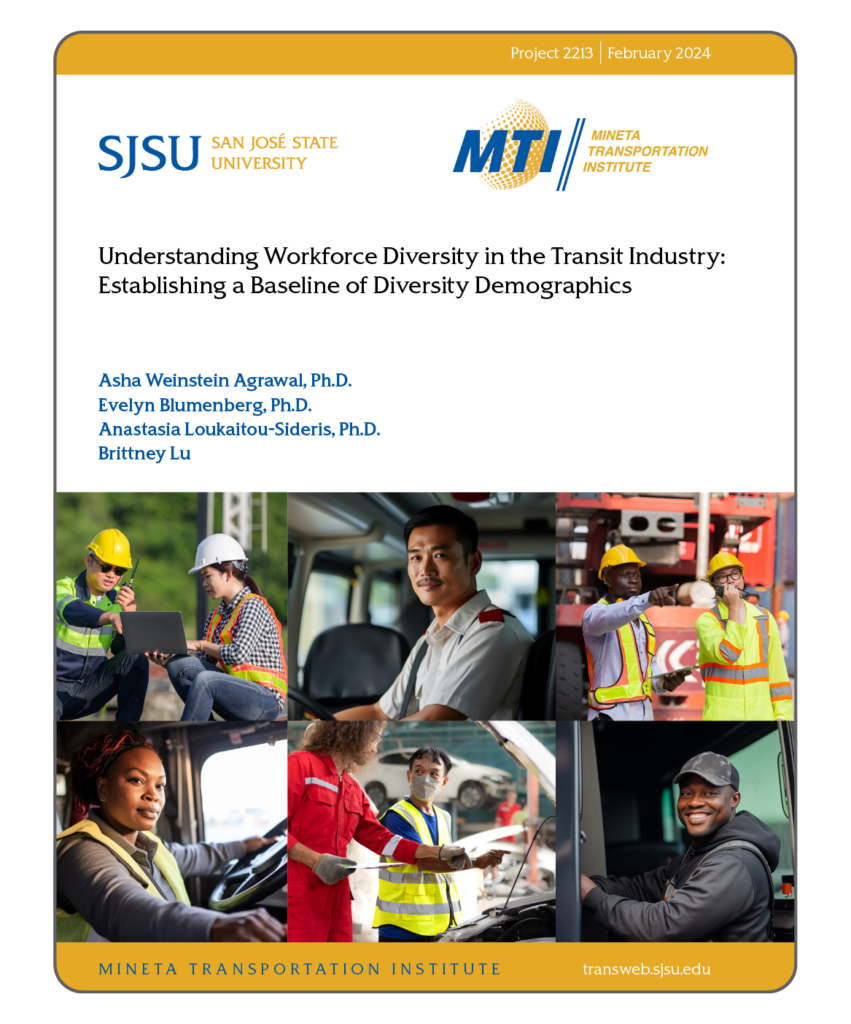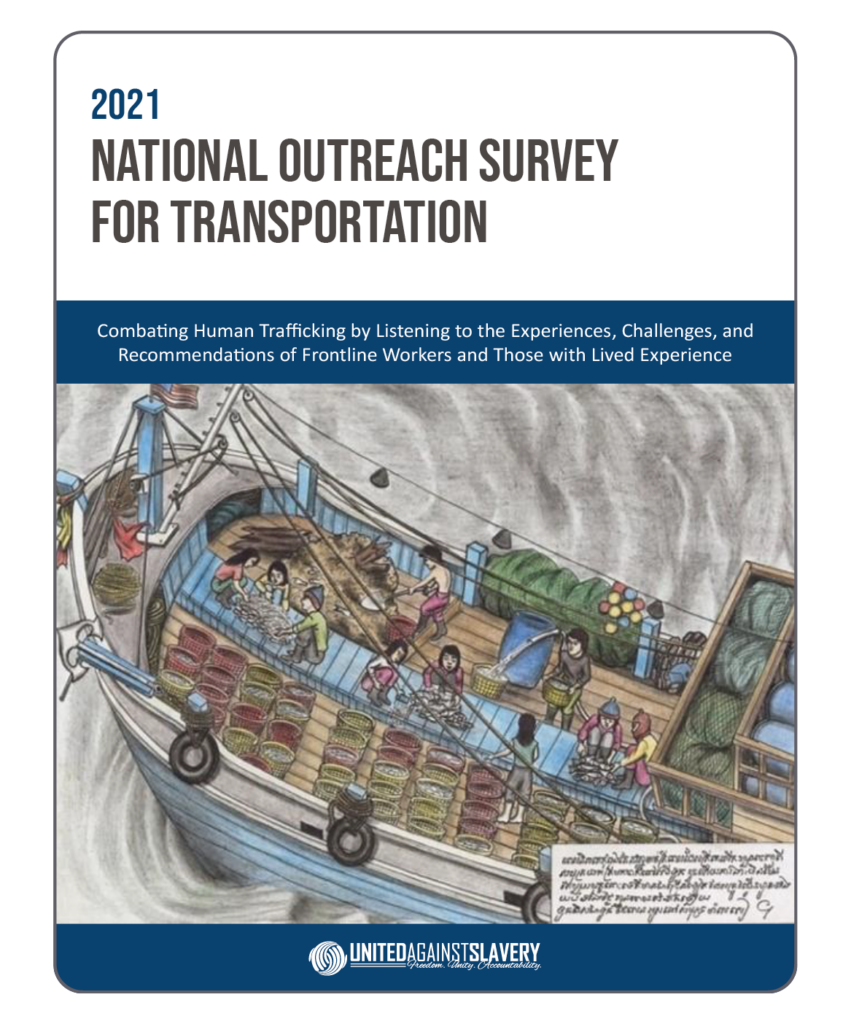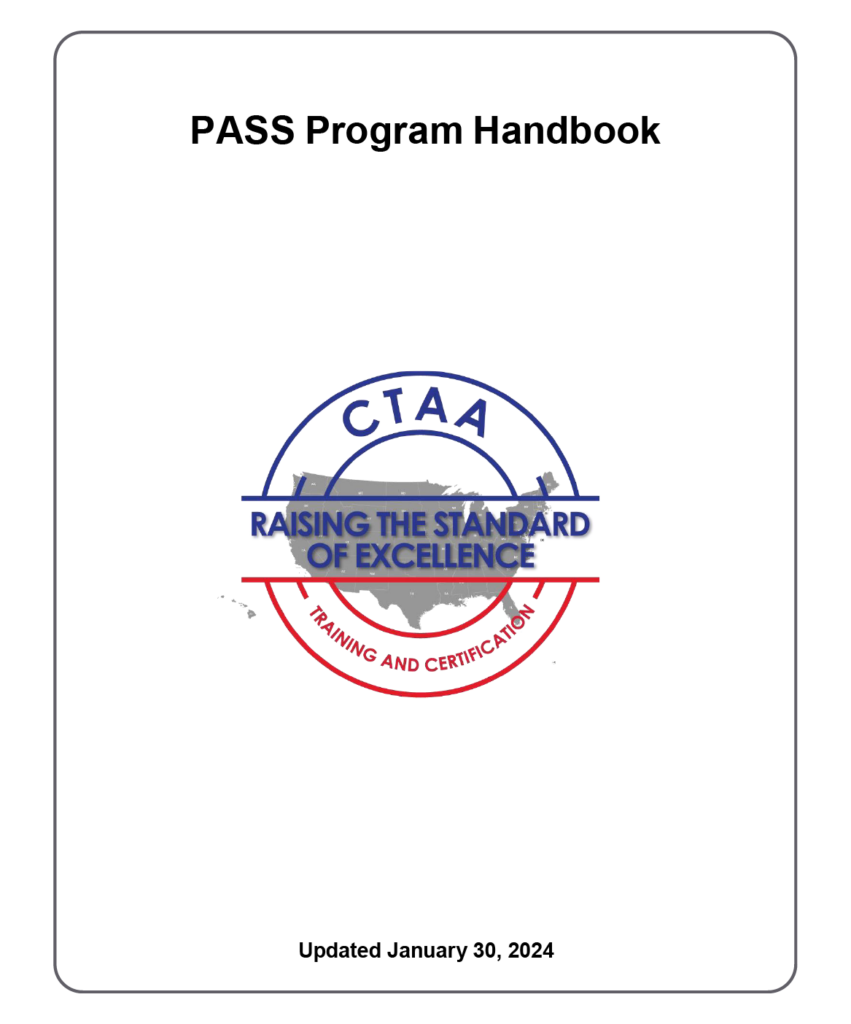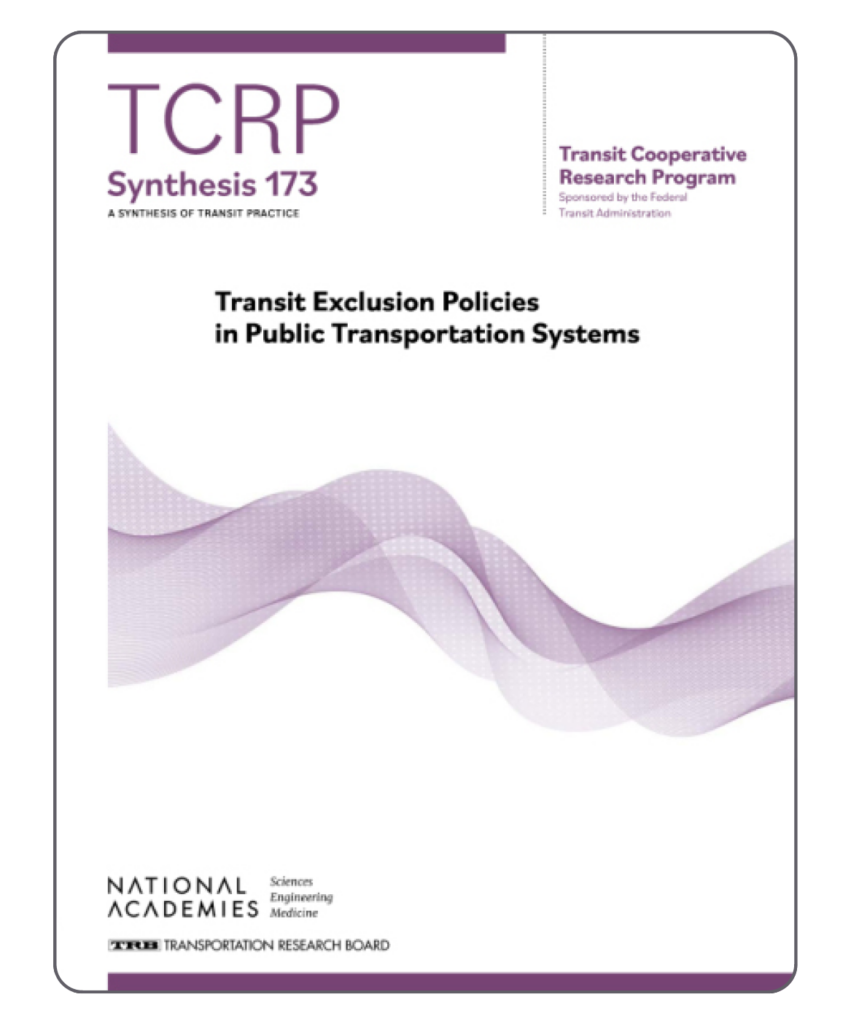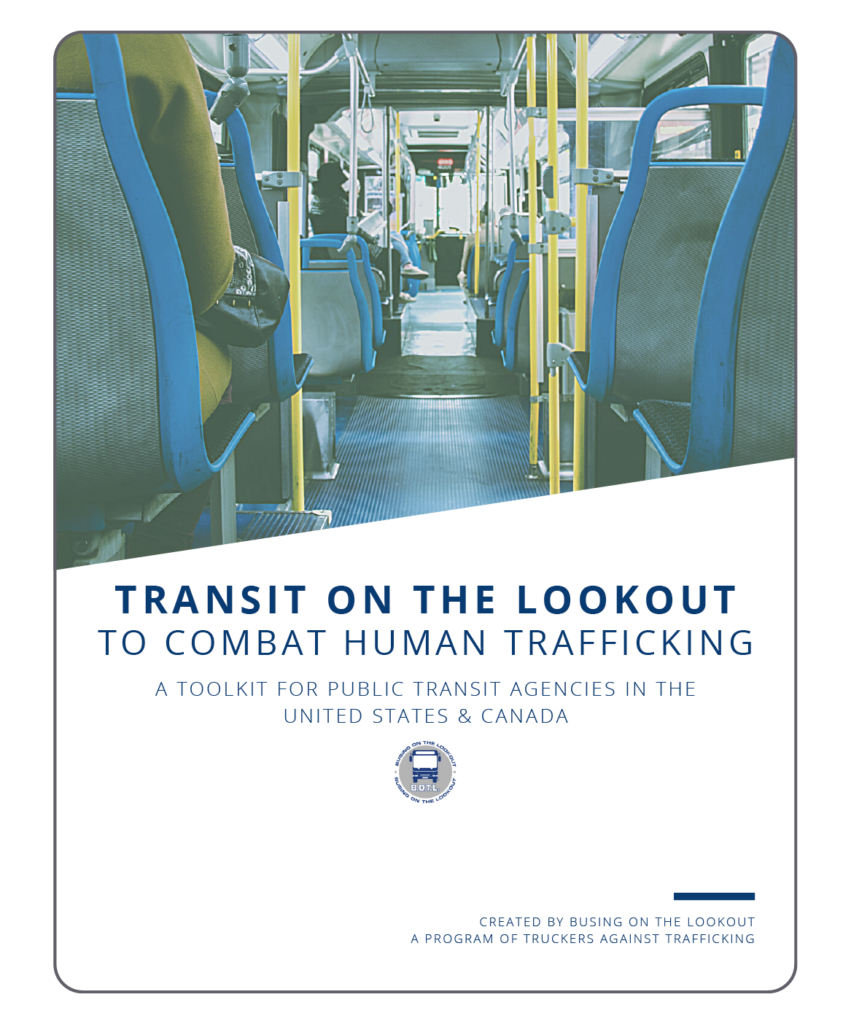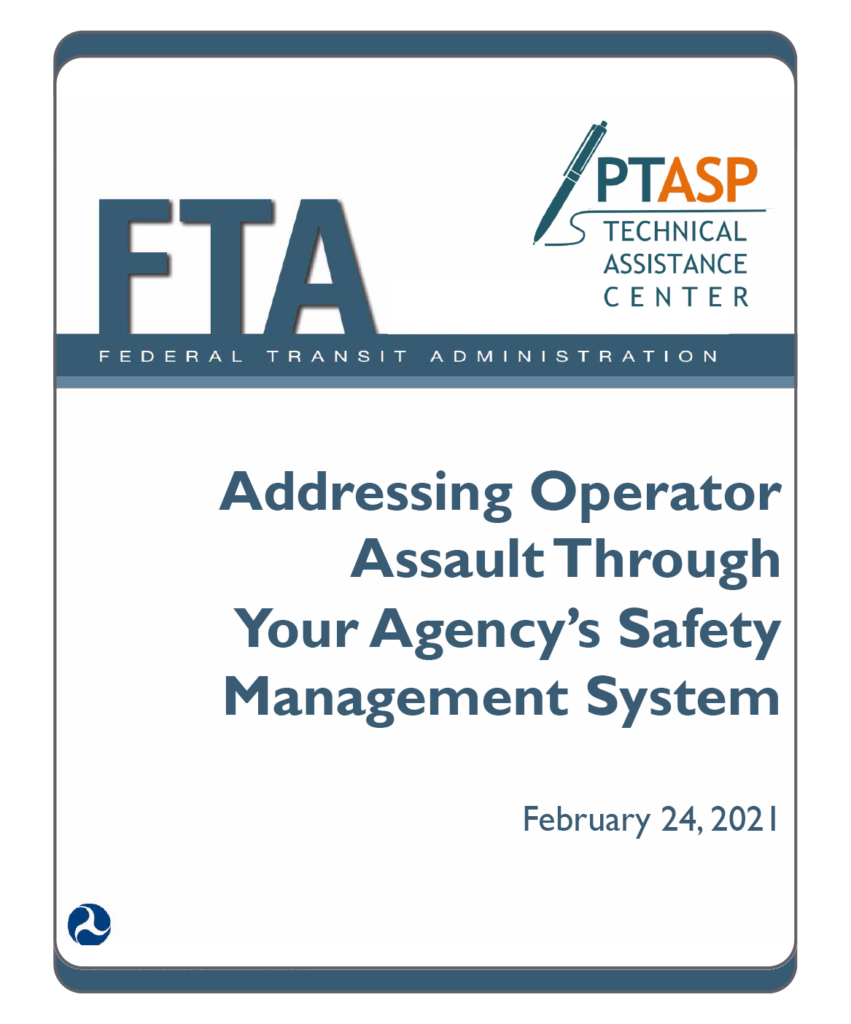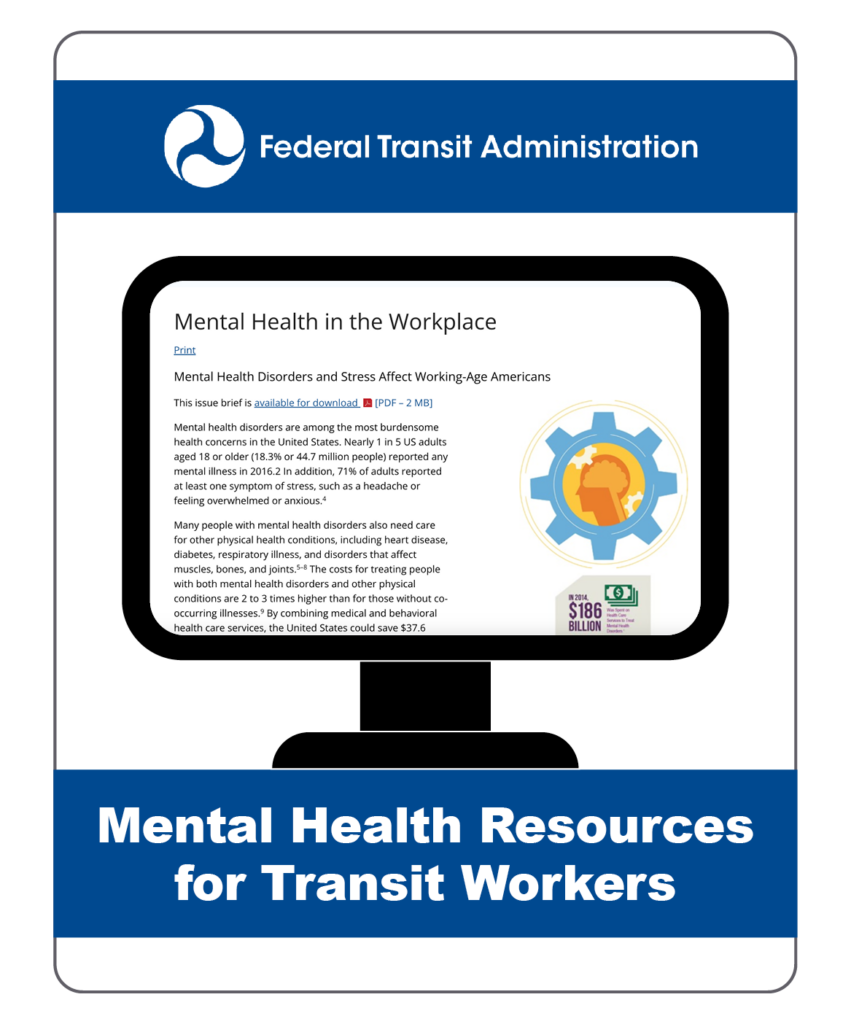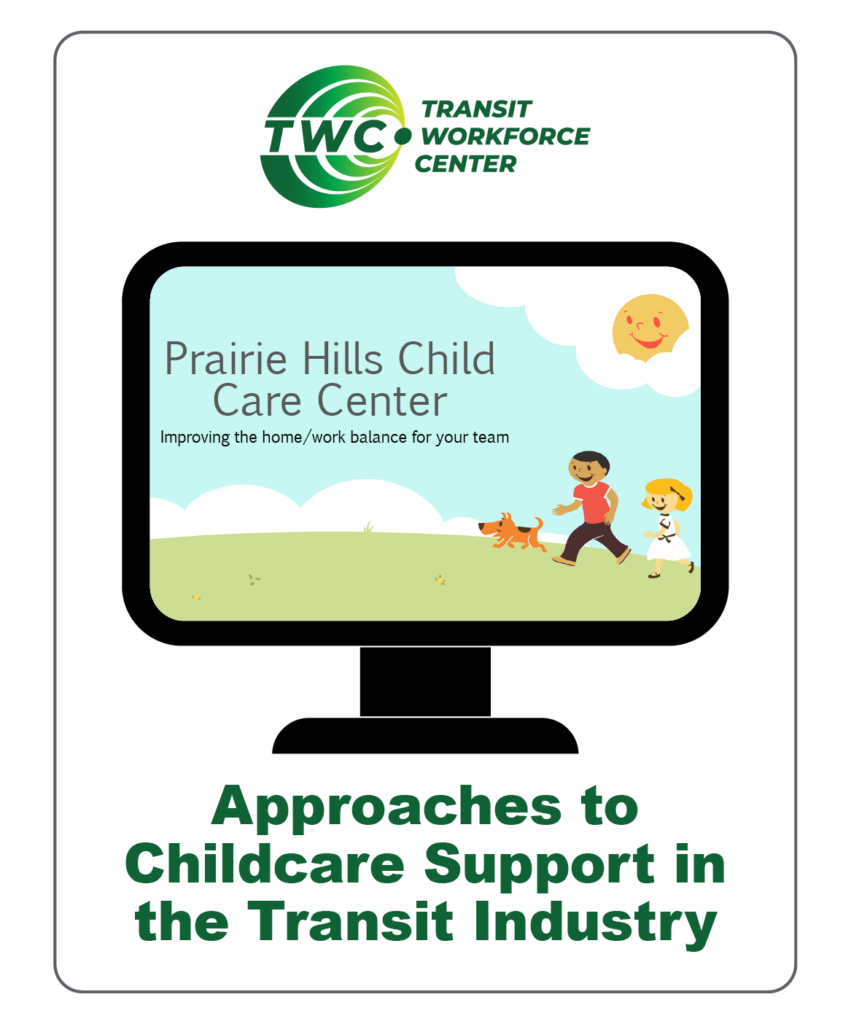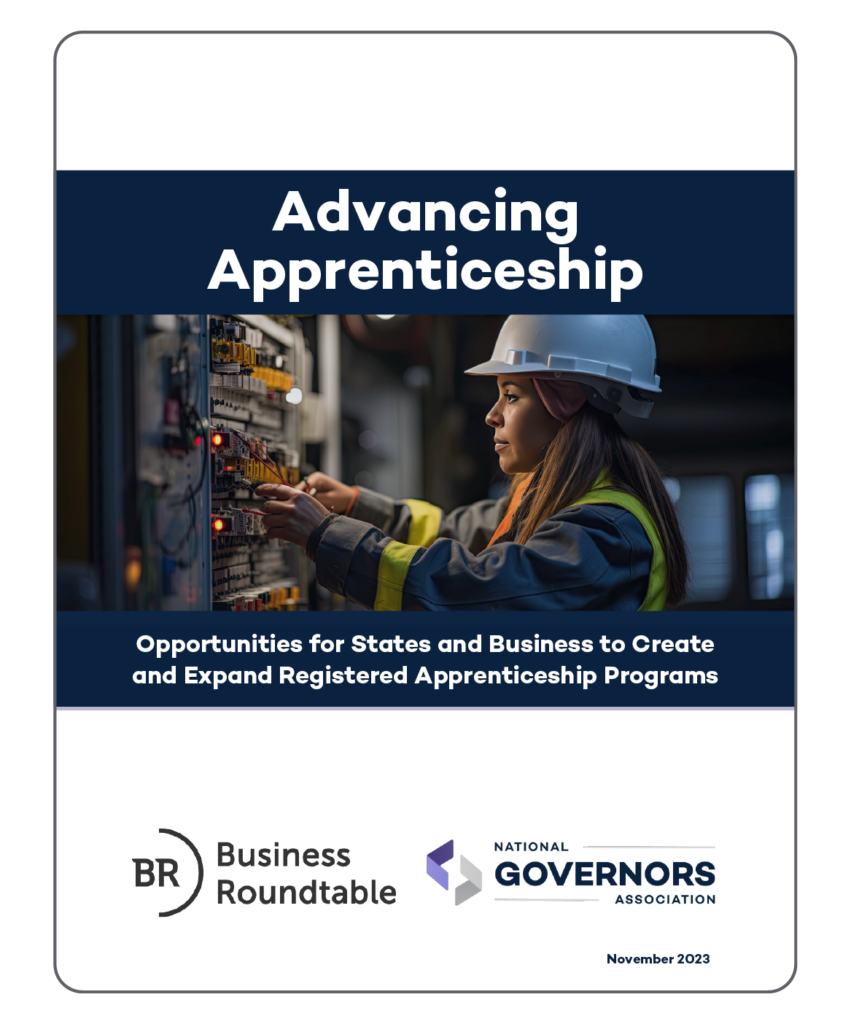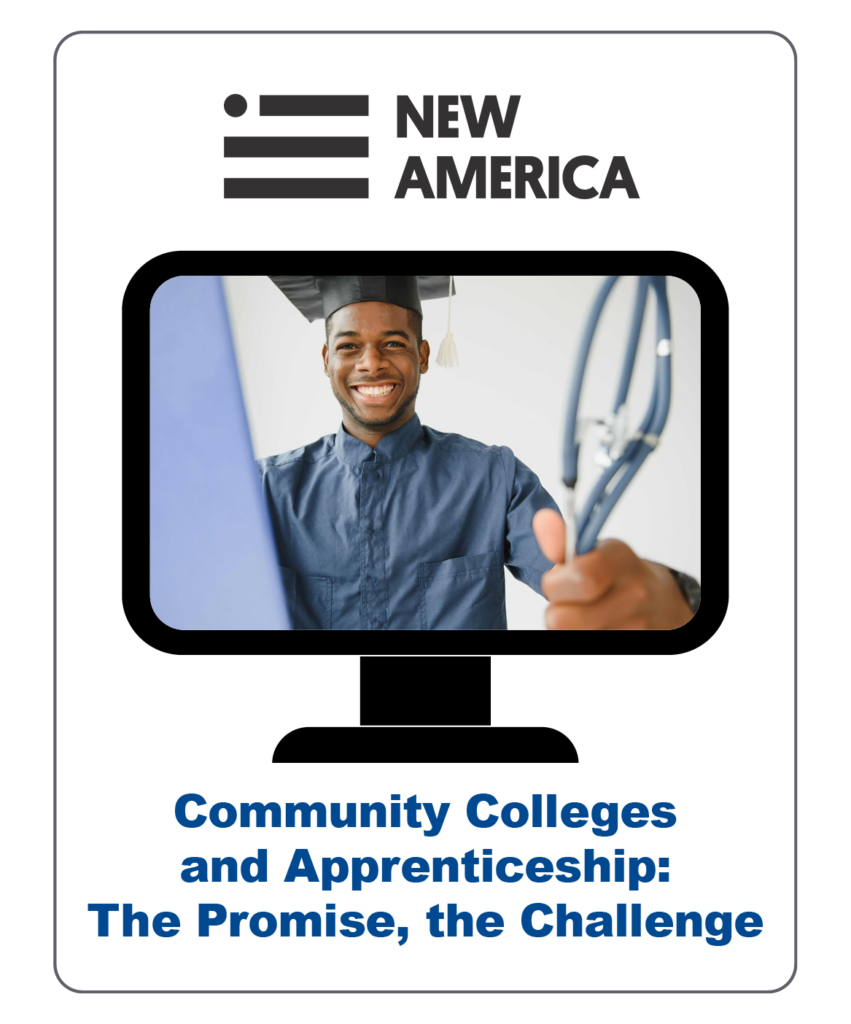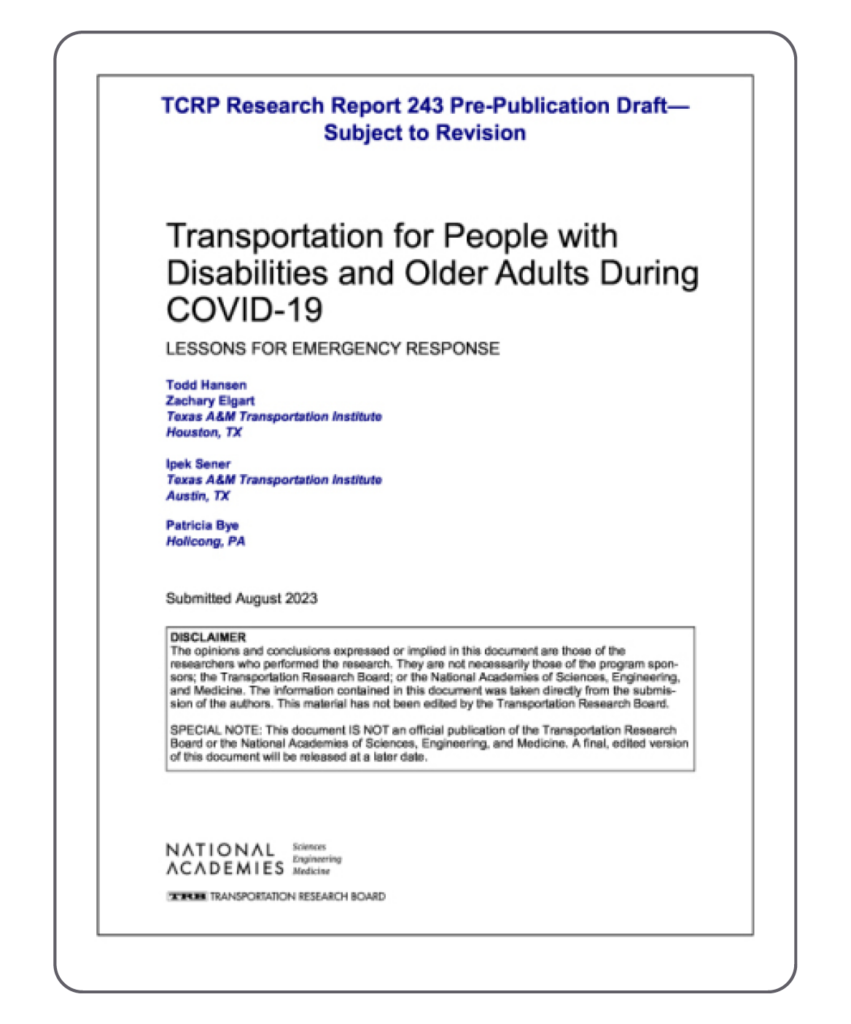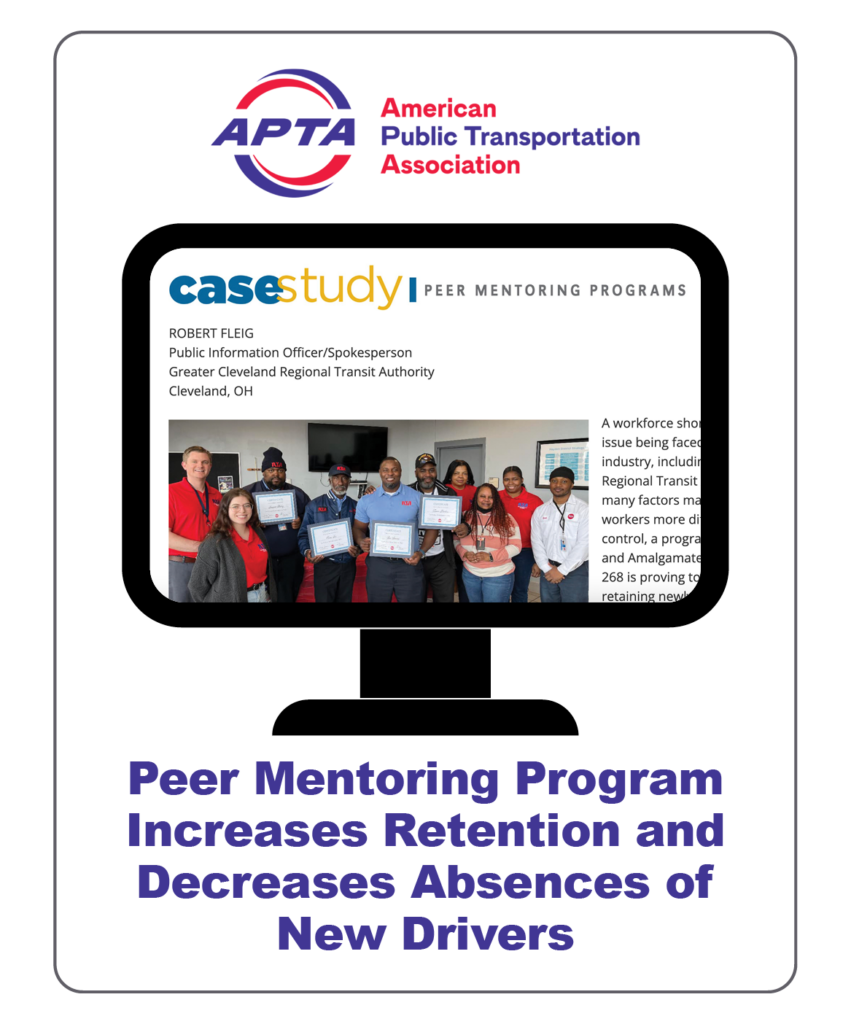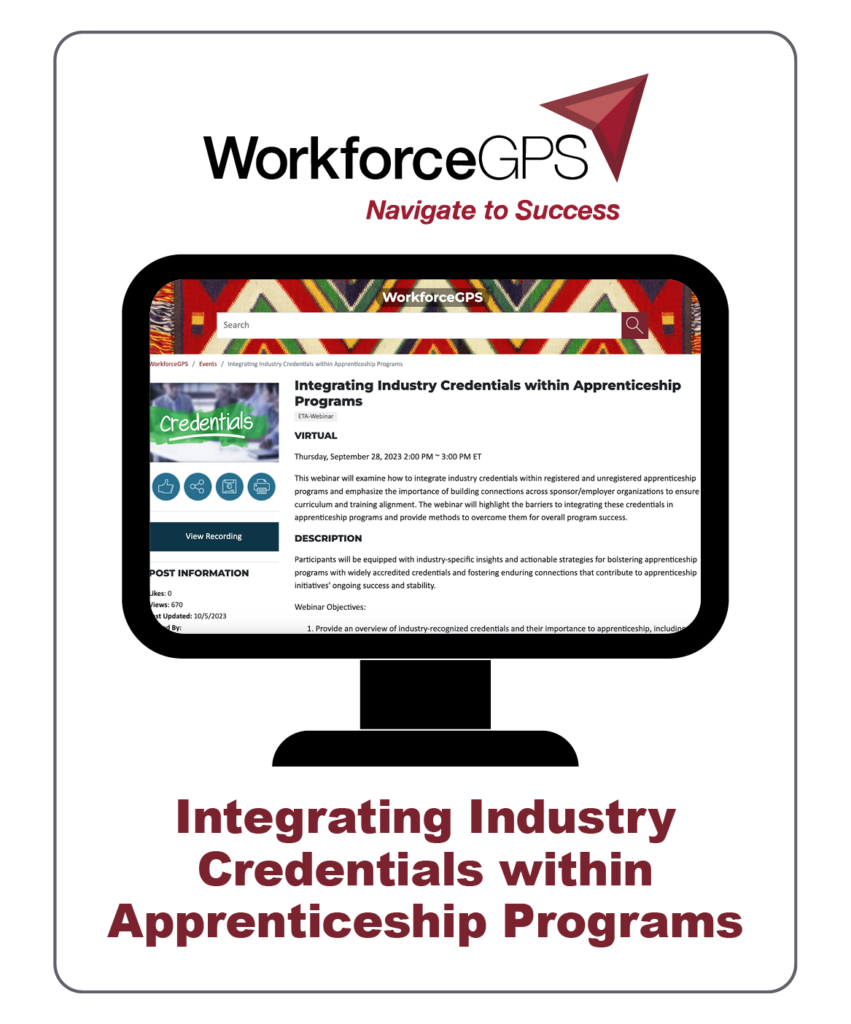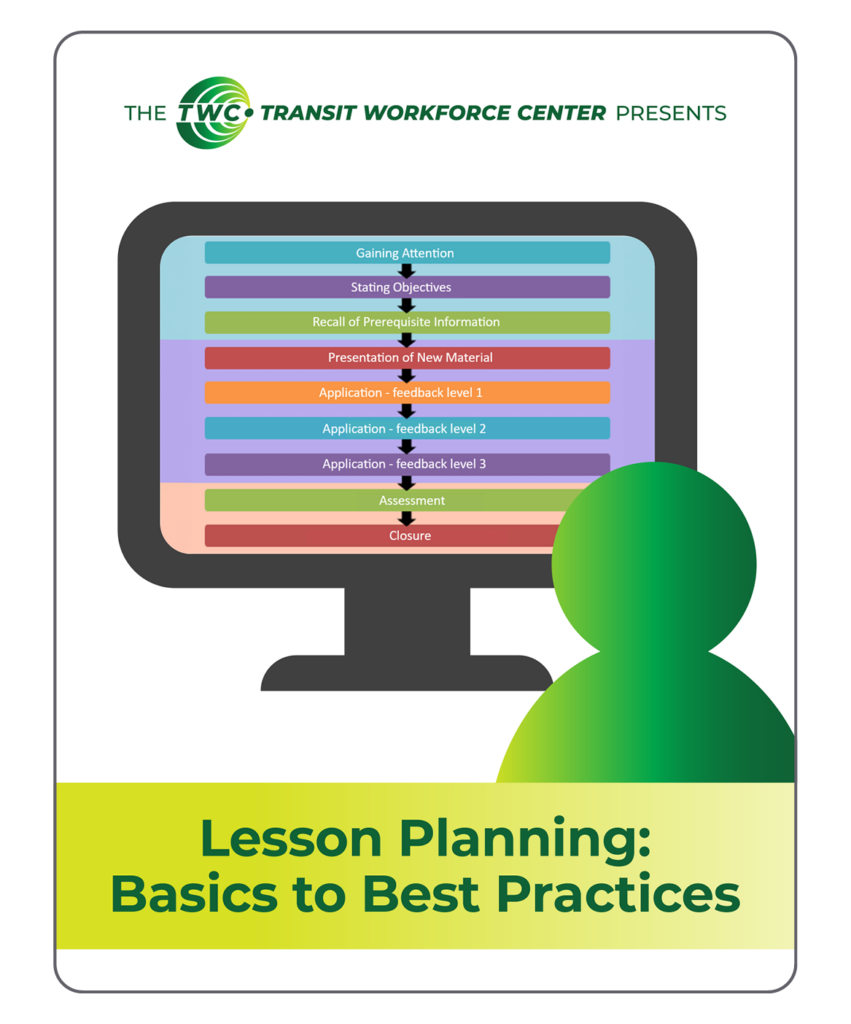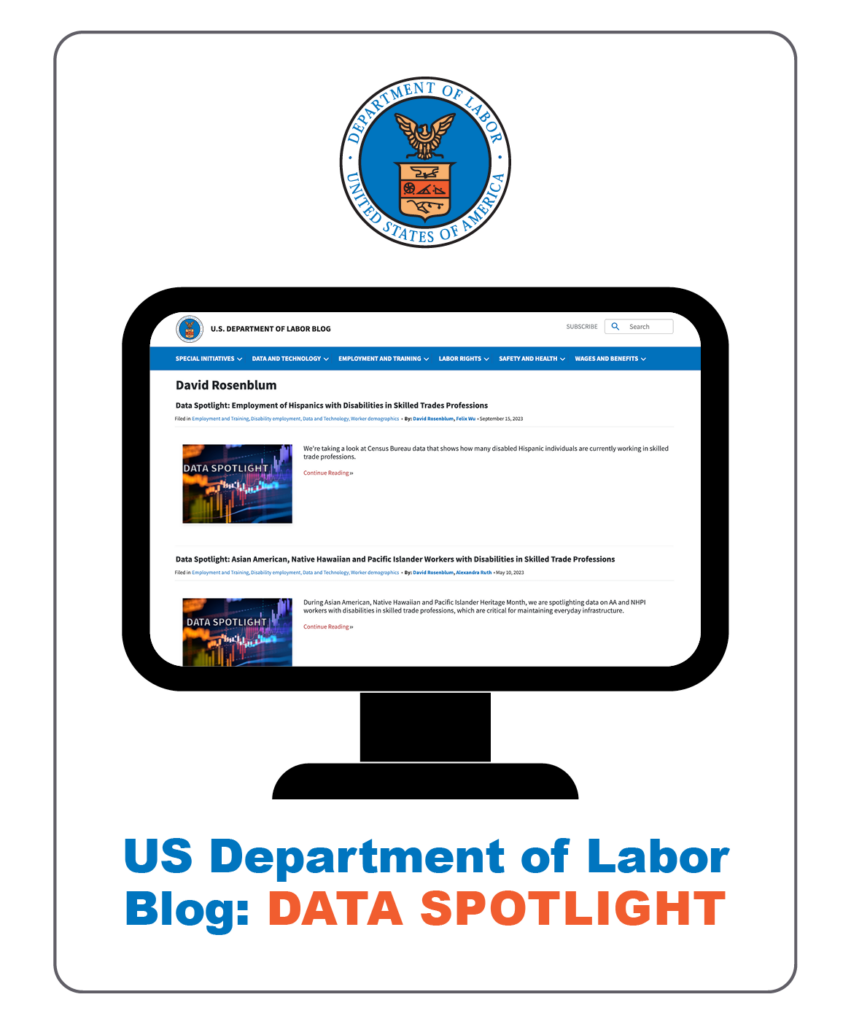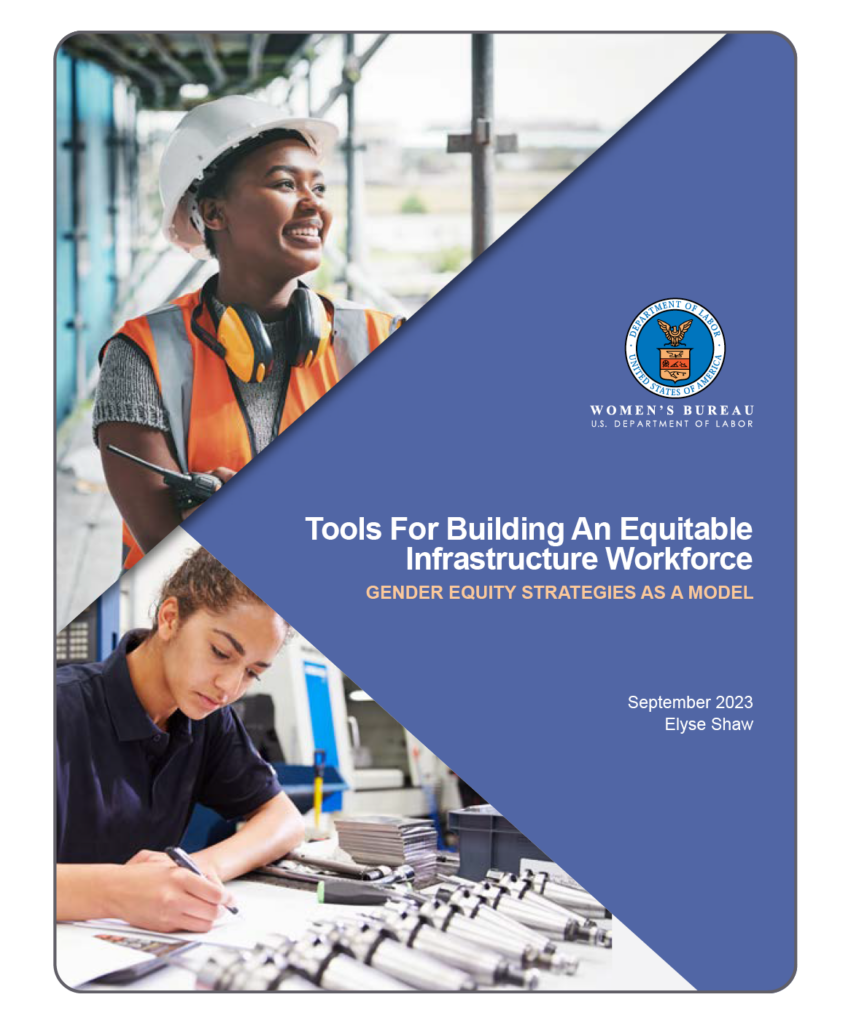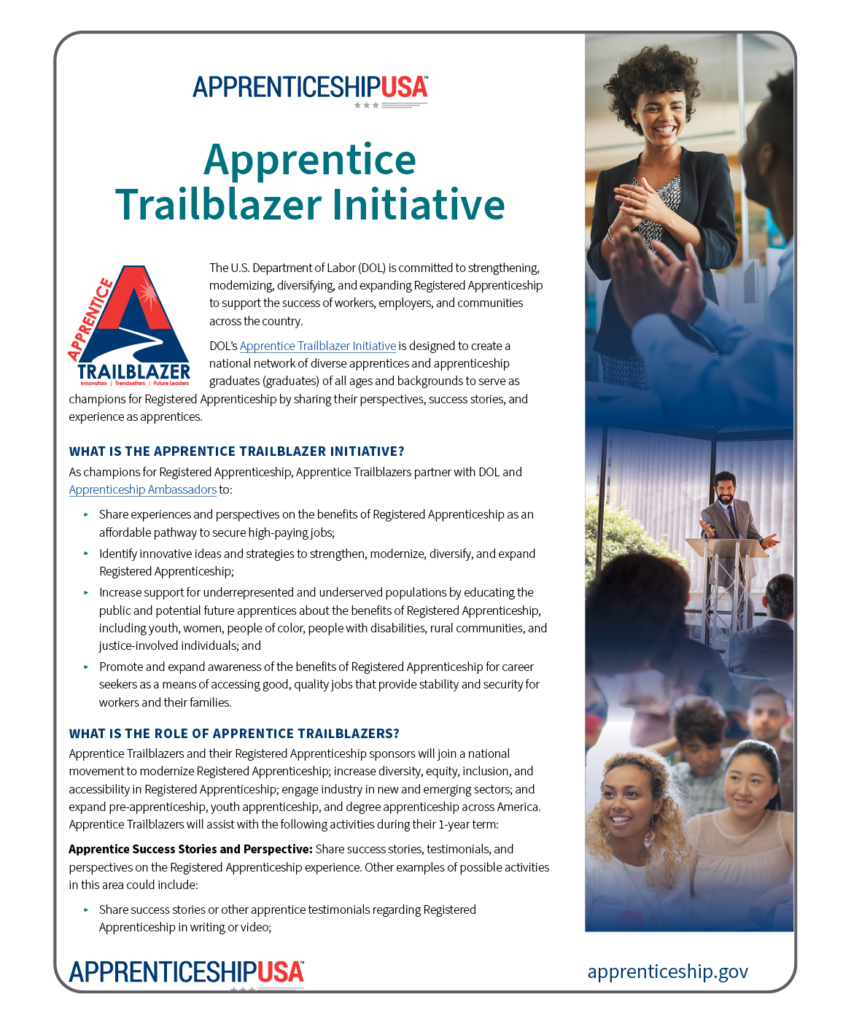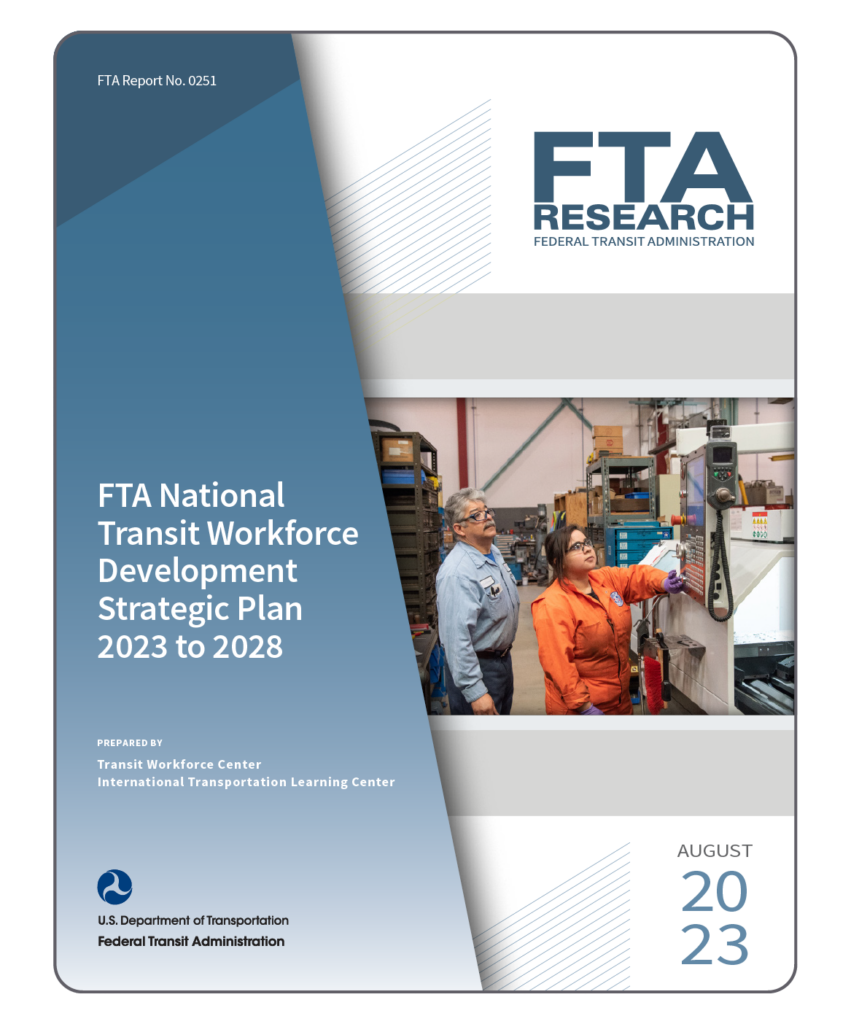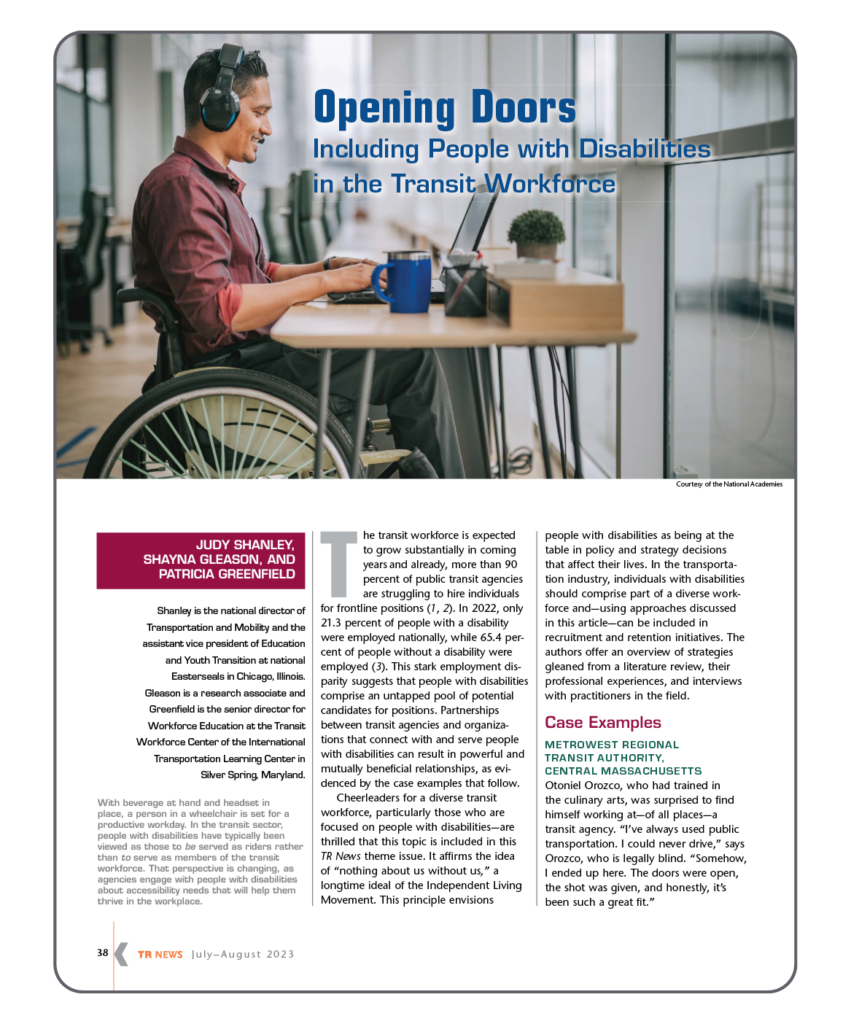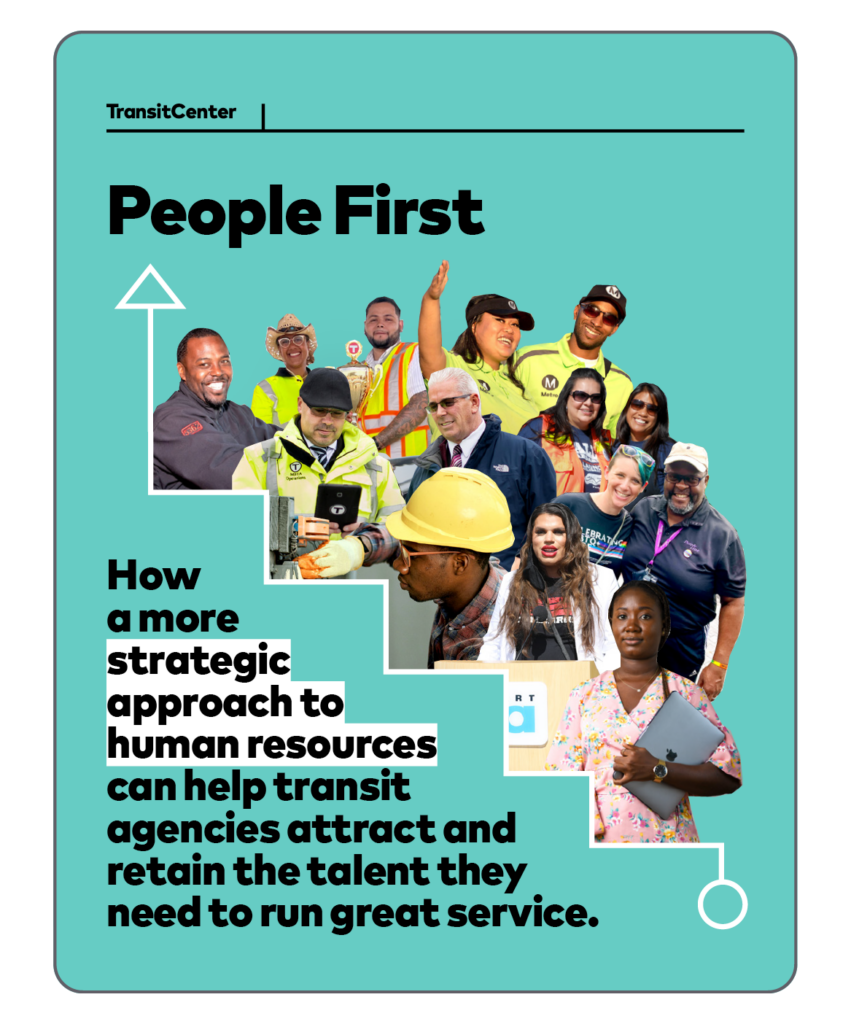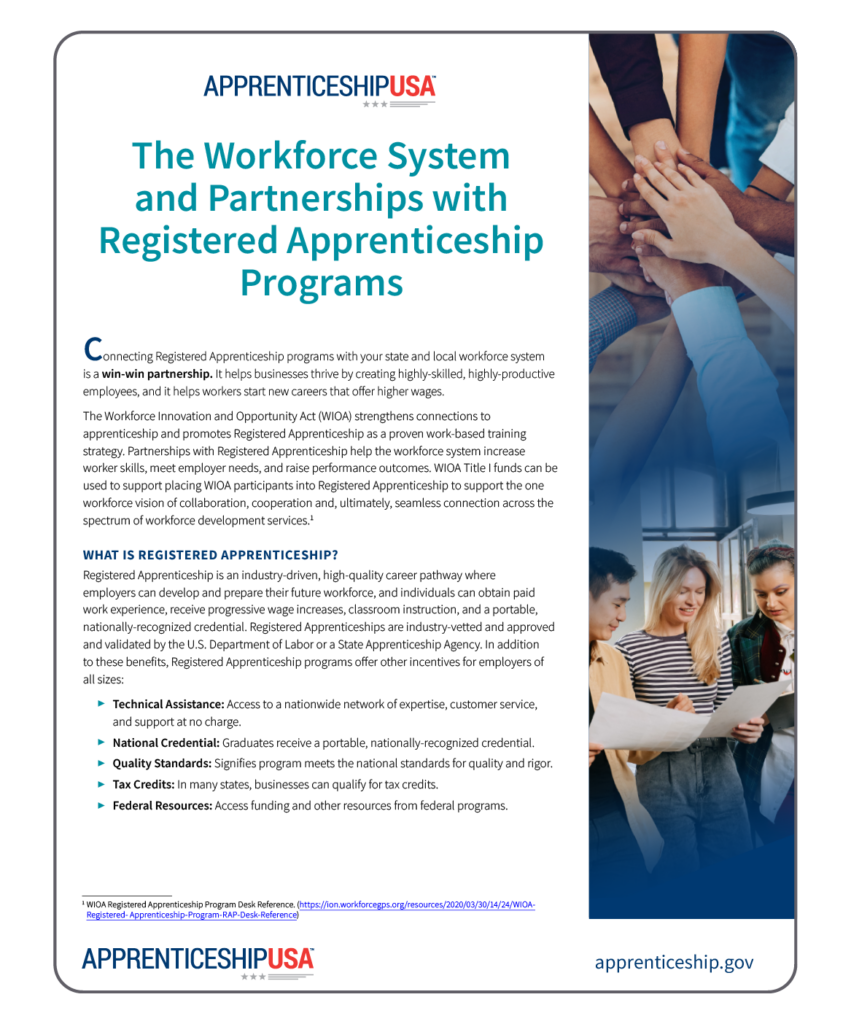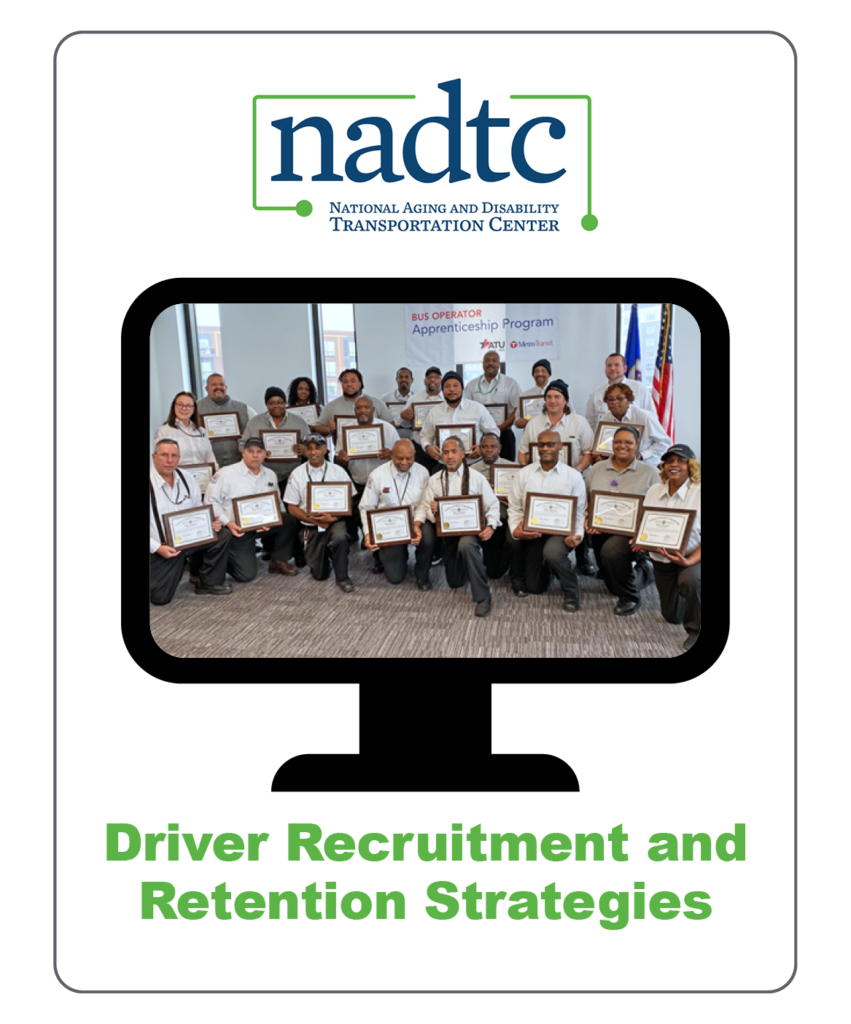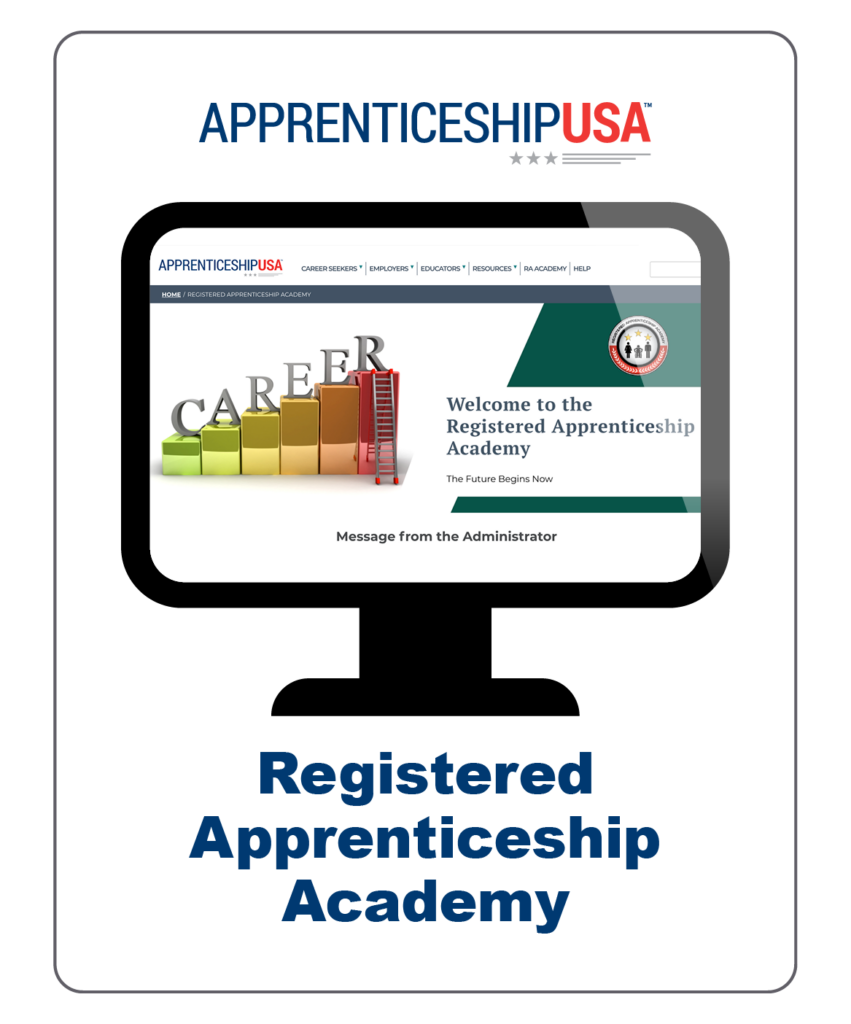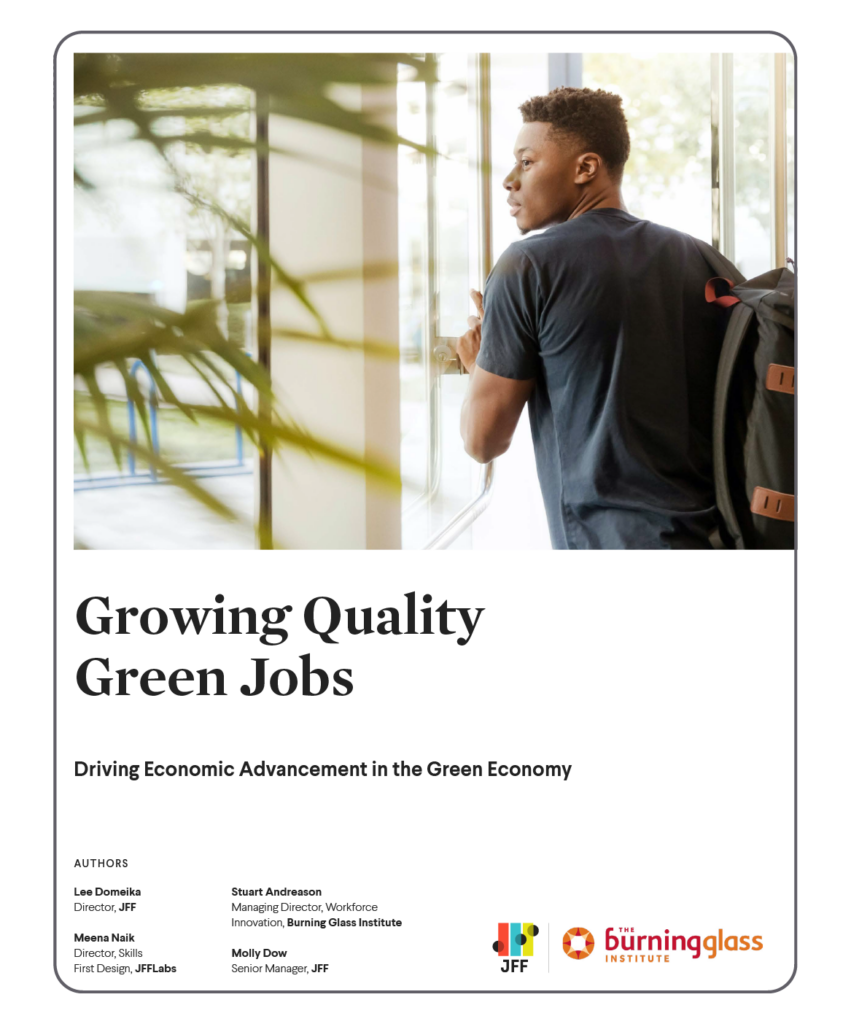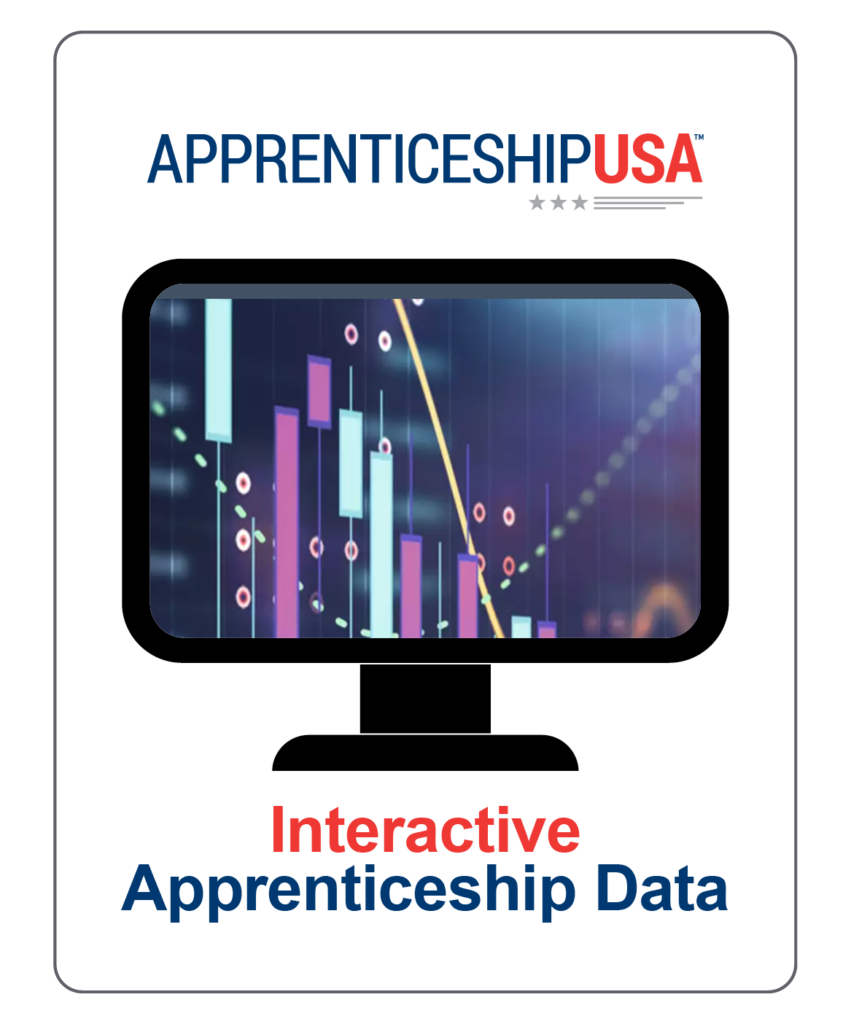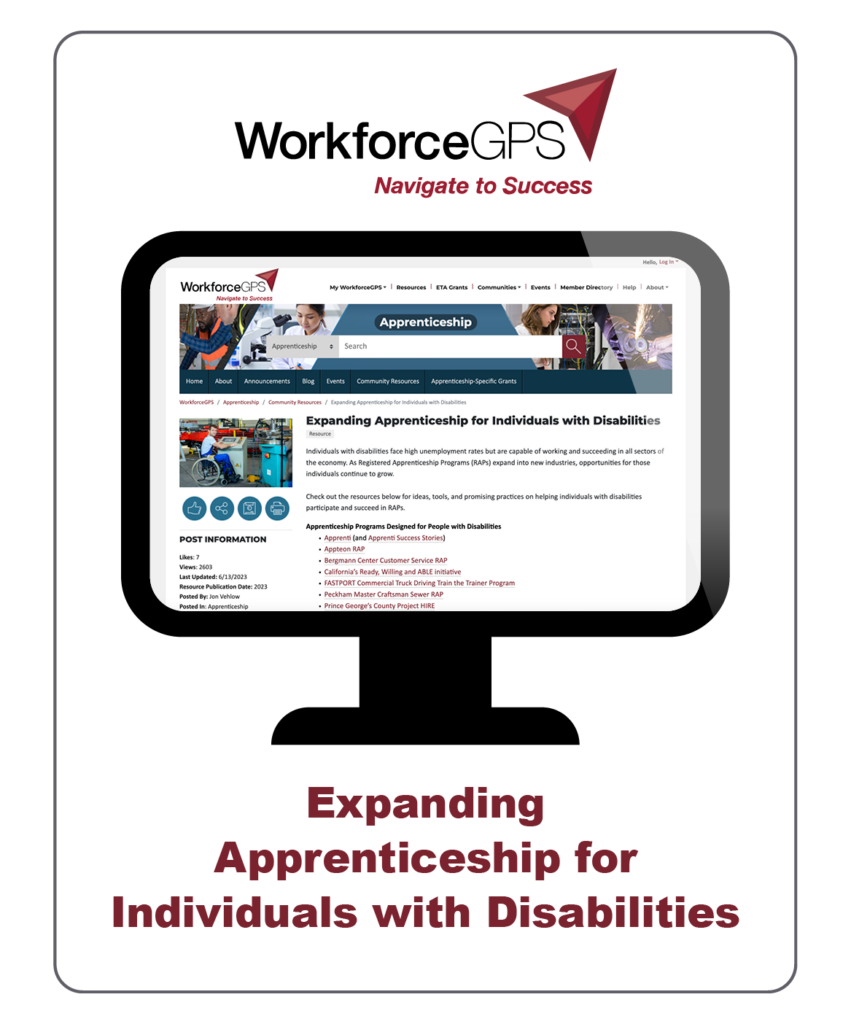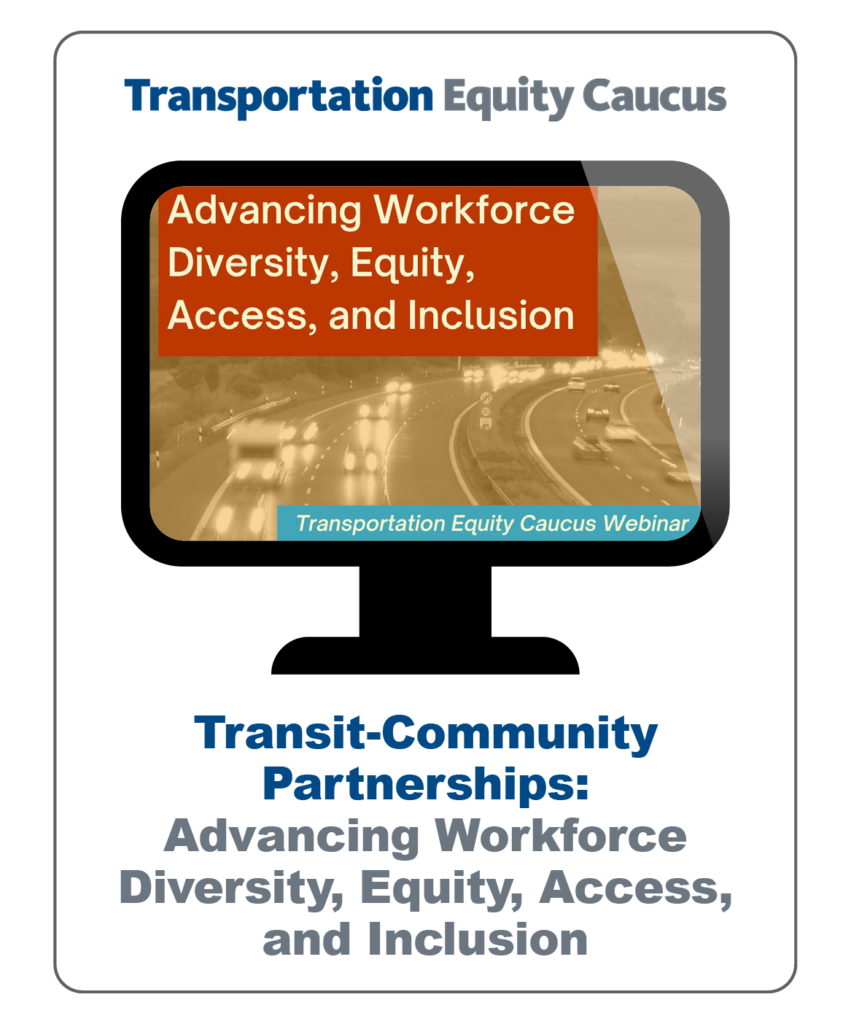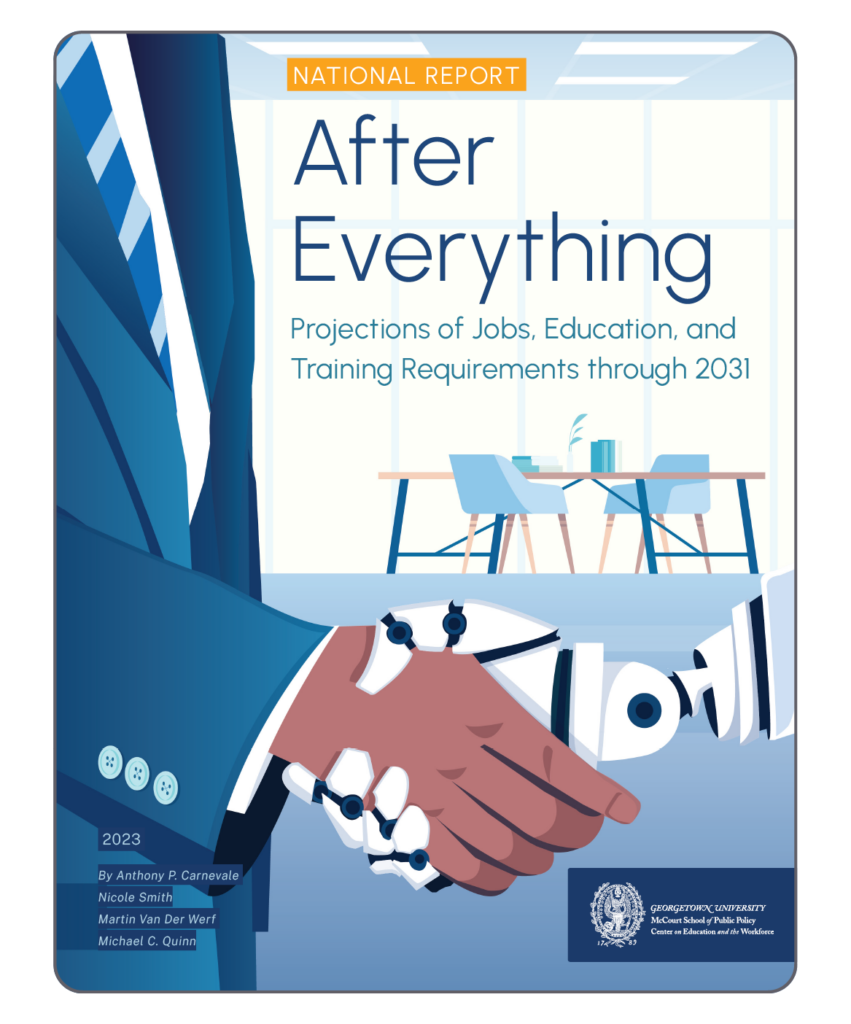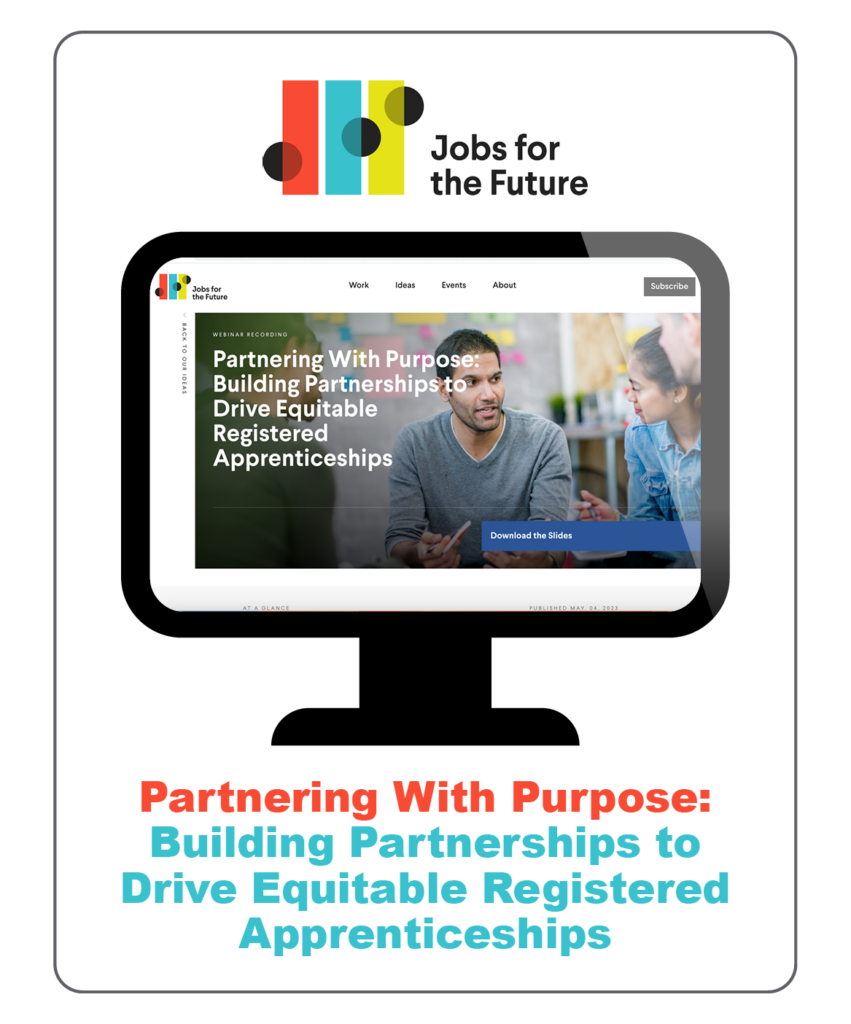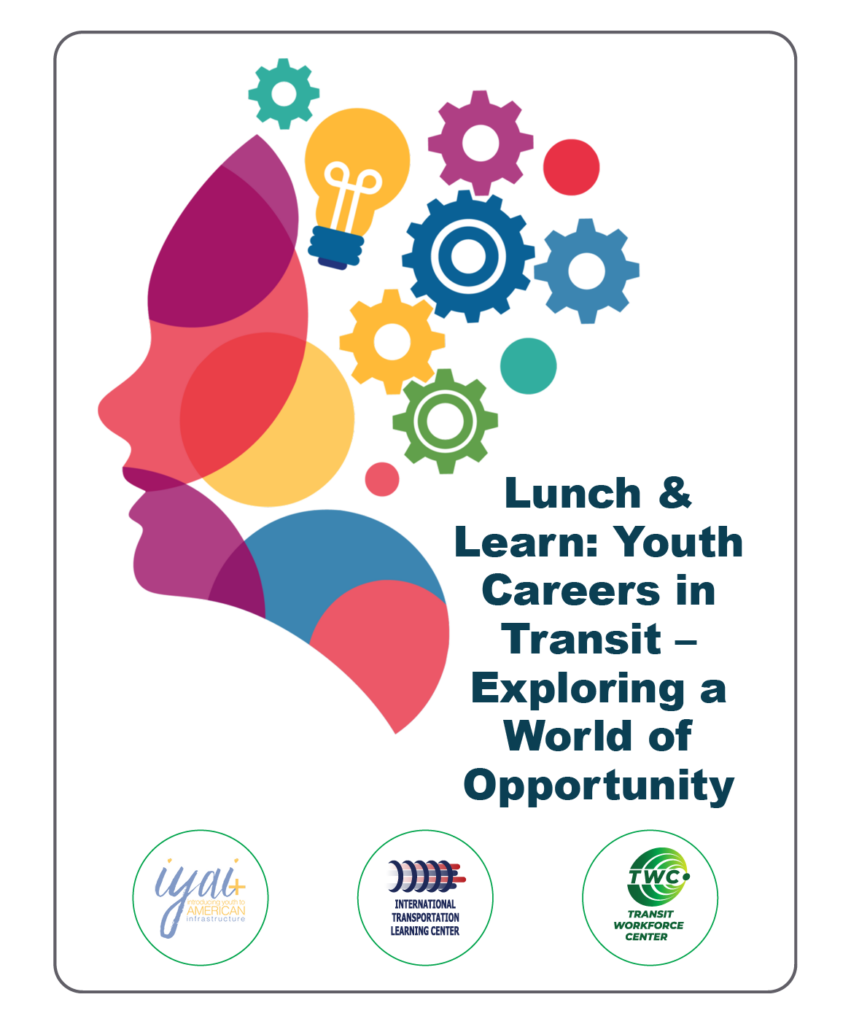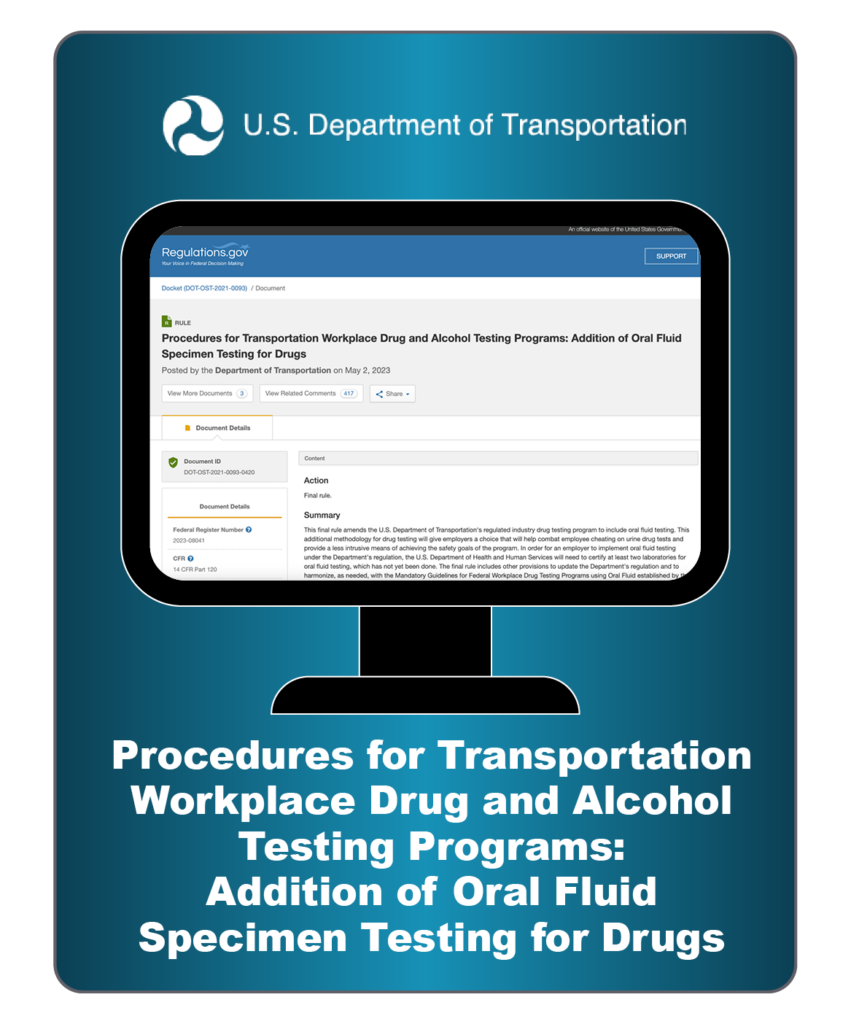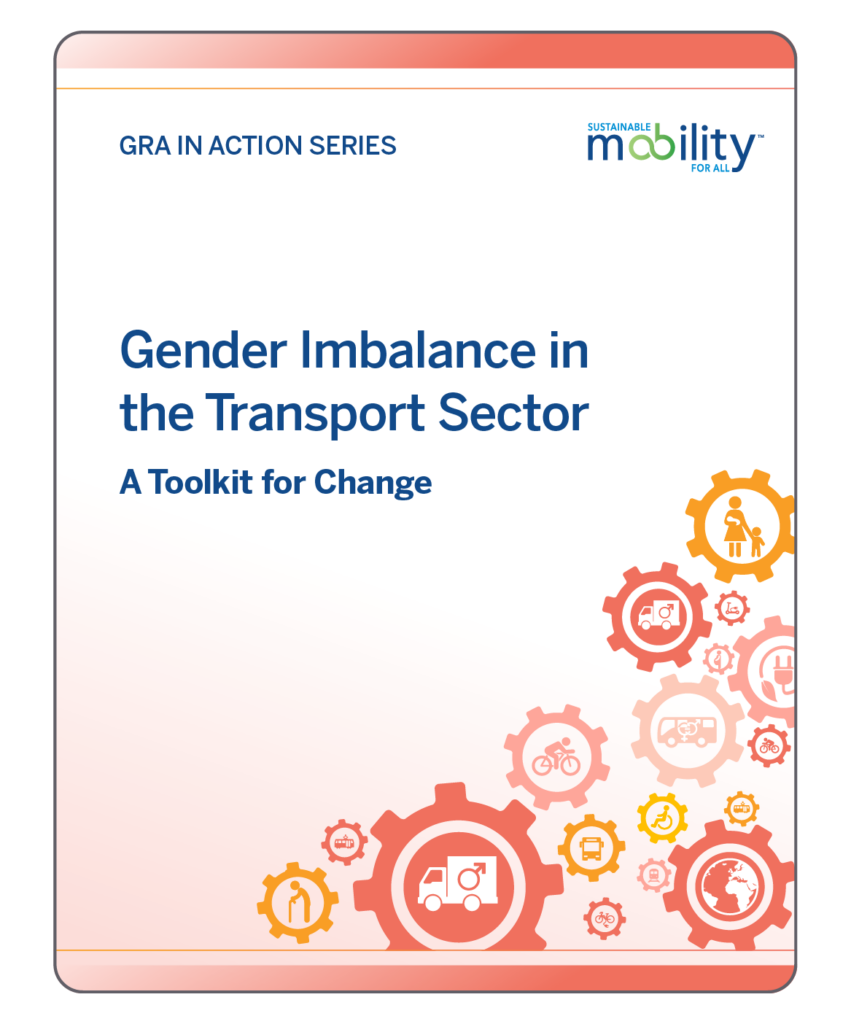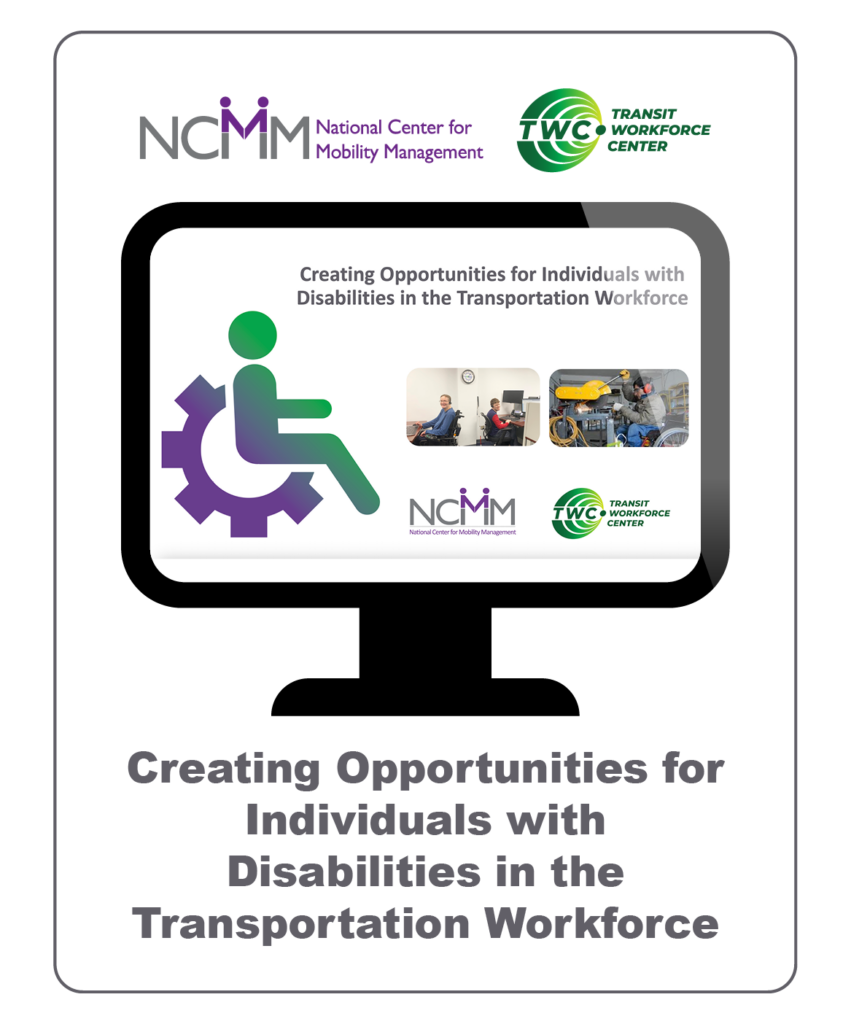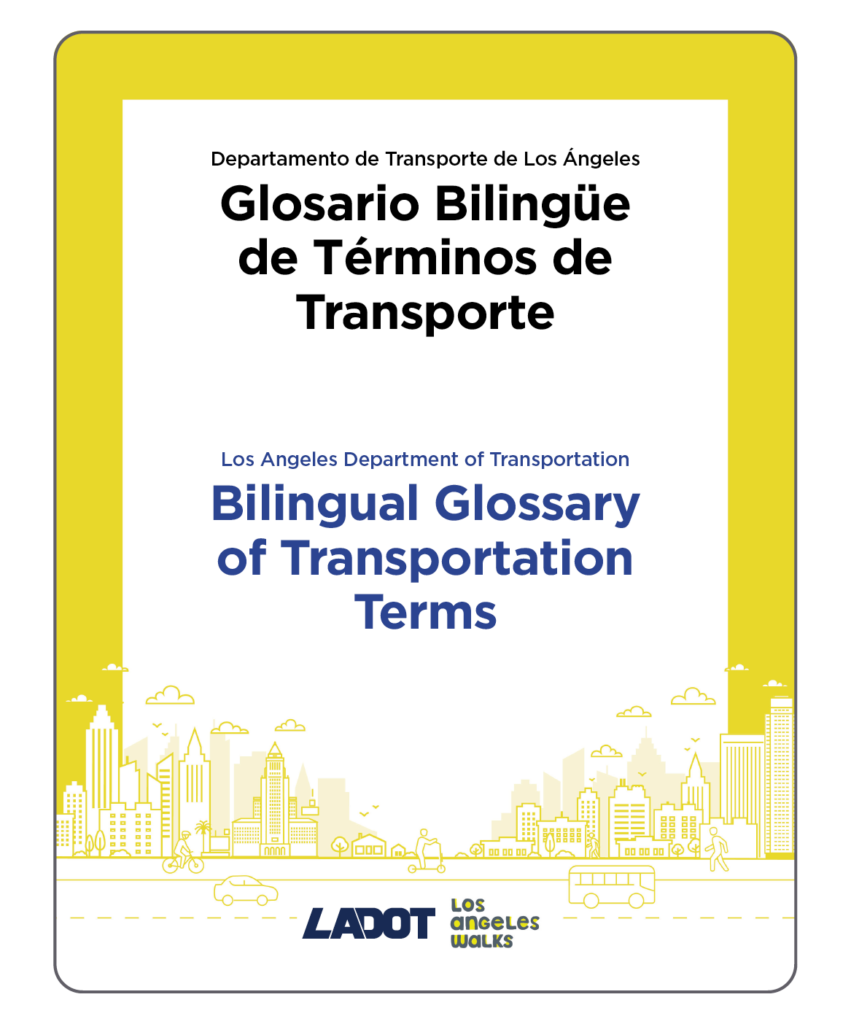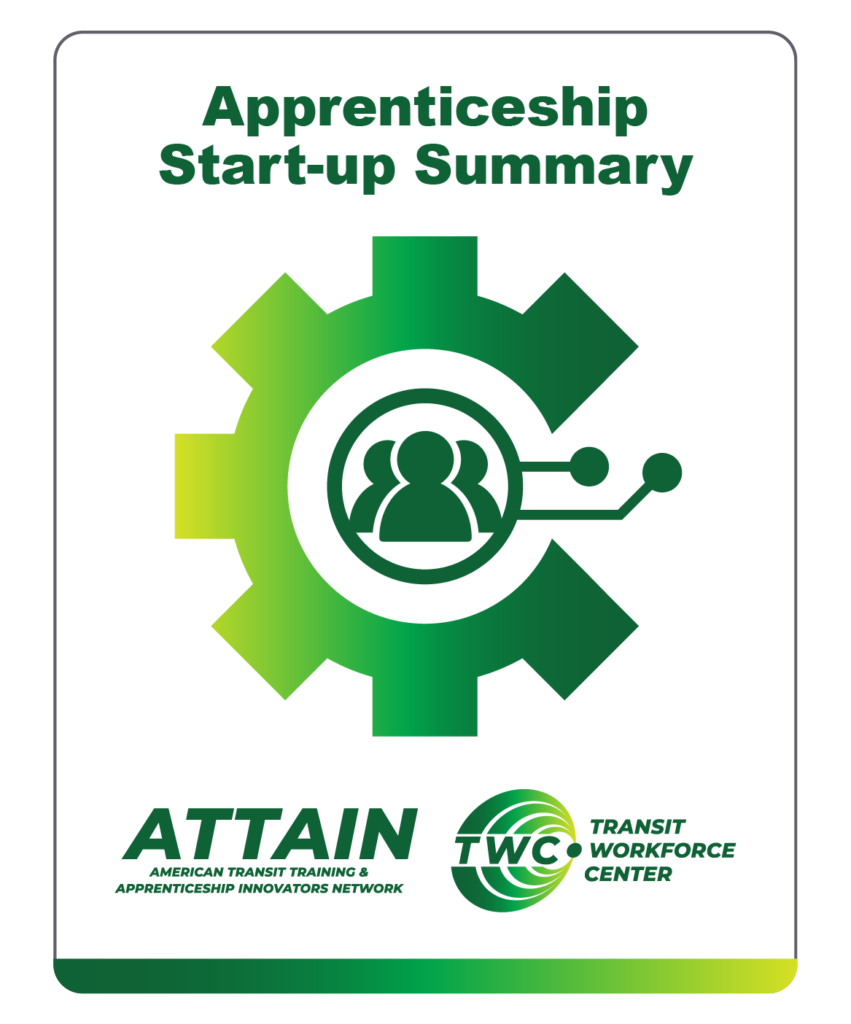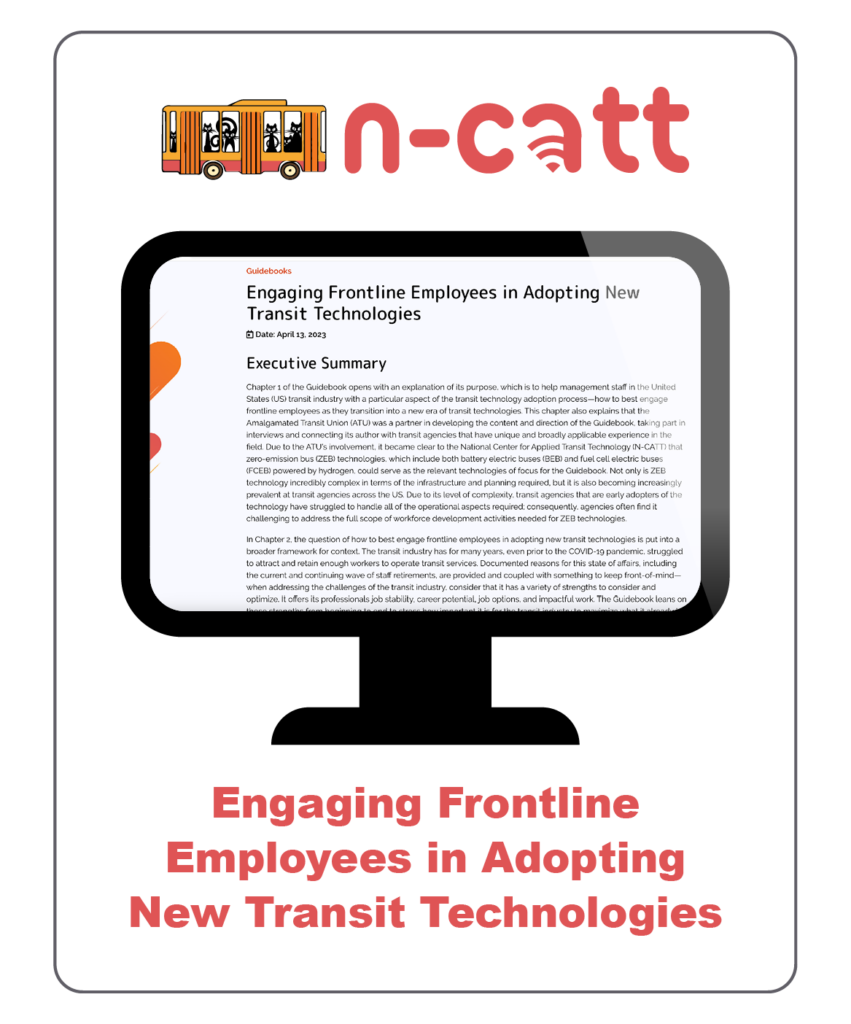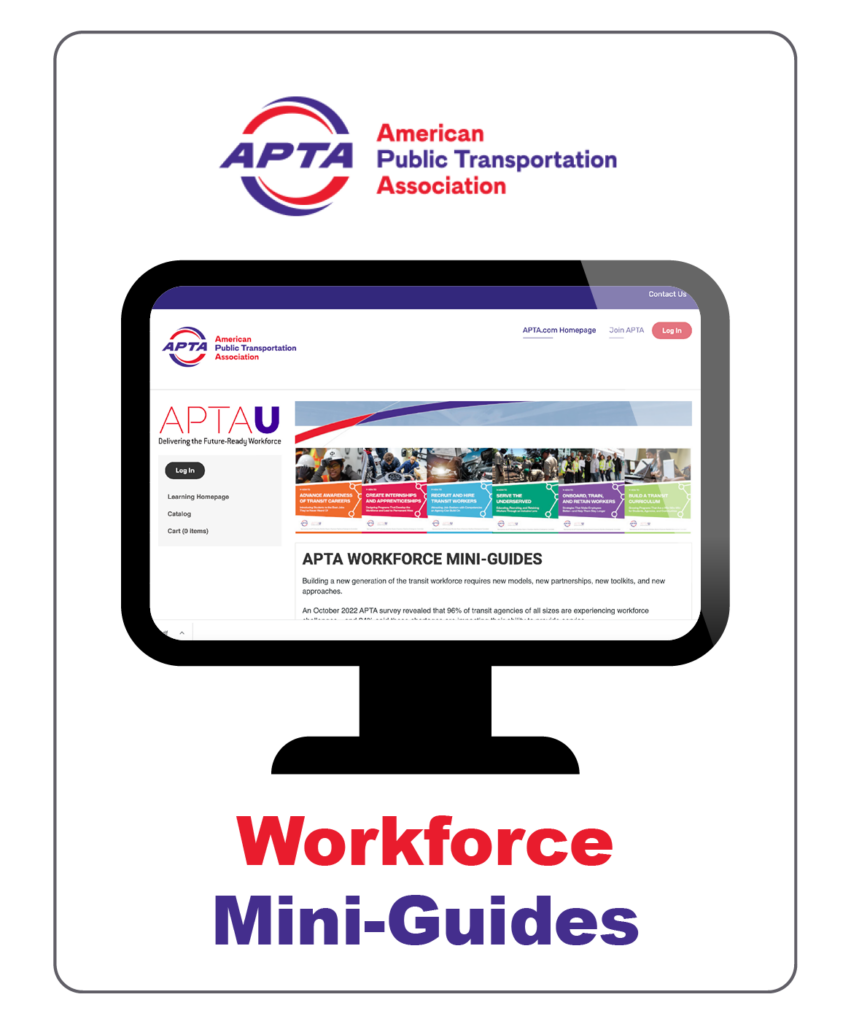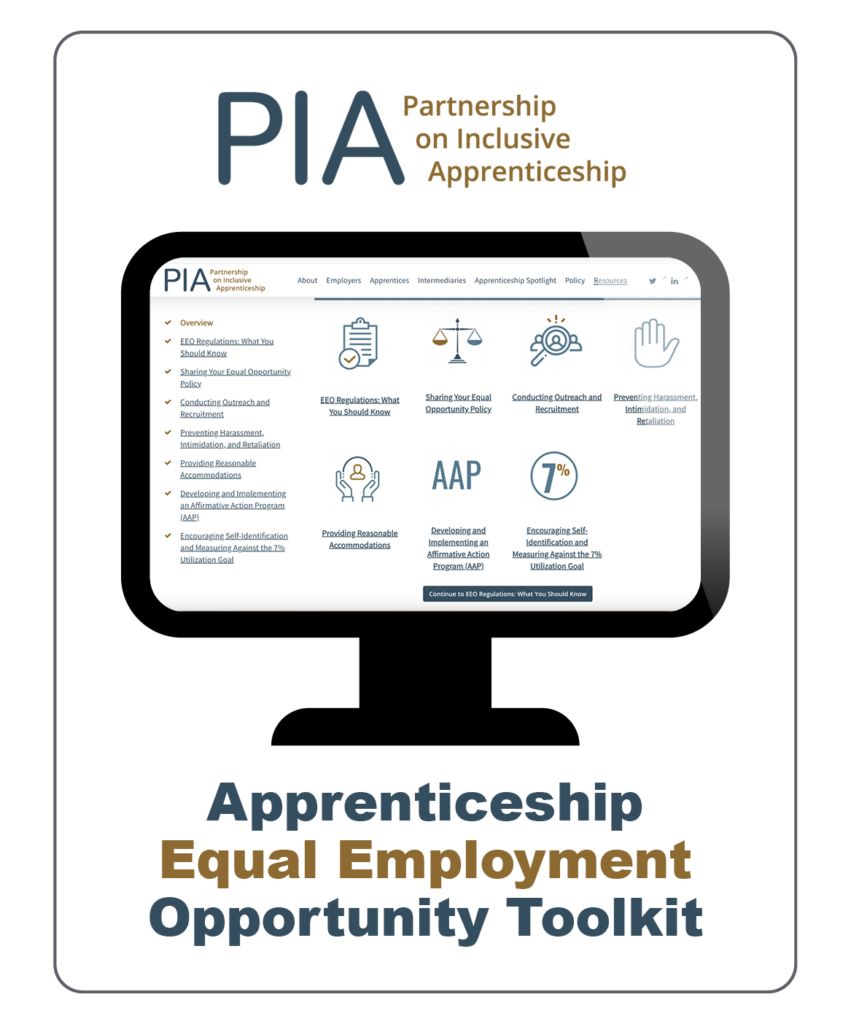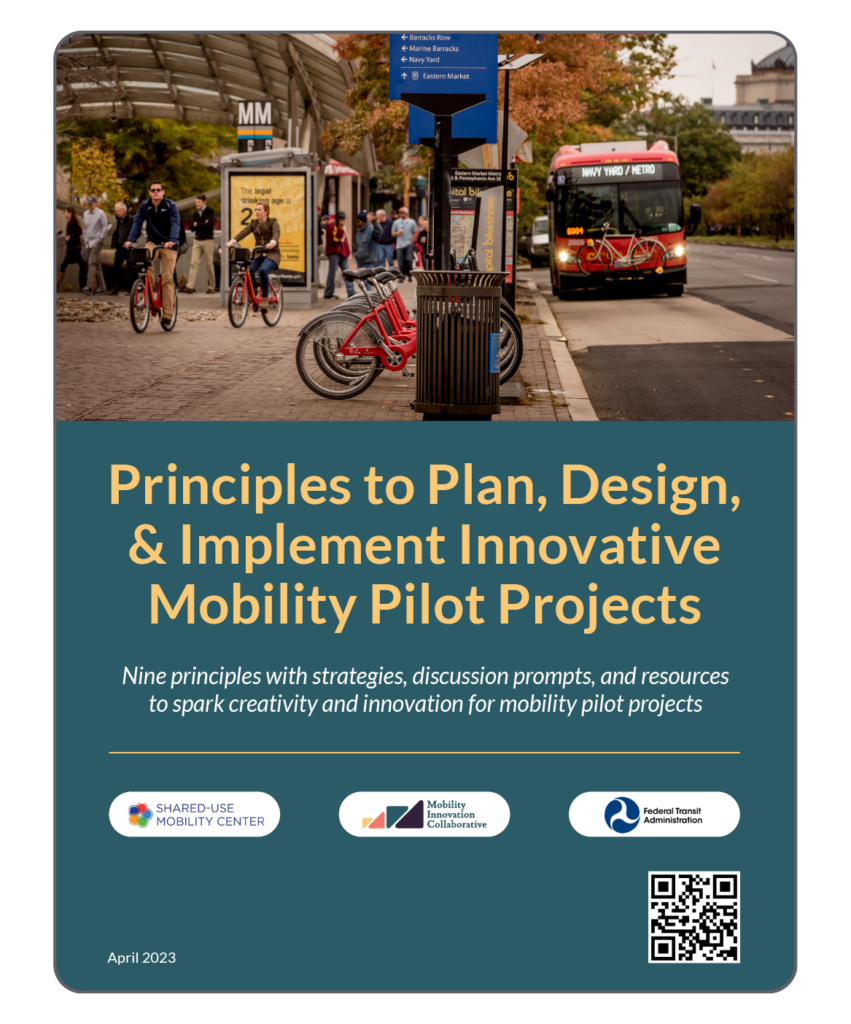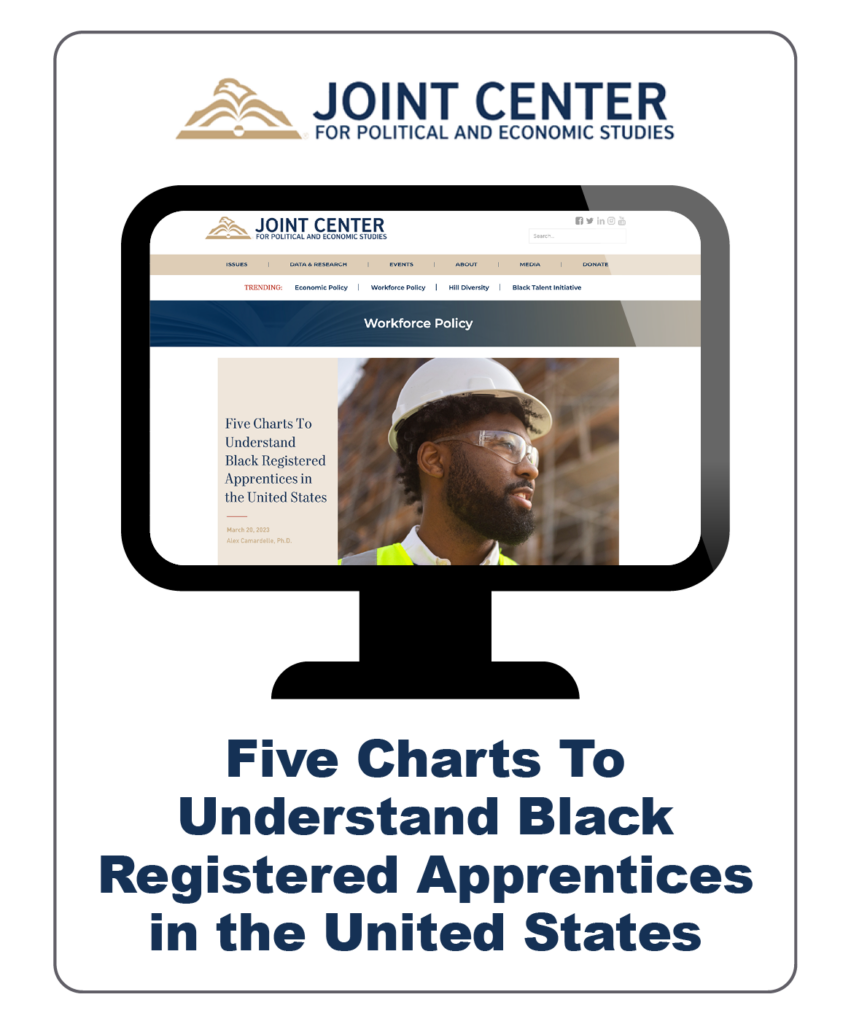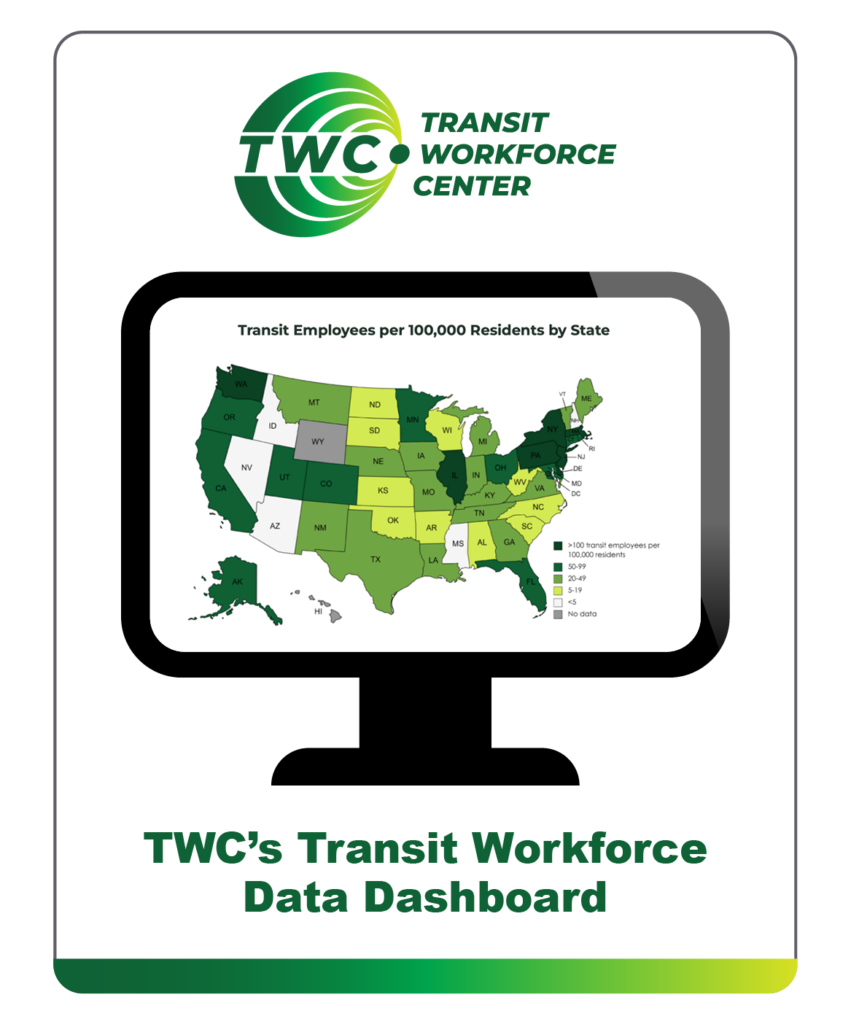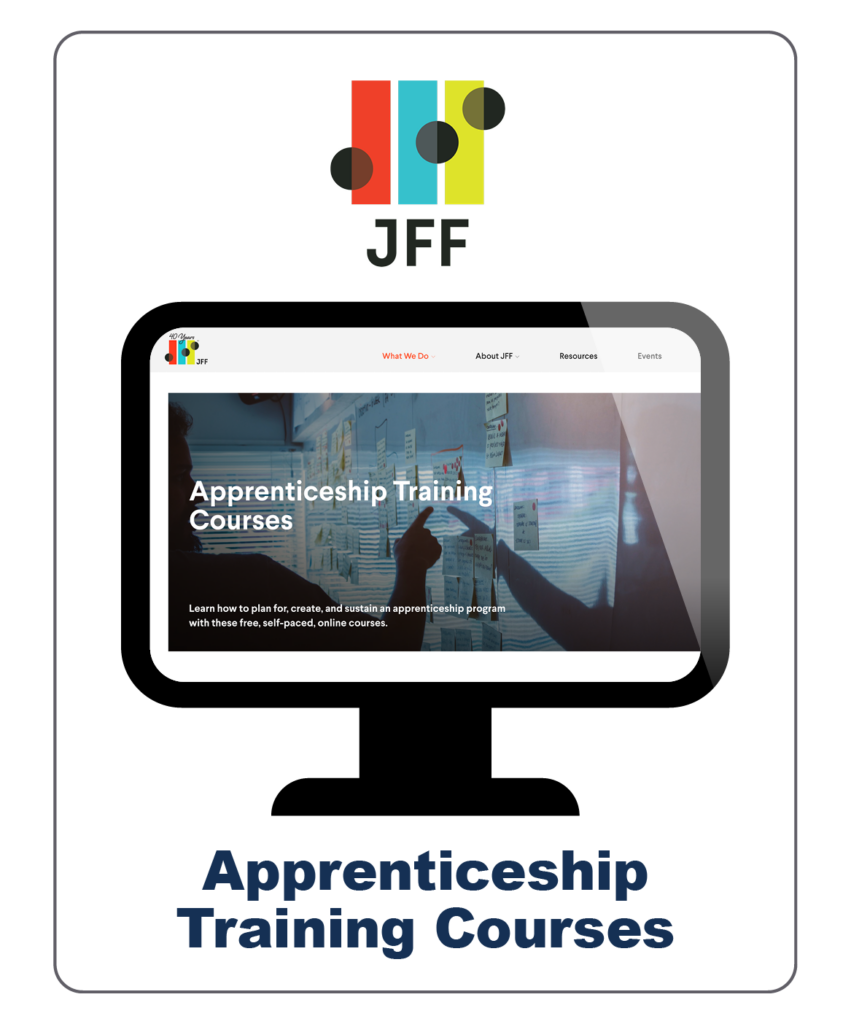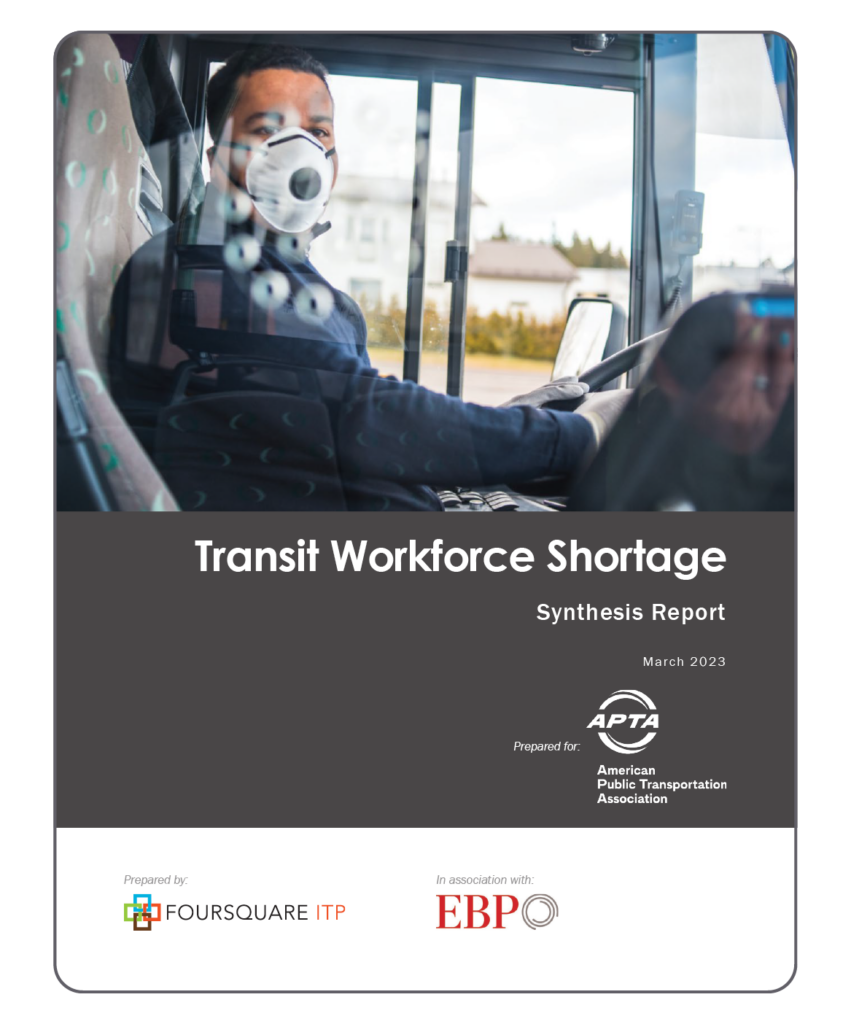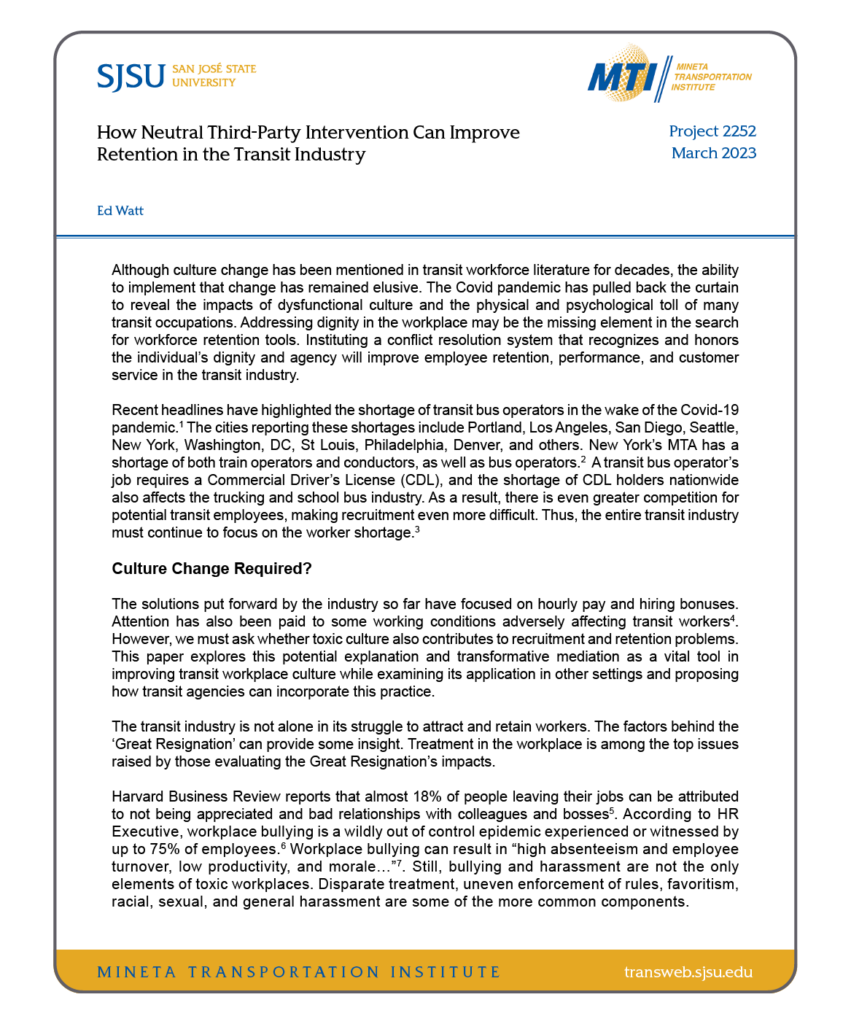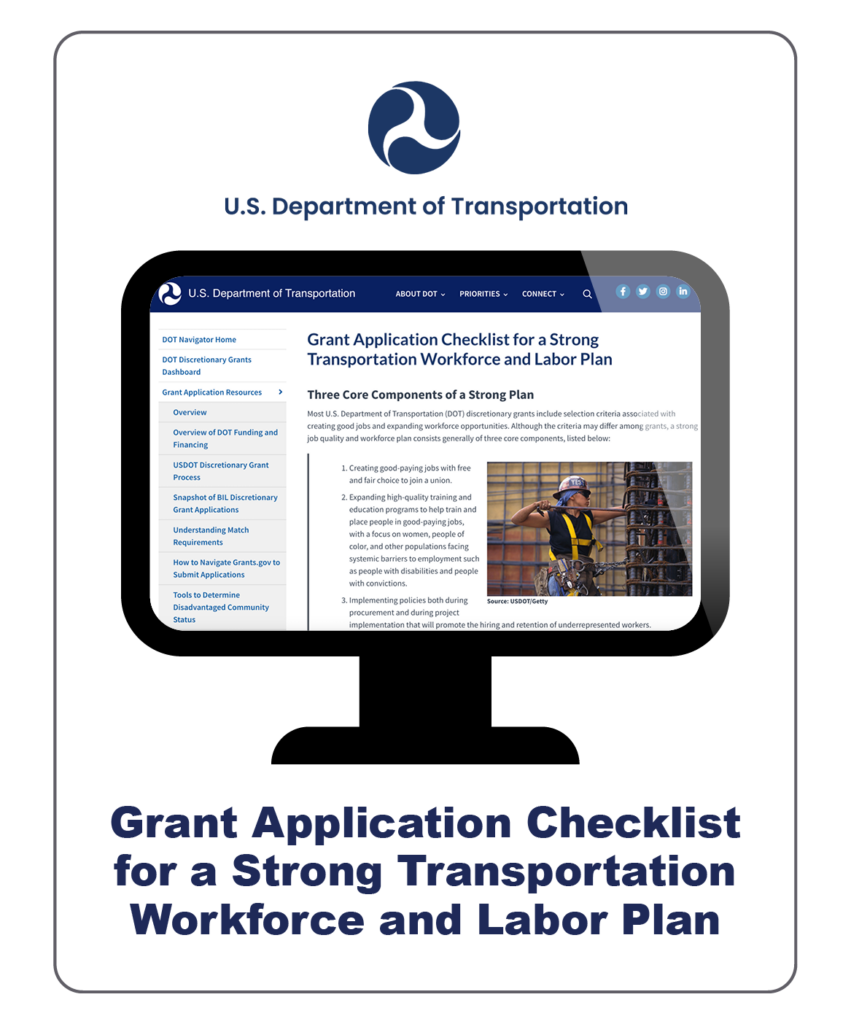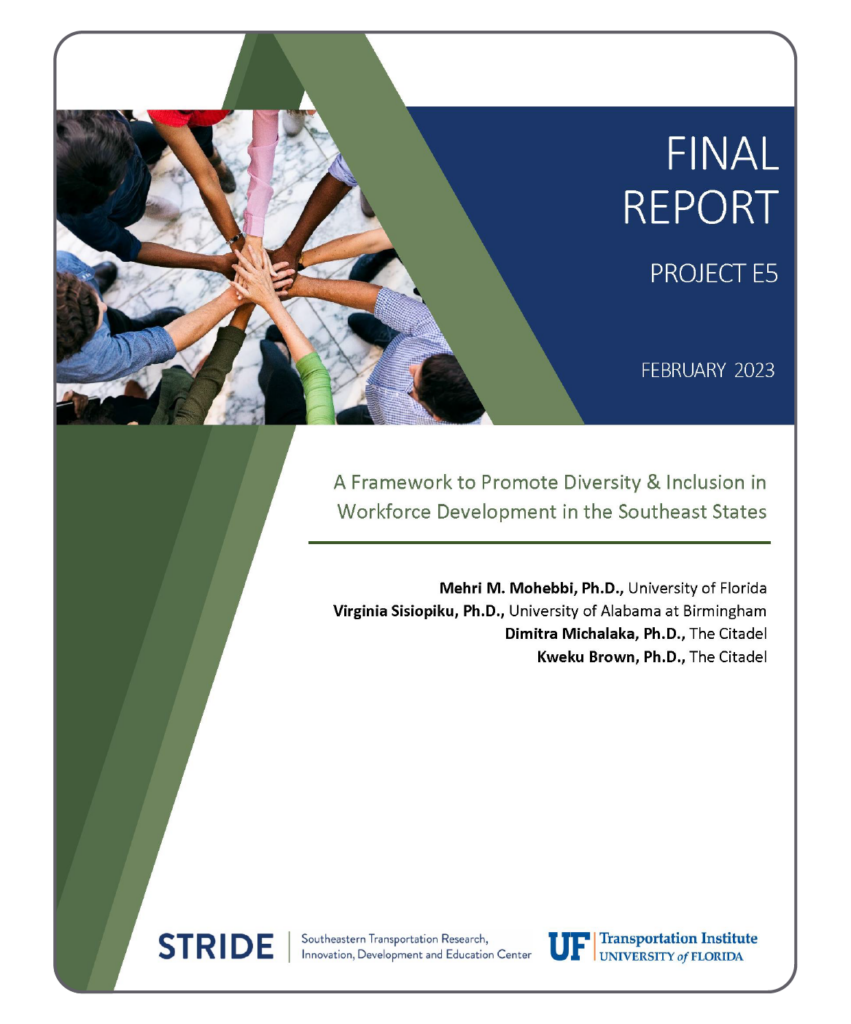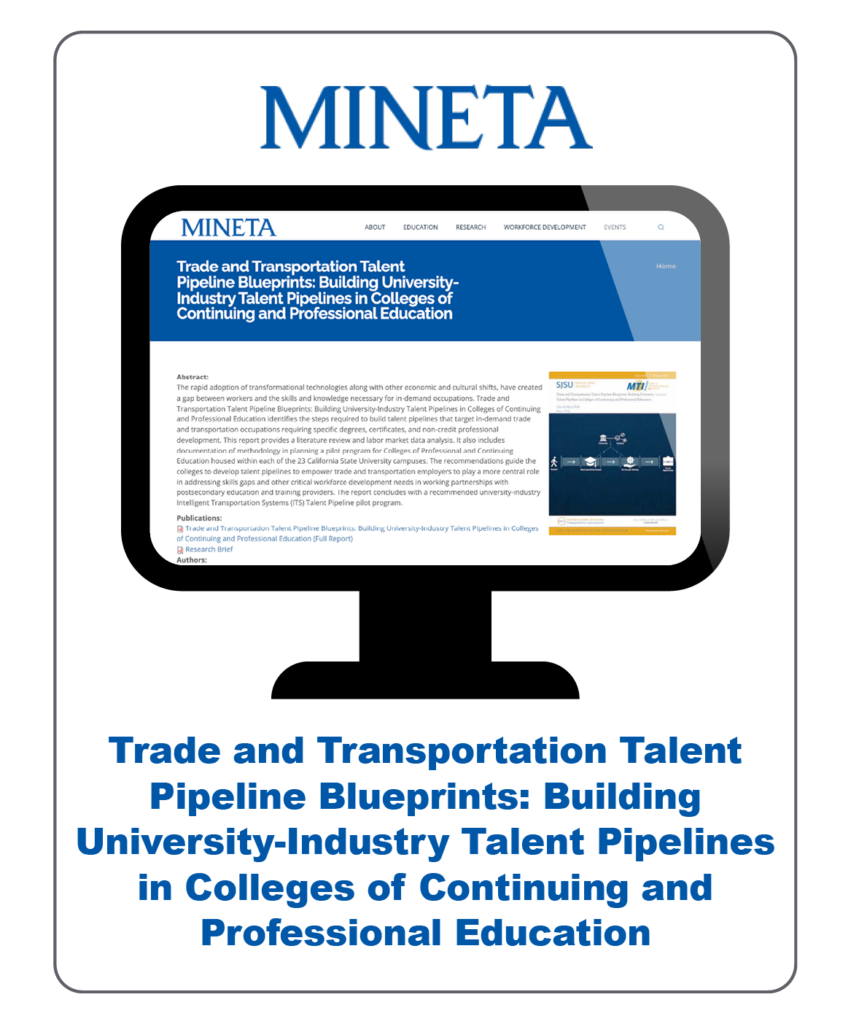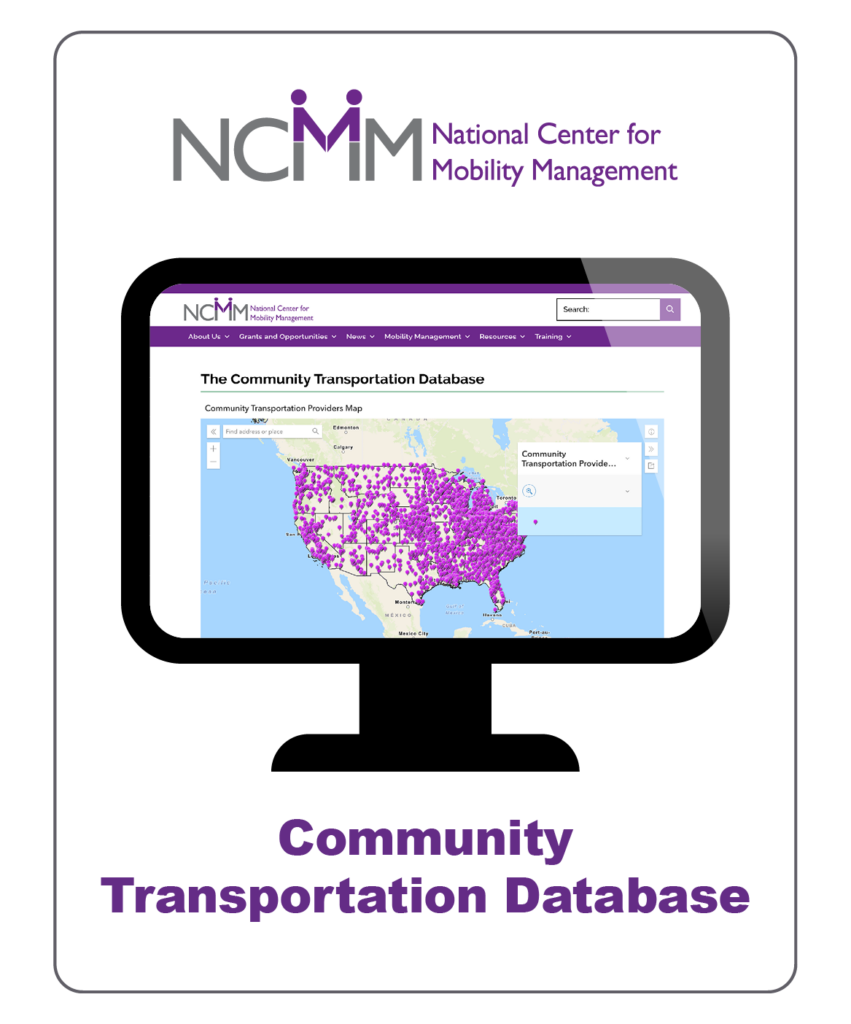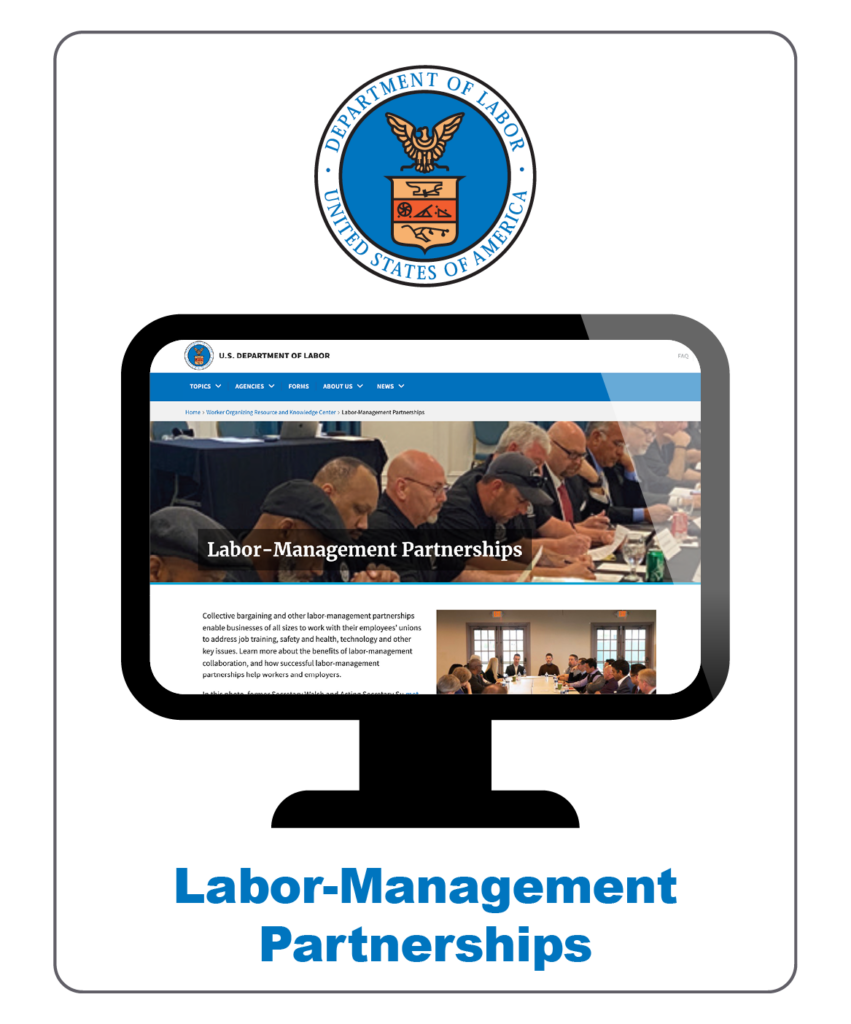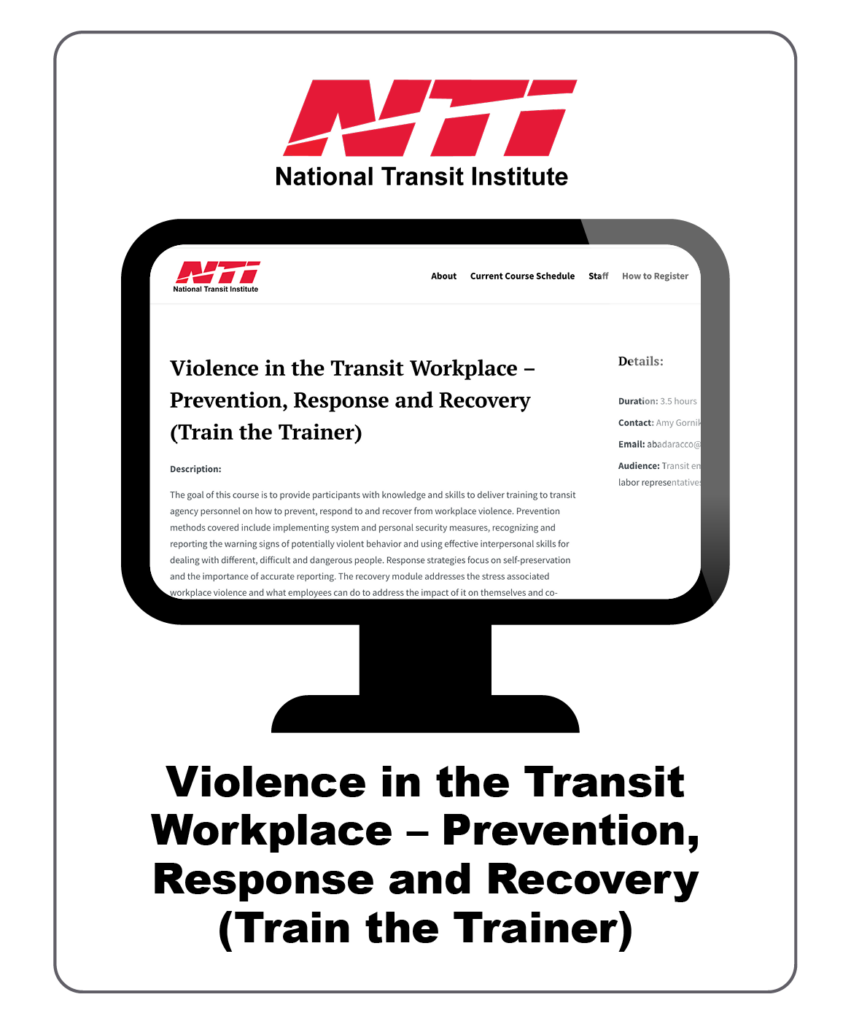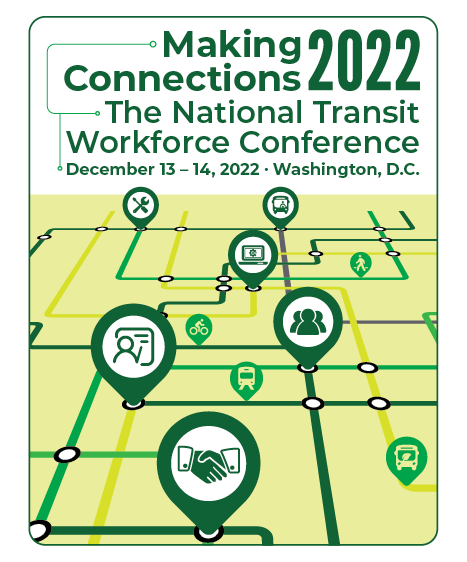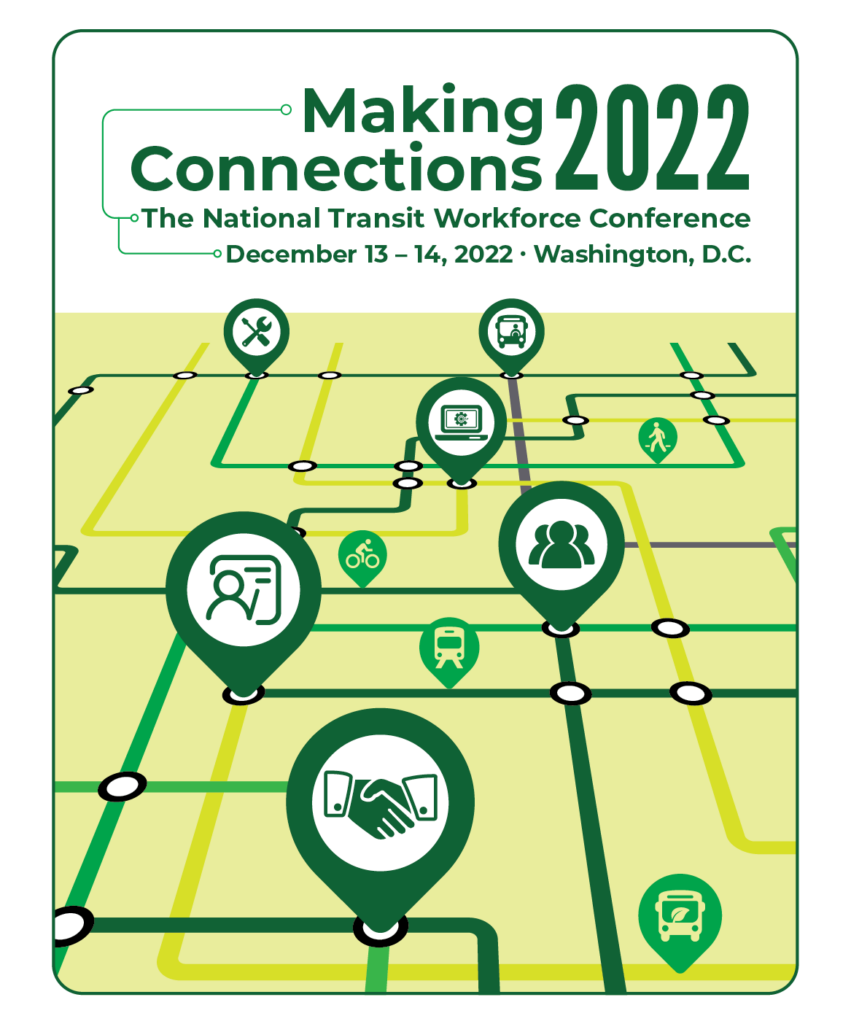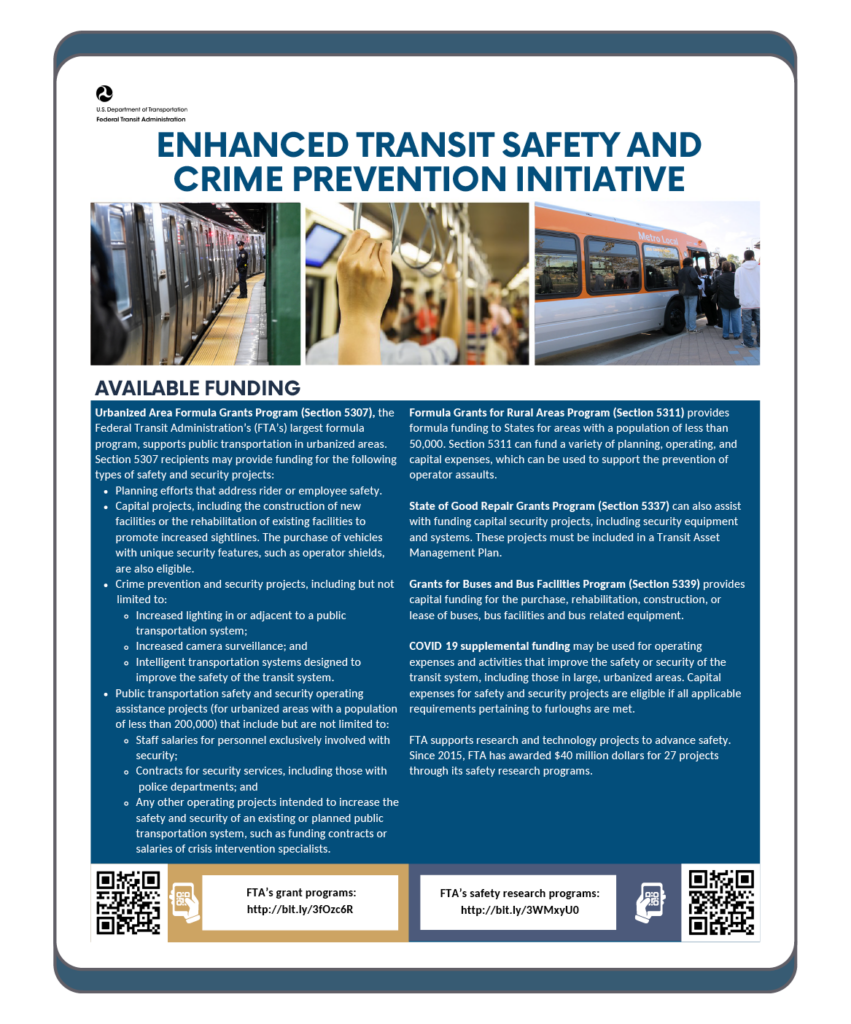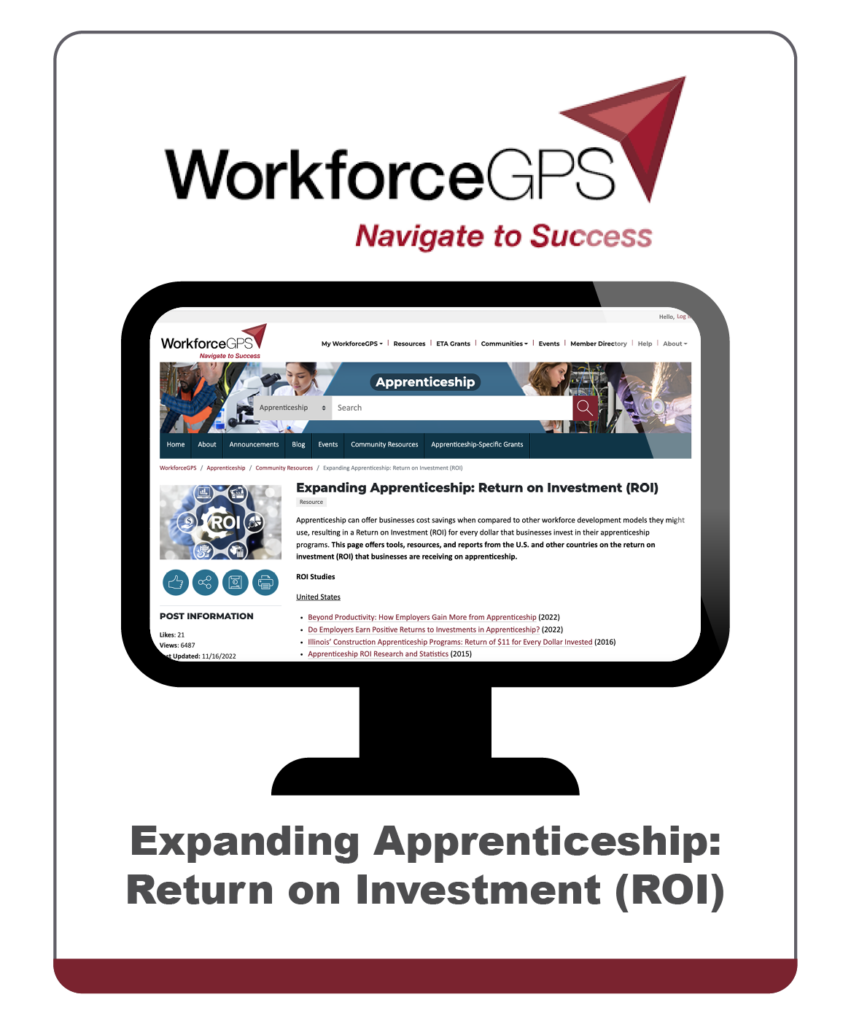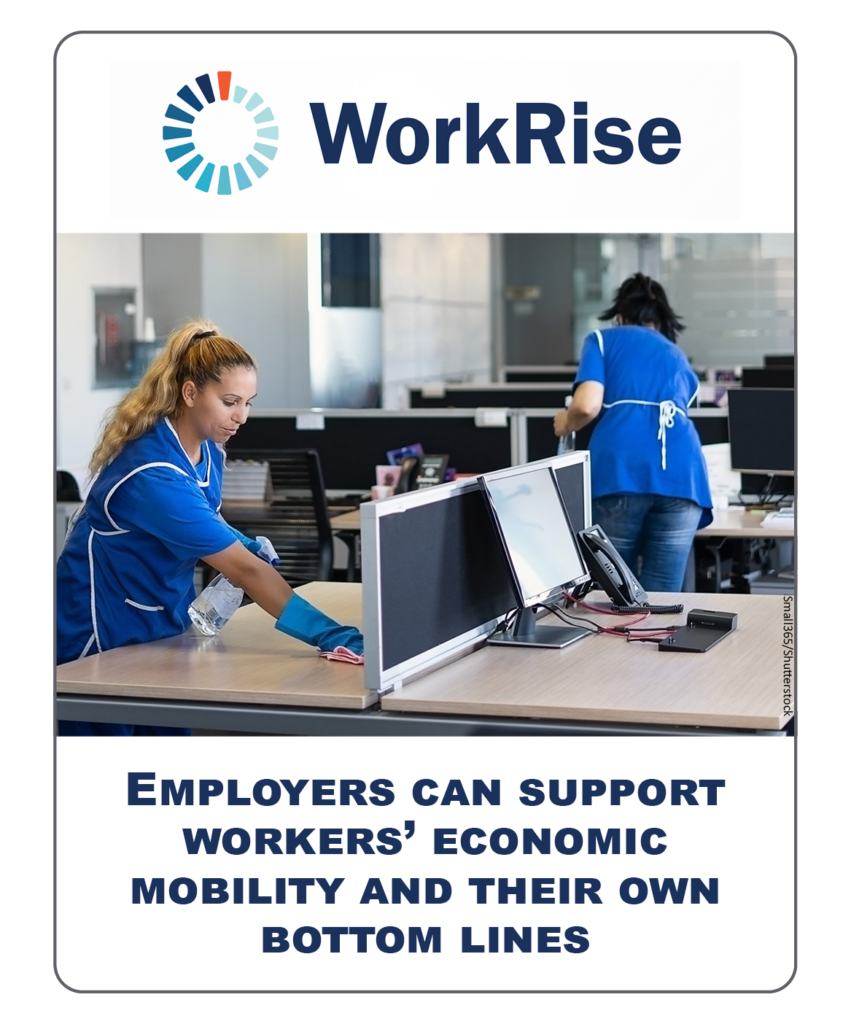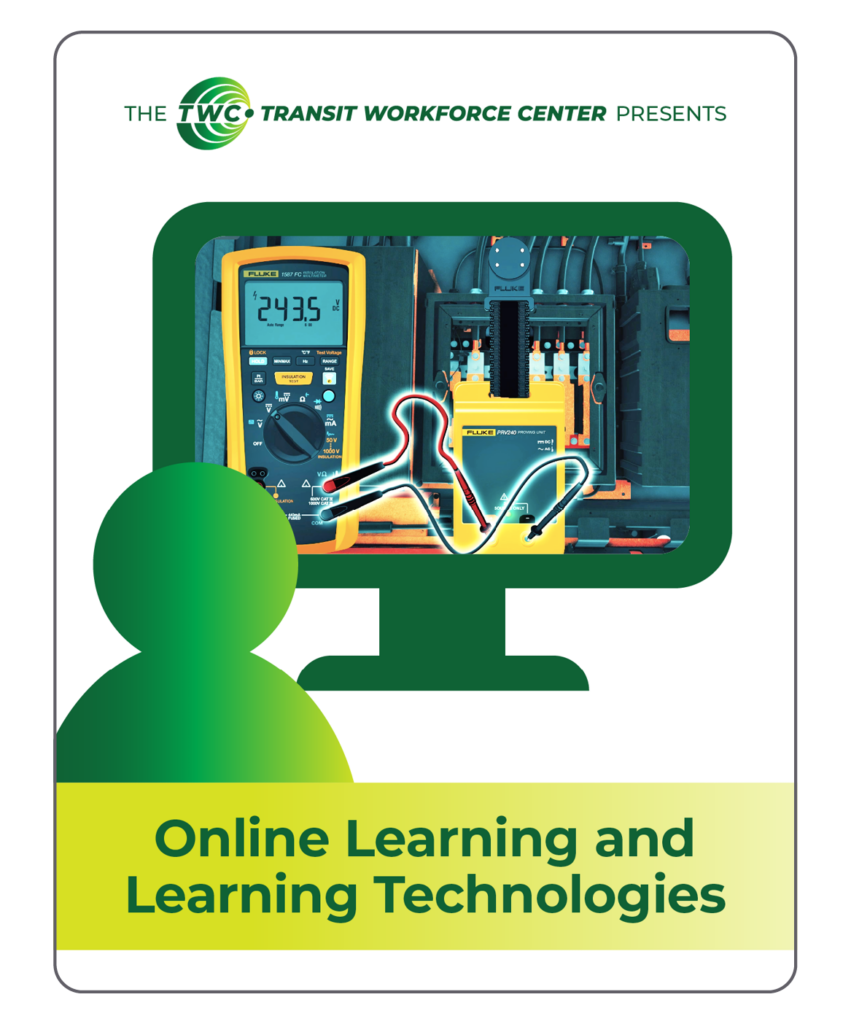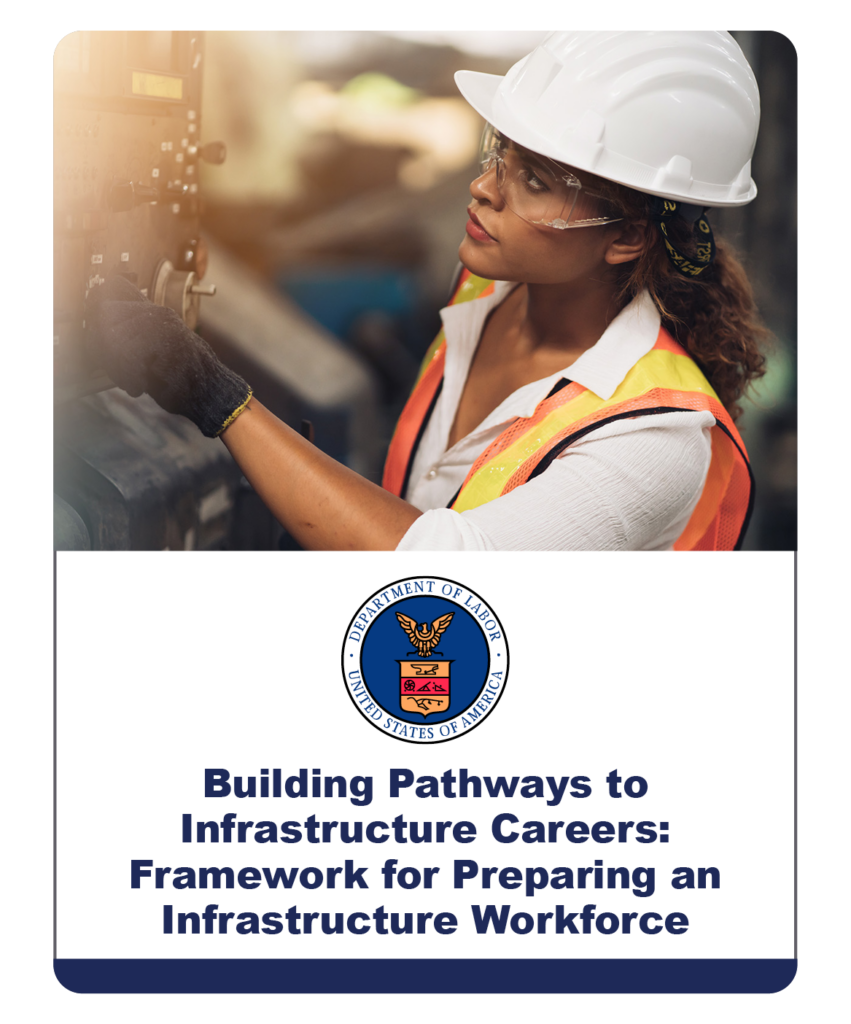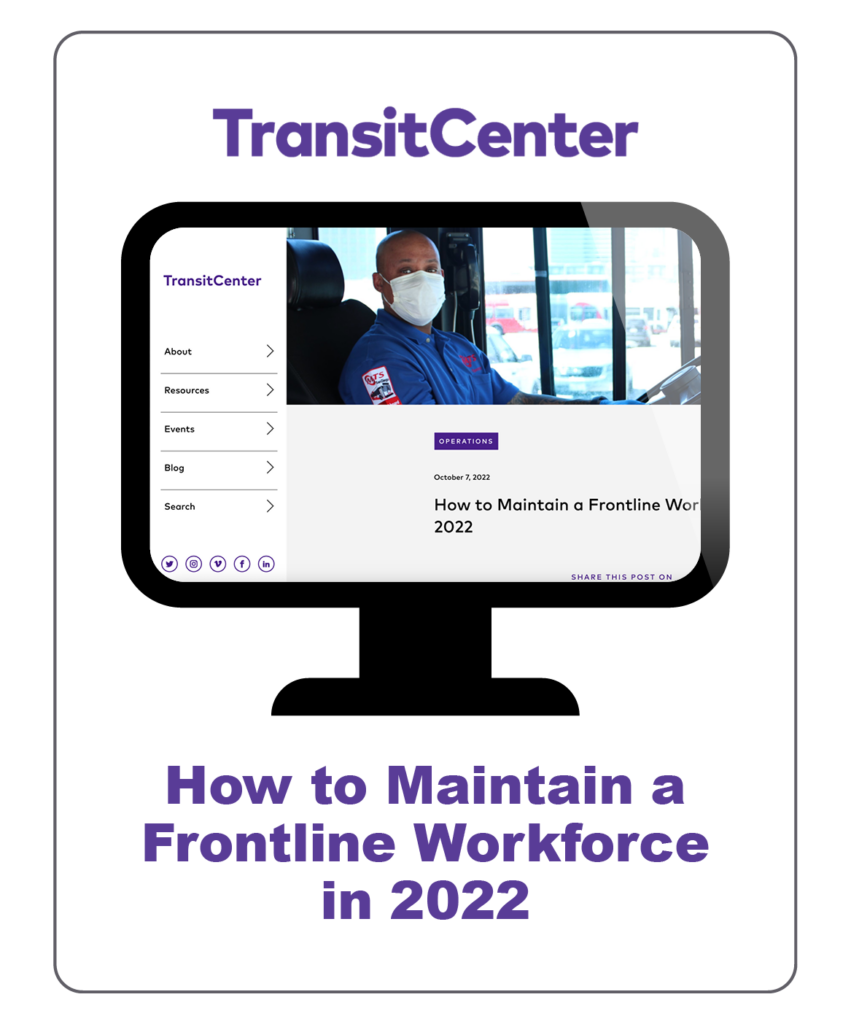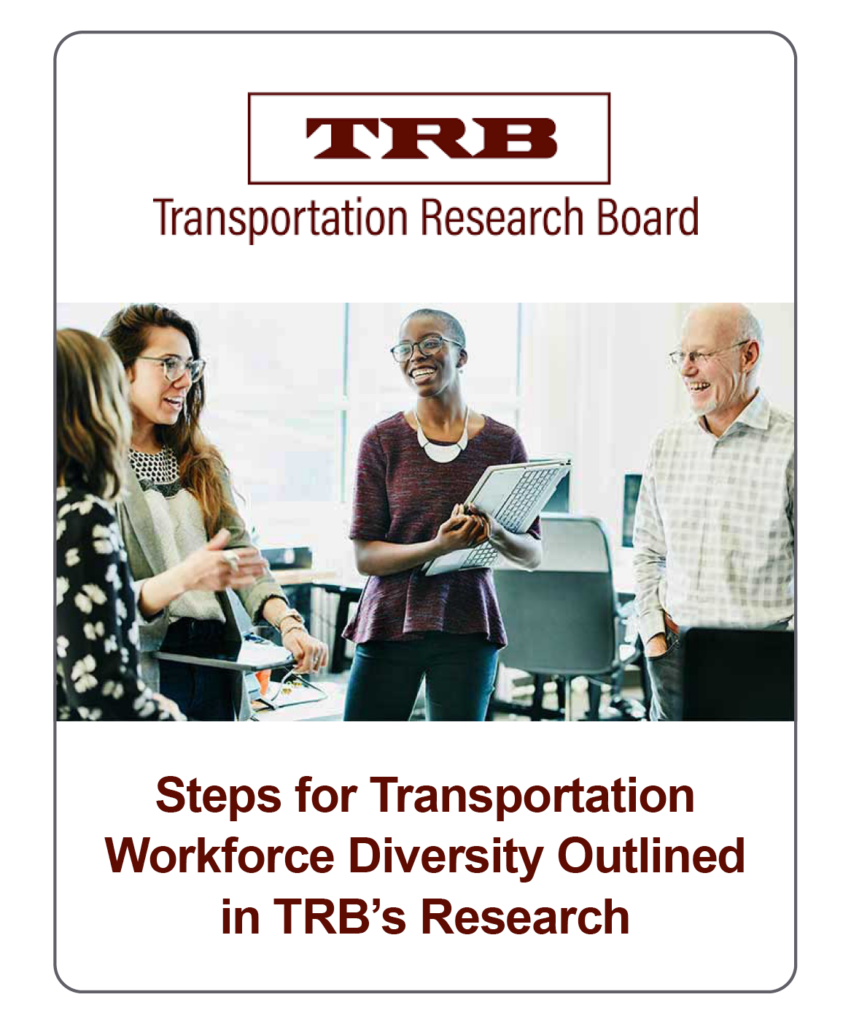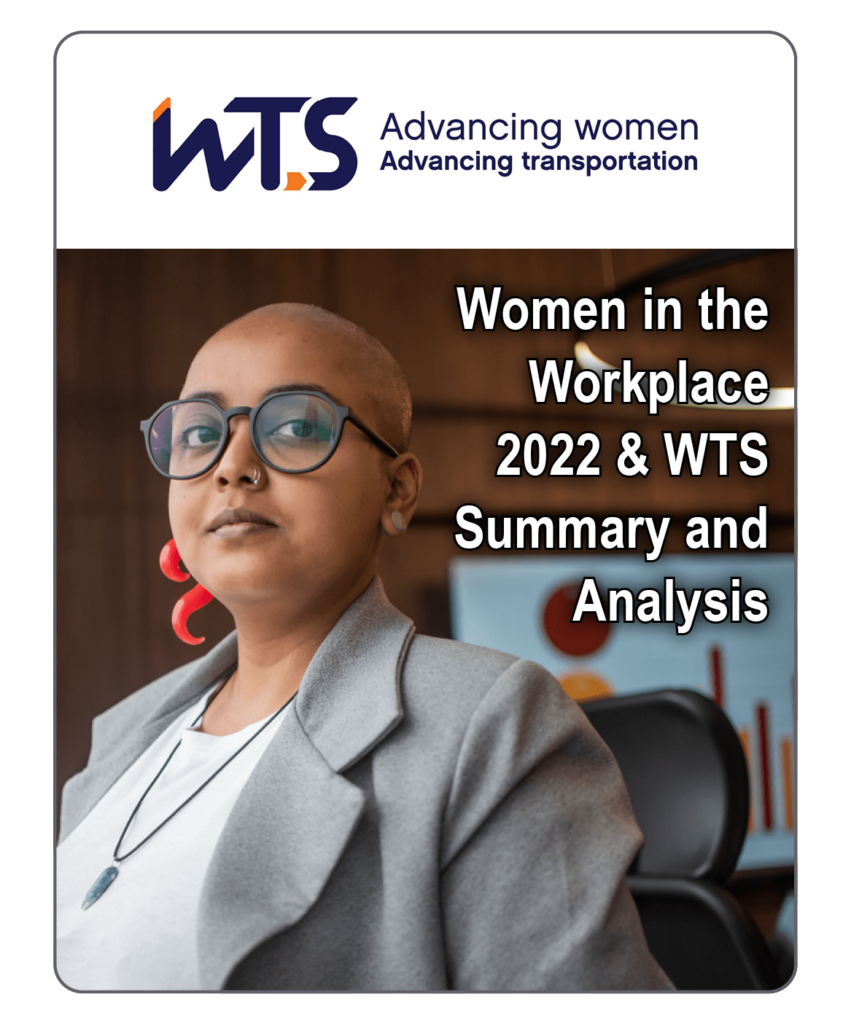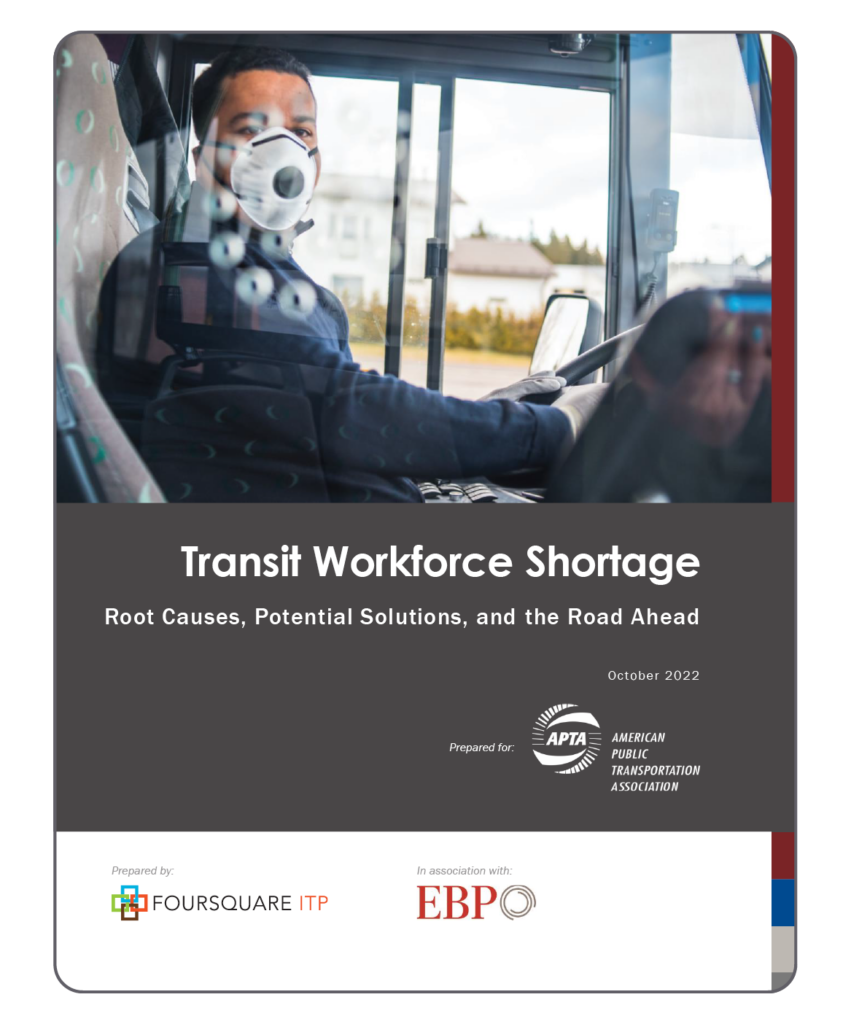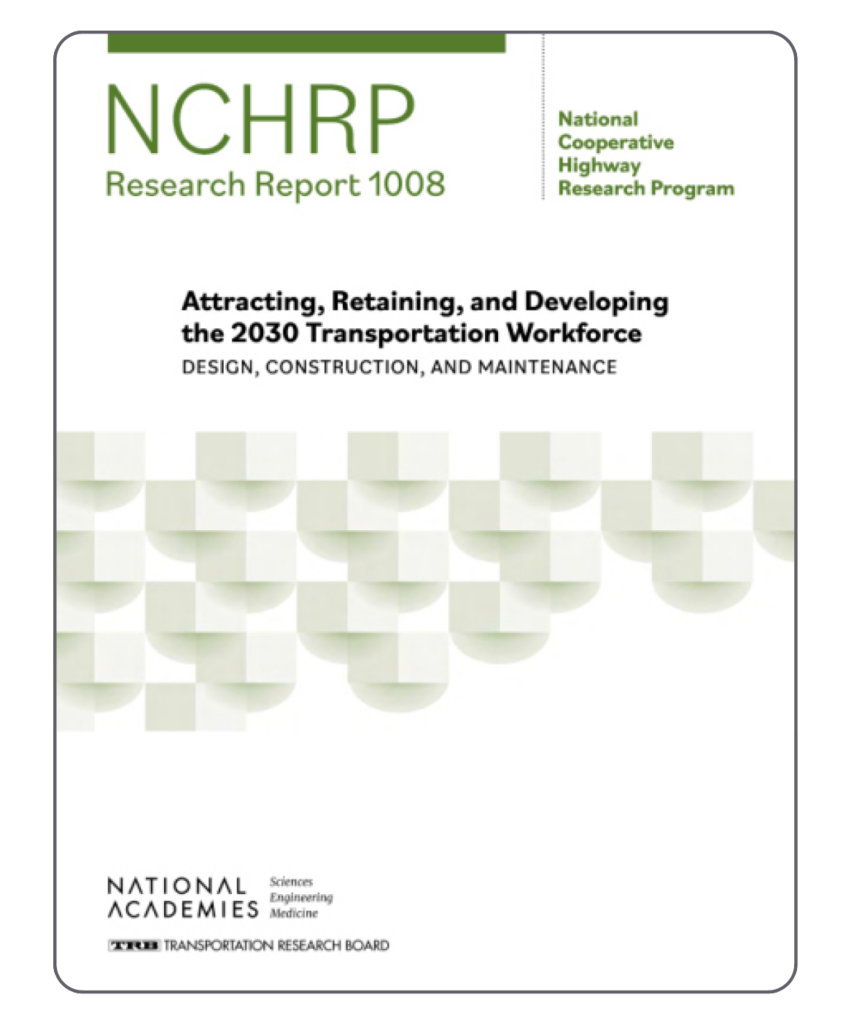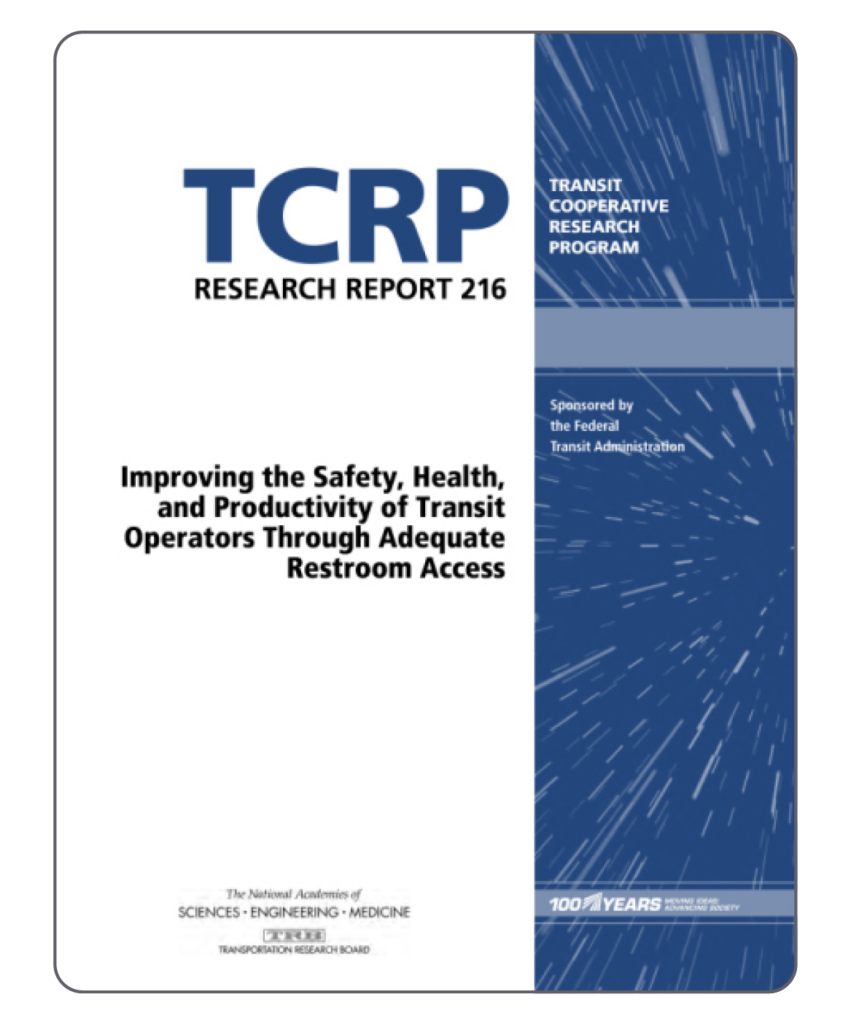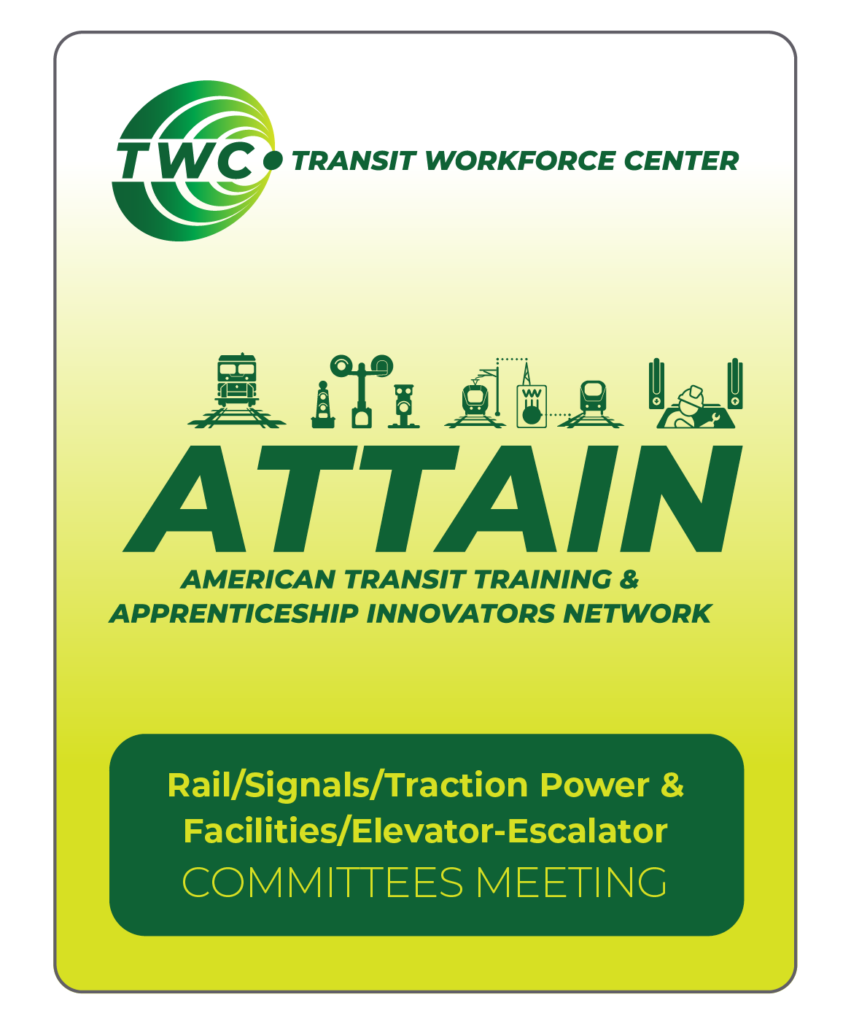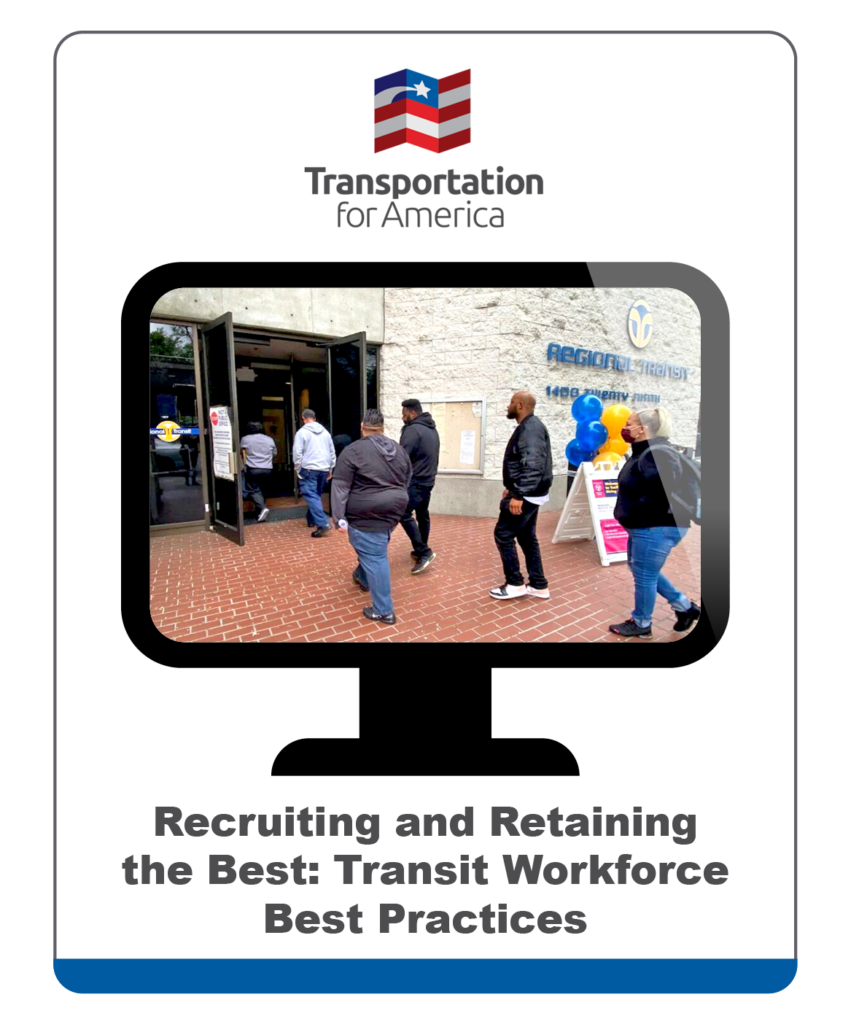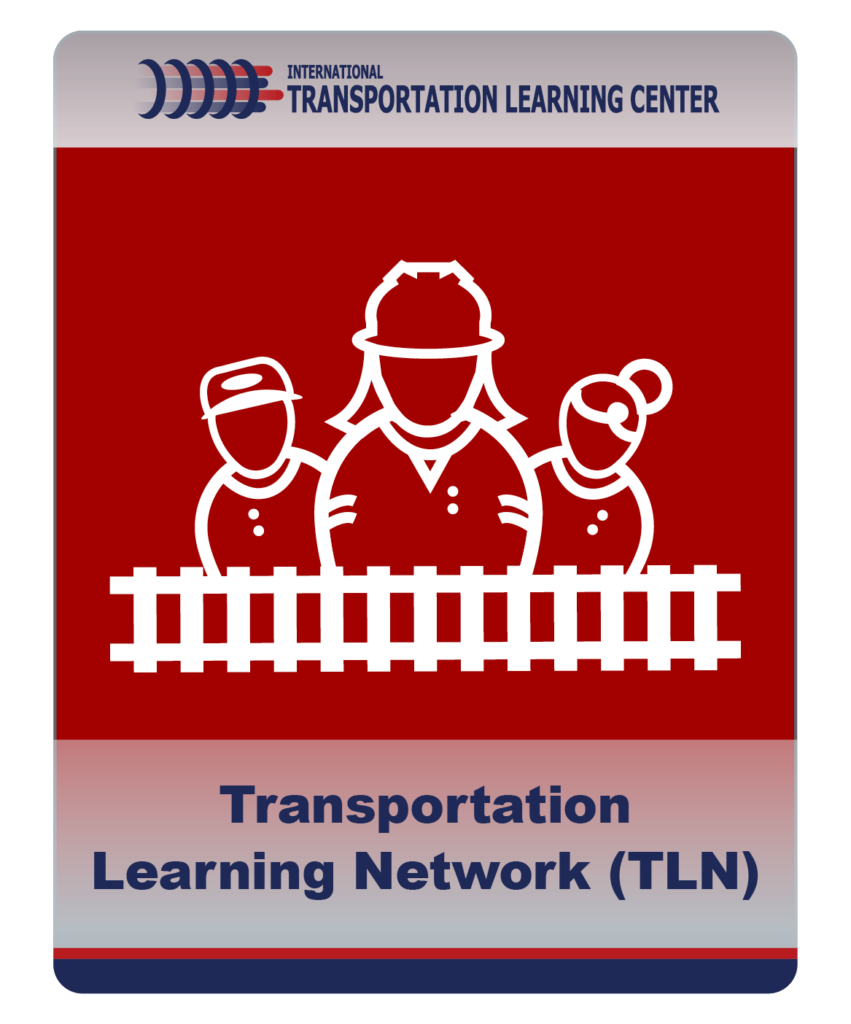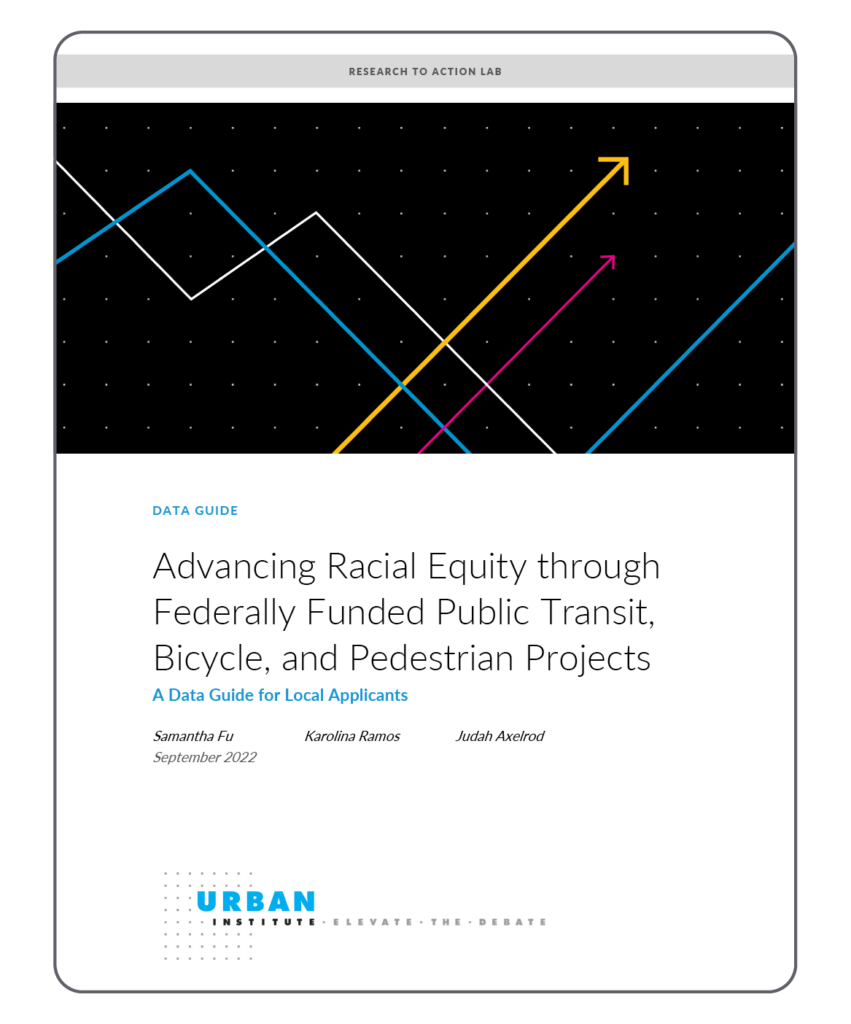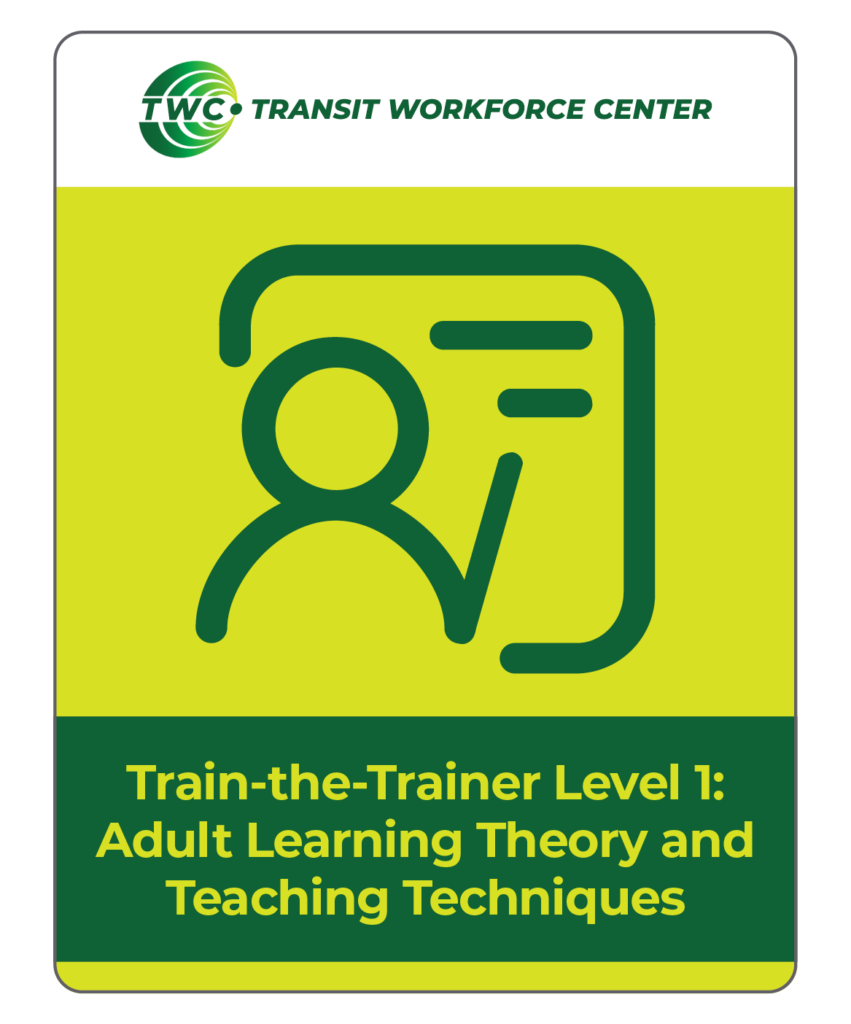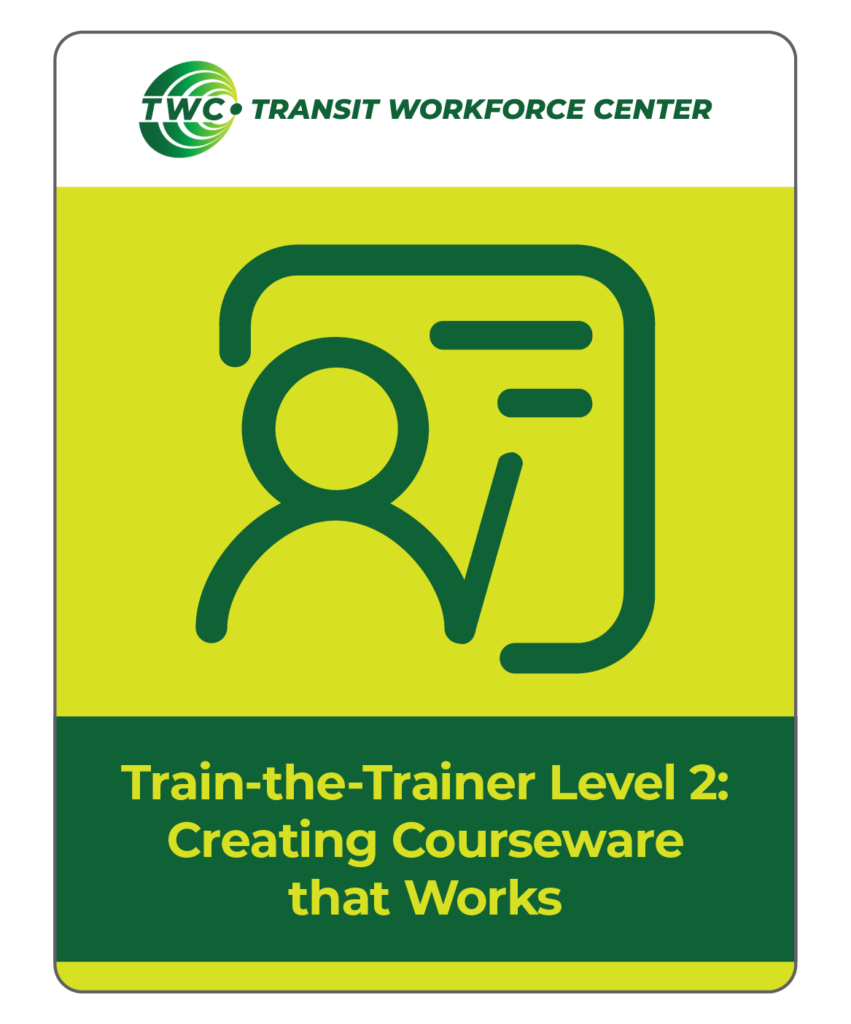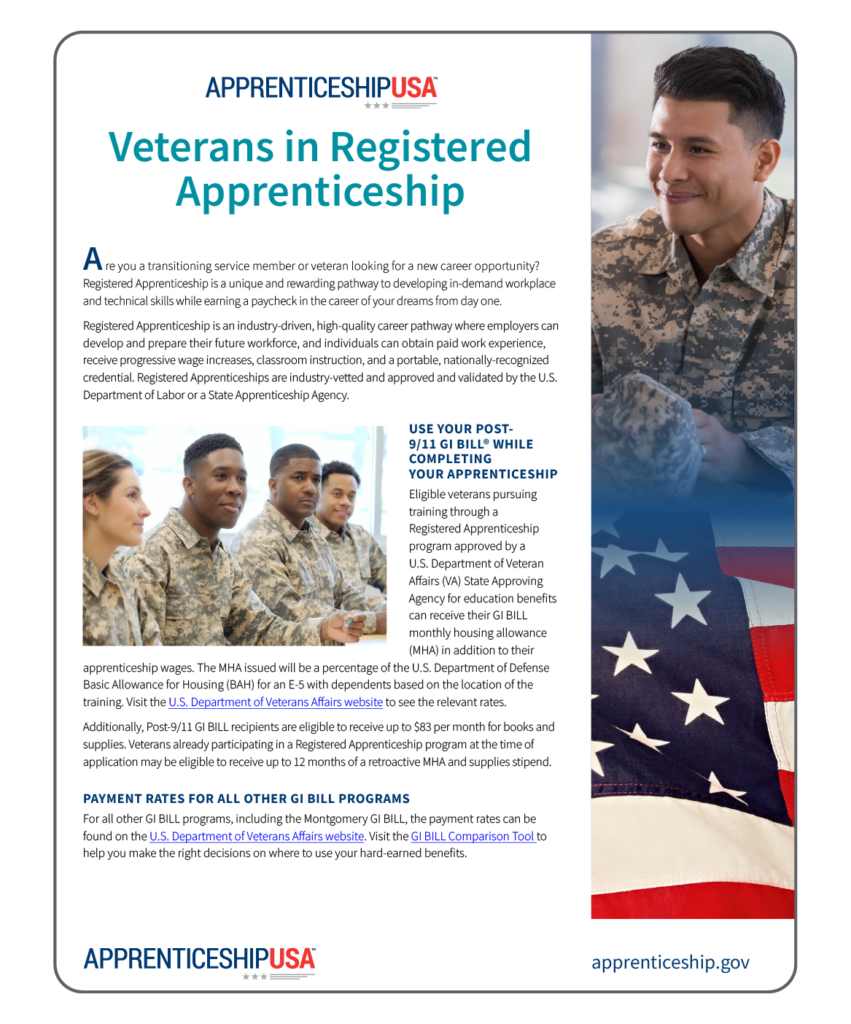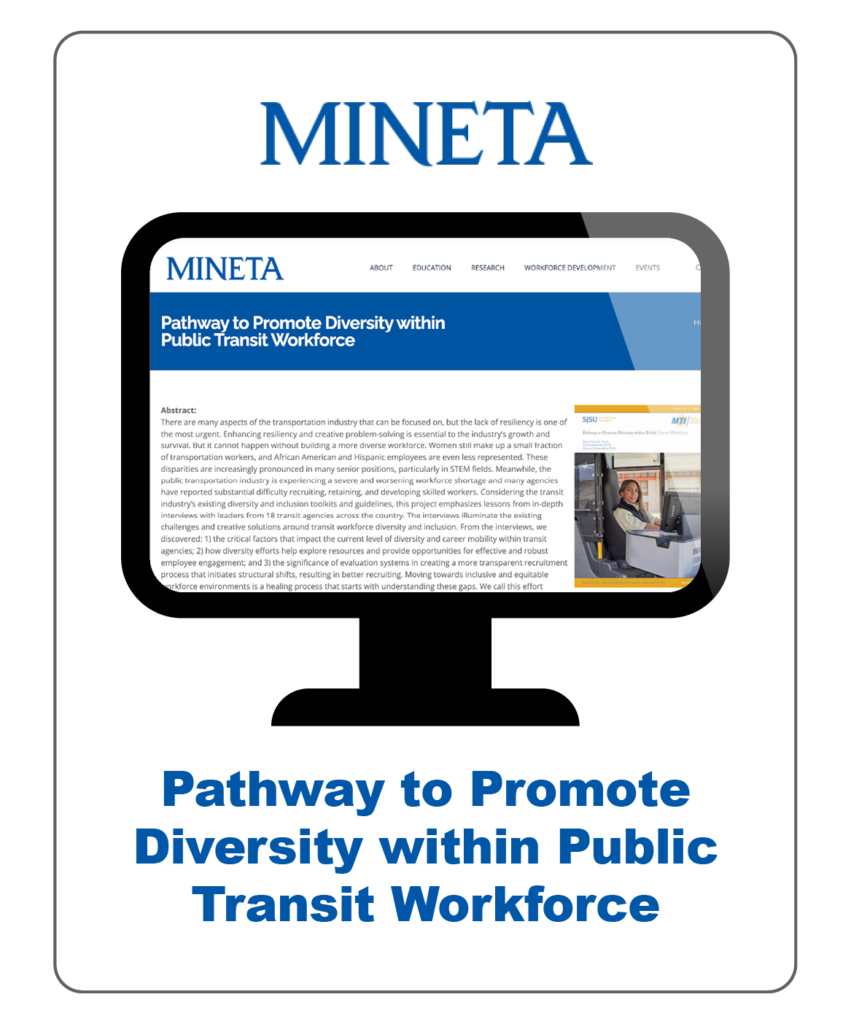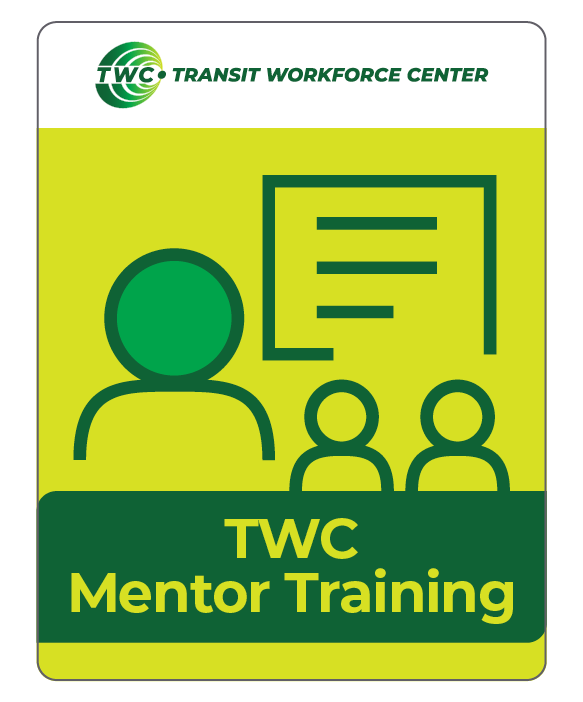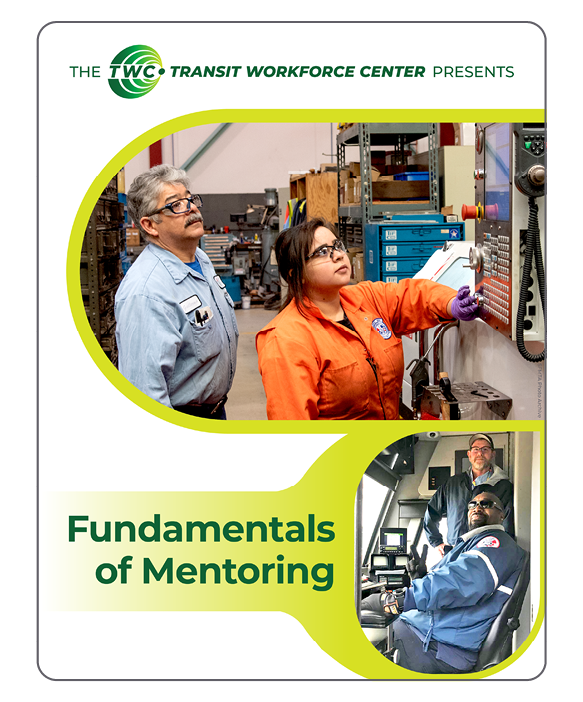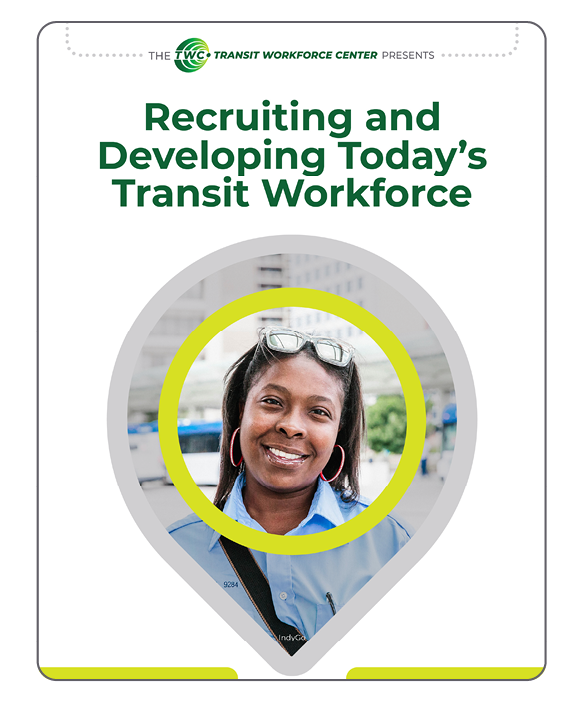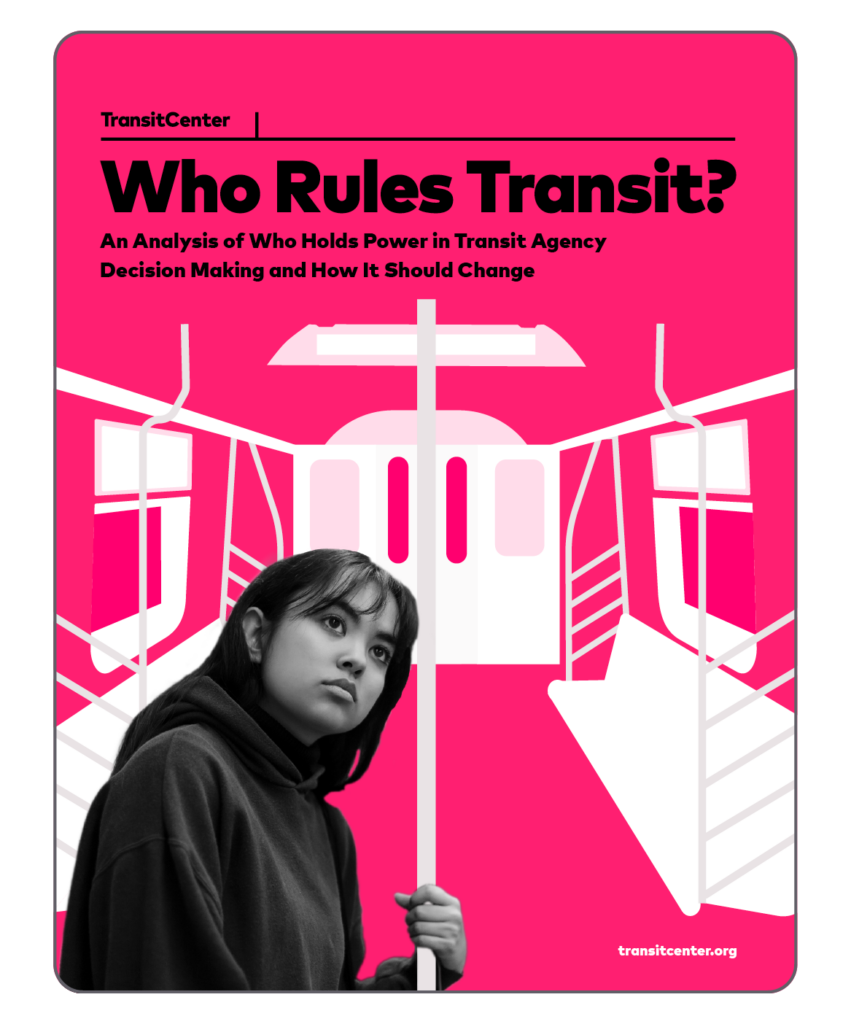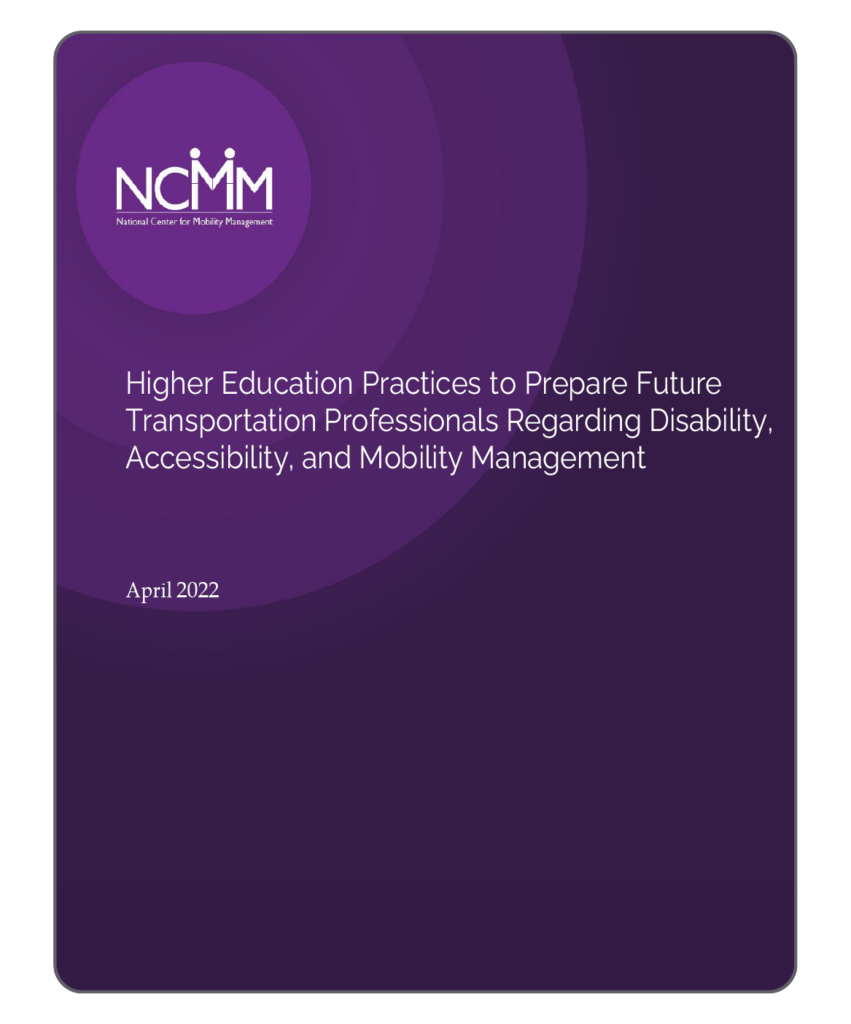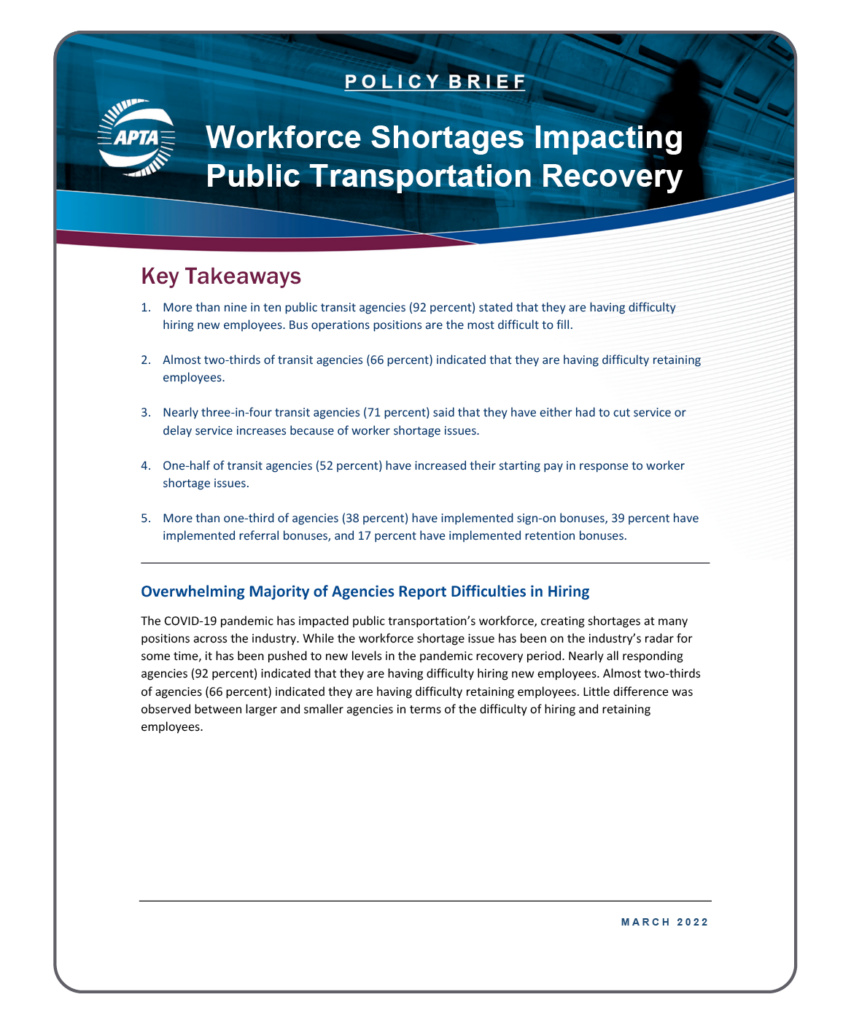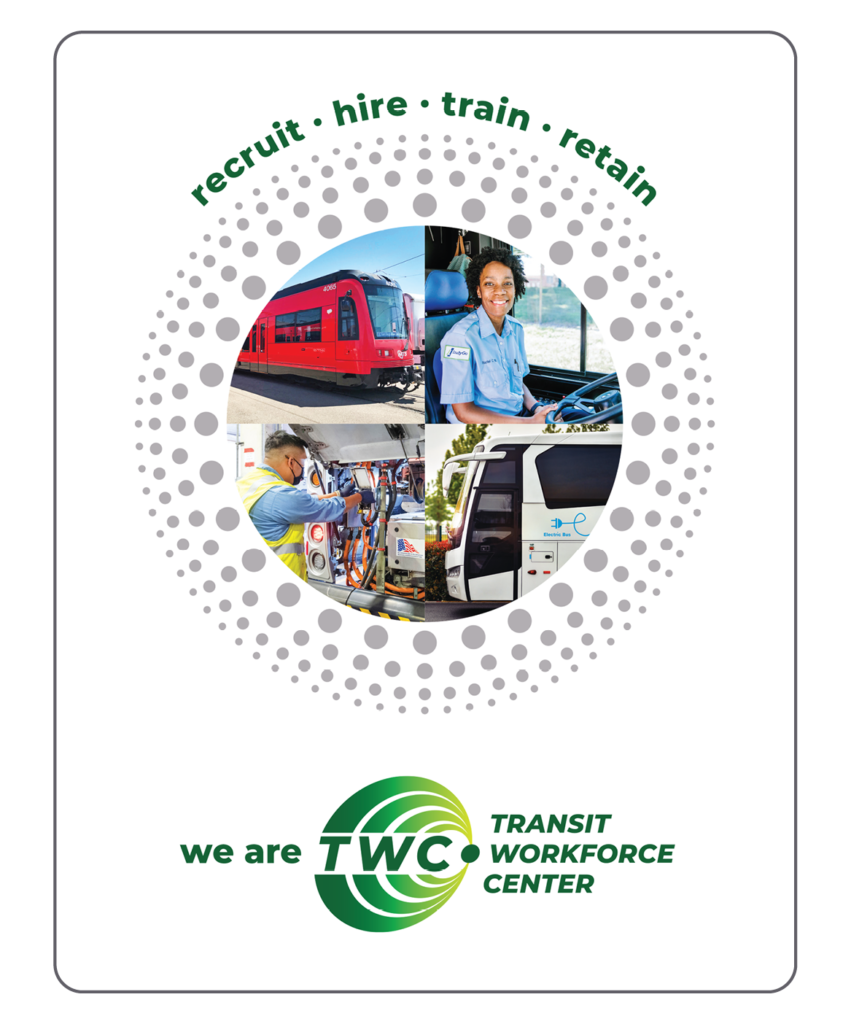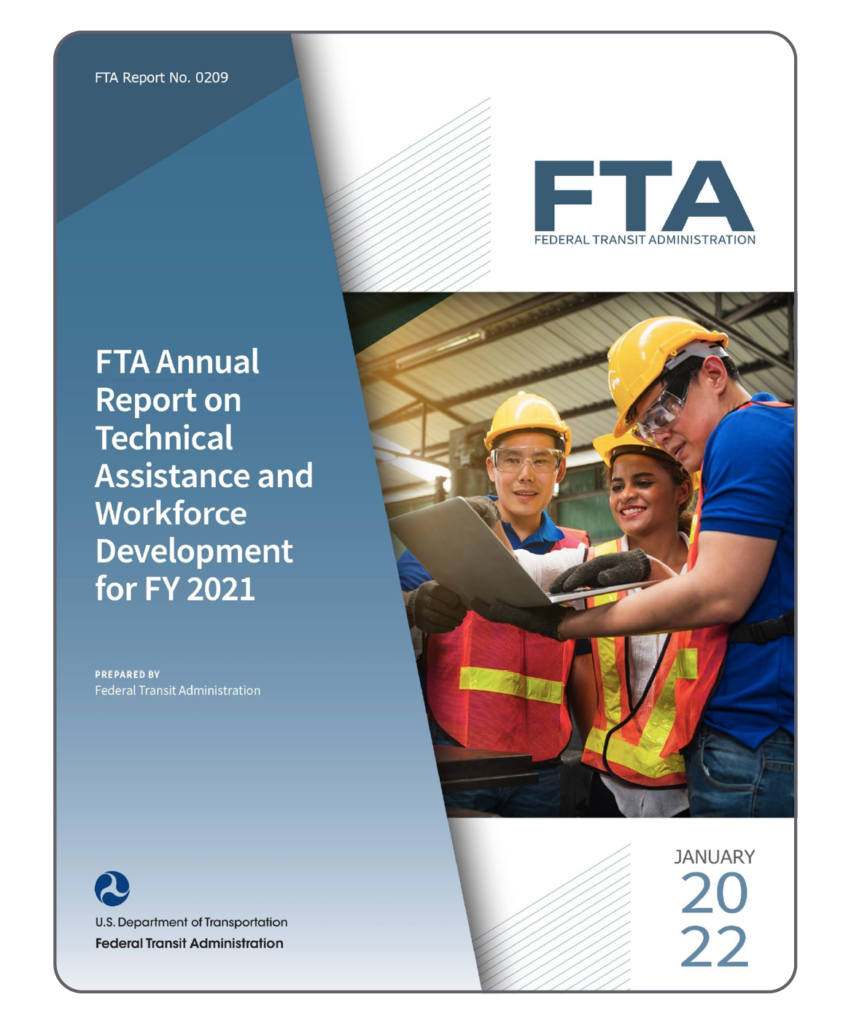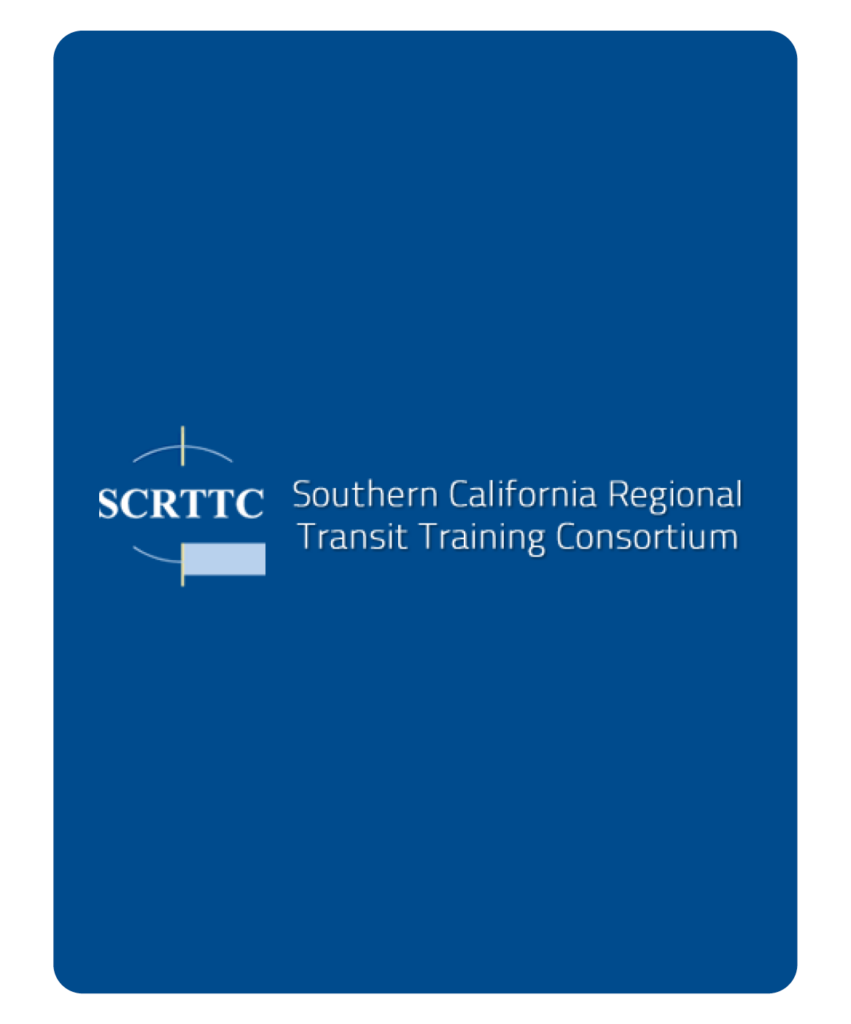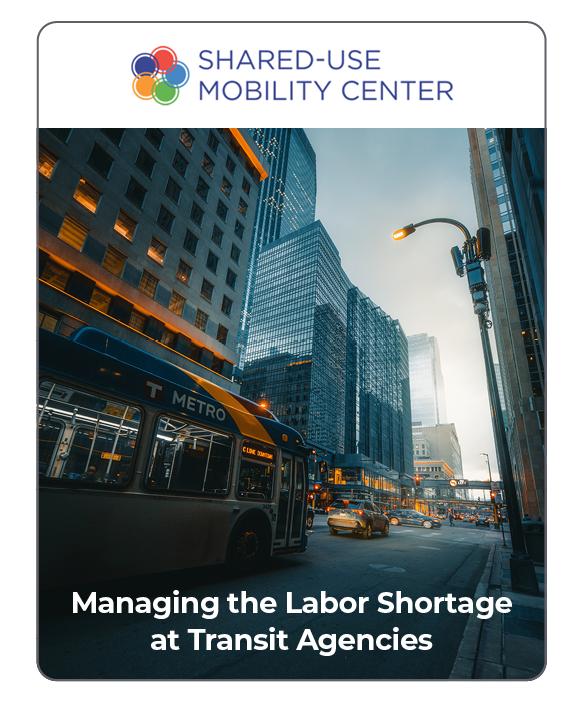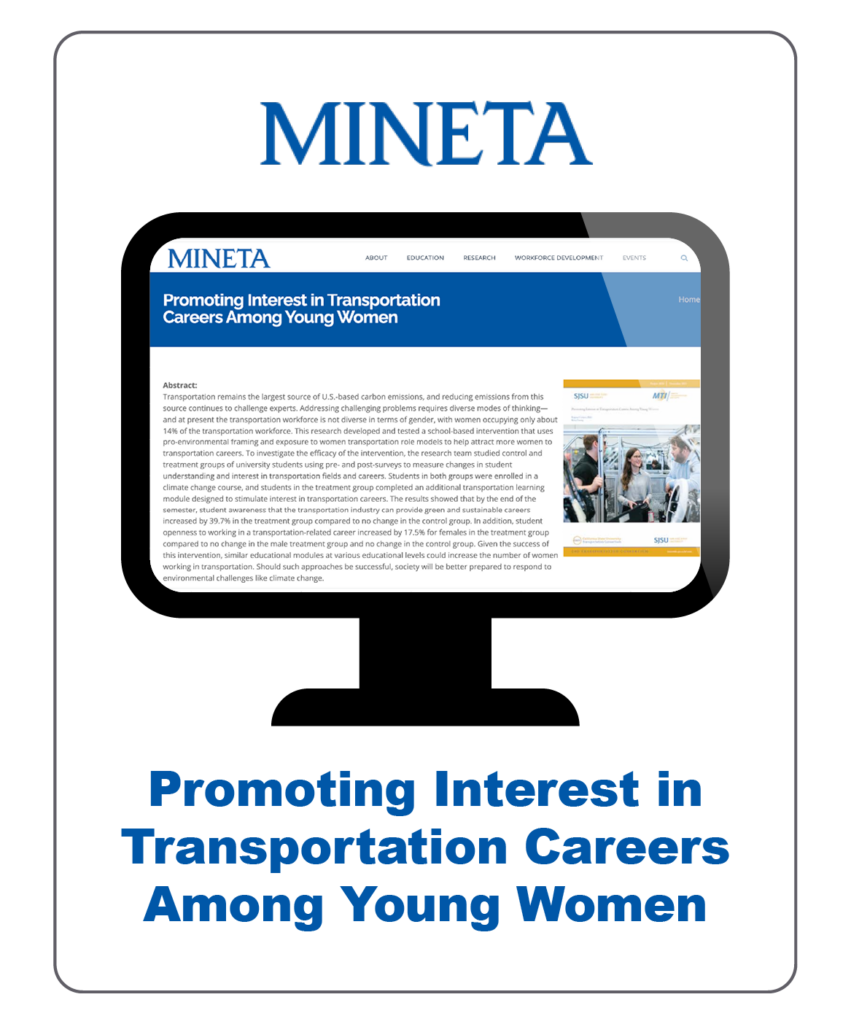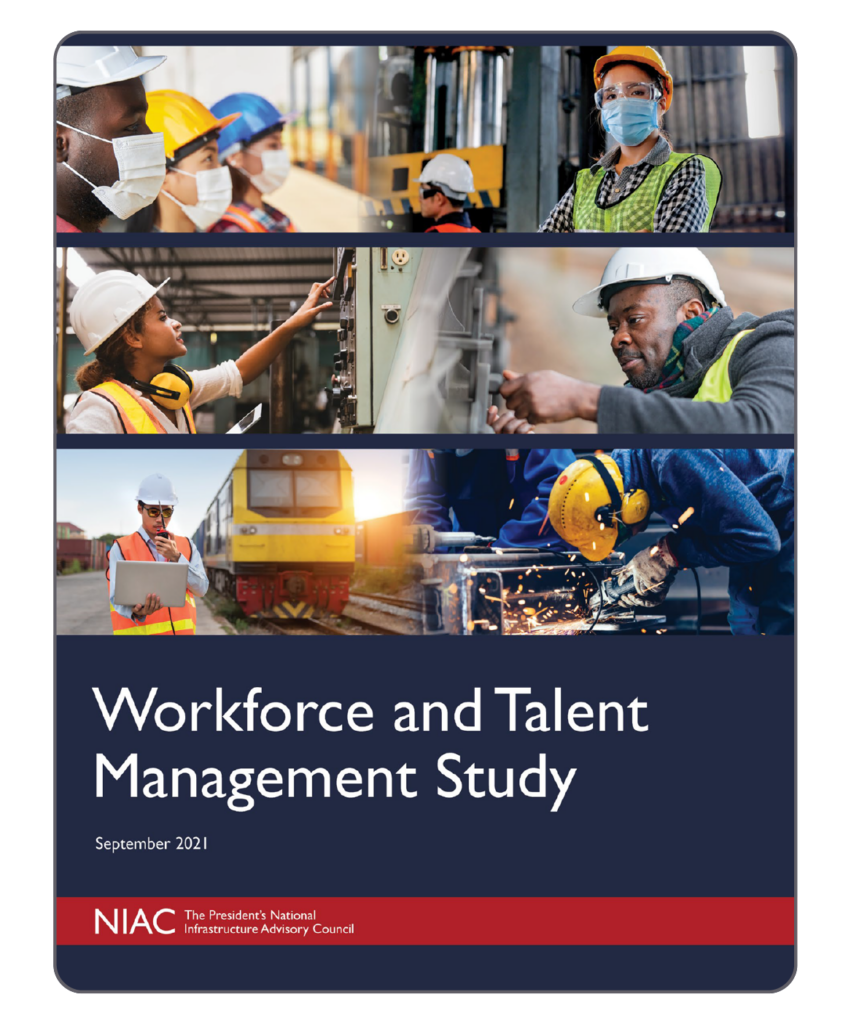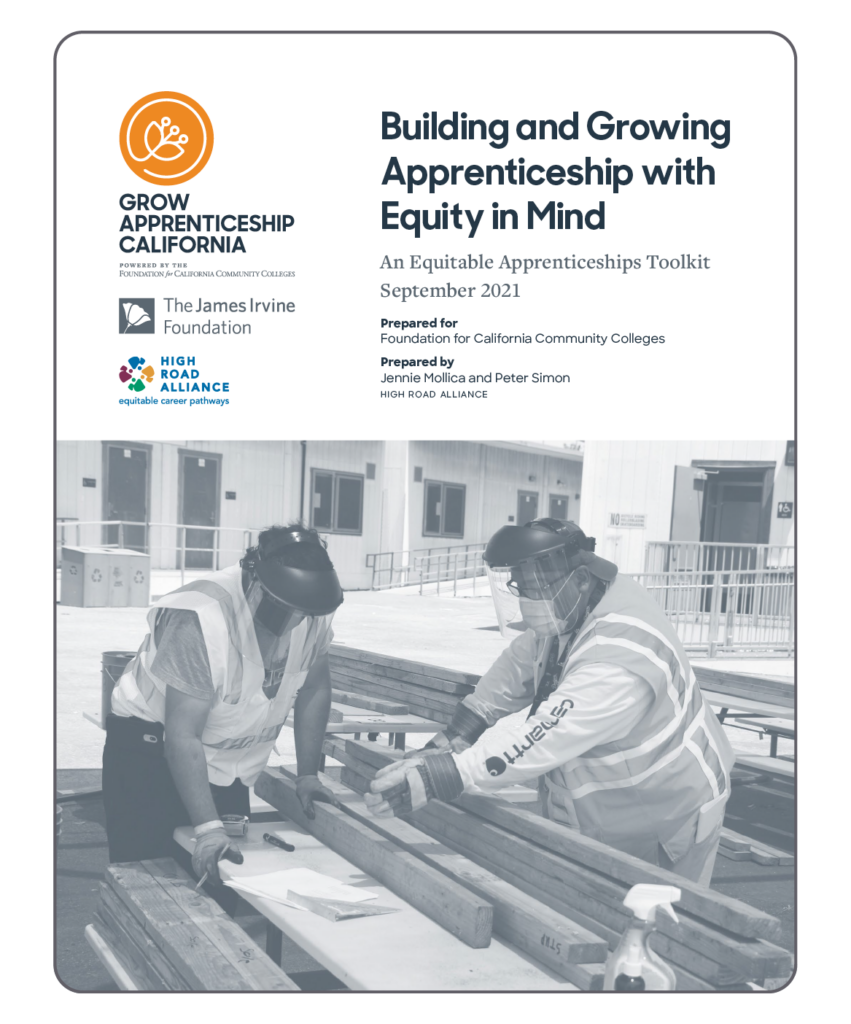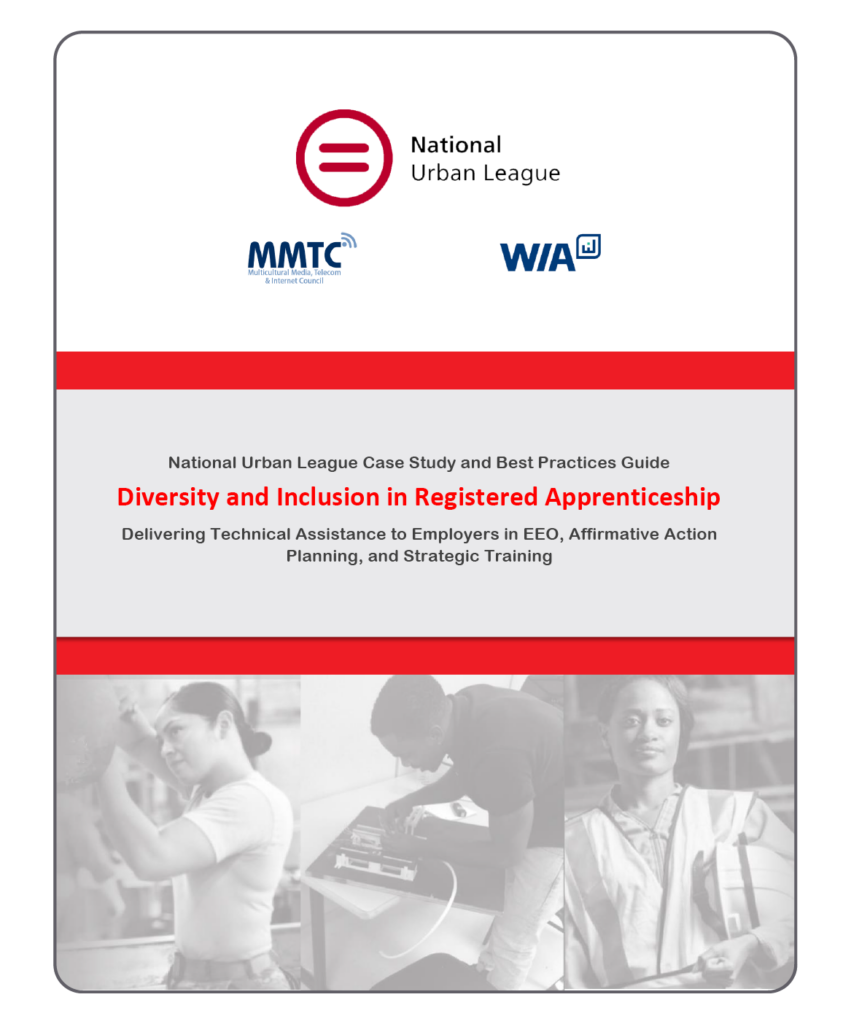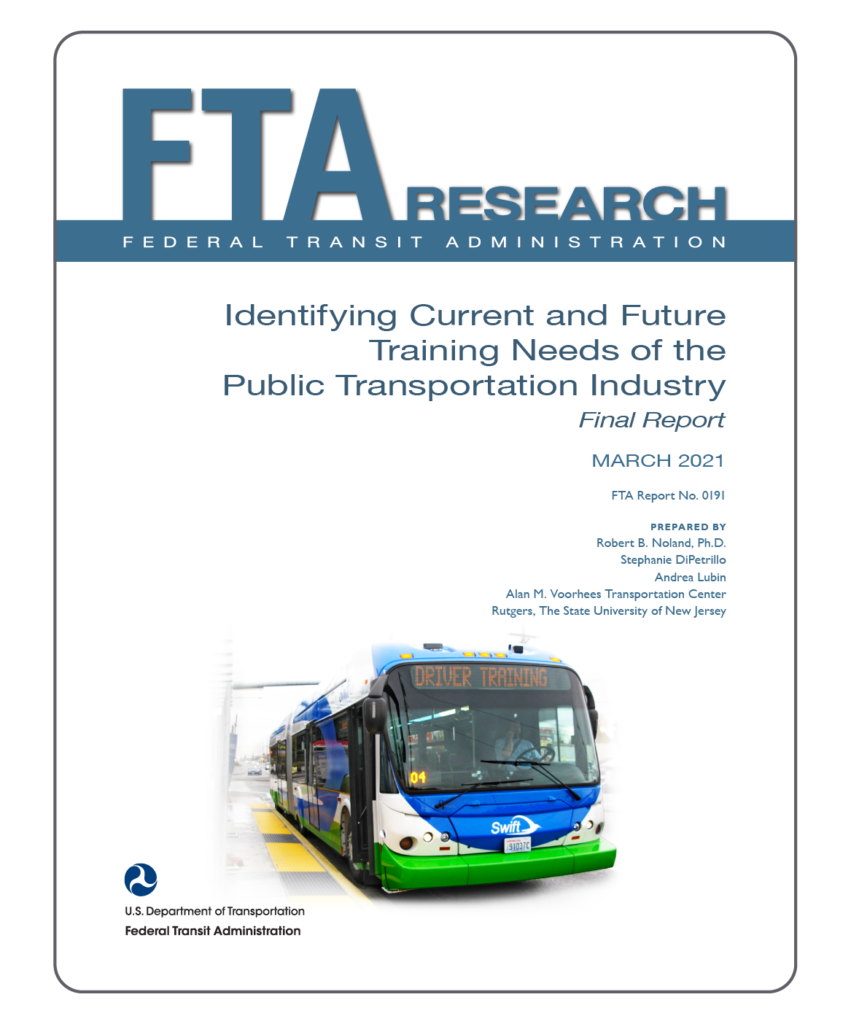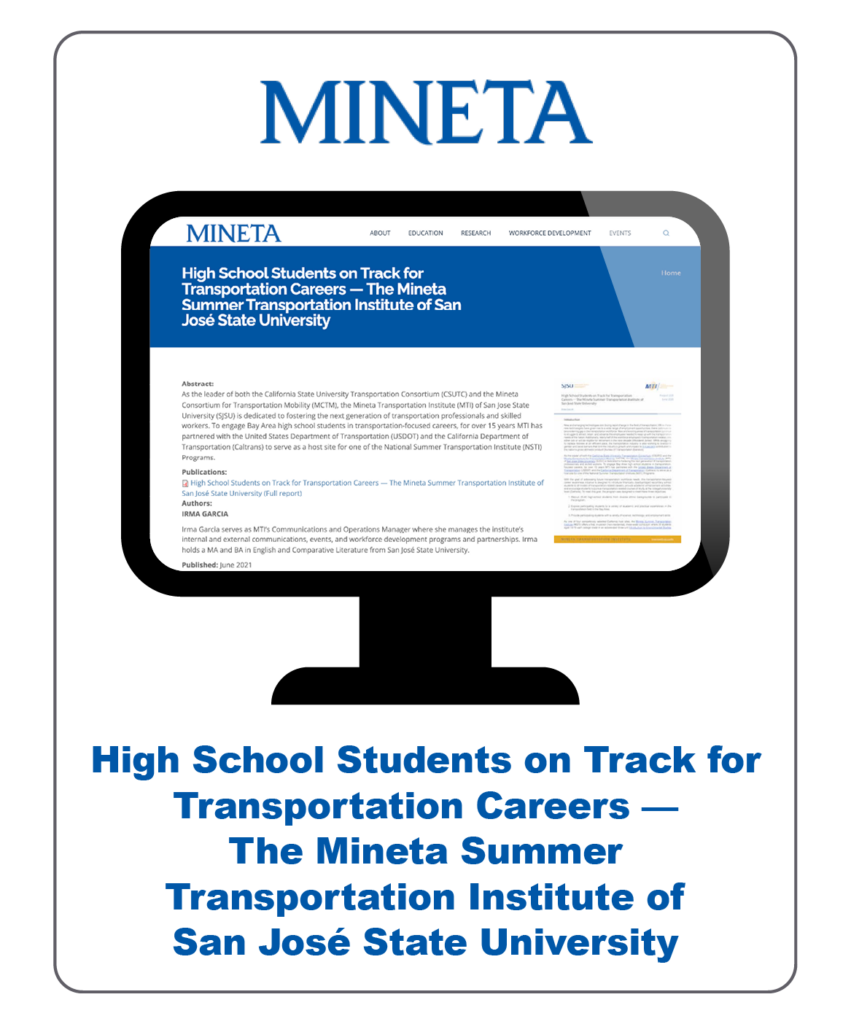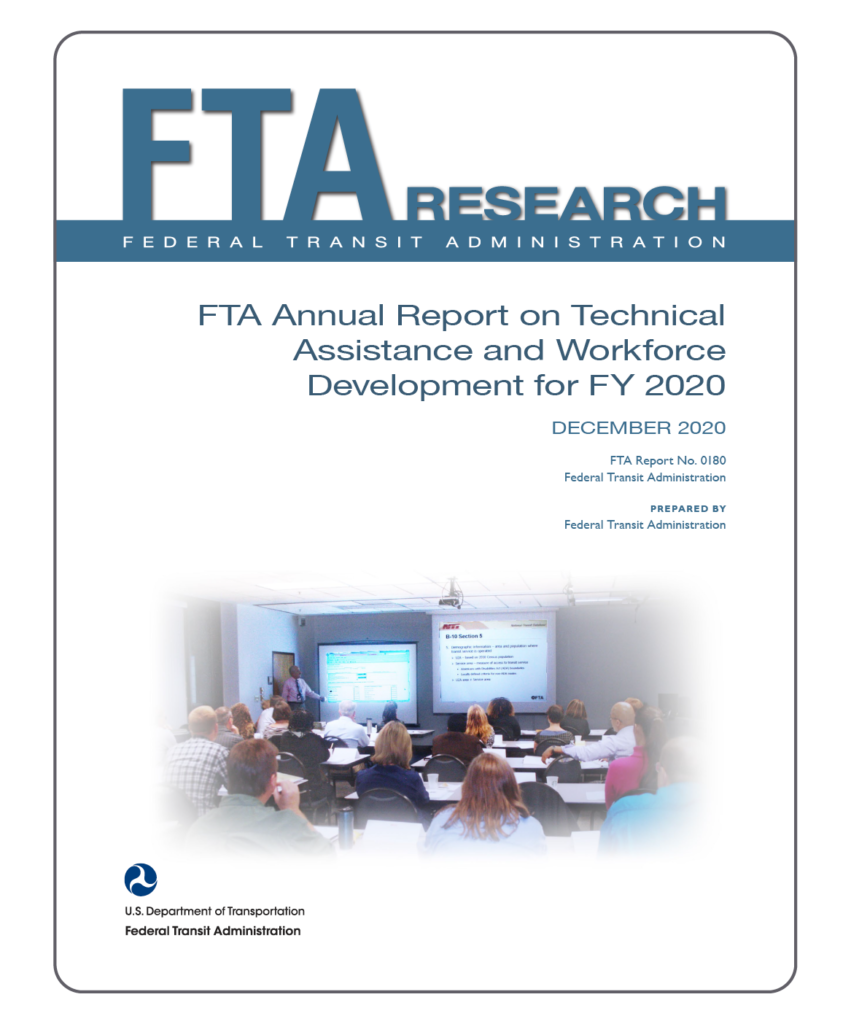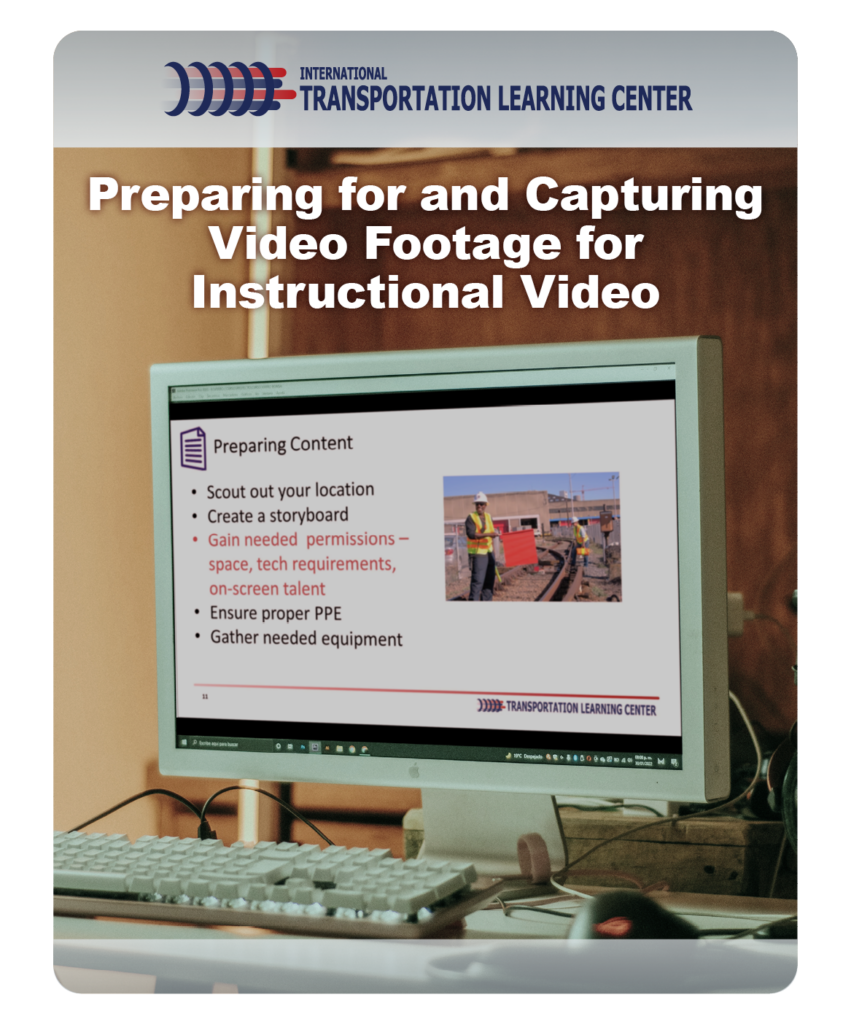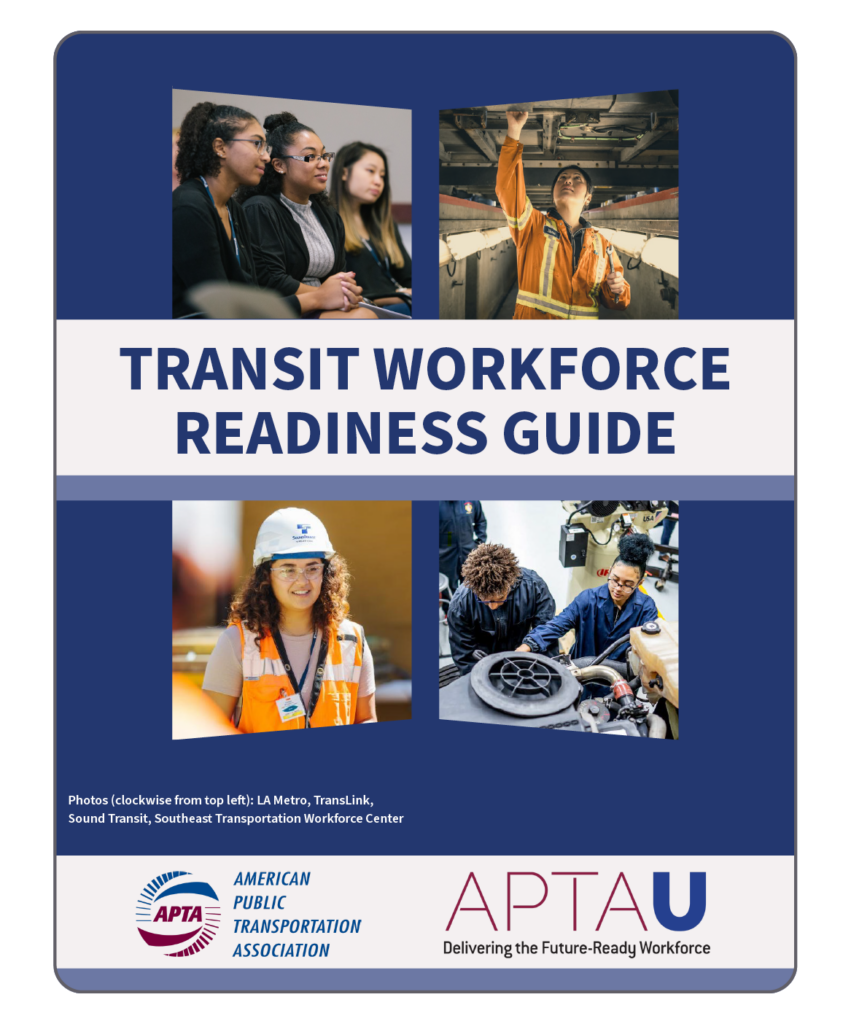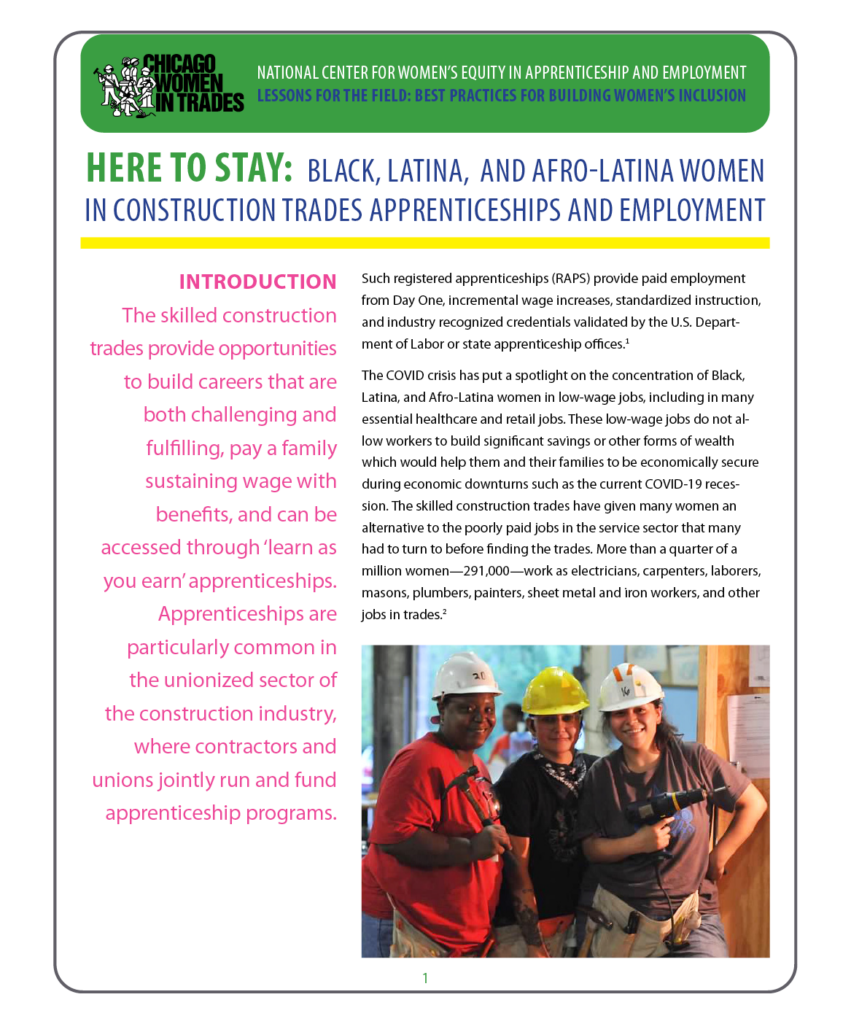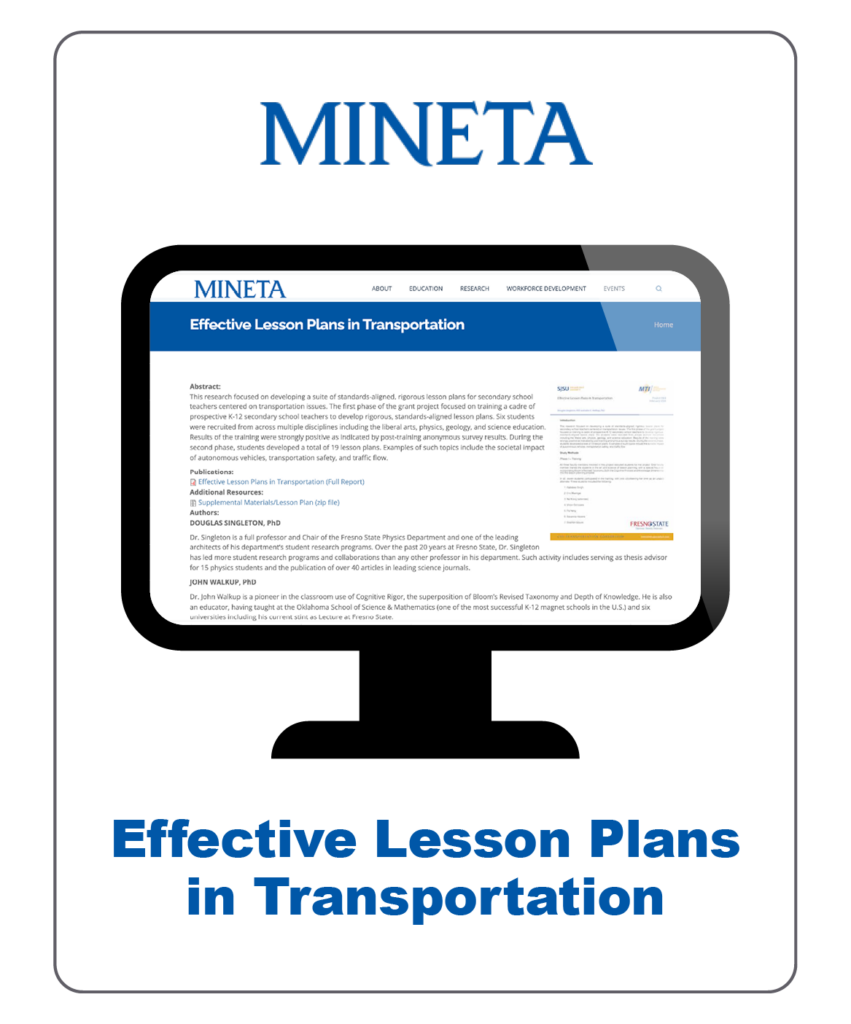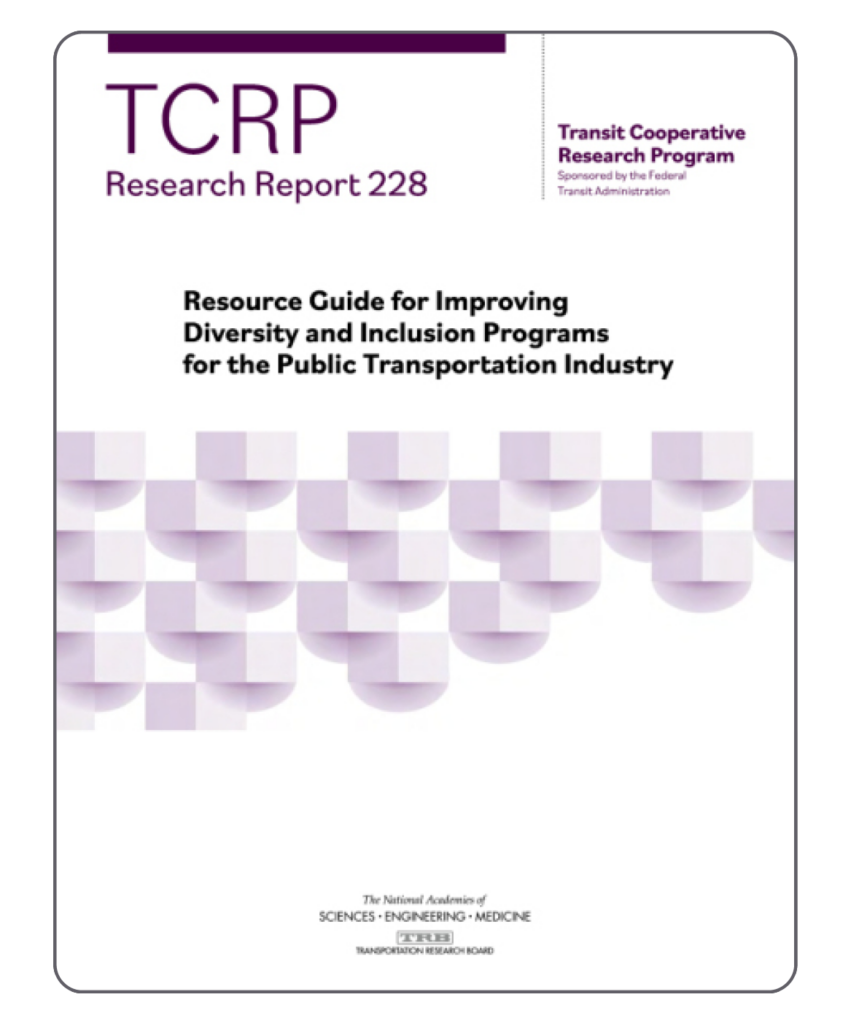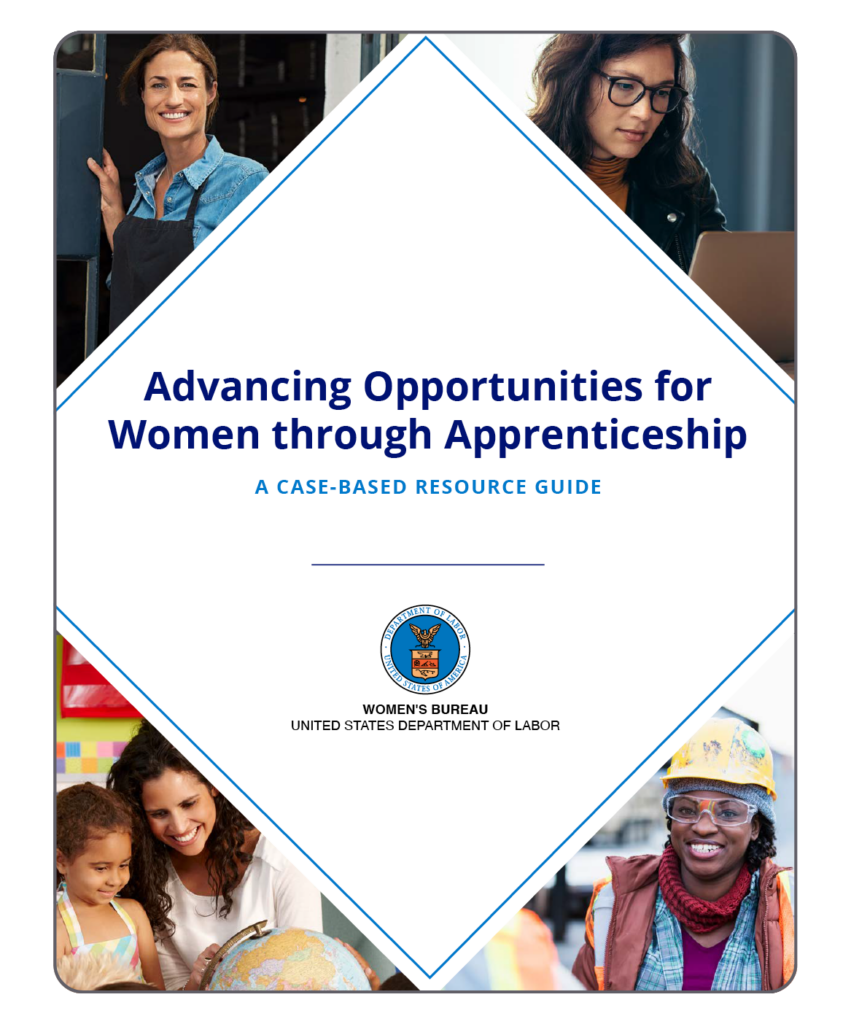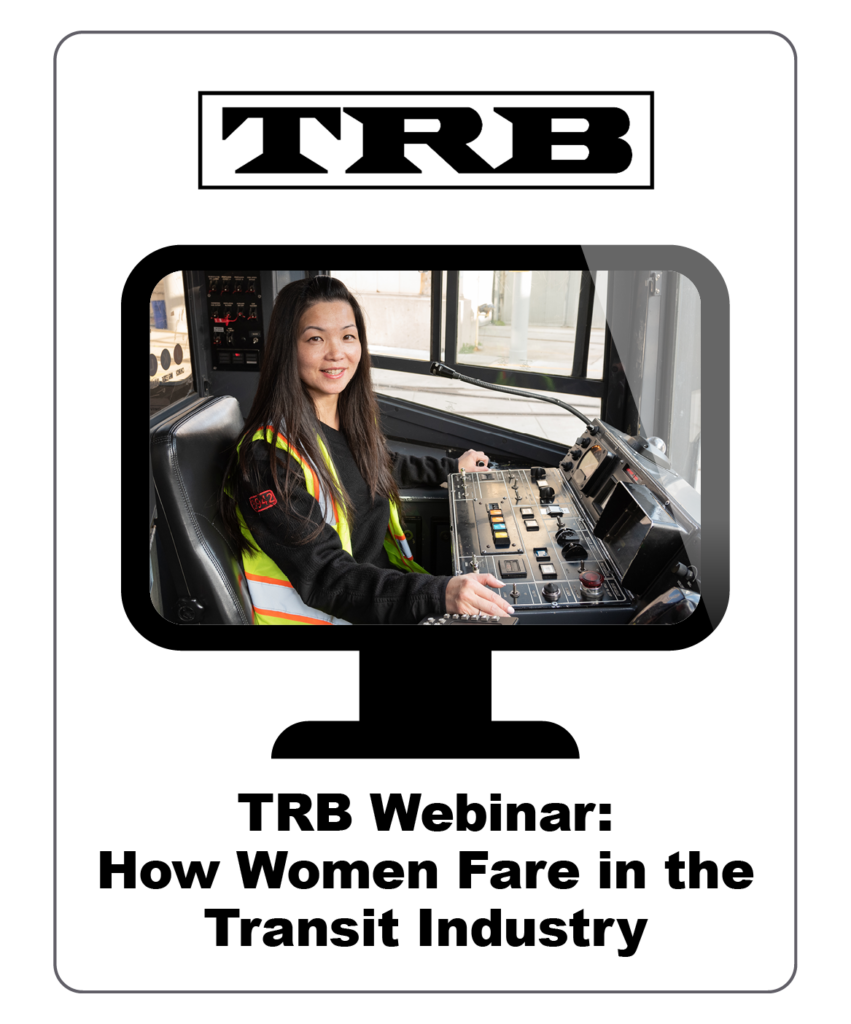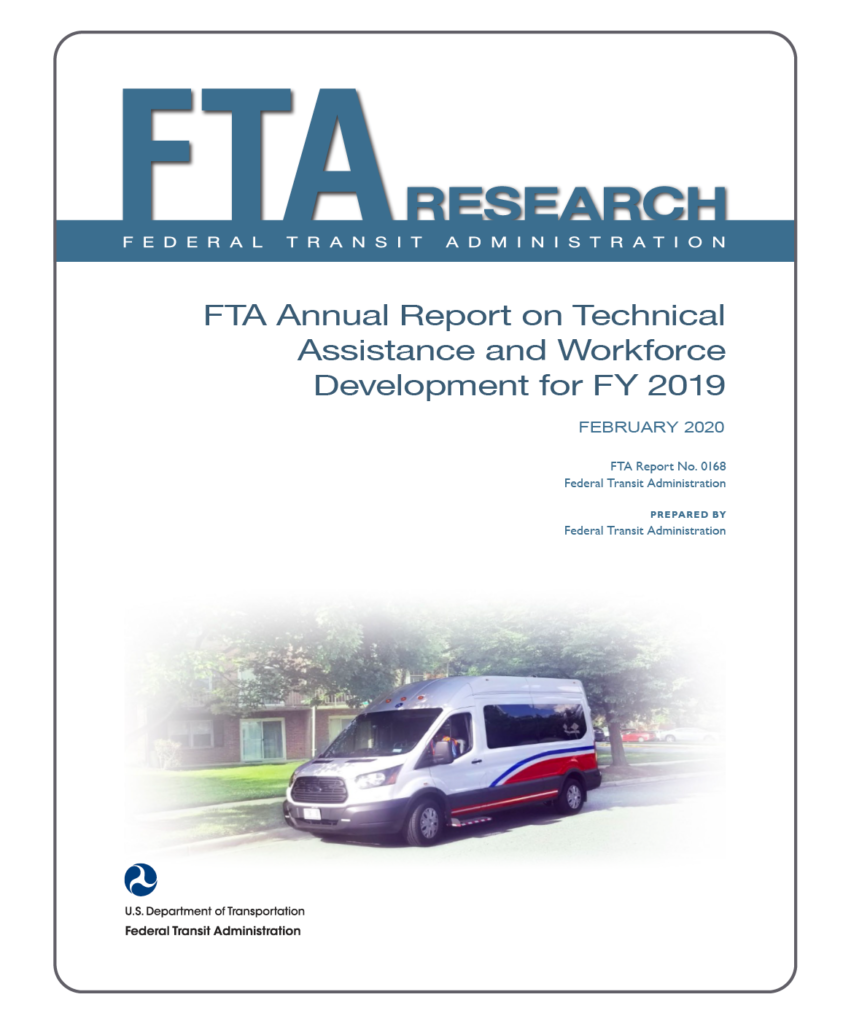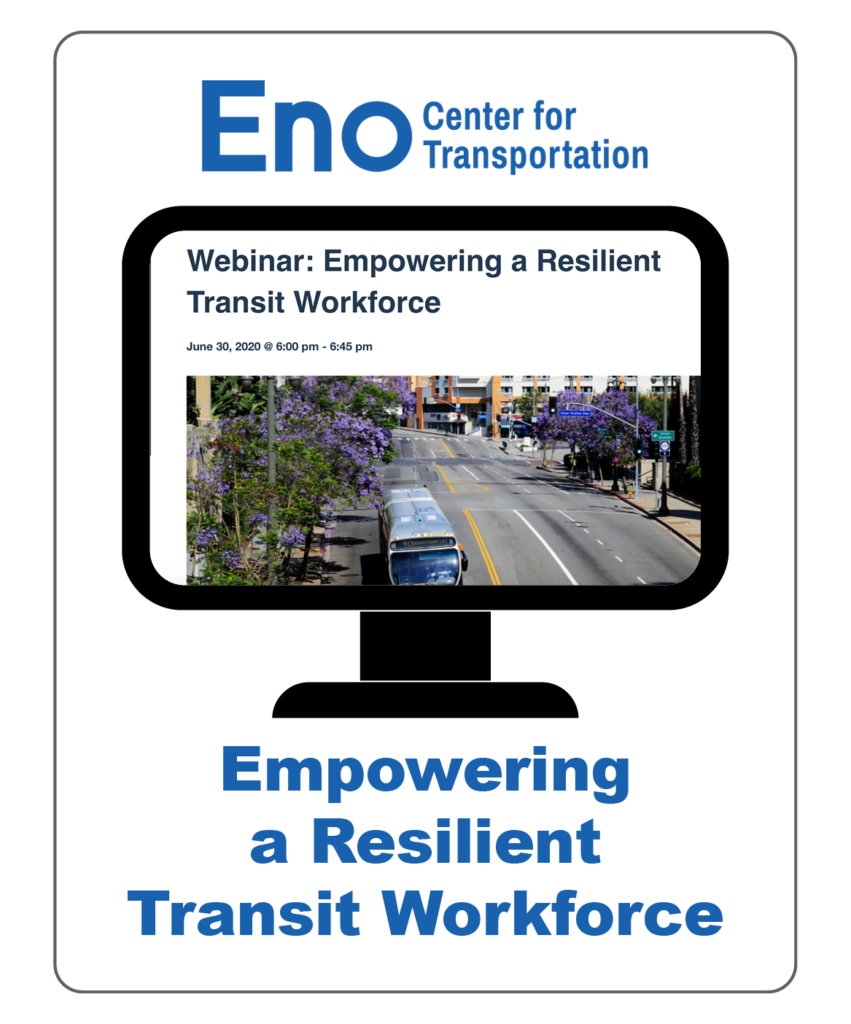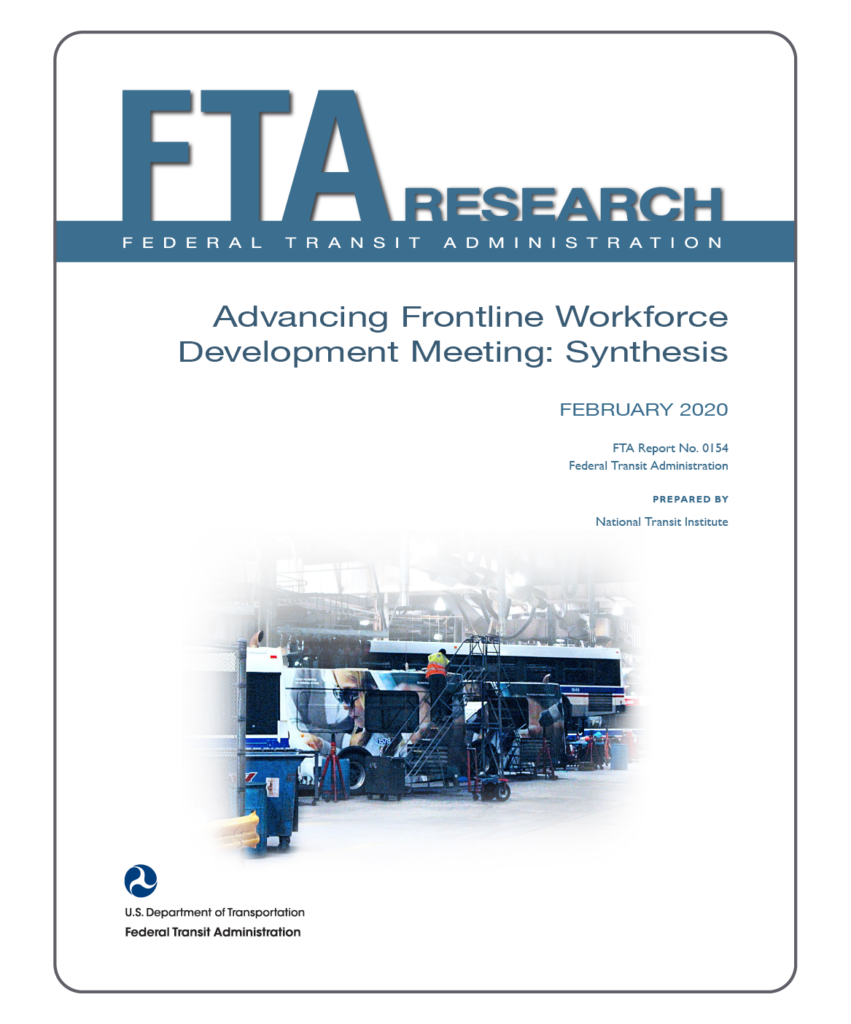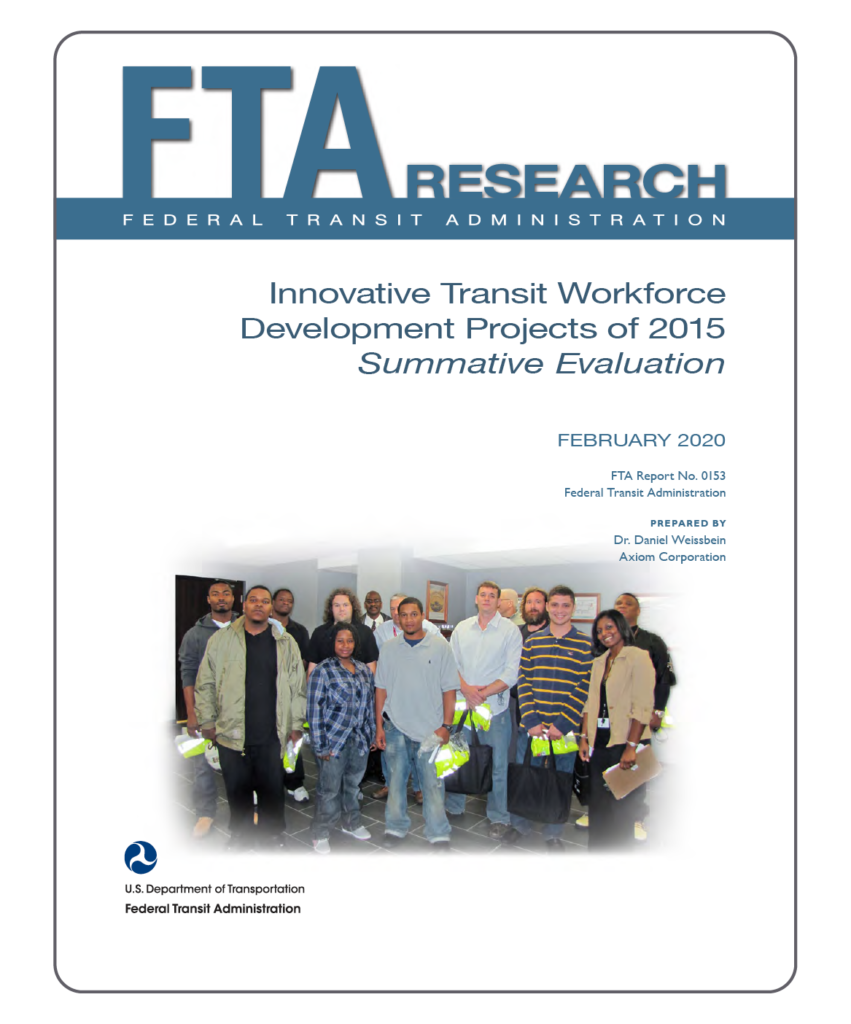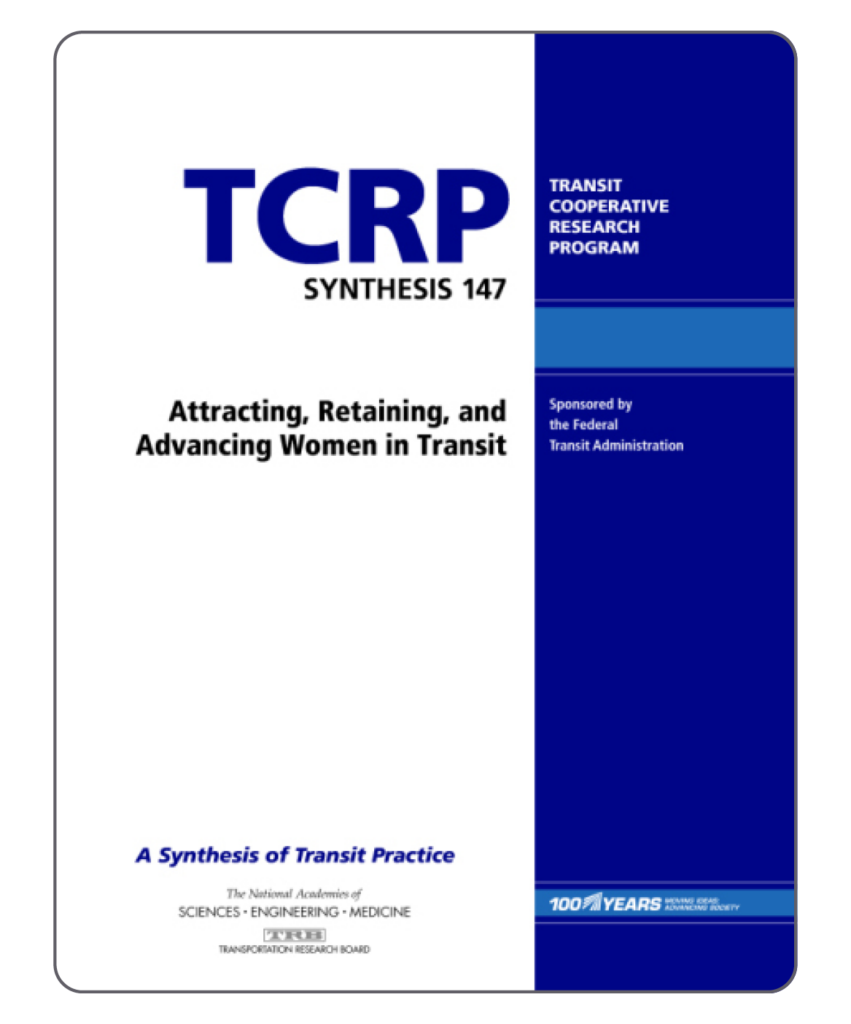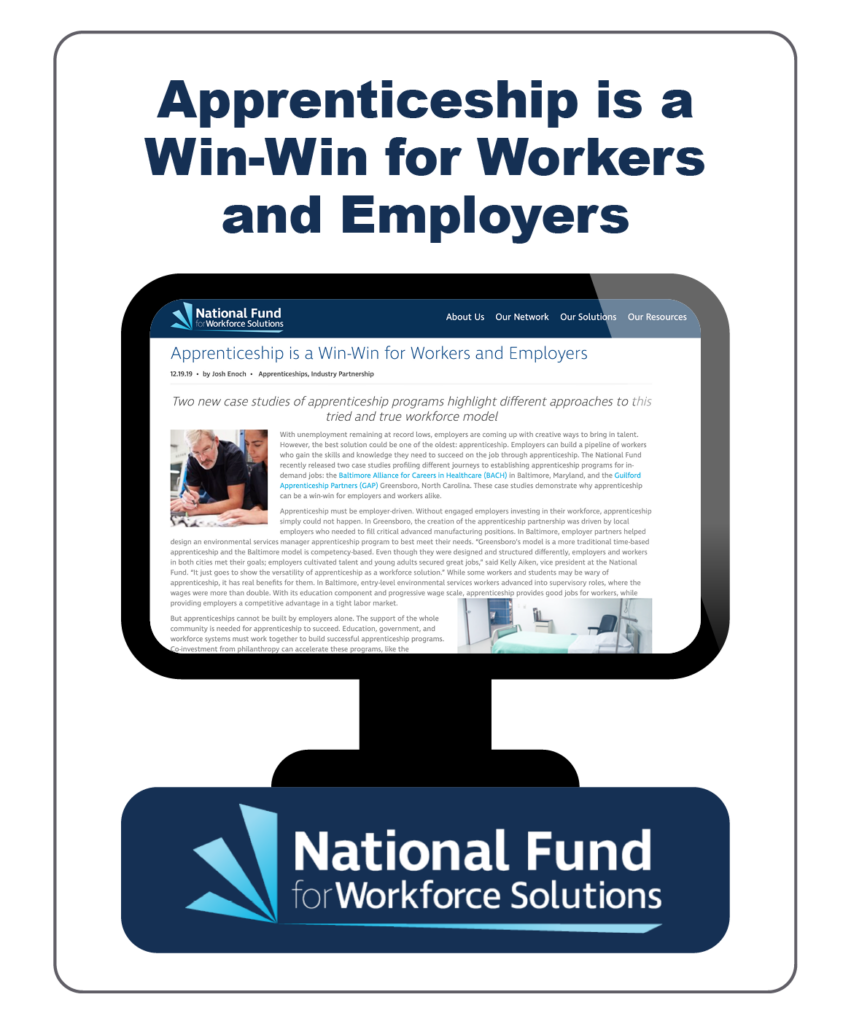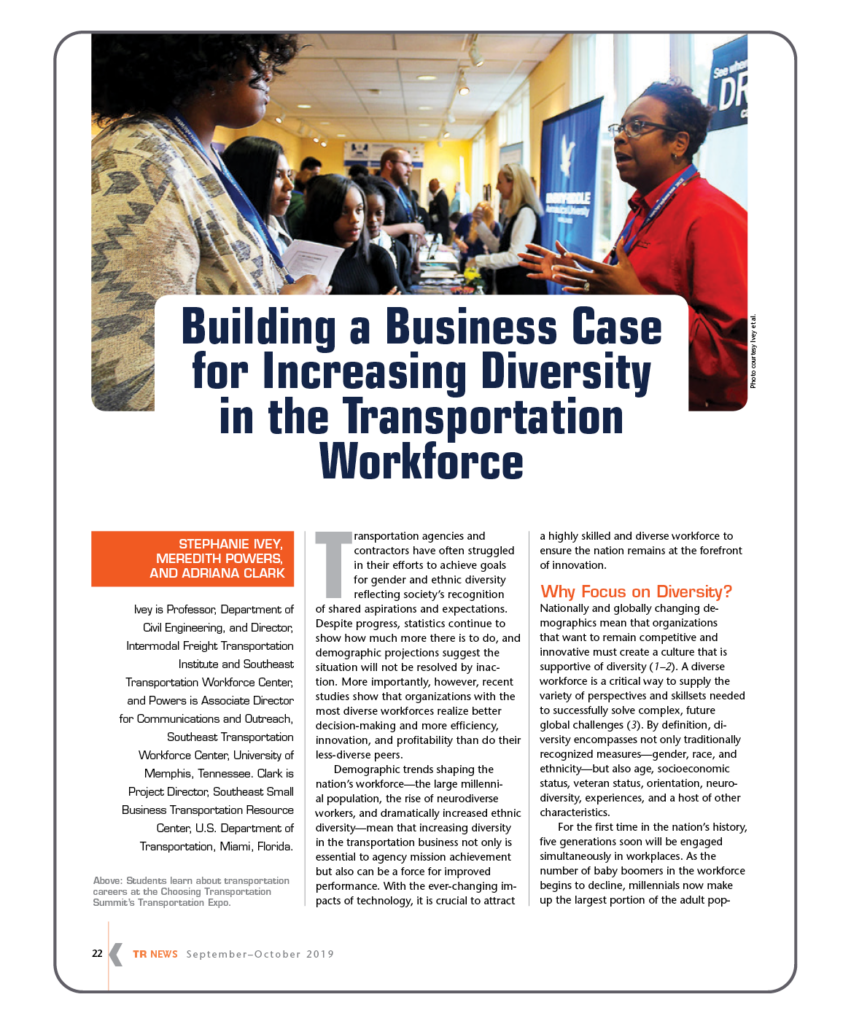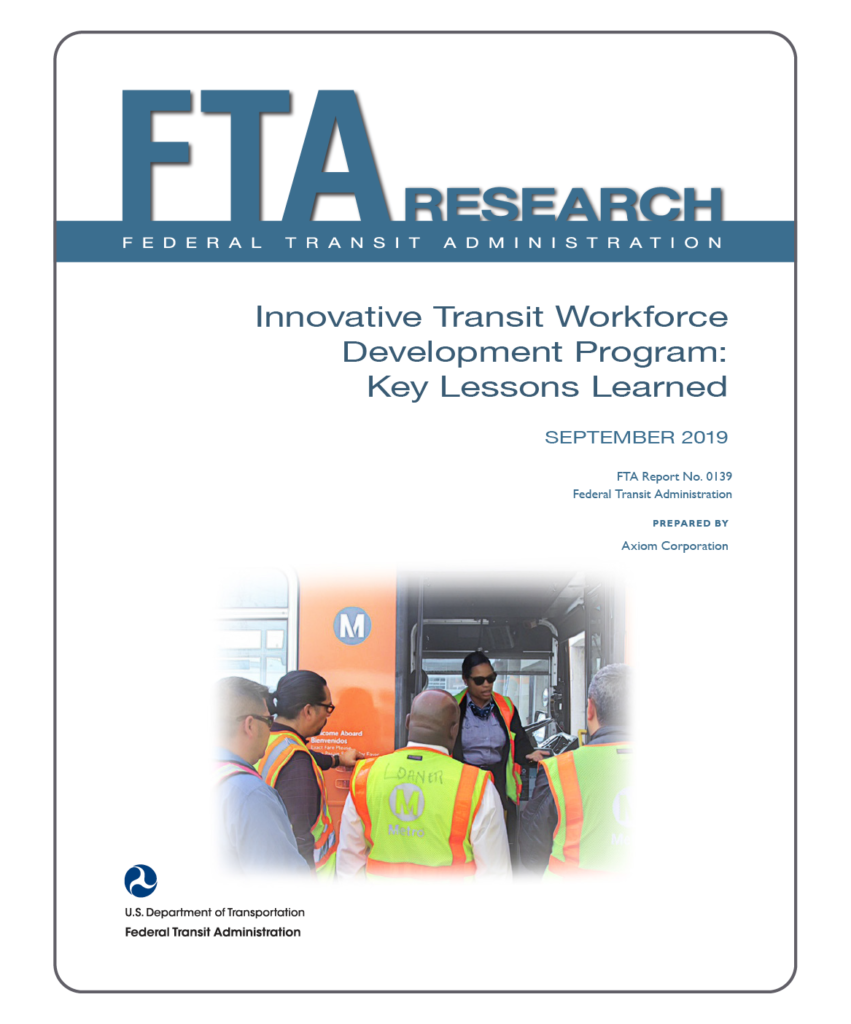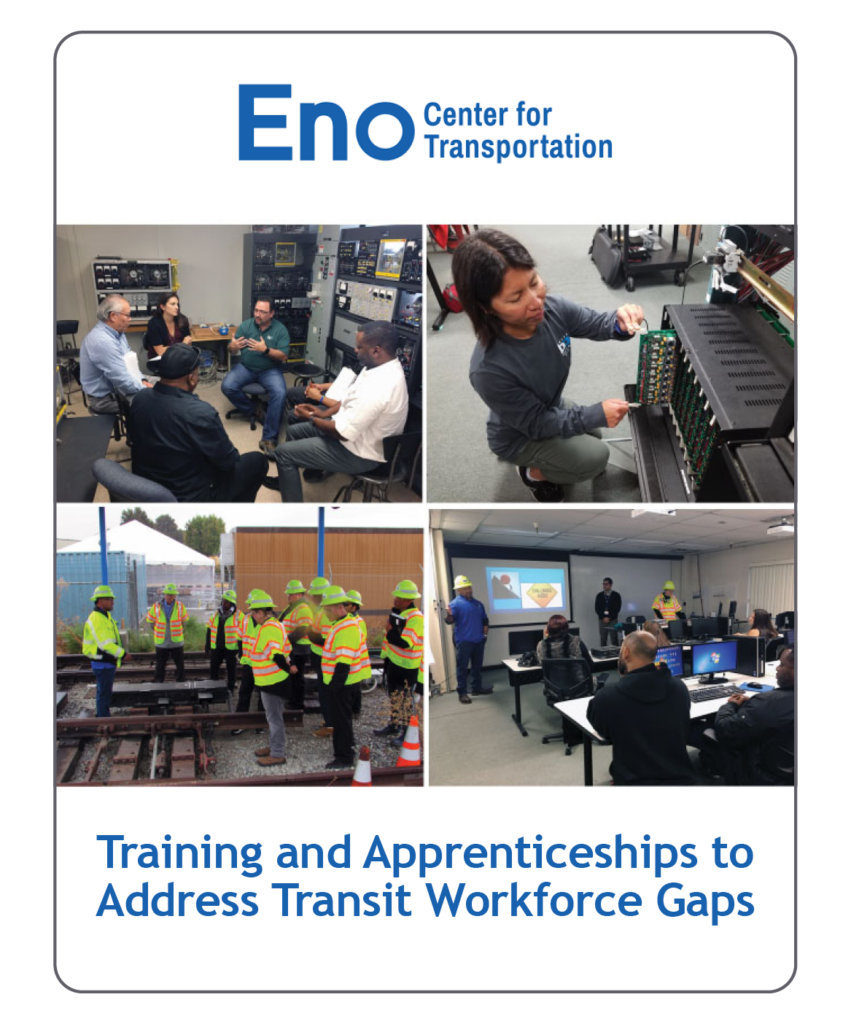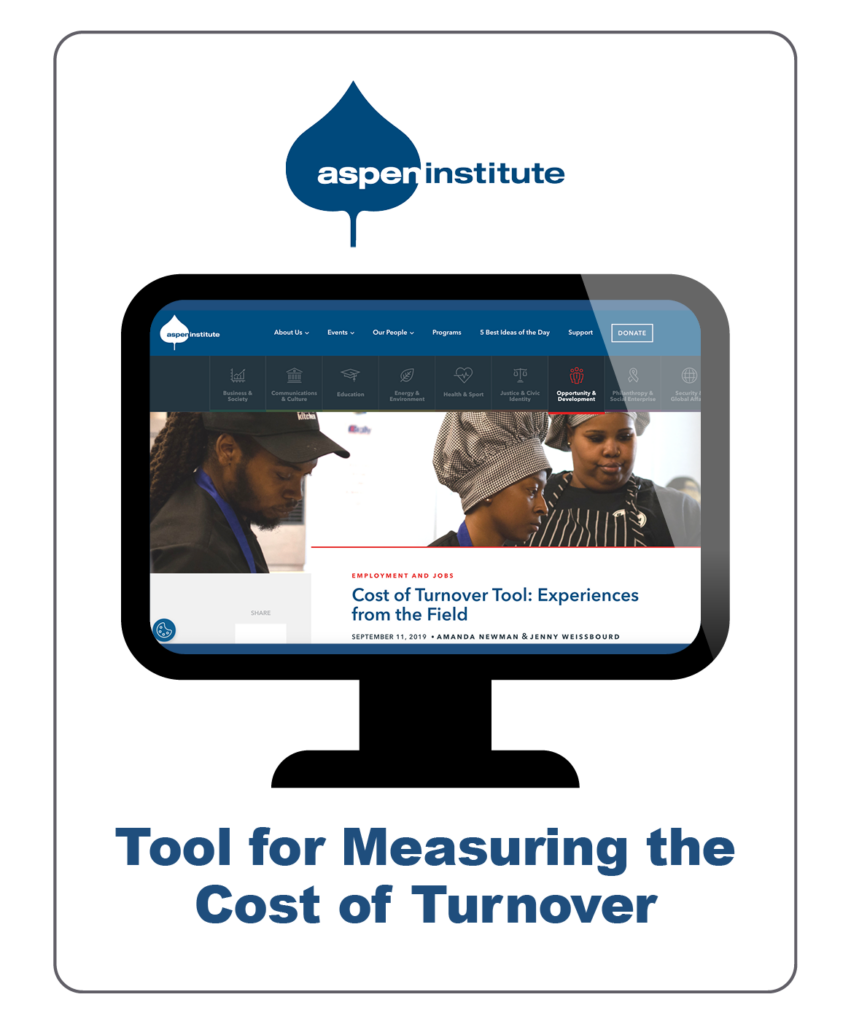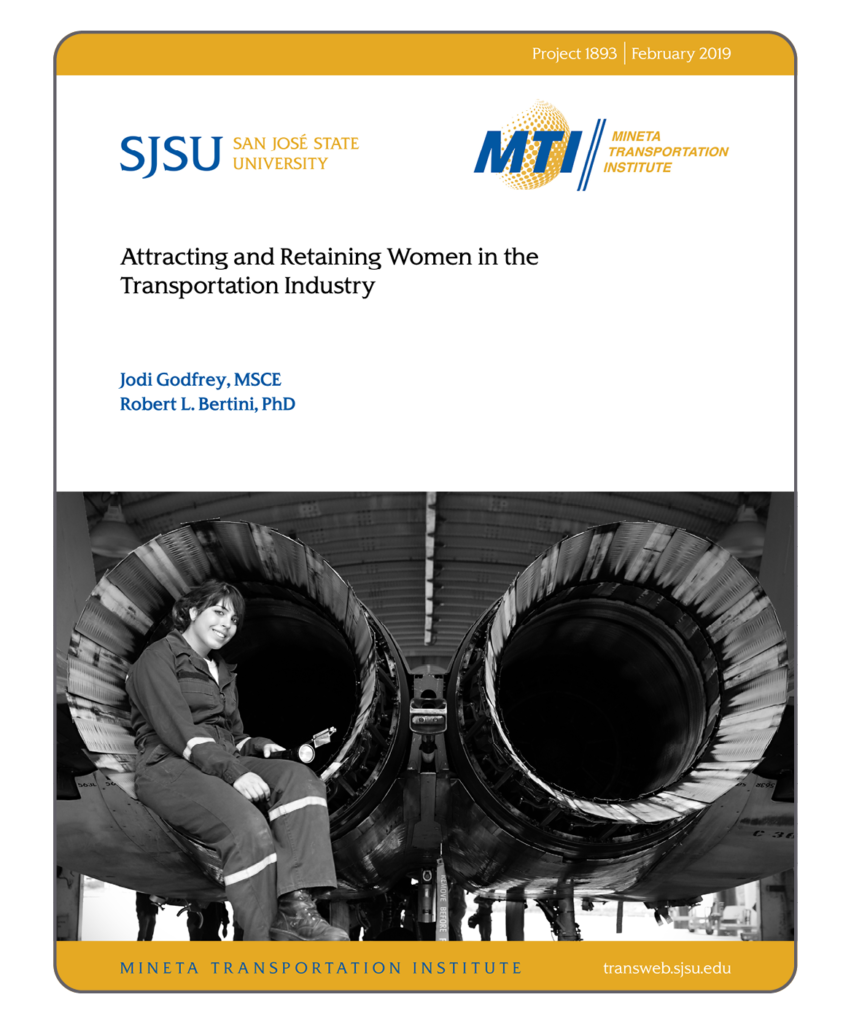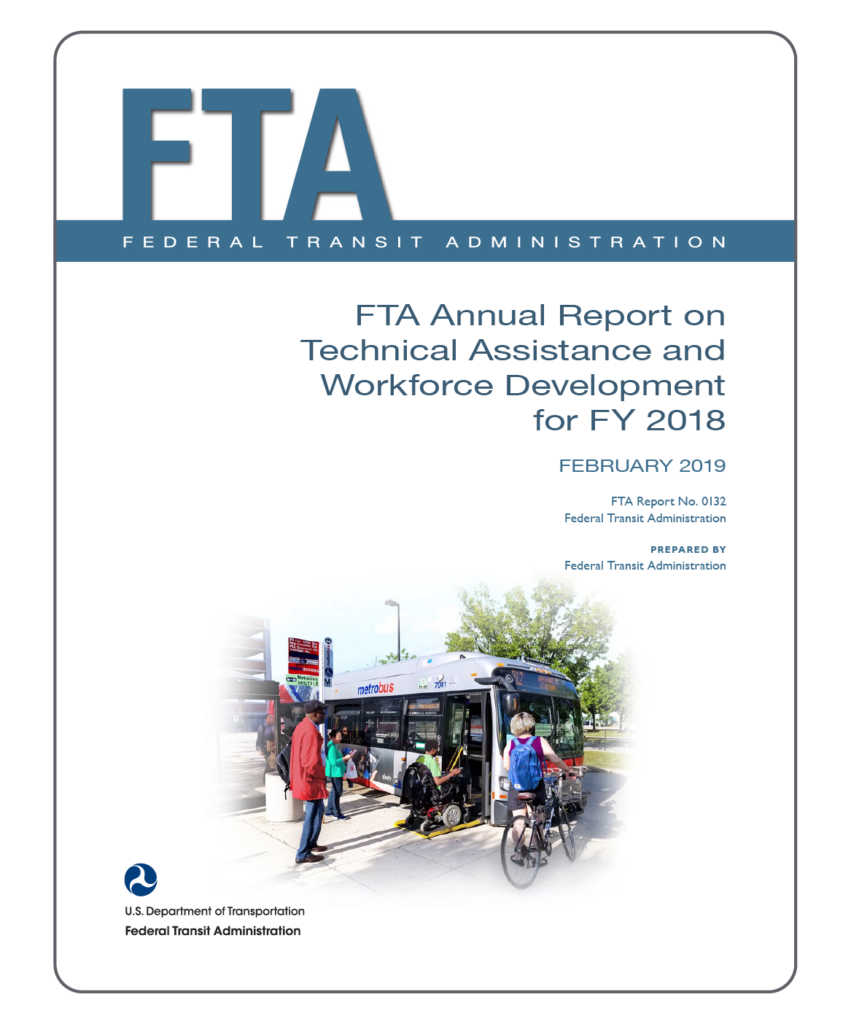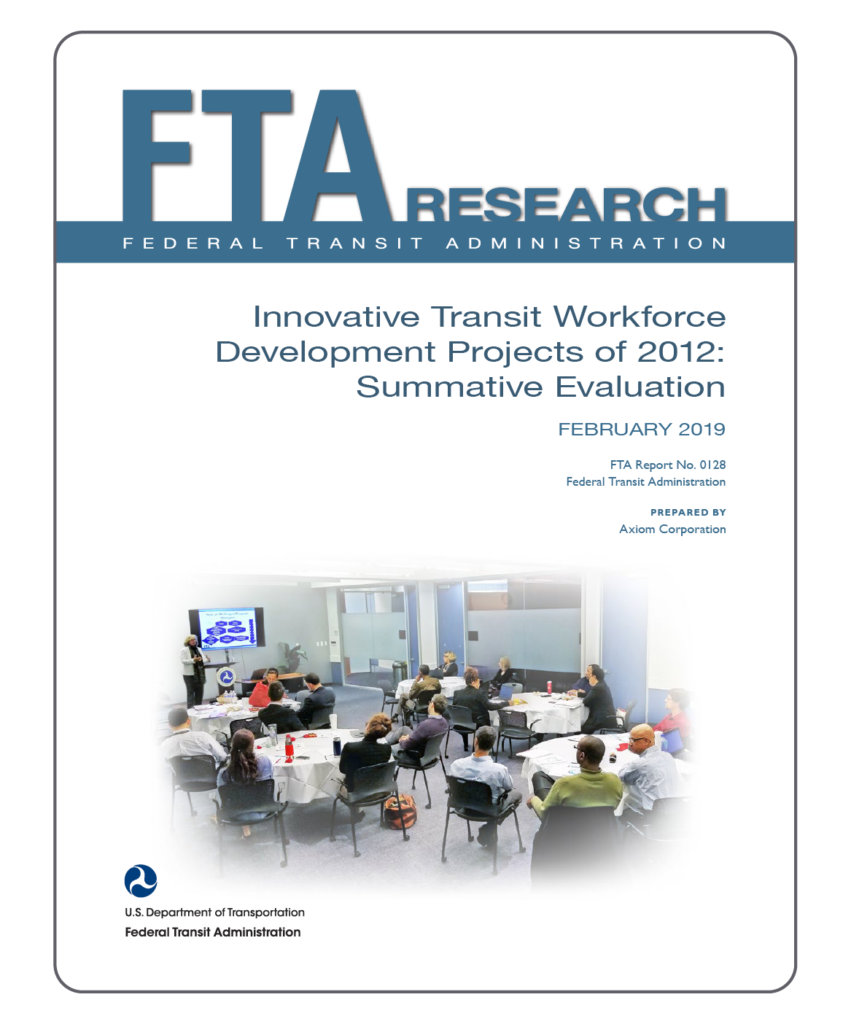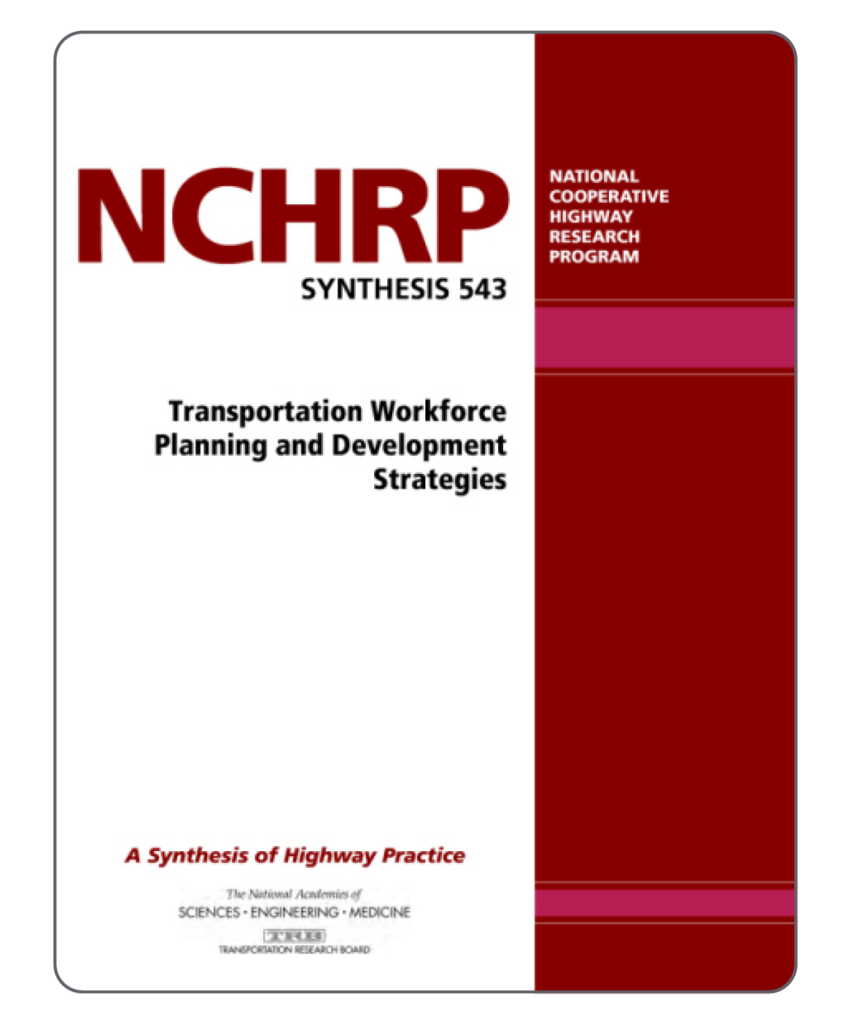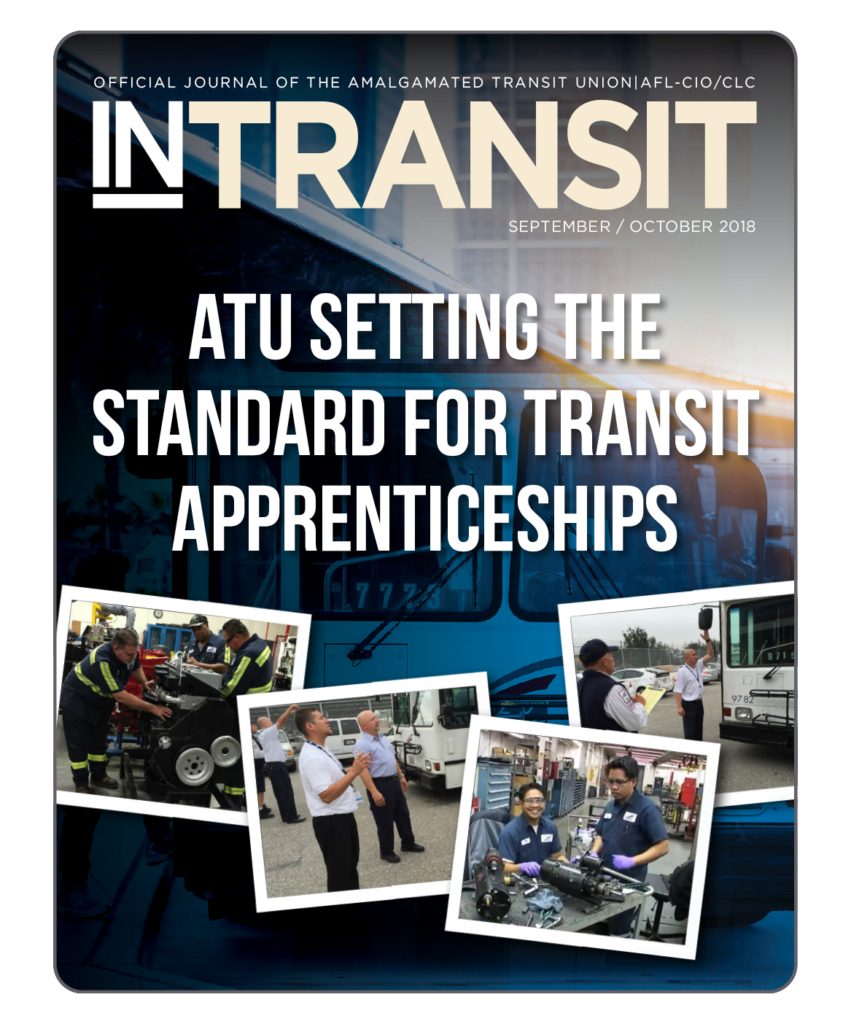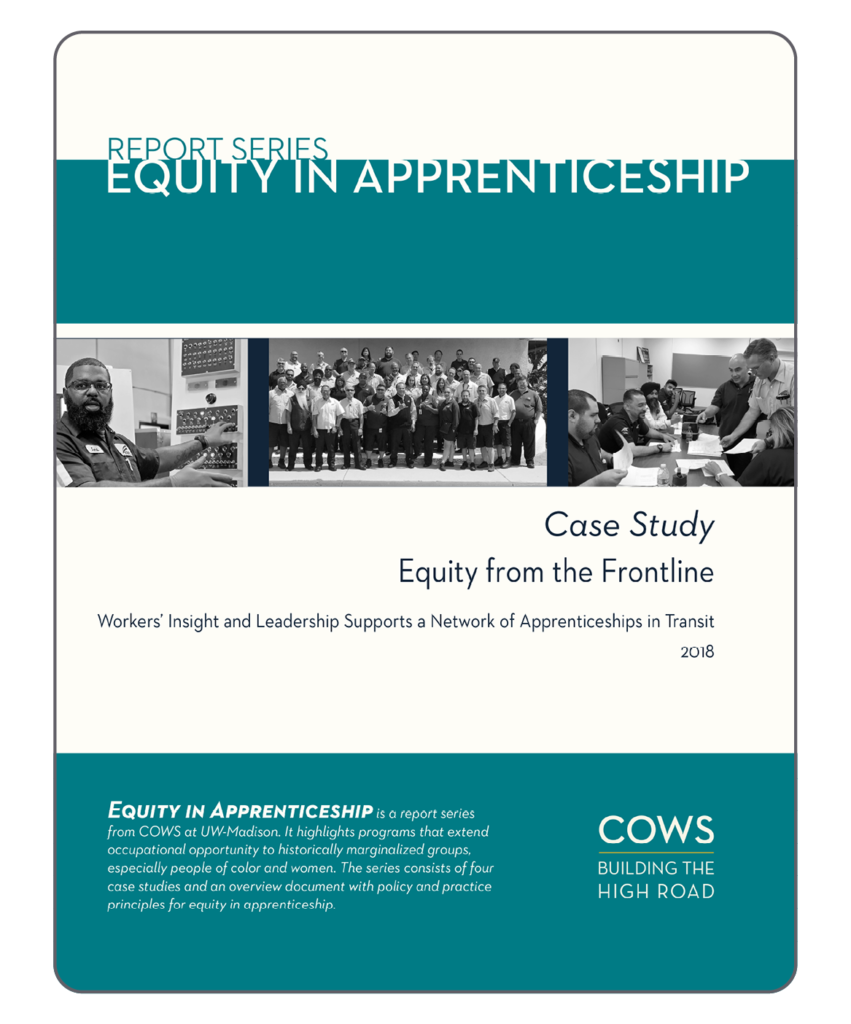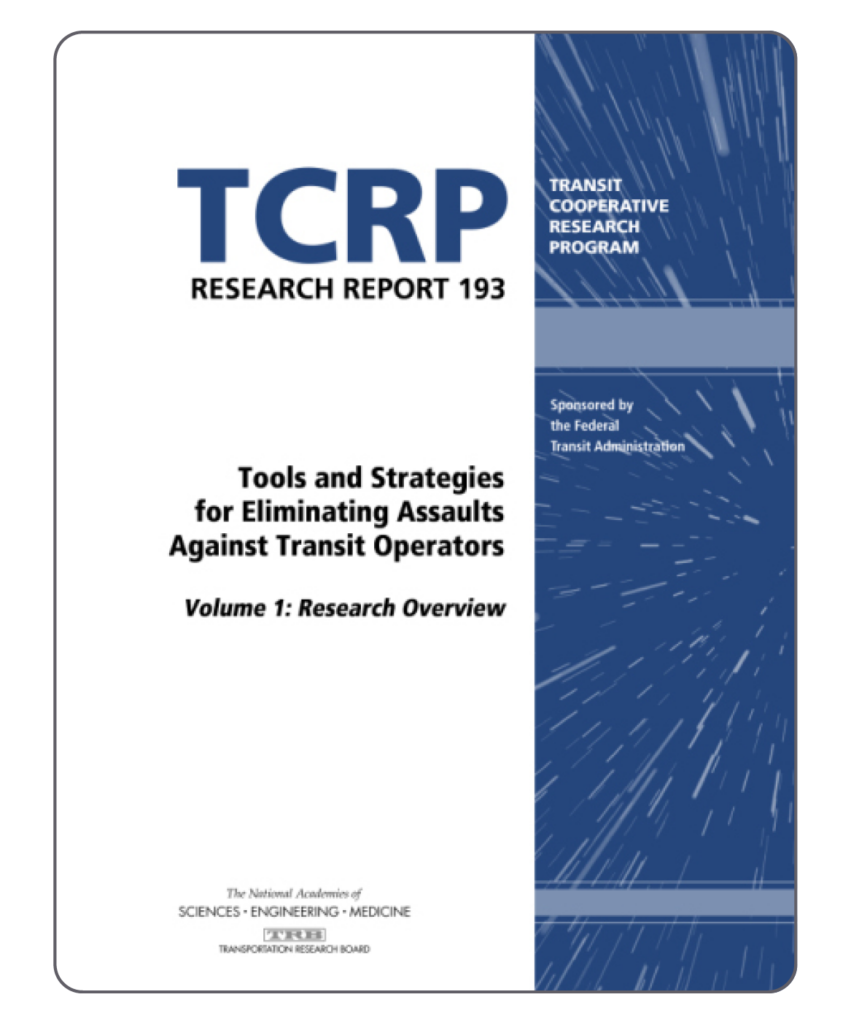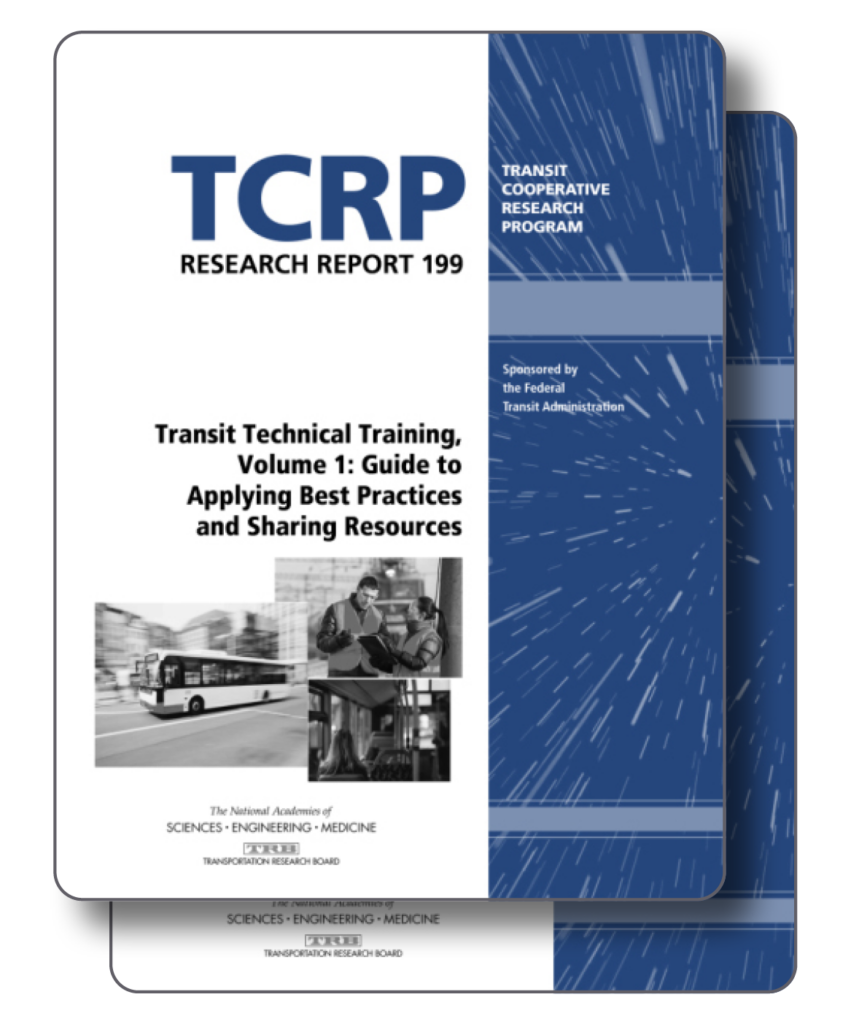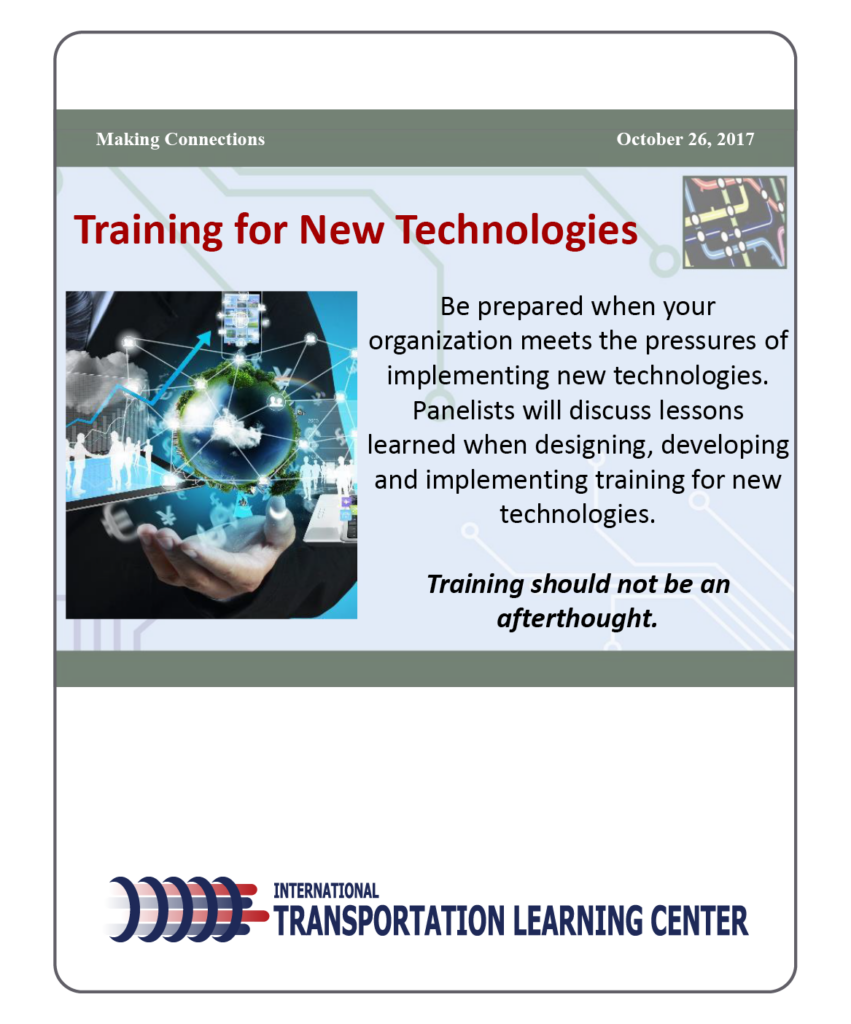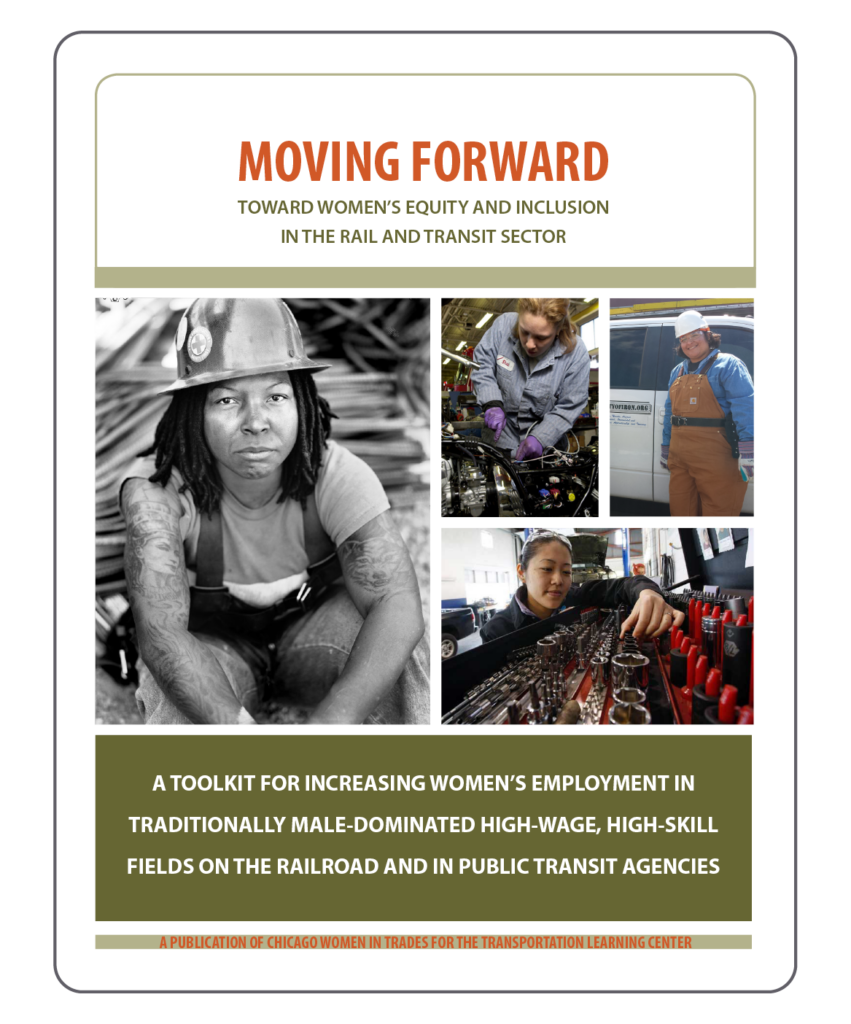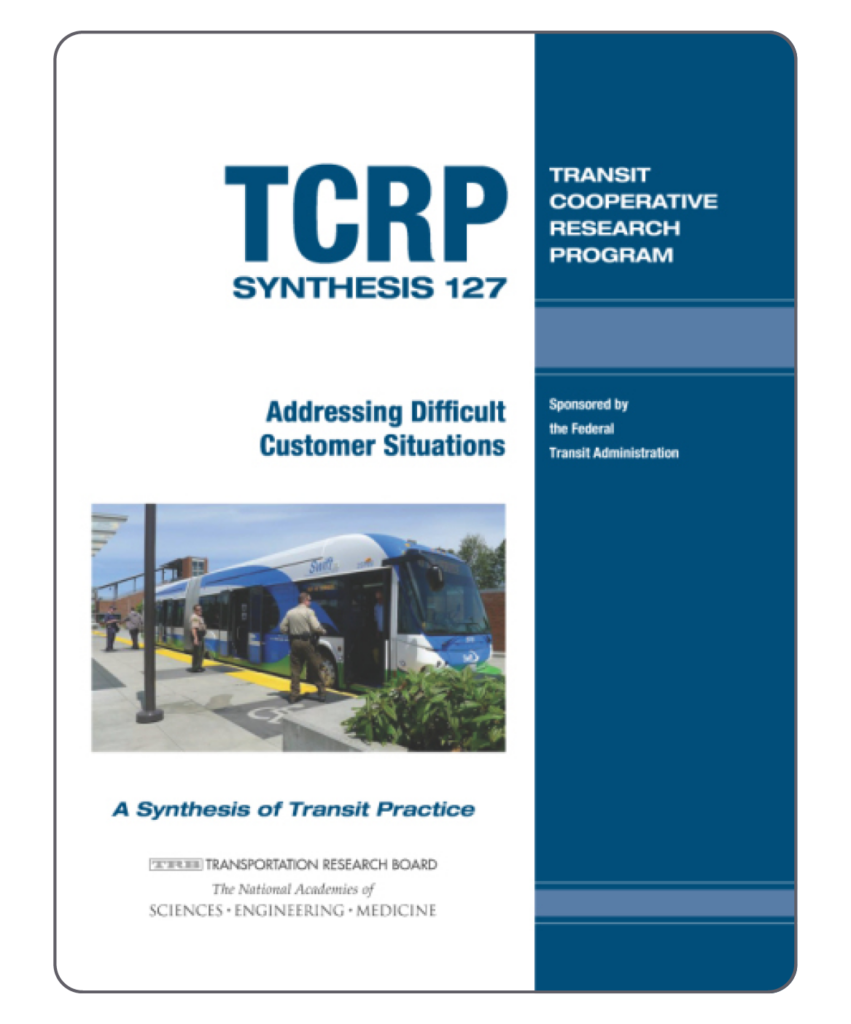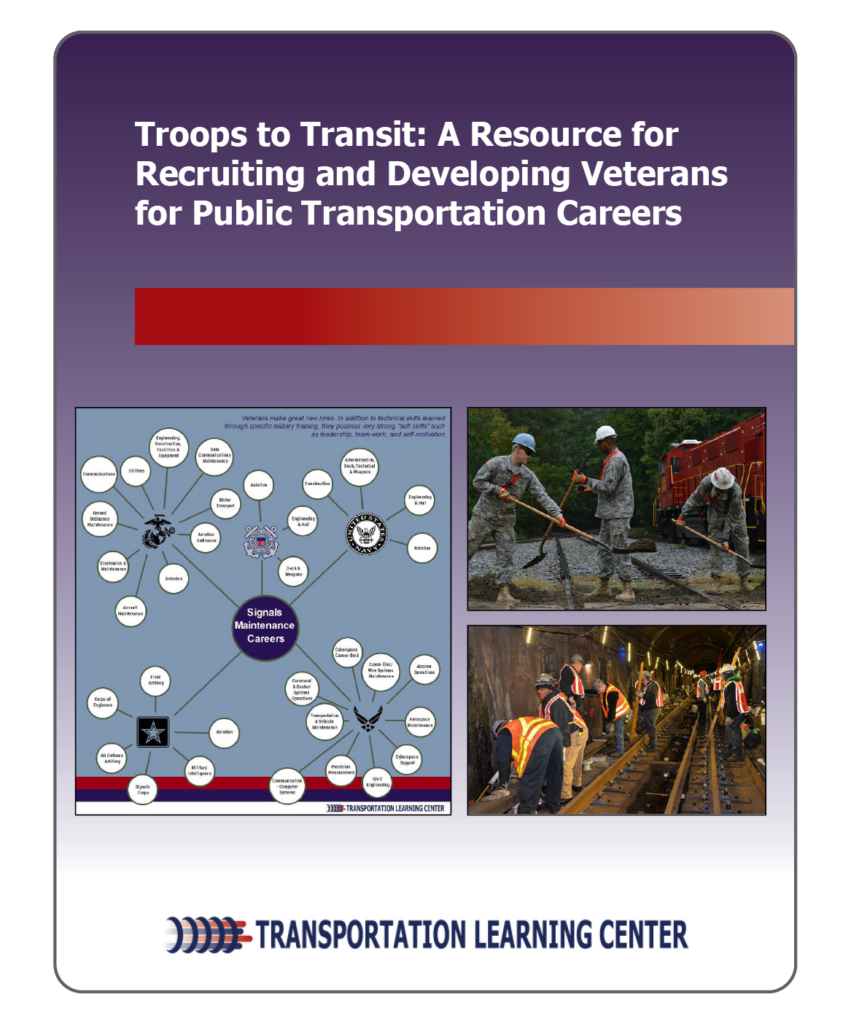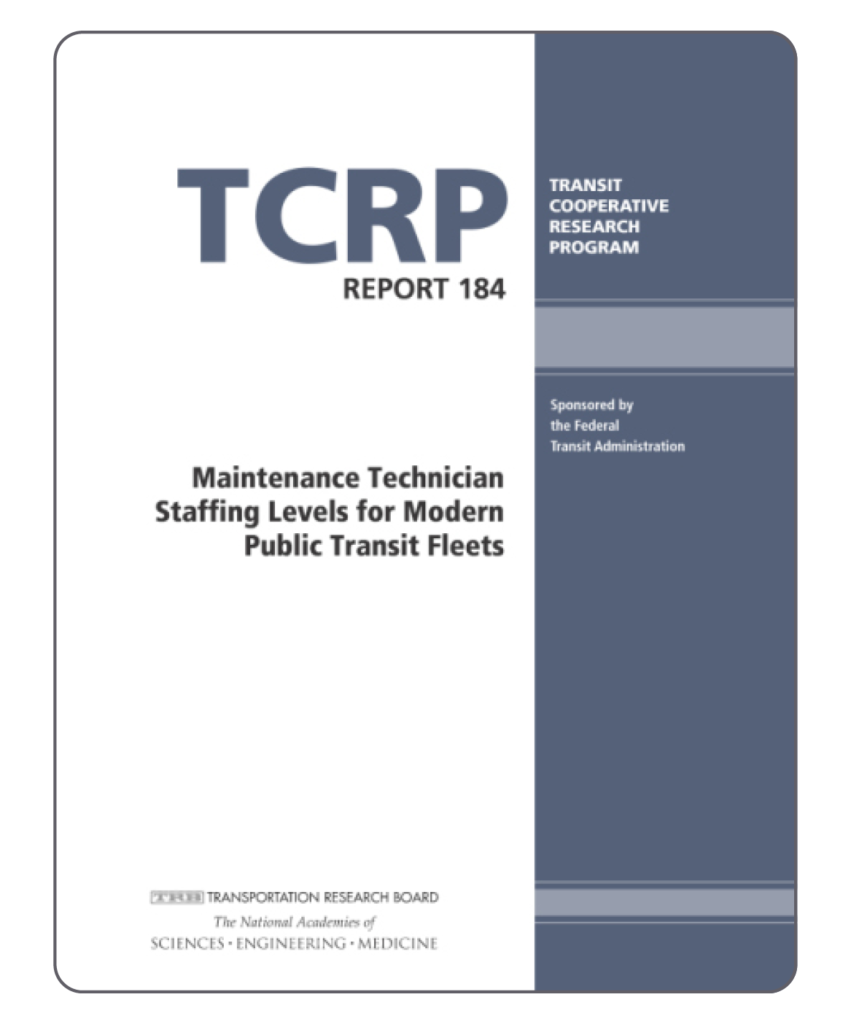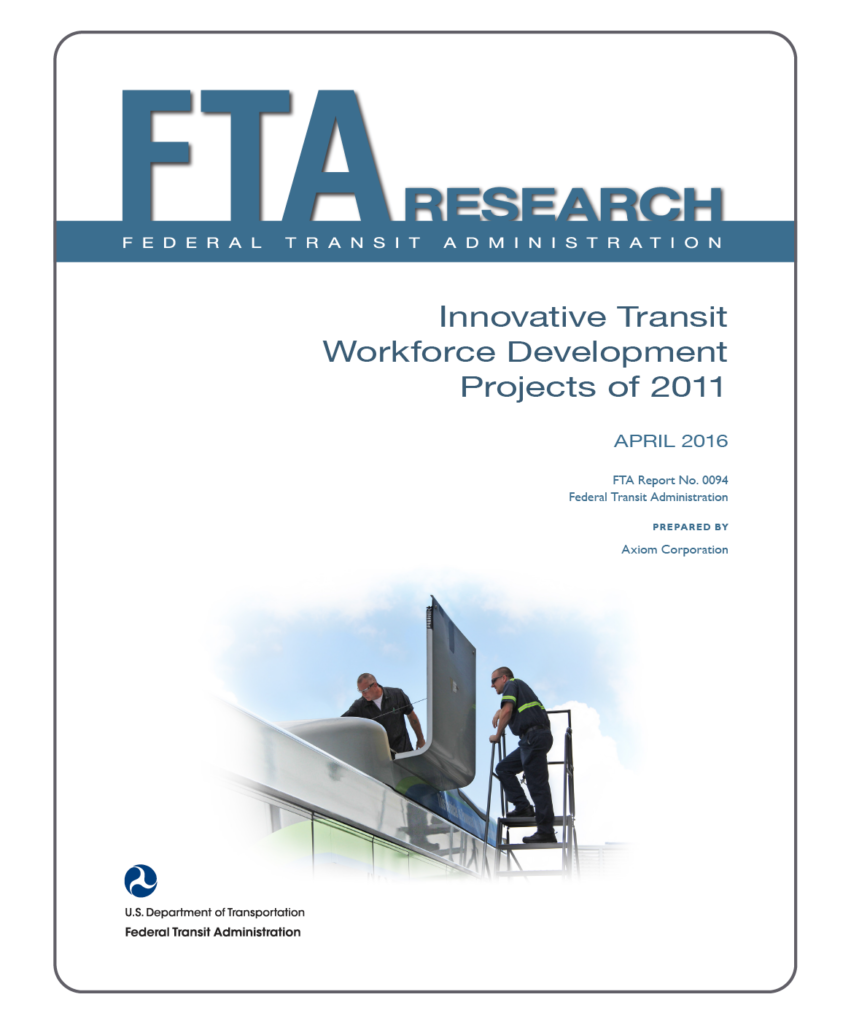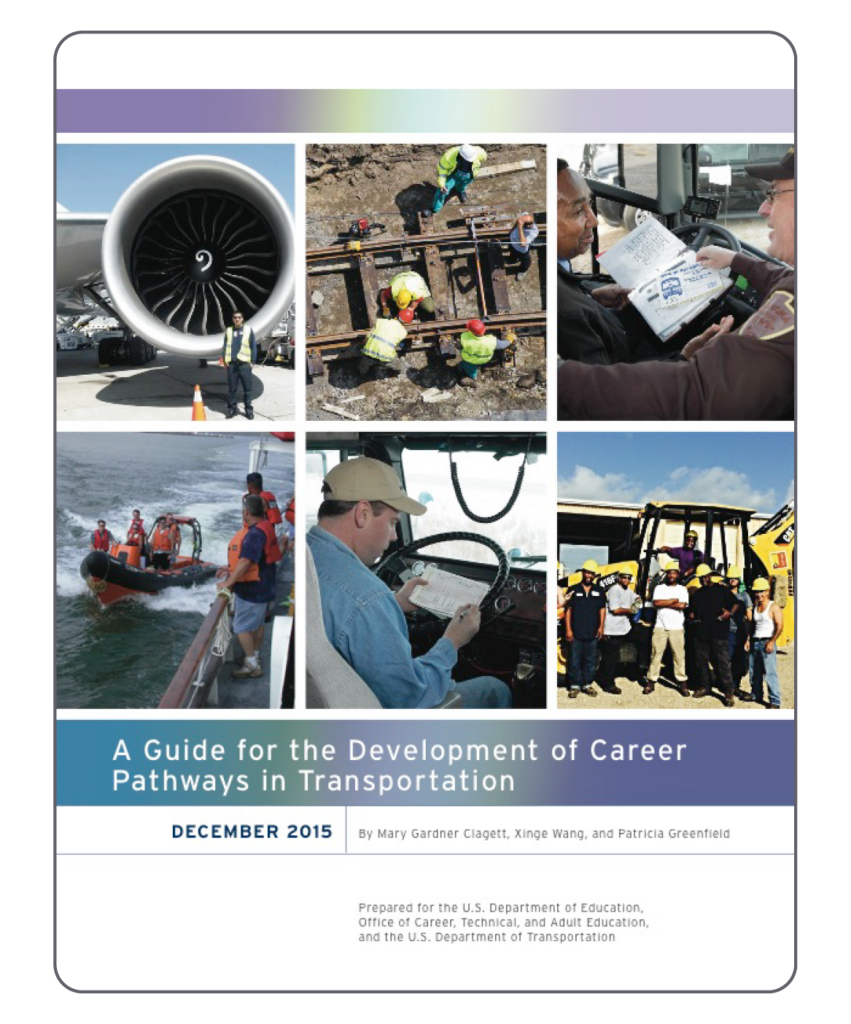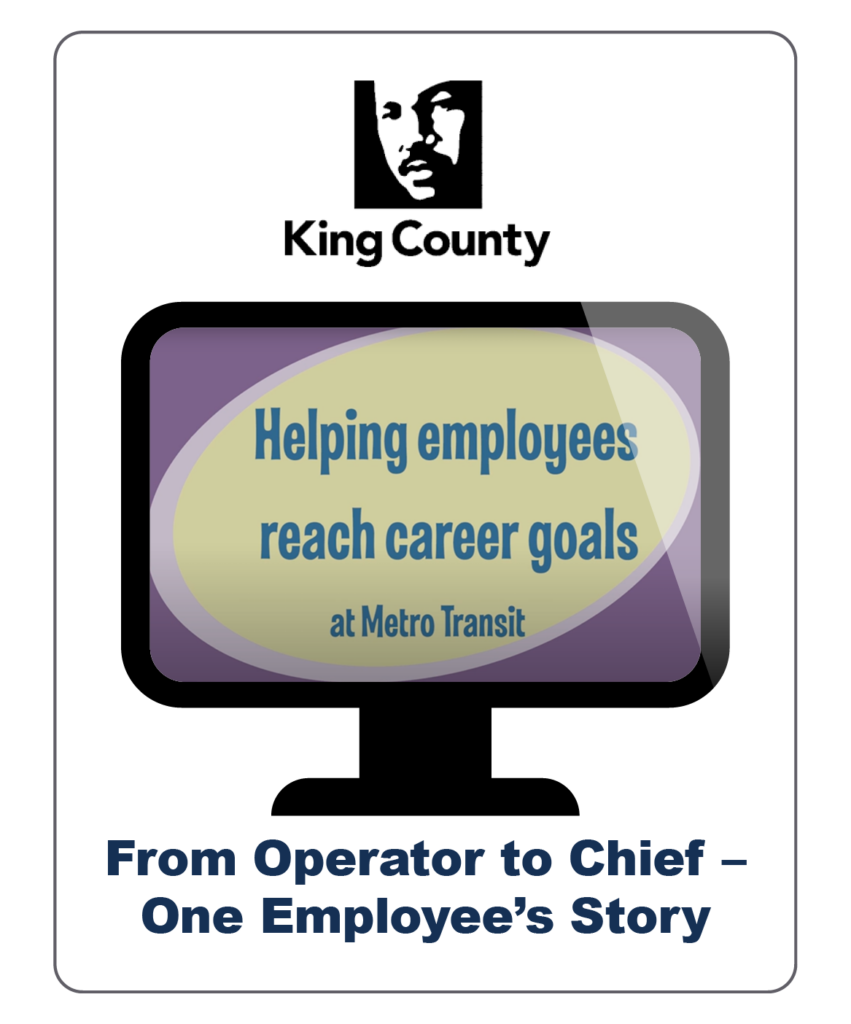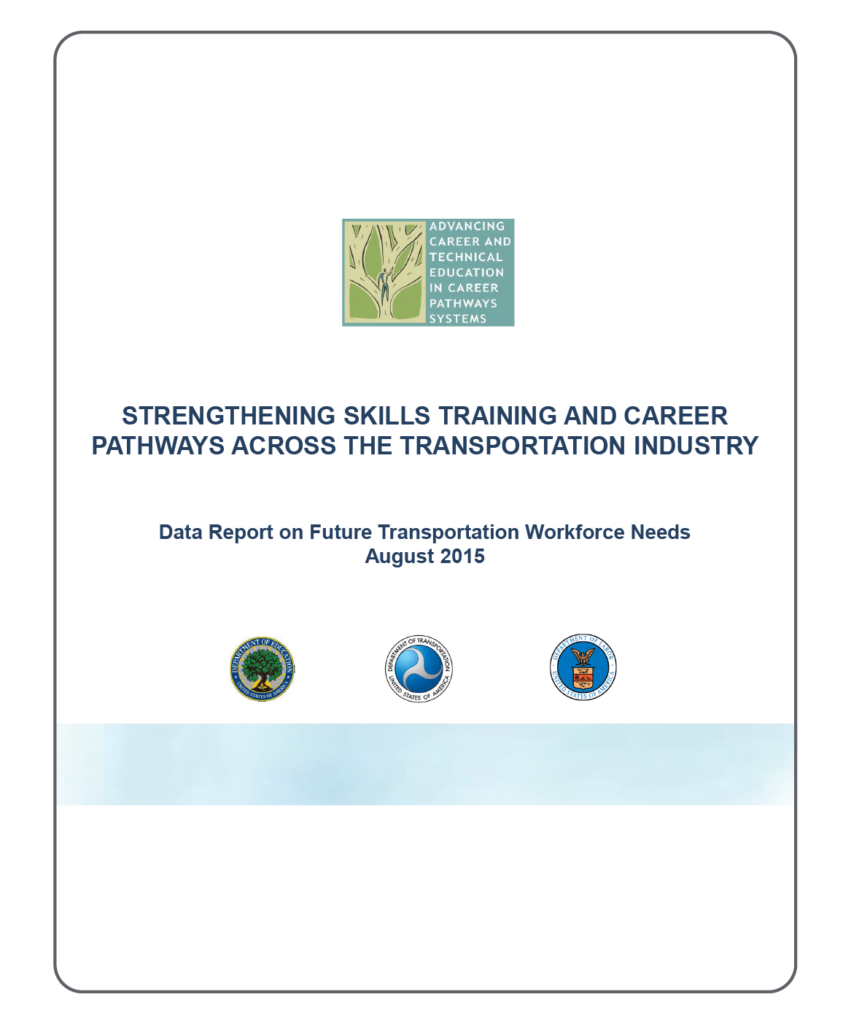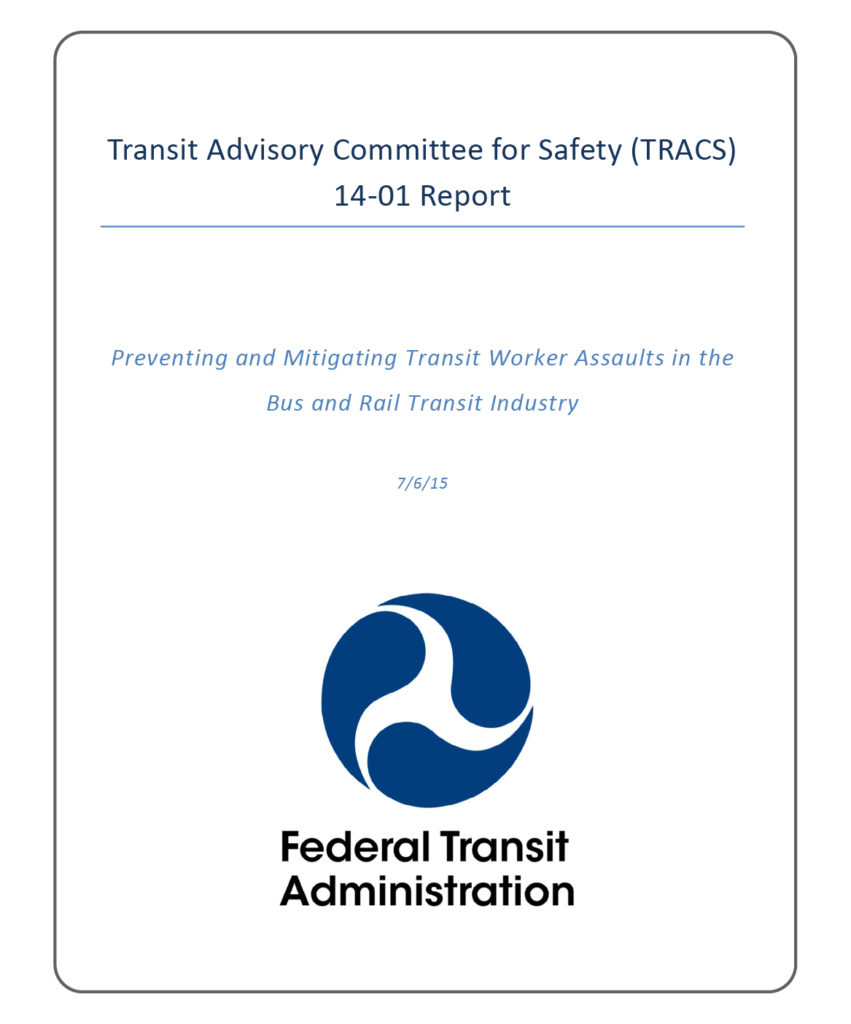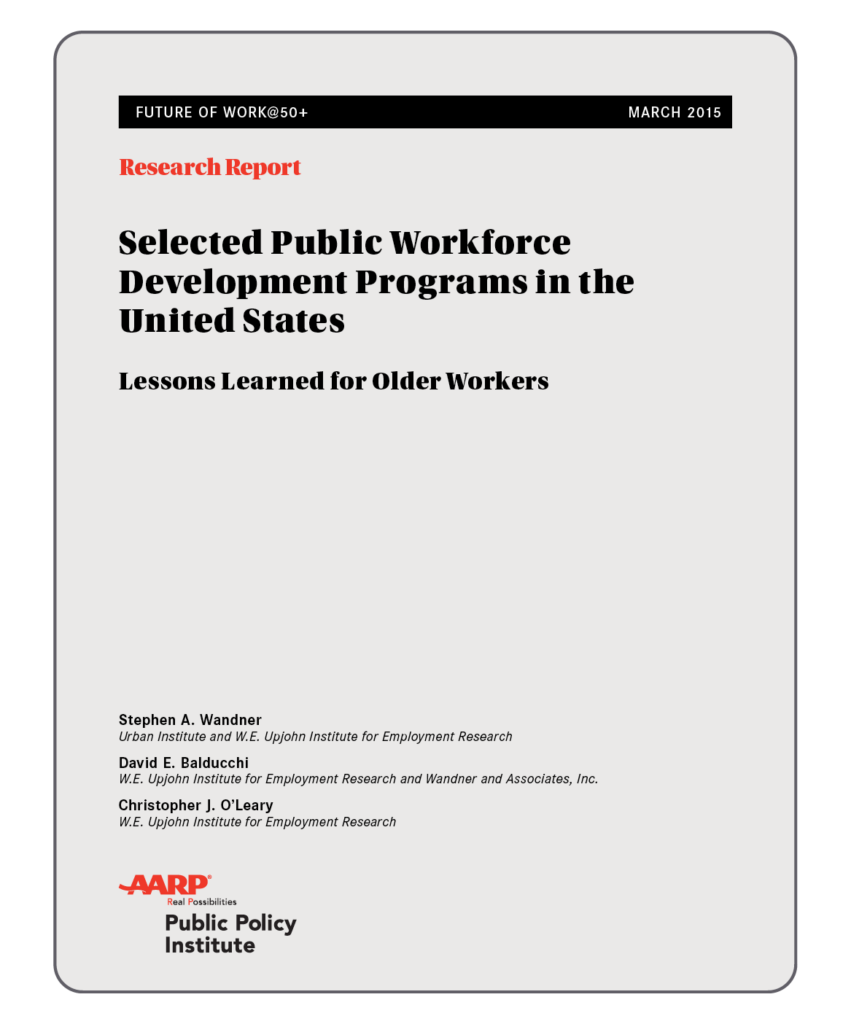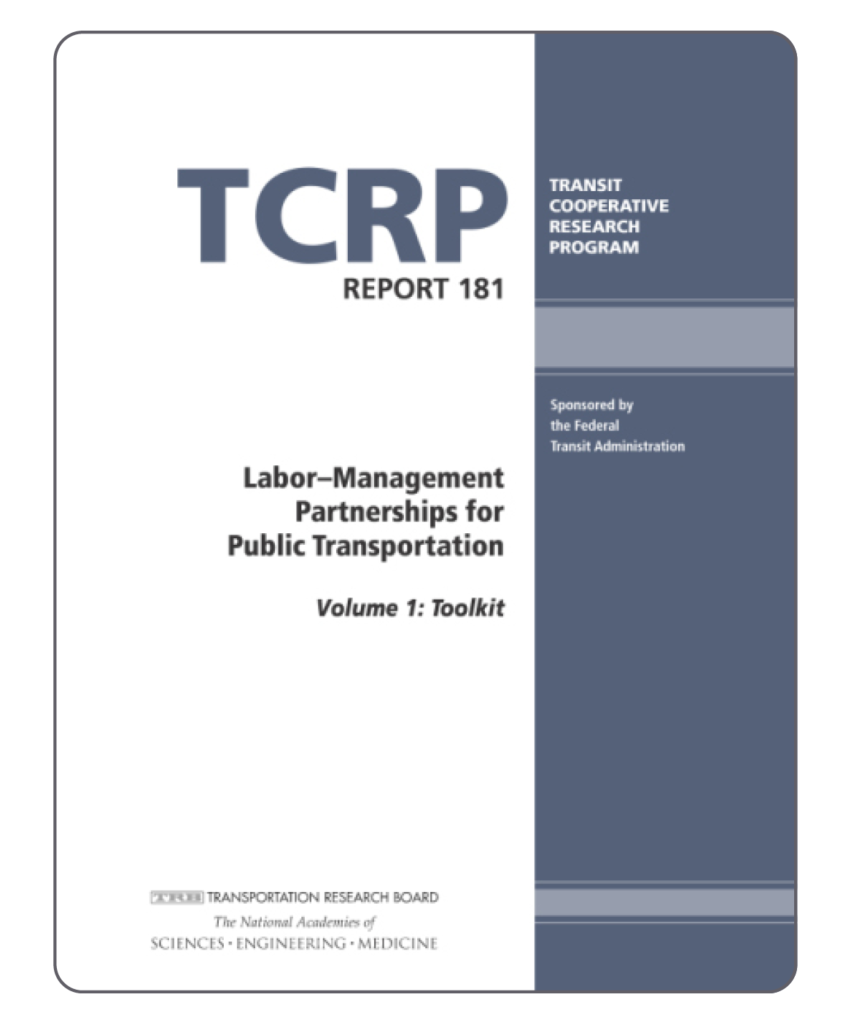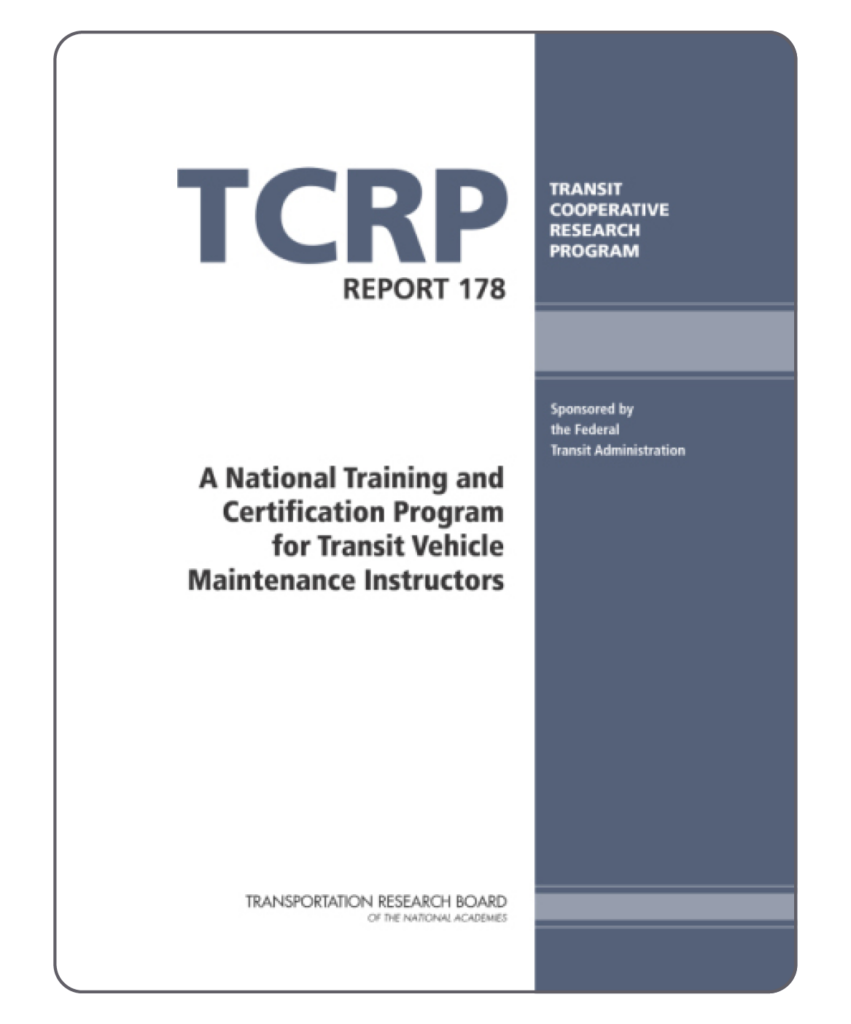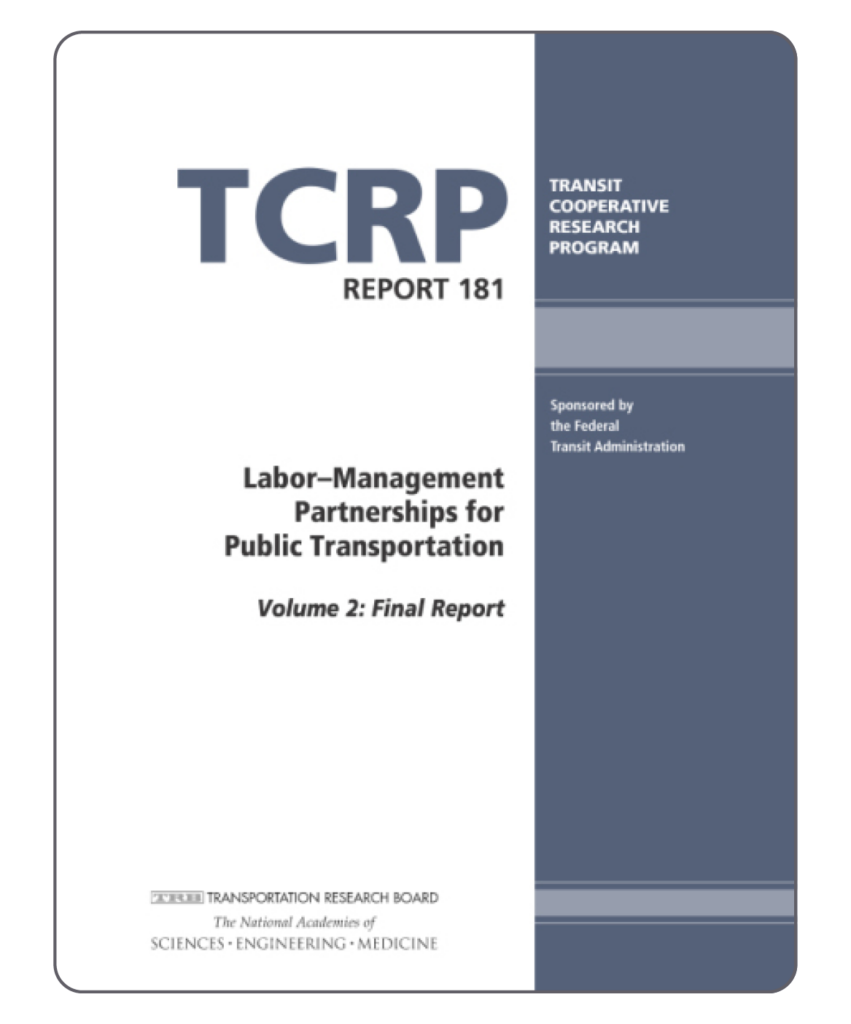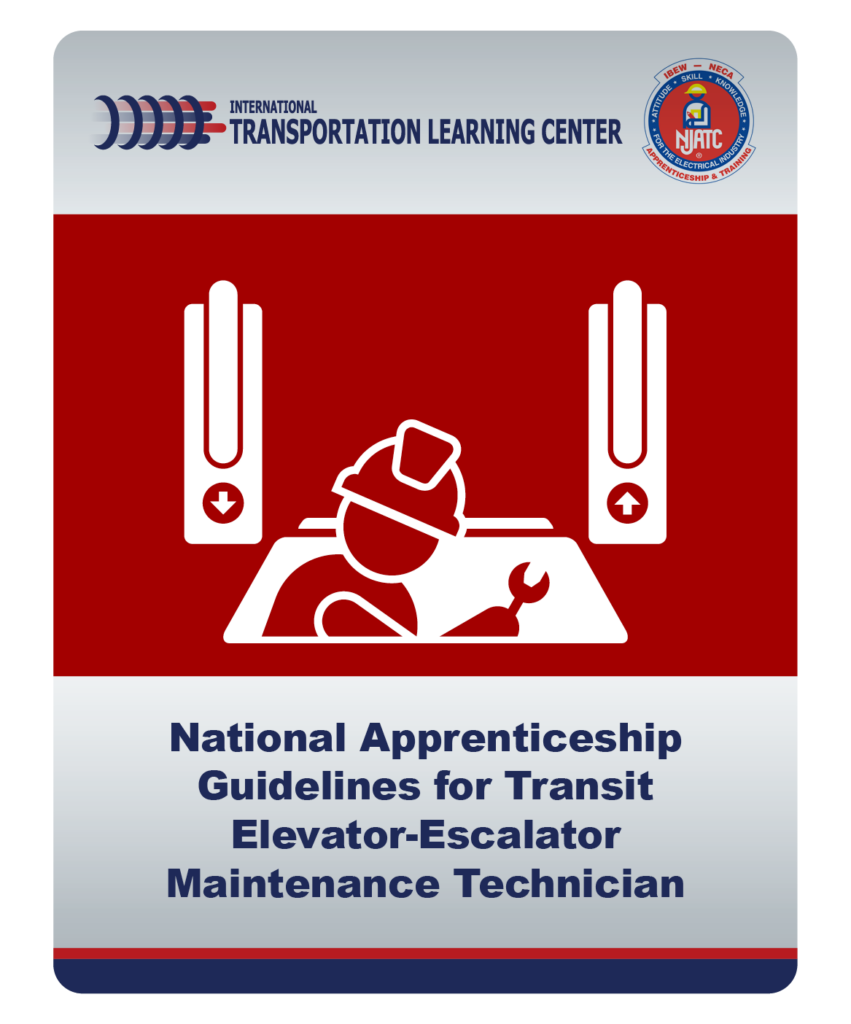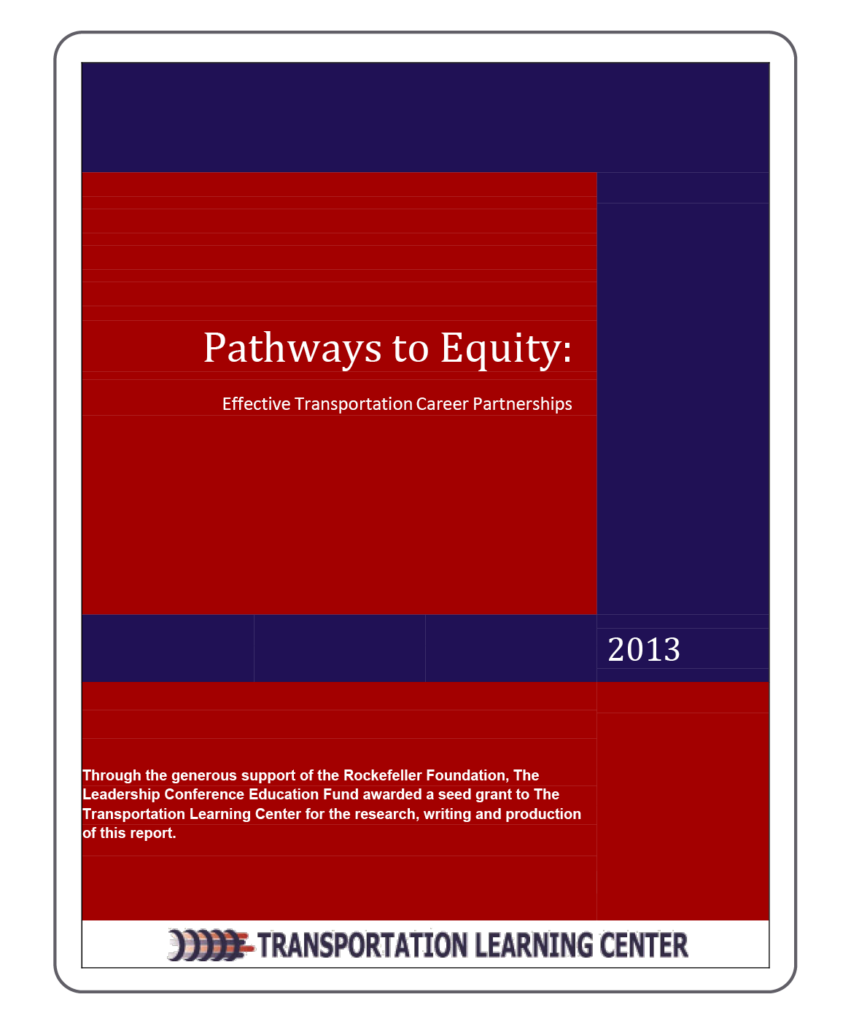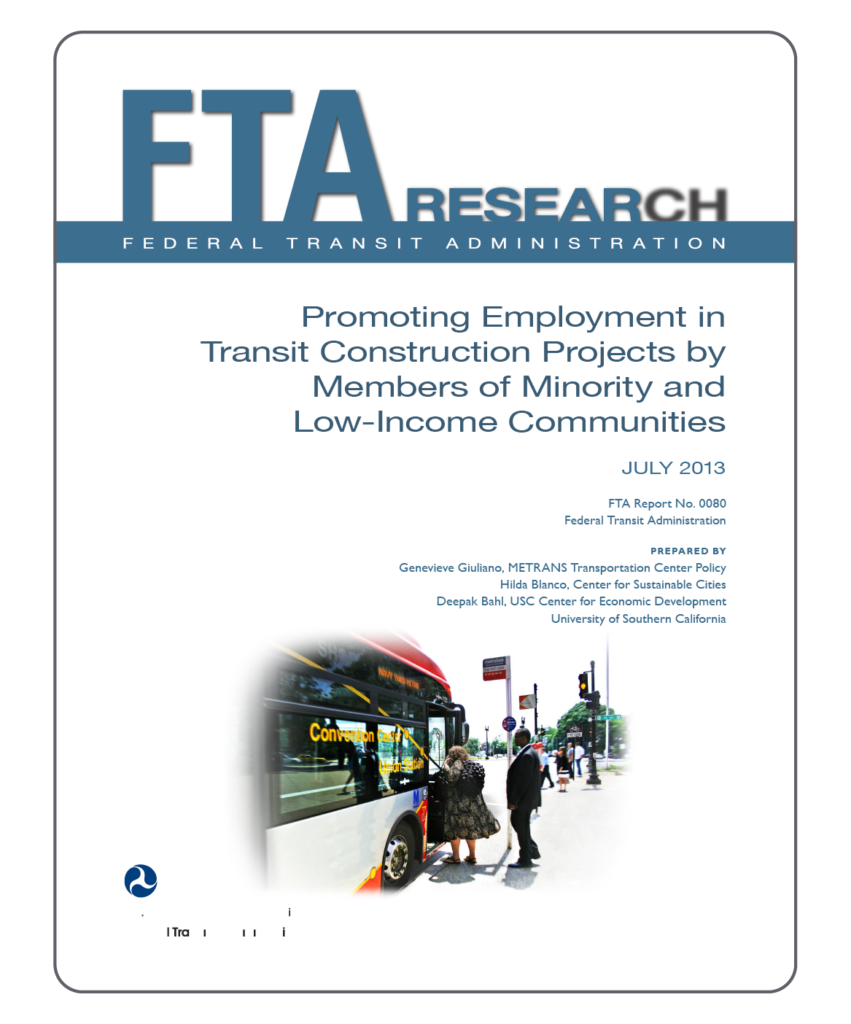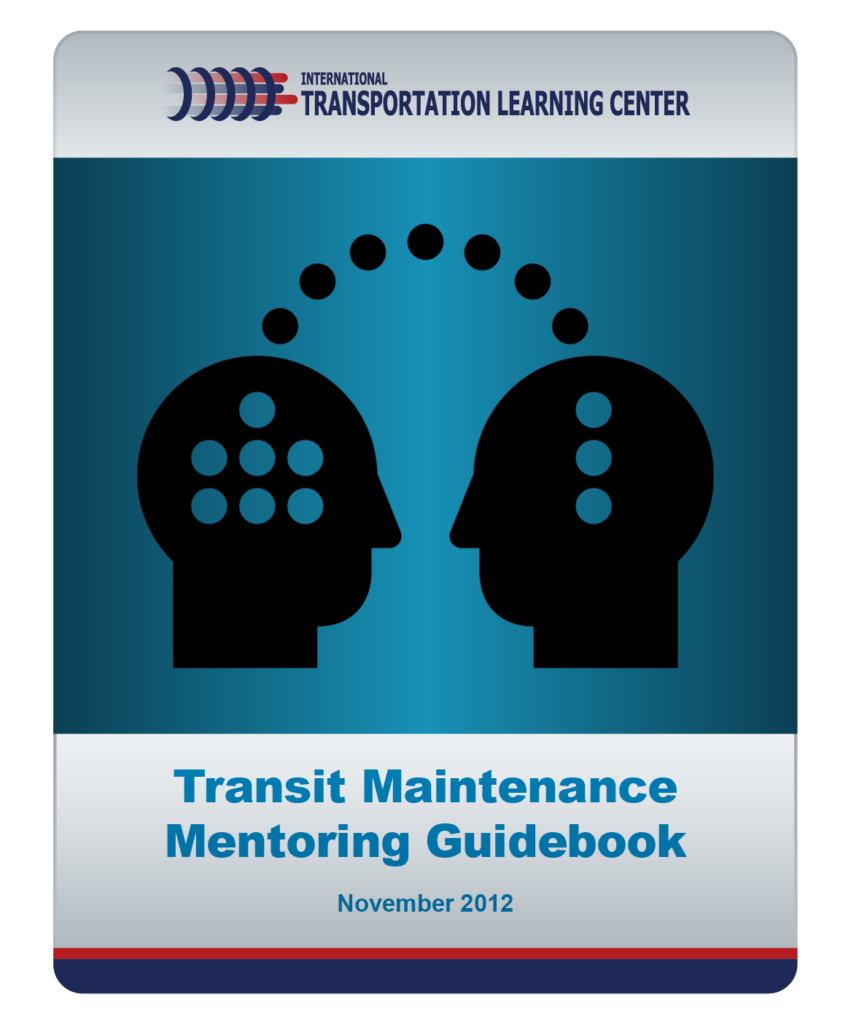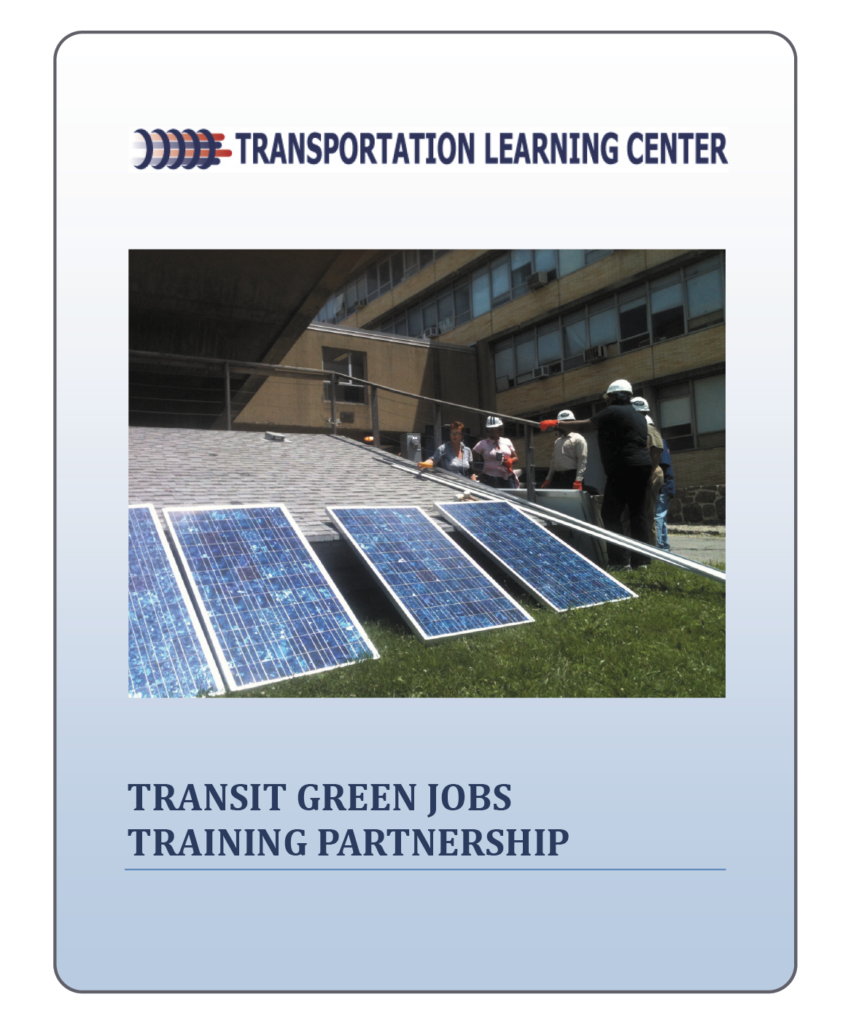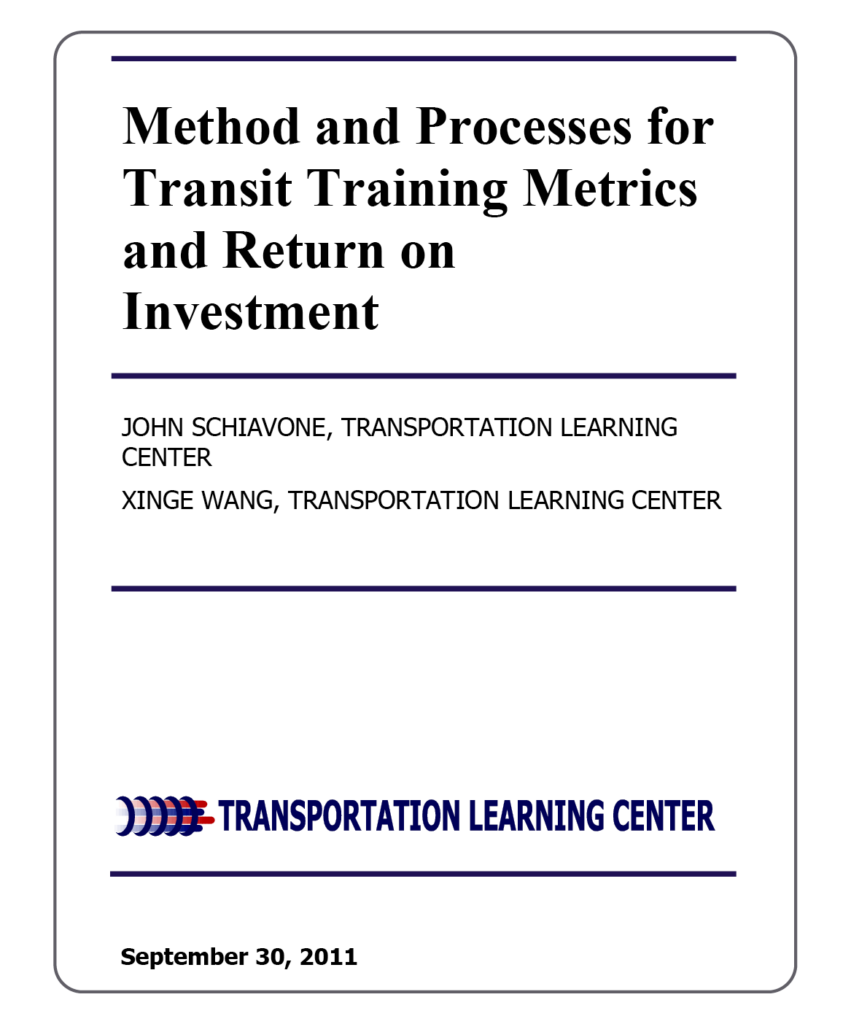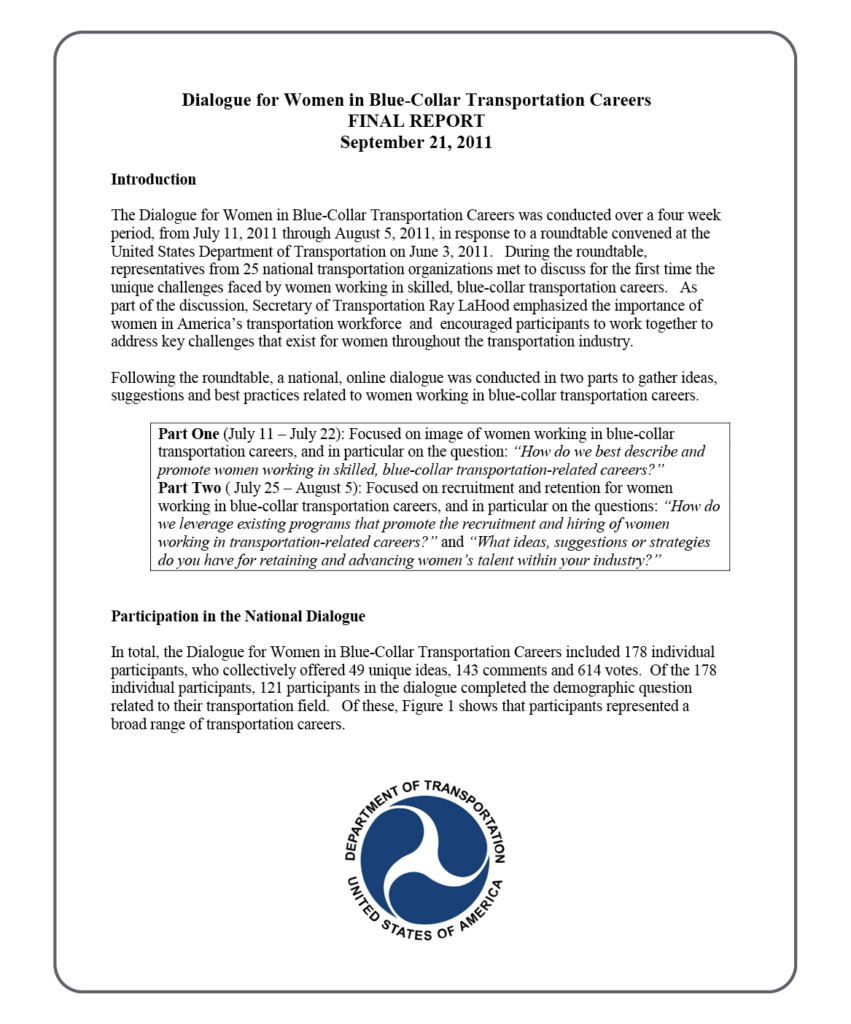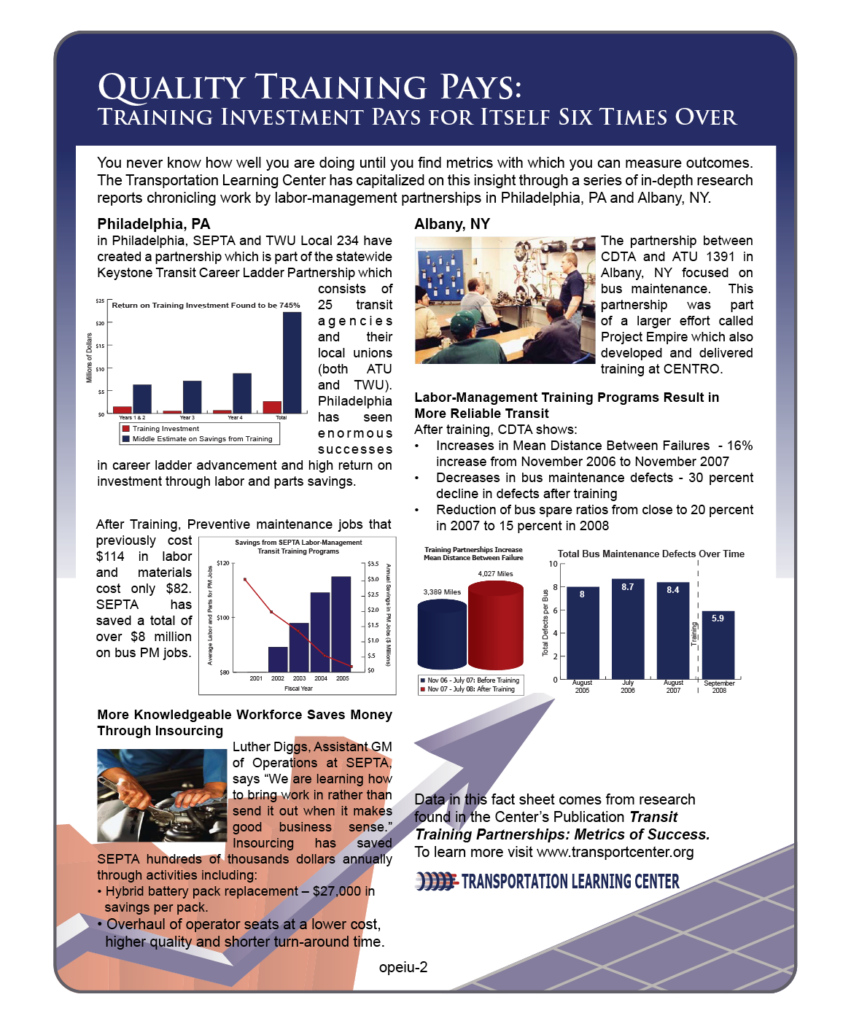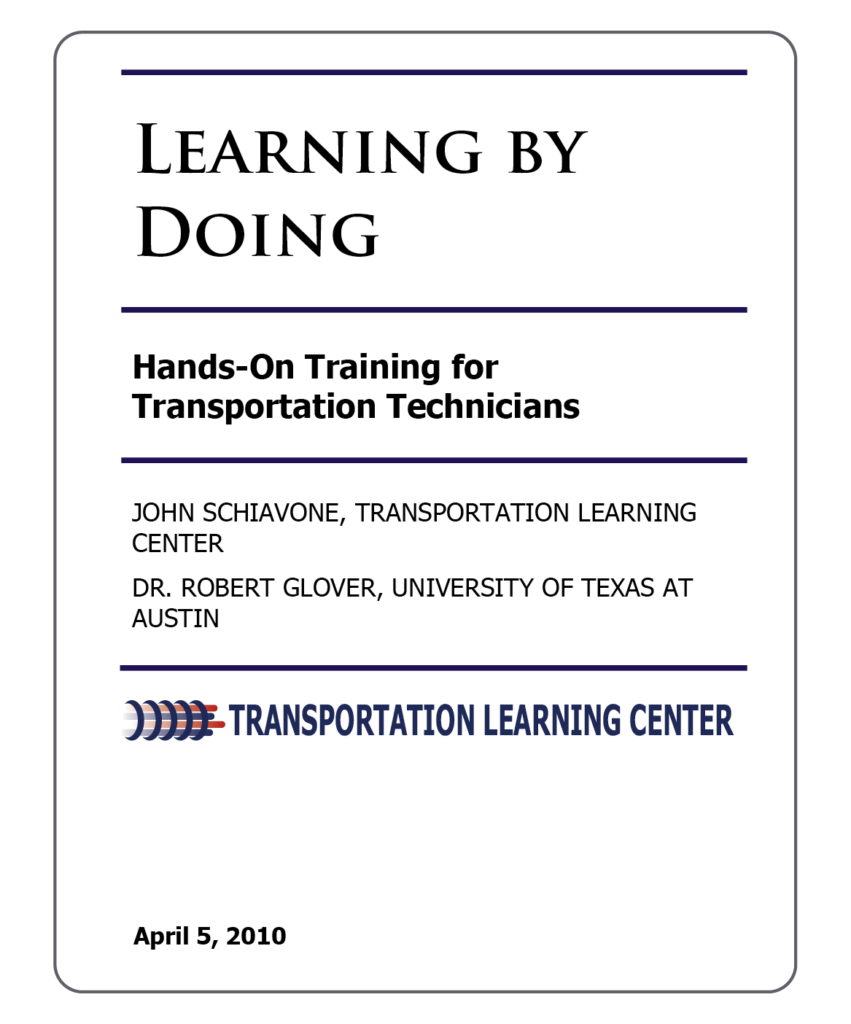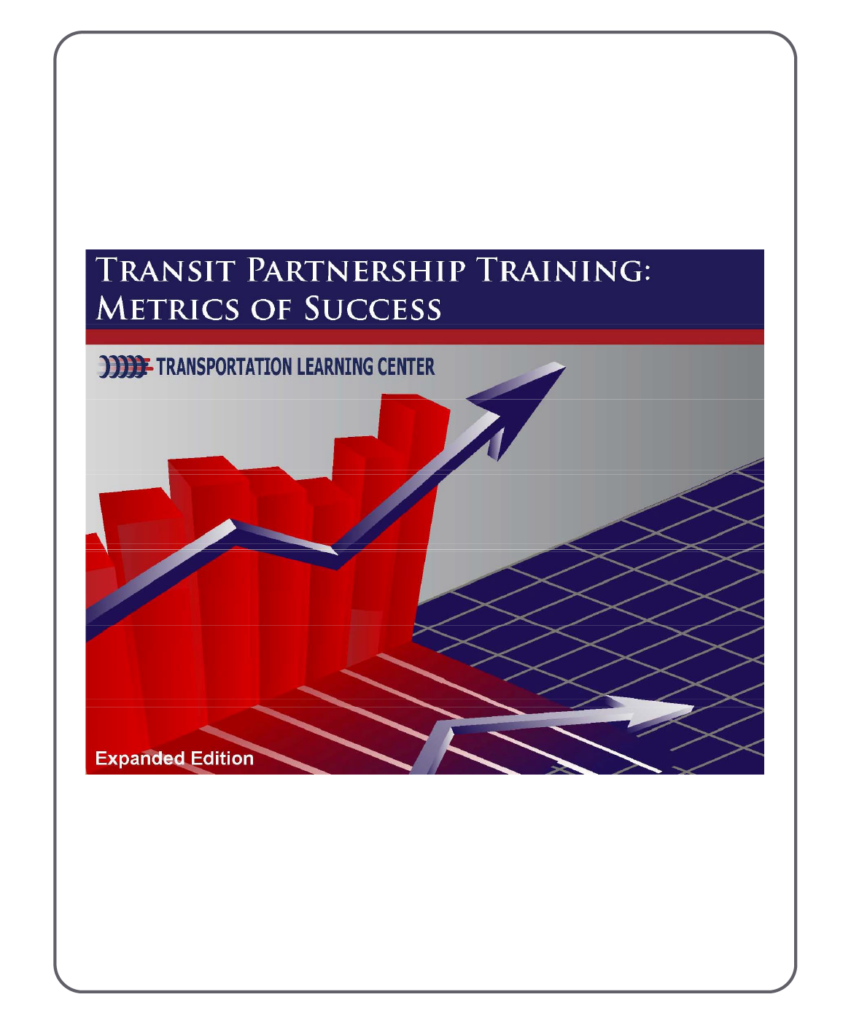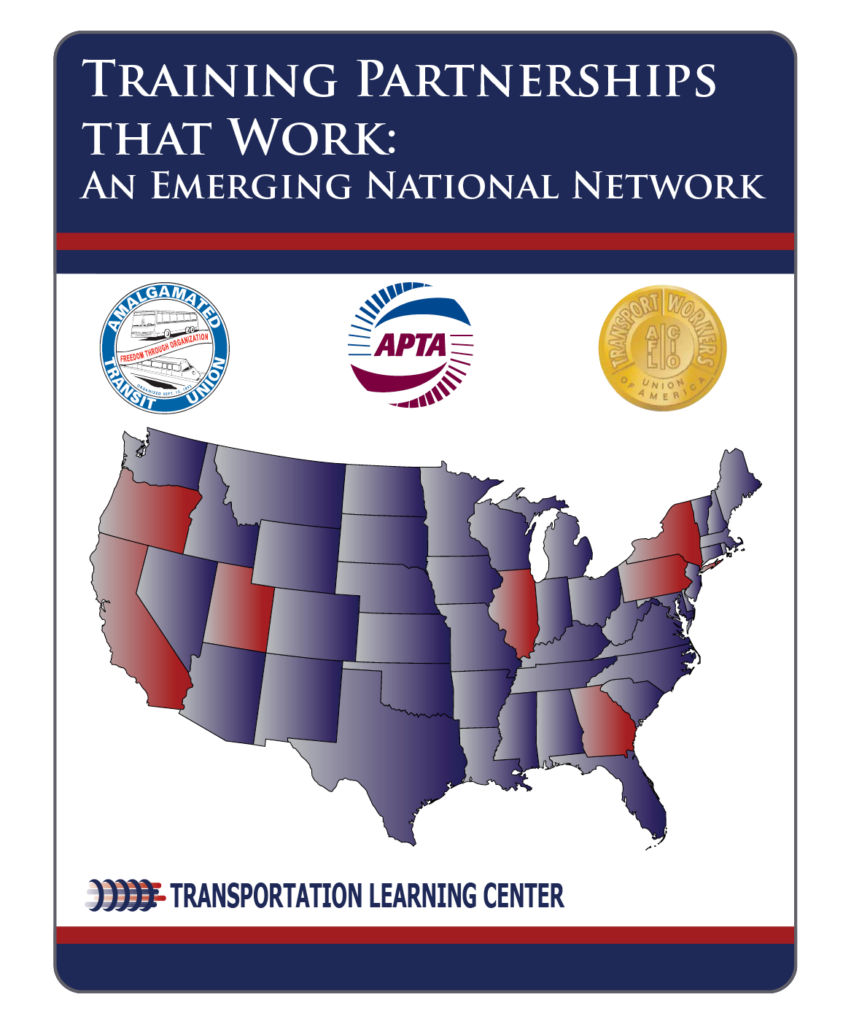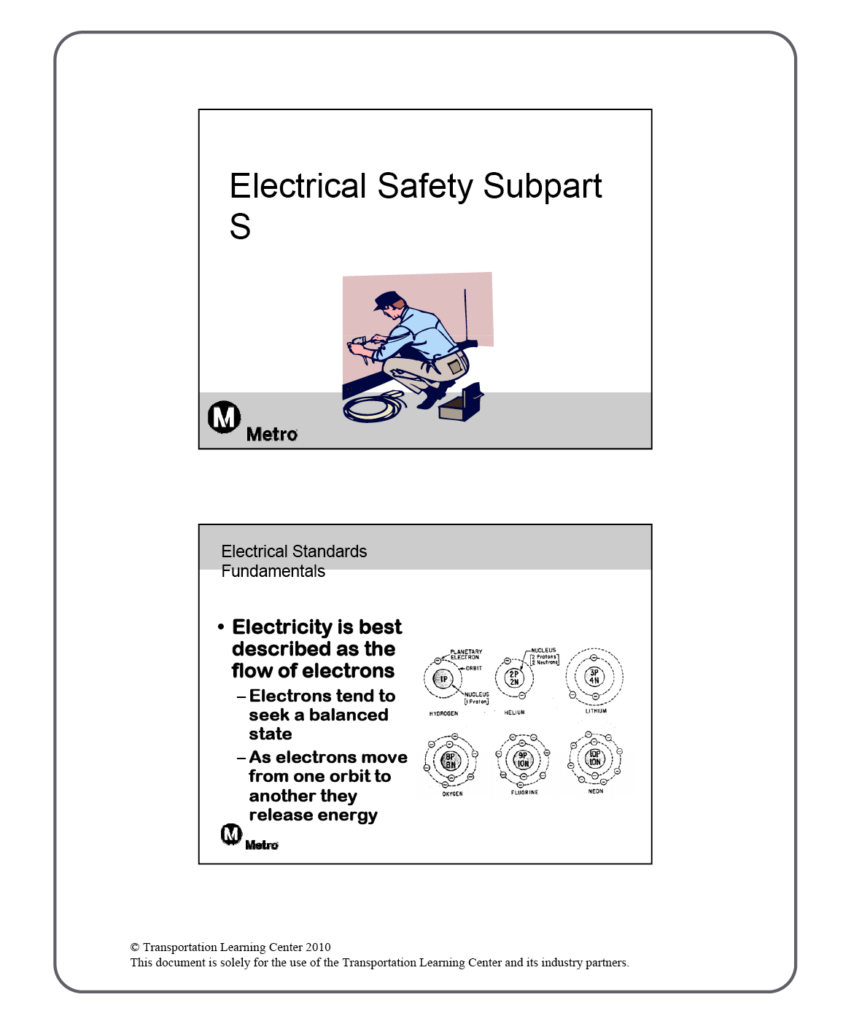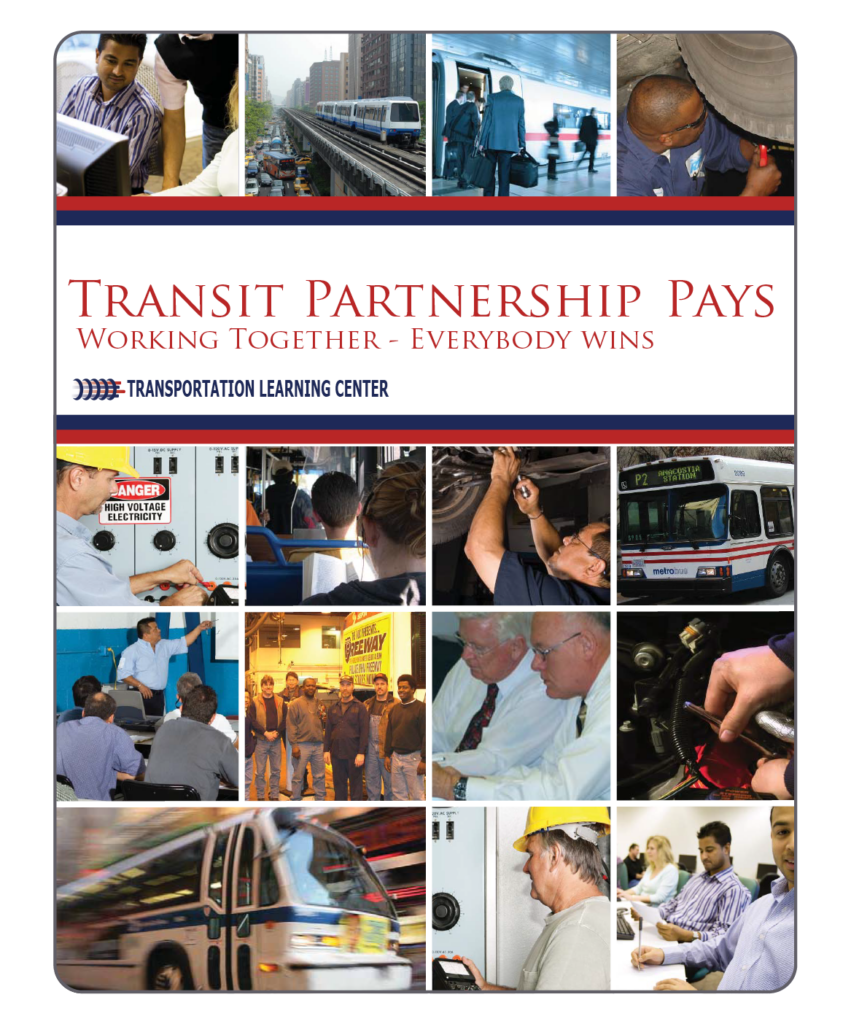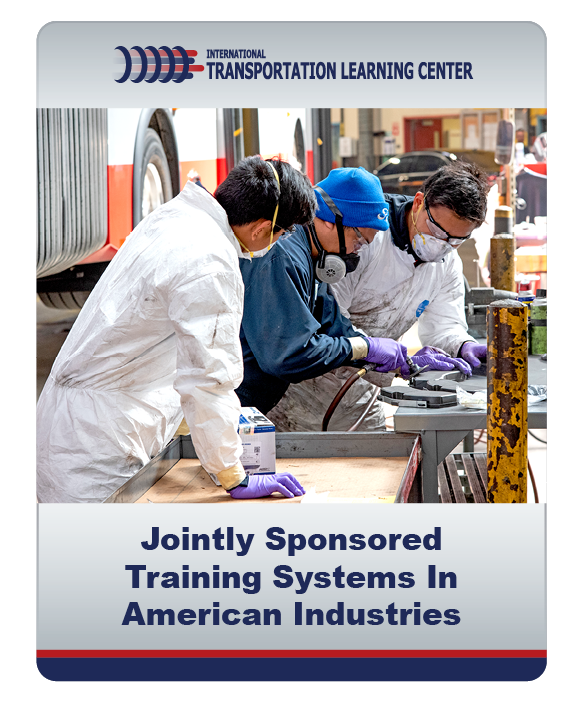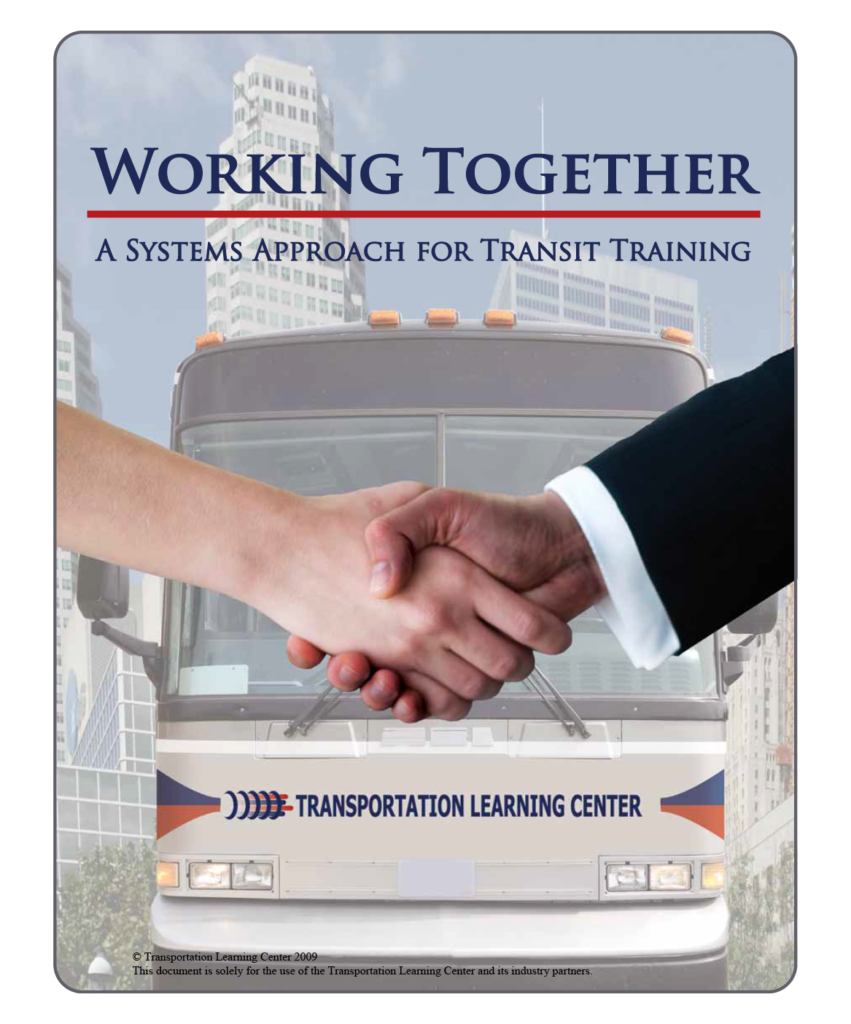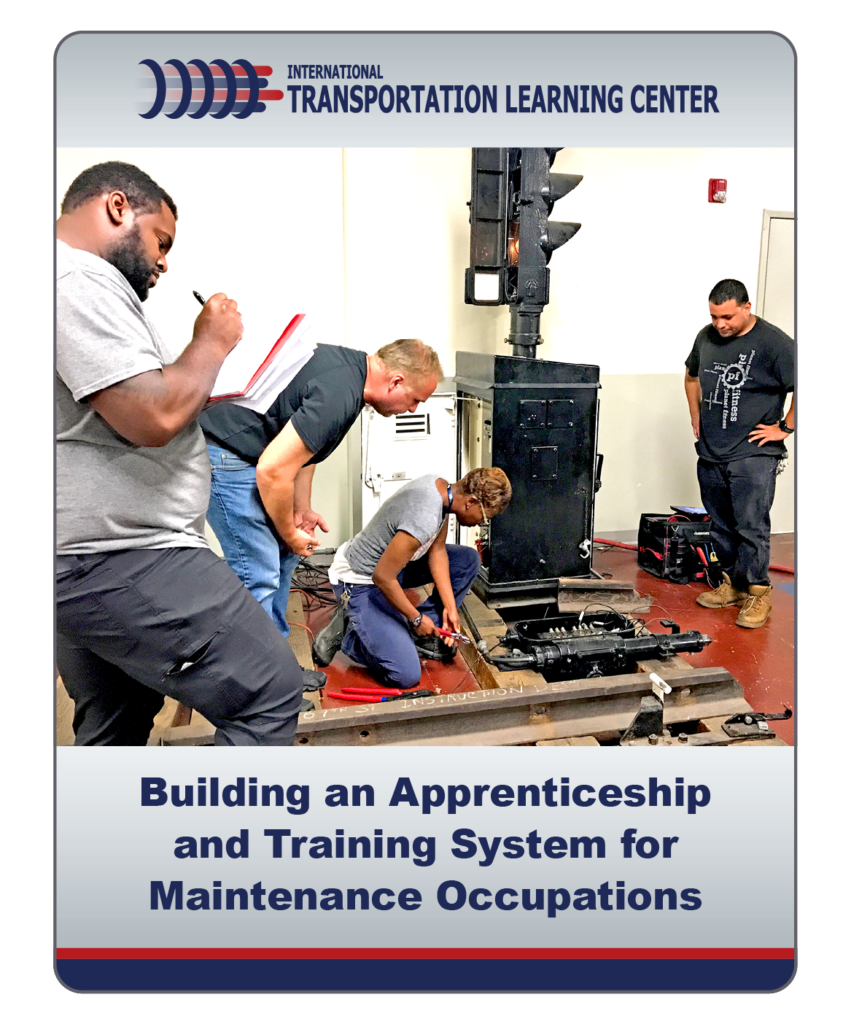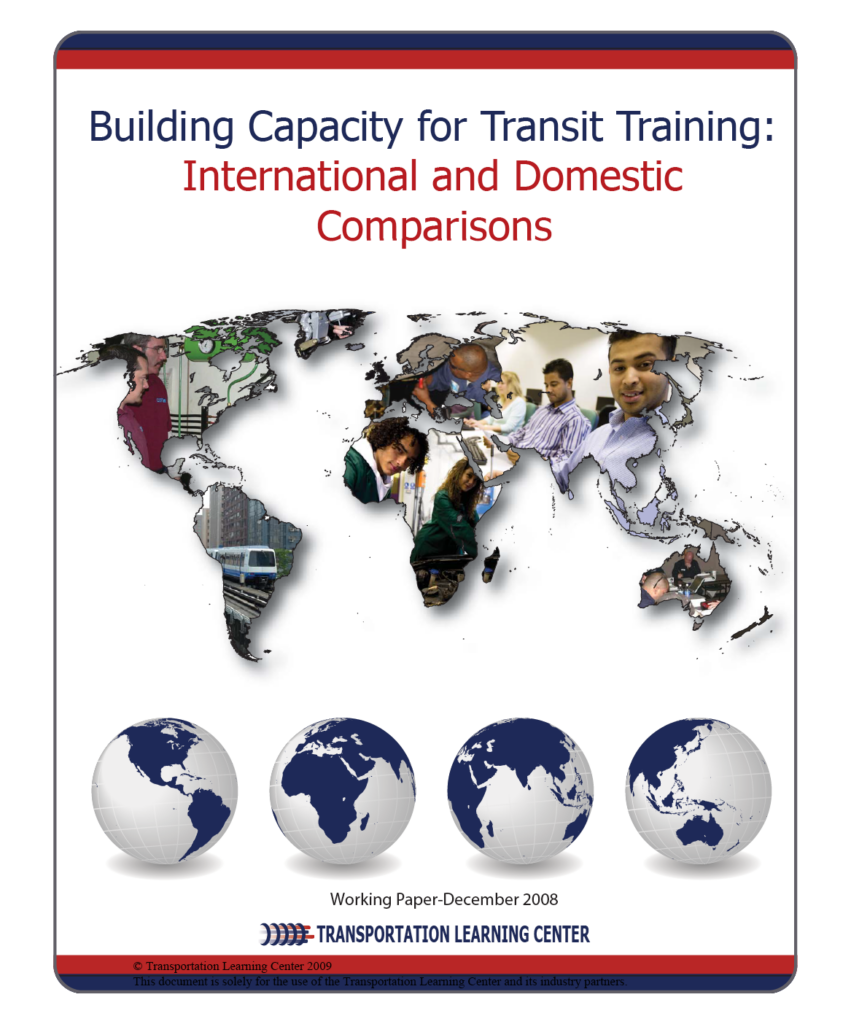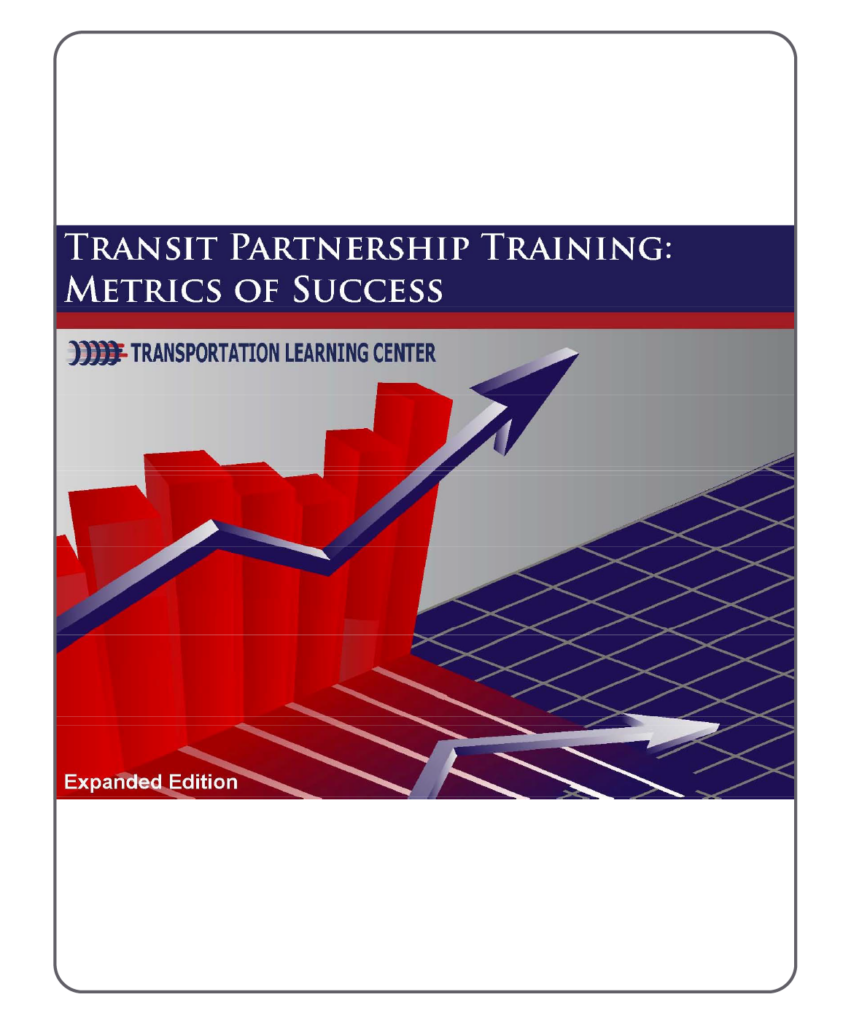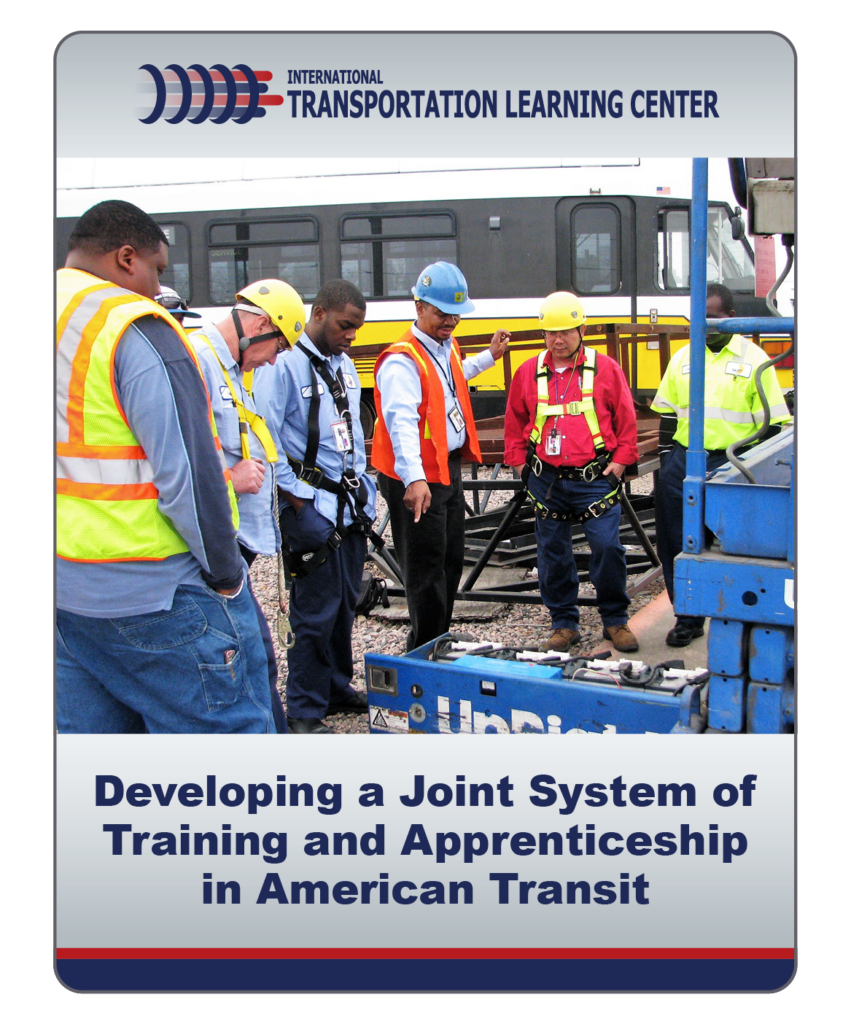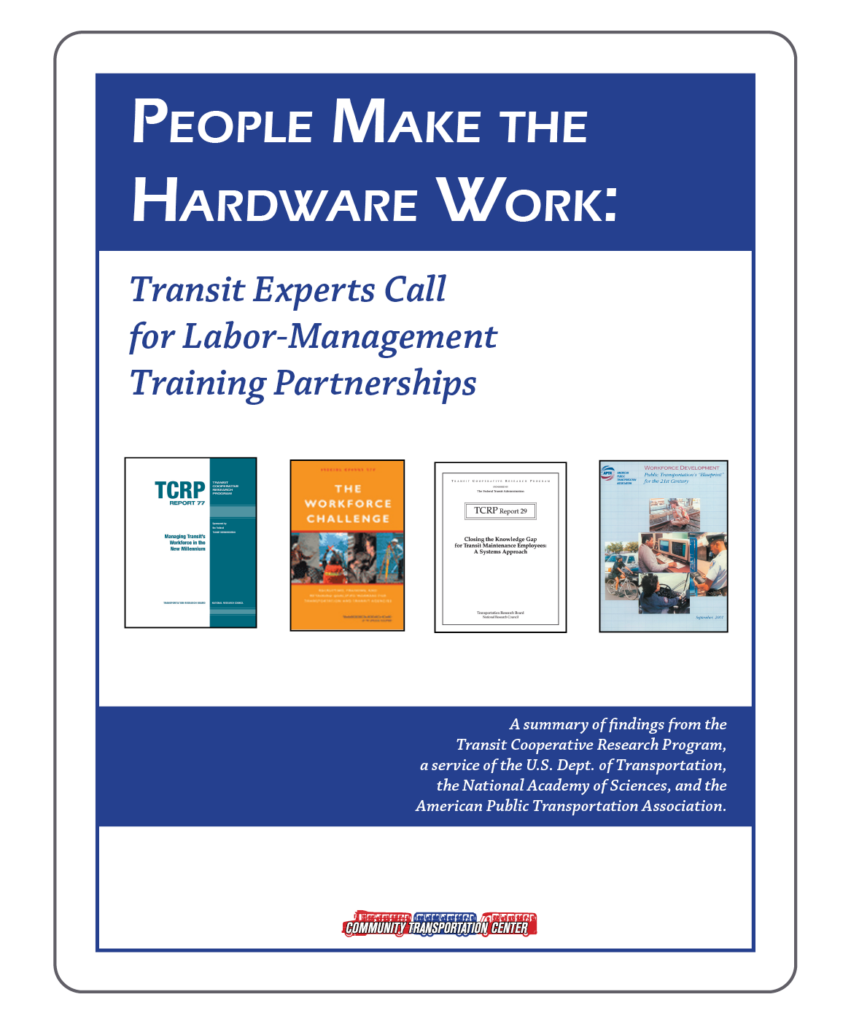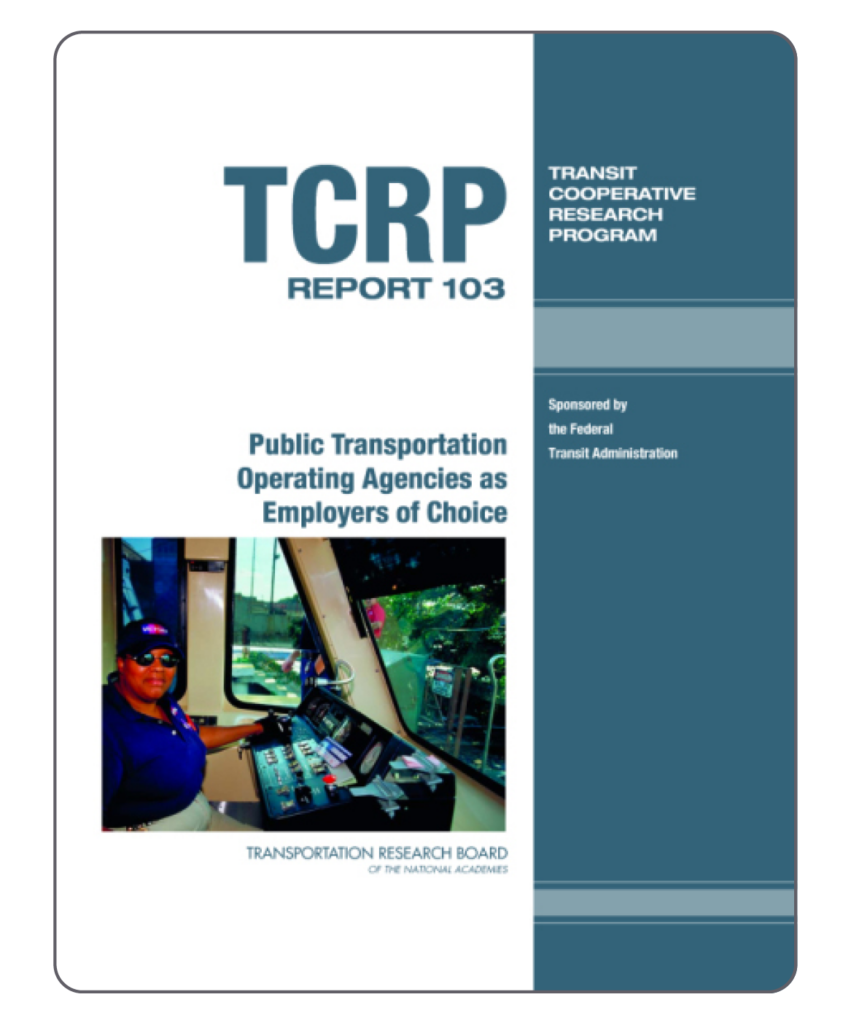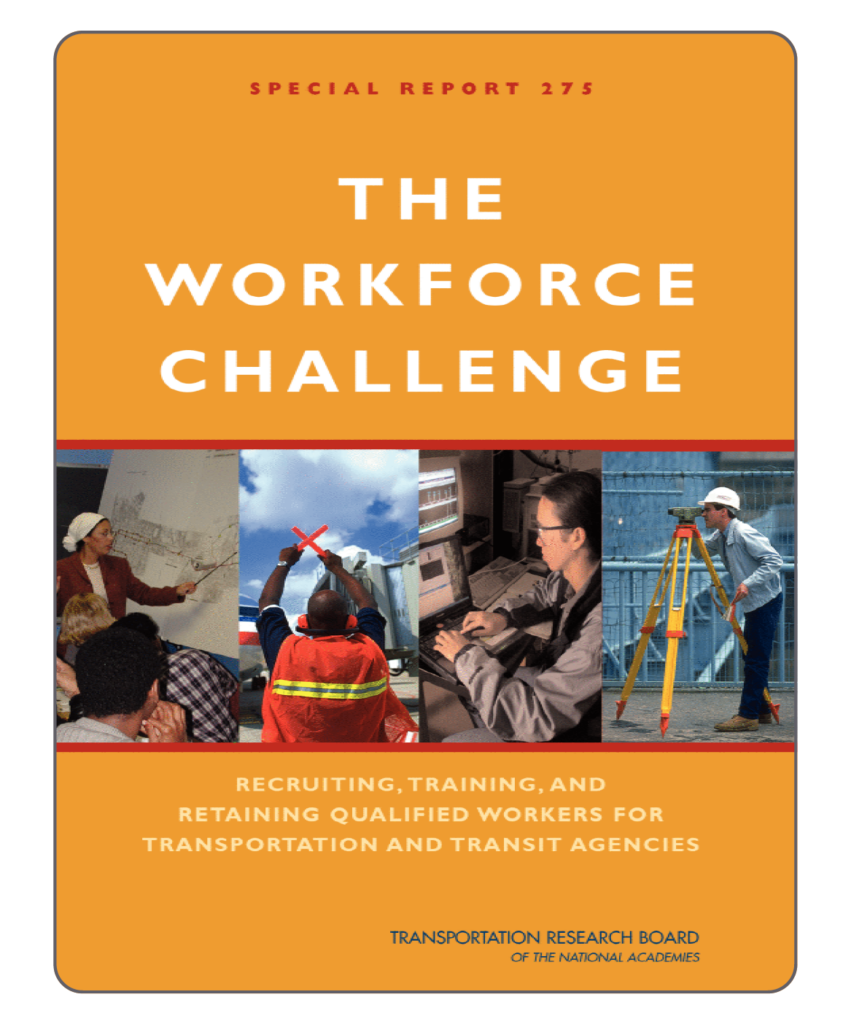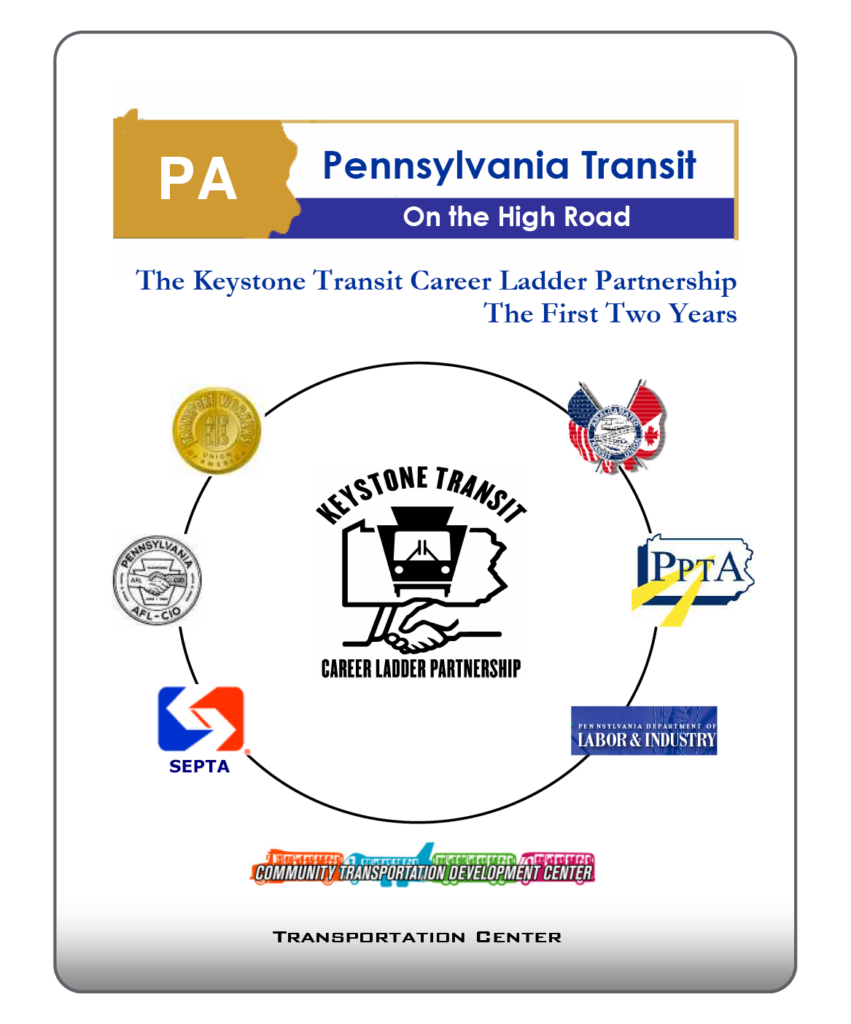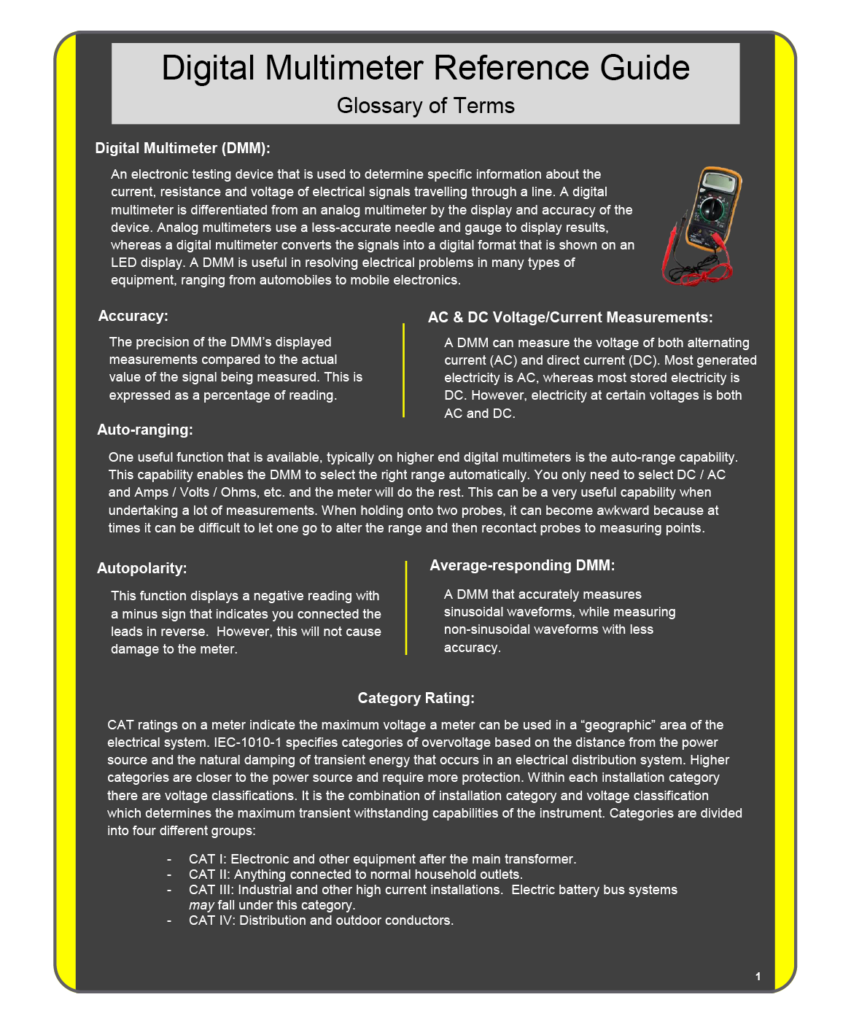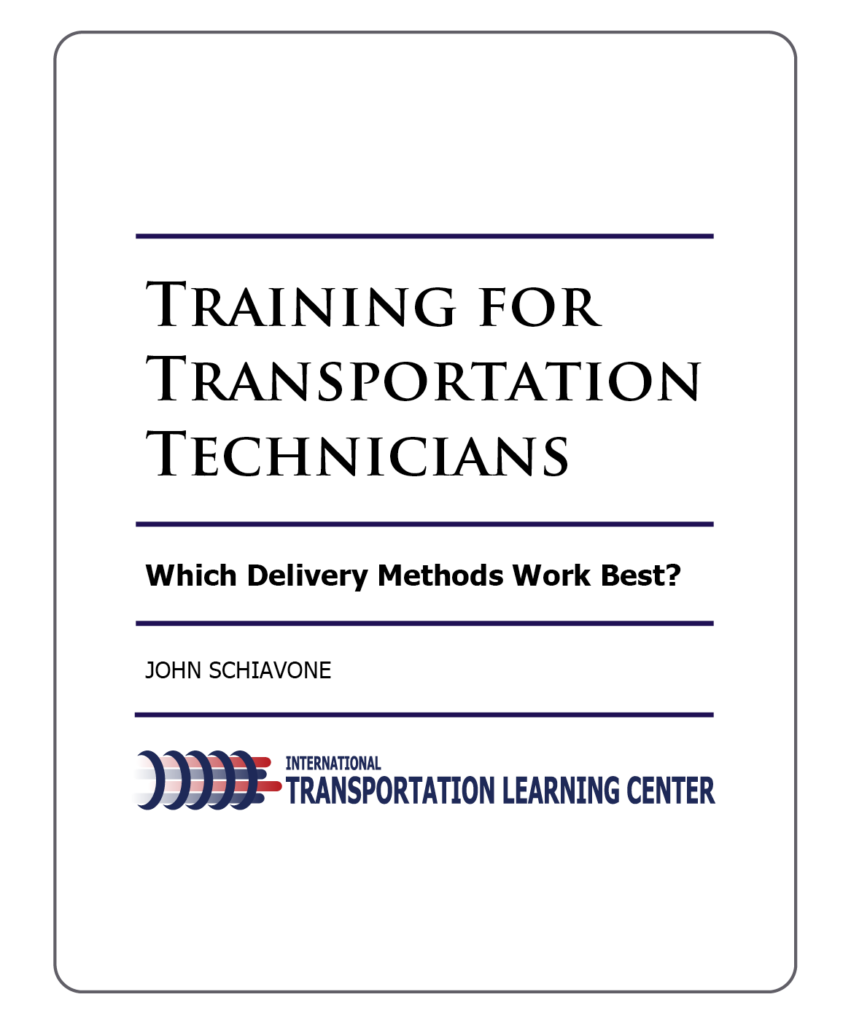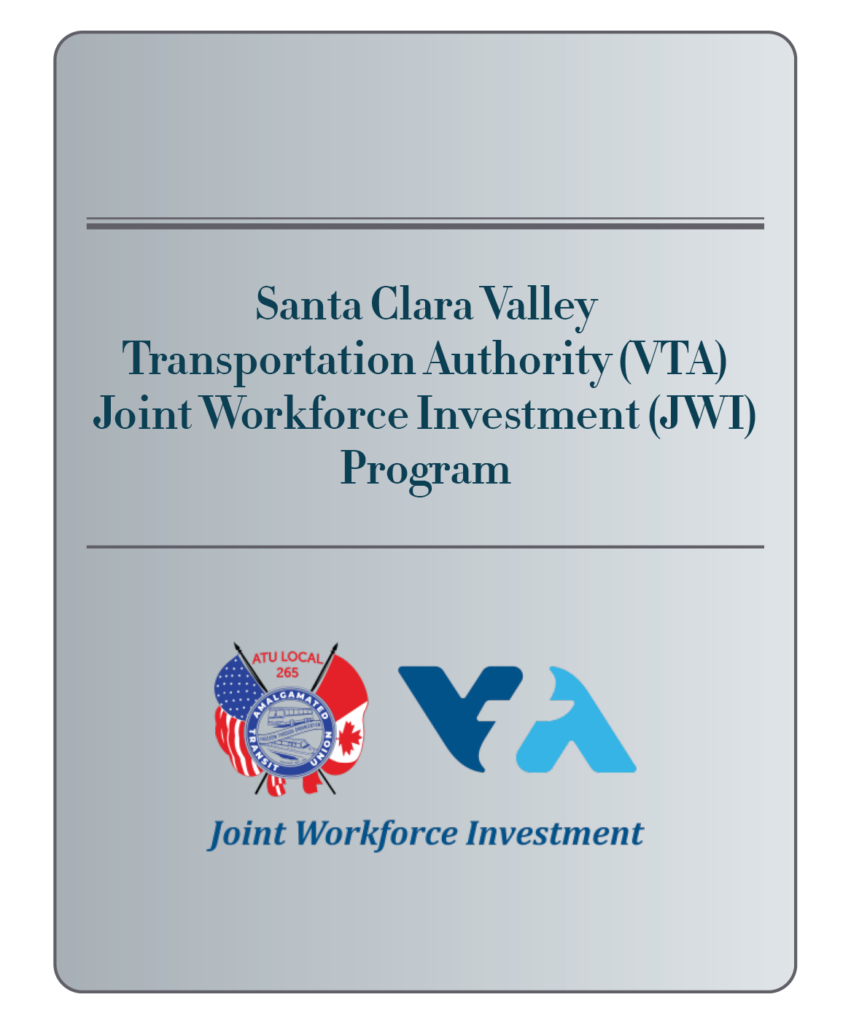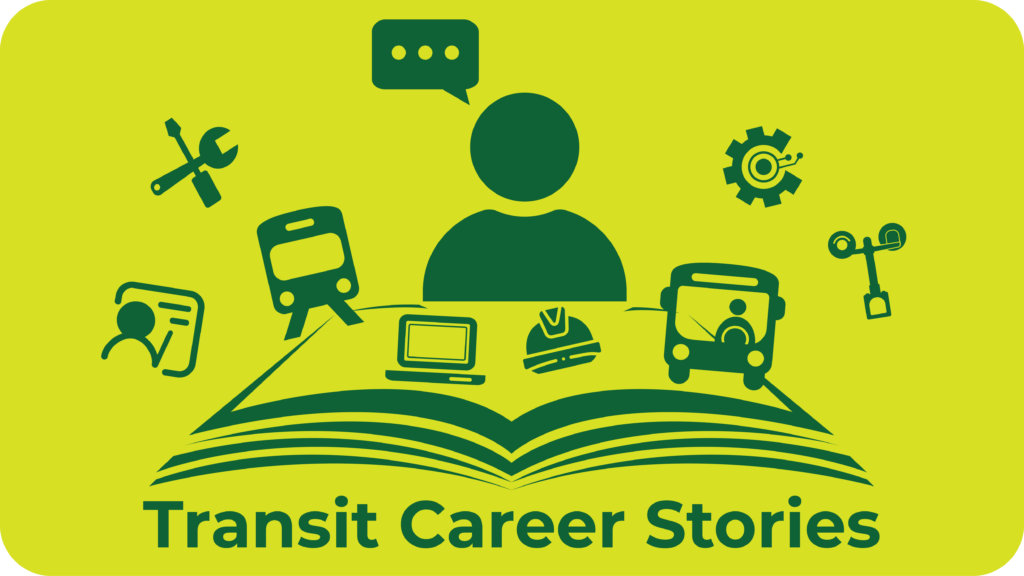Key Takeaways:
- There are many ways to support the childcare needs of employees; there is no one-size-fits-all model.
- The models examined in this case study include a voucher system, an on-site center managed directly by the agency, and a discounted center managed by a contractor with supplemental referral services.
- Challenges remain, including childcare affordability and availability.
- Still, these programs can boost morale and attendance among working parents and caregivers.
At New York City’s Metropolitan Transit Authority (MTA), the first sign of a problem was attendance. Los Angeles Metro experienced a similar phenomenon of worker absences, which grew worse during the COVID-19 pandemic. At Prairie Hills Transit in South Dakota, the agency (like many employers in the community) struggled just to get workers in the first place. In community after community, public transit is suffering from low employee availability, and a key driver of the workforce shortage is clear—a lack of affordable childcare.
The good news for the public transit industry is that a variety of models already exist that support the childcare needs of frontline workers. This case study describes three such models: a voucher system, an on-site center managed directly by the agency, and a discounted center managed by a contractor with supplemental referral services. Across the spectrum of agency sizes—from a small rural agency to an agency serving one of the world’s largest cities—transit providers have opportunities to support their workers, both as employees and as parents.
Please see the summary table at the end of the case study for an overview of each of these programs.
Background: The Urgency of Childcare Needs
The United States used to have one of the highest rates of working women among Organization for Economic Cooperation and Development (OECD) countries, but in recent years, the U.S. rate has declined. As parents struggle to find stable access to childcare, they are forced to limit their workforce participation, leave employment altogether, or pay an often-unsustainable portion of their income towards a childcare program. Using data from the National Survey of Children’s Health, the Center for American Progress (CAP) estimated that in 2016 nearly two million Americans made career sacrifices due to issues with childcare.
As the United States, and in particular the transit industry, faces a difficult and ongoing labor shortage, it is important for mothers to be able to participate in the workforce if they choose. Even though women are less present in the labor force, families are becoming increasingly dependent on the maternal income. Only about 30 percent of families with children rely solely on a father’s income; women are primary or equal earners in about two-thirds of families. Women of color with children are even more likely than white women to be in the labor force, be primary breadwinners, and be in low-earning jobs (NWLC).
Despite this necessity, childcare remains a determining obstacle. An analysis of the 2016 Early Childhood Program Participation Survey (ECPP) indicated that half of American families struggle to find adequate childcare, with cost most commonly reported as a barrier. Another CAP analysis found that over half of Americans live in childcare deserts (areas with few or no options for childcare). The maternal workforce participation rate is an average of three percent lower in these deserts than in areas with adequate childcare. Hispanic/Latino families are more likely to reside in childcare deserts and more likely to report location as an obstacle to obtaining childcare. The prevalence of location as an obstacle can be further explored with these interactive childcare desert maps.
Even small steps to alleviate childcare burdens can help parents join the workforce. A study of Washington, DC’s universal, full-day preschool program found that since the program’s inception, the rate of mothers participating in the city’s workforce increased by 12 percent. Subsidies to support parents in finding childcare assistance can have positive impacts on their workforce participation as well. A study of childcare and parent labor force participation found that just a 10 percent decrease in childcare costs could lead to a 0.5-2.5 percent increase in maternal employment. A paper from the National Bureau of Economic Research indicated that if childcare costs were capped at seven percent of income, the rate of low-income mothers in full-time jobs would increase by 18 percent and the overall maternal employment would increase by 10 percent, which would add 12 million mothers to the workforce. For individual families, gender parity, and the overall economy, these increases are important, and they are essential to mitigating the workforce shortage in the transit industry.
Childcare Examples in Public Transportation
Transport Workers Union (TWU) Local 100 – New York City Transit Child Care Fund (CCF)
In New York City, TWU Local 100 and NYC Transit came together to create the Child Care Fund (CCF), a financial assistance program designed to support the families of Local 100 members who need help paying for childcare expenses. In 2002, Local 100 proposed a new benefit for its members in the collective bargaining agreement: funds through CCF to support parents of young children in obtaining childcare. MTA management, concerned about the effects of worker absences on its operations, agreed to the new benefit. “Workers were doing the calculus of whether it’s worth it to spend X amount on childcare versus just staying home and not working and caring for the child instead. Childcare is very expensive,” said Charles Jenkins, Director of TUF. This no-win choice weighed particularly heavy on women. Jenkins recounted how historically, transit has been a predominantly male industry with few accommodations for women, even proper bathrooms, until recently. Long-standing worker shortages in public transit have led the industry to begin thinking differently.
CCF provides financial support to parents for either a year-round childcare program or for summer camps; the employee can choose. The employee also has the discretion to choose who cares for their child—CCF covers about forty percent of the cost of childcare in a licensed facility (up to $320 weekly), and about twenty percent (up to $160 weekly) if the provider is not licensed—for example, if the caregiver is a family member. If the employee chooses the summer camp option, fifty percent is covered (up to $1,000). The benefit is offered to all employees in good standing who have completed one year of employment, until the employee’s child reaches age 12.
The program is not without challenges. It is first-come-first-served, with limited funds, although most people who seek out the benefit do receive it. Some members report they didn’t know about the fund, and even with a subsidy, childcare remains expensive. Still, CCF’s support helps. “Our members are very thankful for the benefit,” Jenkins said, and the agency and union have found that attendance is high when adequate childcare is in place.
Prairie Hills Transit (Spearfish, South Dakota)
Over a thousand miles away and in a much more rural area, the childcare landscape looks different. Prairie Hills, SD, has struggled for years with a lack of childcare providers in the community. Around 2010, Prairie Hills Transit (PHT) Executive Director Barb Cline noticed that federal funds were available for the construction of new buildings. Thinking creatively, she pursued grants and loans from the U.S. Department of Agriculture for the purpose of constructing a childcare facility within the PHT campus. “We knew this was a community problem, bigger than our own staff,” Cline reported. With only about 50 employees, PHT’s staff didn’t have enough children for a center limited to employees, so the agency opened its doors to the wider community.
Today, this licensed, on-site childcare center can accommodate up to 41 children. To handle demand, PHT is expanding to a new rented location which can enroll another 25 or so children. Because childcare has a low profit margin, no external company would take on the contract, so PHT hired its own manager for the program. Now that the building has been constructed, the program sustains itself financially. Employees of PHT receive a thirty percent discount, while other parents in the community pay full price (though some use government benefits to pay and segmented payment plans are available). Children don’t age out formally, but most enrollees are age five or younger. PHT has found that male and female employees alike take advantage of the program. Recognizing that employees won’t be able to transport their children from school to after-school childcare in the middle of a shift, PHT obtained a separate bus with car seats to provide those trips themselves.
PHT reported several challenges it encountered as the program unfolded. Licensing requirements for childcare centers have gotten stricter and PHT has had to invest time to adapt. Another challenge for the agency has been the “human versus the financial”: if a parent only wants part-time childcare, the center wants to accommodate the family’s needs, but the accommodation results in the loss of a full-time spot and thus a loss of funds. Availability of childcare remains a challenge because demand is so high, even though PHT employees receive some degree of priority; “our waiting list is 12 pages long,” Cline said. Even with a subsidy, affordability is still a question for some families. However, employee turnover is low at PHT and childcare may be part of the reason.
PHT has realized that because of the geographic dispersion of employees and the low turnover of children in the center, some employees are not able to take advantage of the center’s offerings. As the program looks to the future, PHT is looking to build a second shared-use facility to expand capacity.
LA Metro (Los Angeles, CA)
Like so many other transit agencies, Los Angeles Metro found its workforce depleted as the COVID-19 pandemic progressed. The agency recognized that a lack of childcare delayed re-entry into the workforce.
LA Metro offers three options for their employees to find support The first is, through a memorandum of understanding, a partnership with Pathways LA to provide referral services to LA Metro employees seeking childcare. Pathways LA gives parents digestible information about childcare options and assistance navigating the possibilities available. LA Metro also utilizes its employee assistance program through ComPsych Corporation Guidance Resources, which connects employees to a Work-Life Specialist. This specialist provides personalized resources custom to the needs of the individual employees seeking childcare in their area. The third support is more recently established: LA Metro has leased a space it owns, beginning June 2023, to Pathways LA for a childcare center within walking distance from Metro’s central maintenance facility and headquarters. This arrangement was established through a competitive bid process. The center is not exclusive to LA Metro employees, but employees receive a 15% discount and get priority enrollment. The center serves children up to age 5 and offers everything from an infant center to an educational curriculum for older children to special needs programming. LA Metro has hired a coordinator to oversee the relationship between Pathways LA and Metro, which has been indispensable to facilitating a smooth partnership, the agency reported.
As childcare needs have evolved, LA Metro has persevered in seeking the best options for its employees within available resources. Before the Pathways LA partnership, LA Metro had partnered with a different third-party provider; with the new partnership, largely because of inflation, prices have risen and employees that transferred from one provider to the other were impacted by the change. Prices were already steep and employees felt the increase keenly. Another challenge has been the limitations of a single facility location: the fact that the center is close to LA Metro’s headquarters and central maintenance garage reduces travel and logistics for some parents, but not all Metro employees report to those locations. For LA Metro, a multi-pronged approach has been most successful.
Conclusion
Finding adequate childcare services is an imperative step in entering or re-entering the workforce, but it’s not easy for every parent. In the face of a widespread workforce shortage, if transit agencies are able to help parents with this step, it can help rebuild and maintain their workforce. These examples provide evidence that agencies of varied sizes across the county can find a childcare supportive service program that works for them. LA Metro found that neither subsidies nor self-administration of a childcare center was realistic for them, but partnerships with an established and trusted provider could further their employees’ access to childcare resources. On the other hand, Prairie Hills Transit, facing a childcare desert in their community, established their own center. Meanwhile, MTA and TWU Local found that cost, not availability, was the primary limiting factor for their employees, and they were able to address that challenge for many families. Other transit agencies can take similar steps, utilize their own unique resources, and learn from the challenges faced in these examples to facilitate access to childcare services for their employees, which in turn will contribute to a stronger and more reliable workforce.
Summary of MTA/TWU Local 100, Prairie Hills Transit, and LA Metro Childcare Programs
For more information on these programs, contact:





